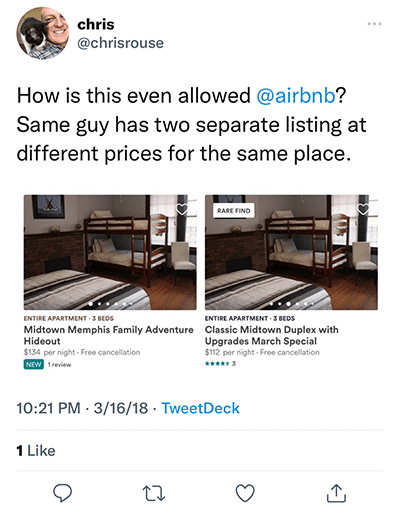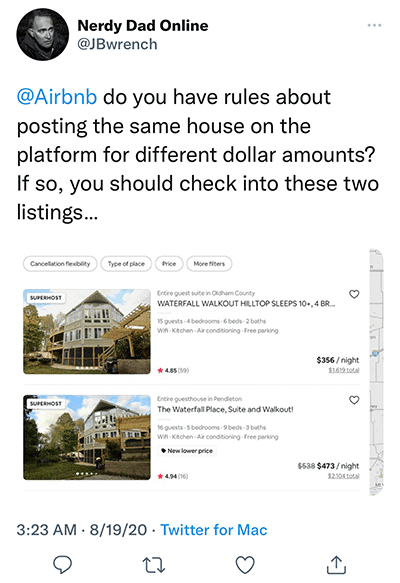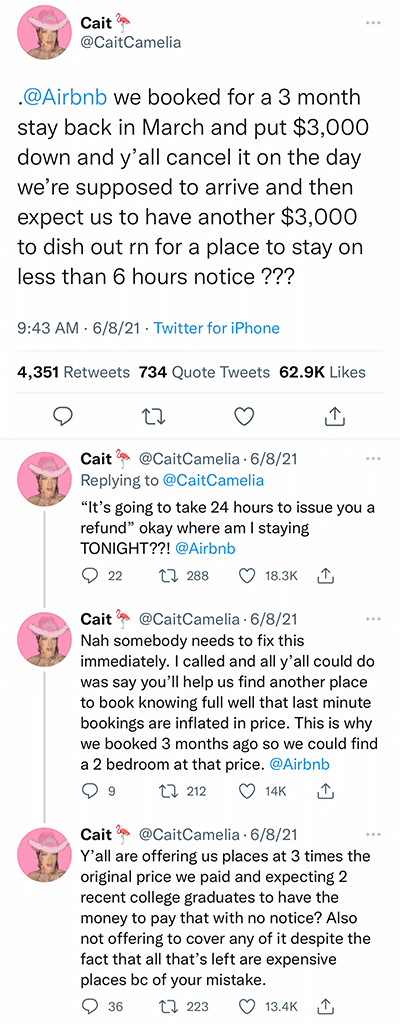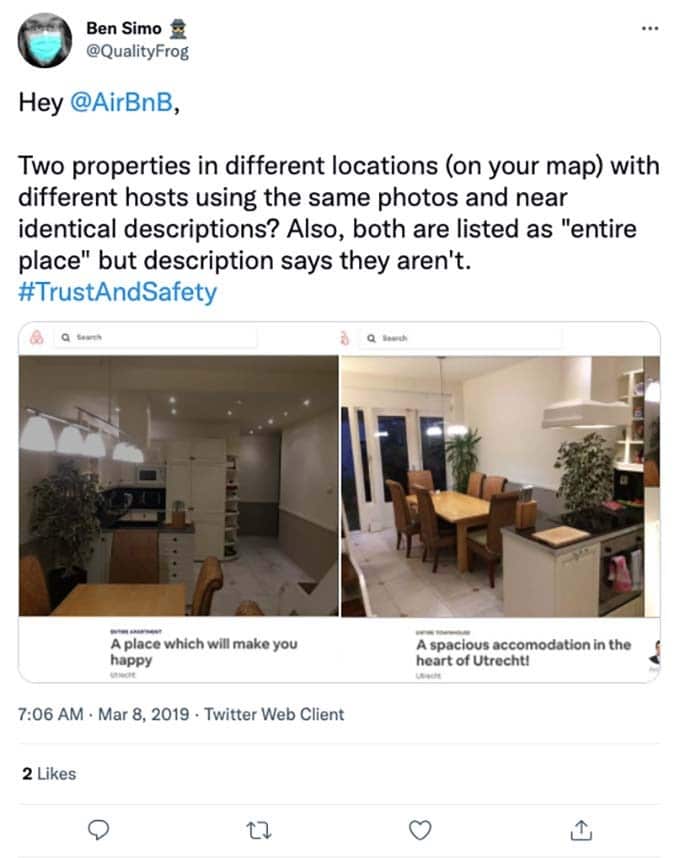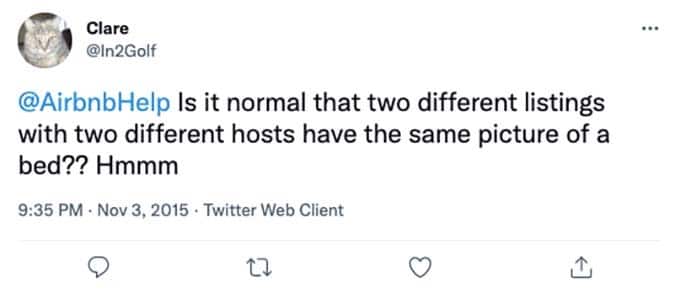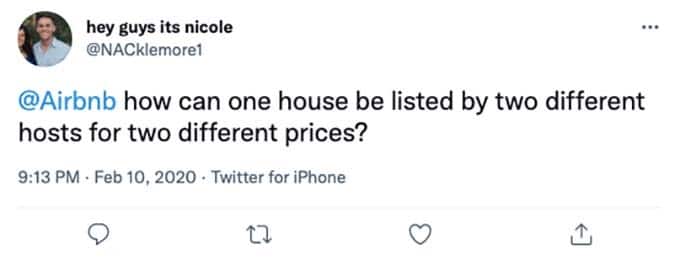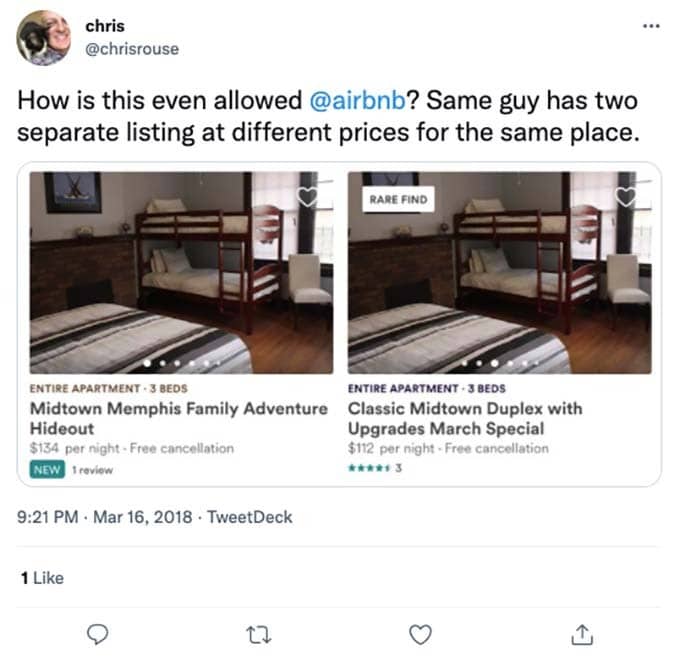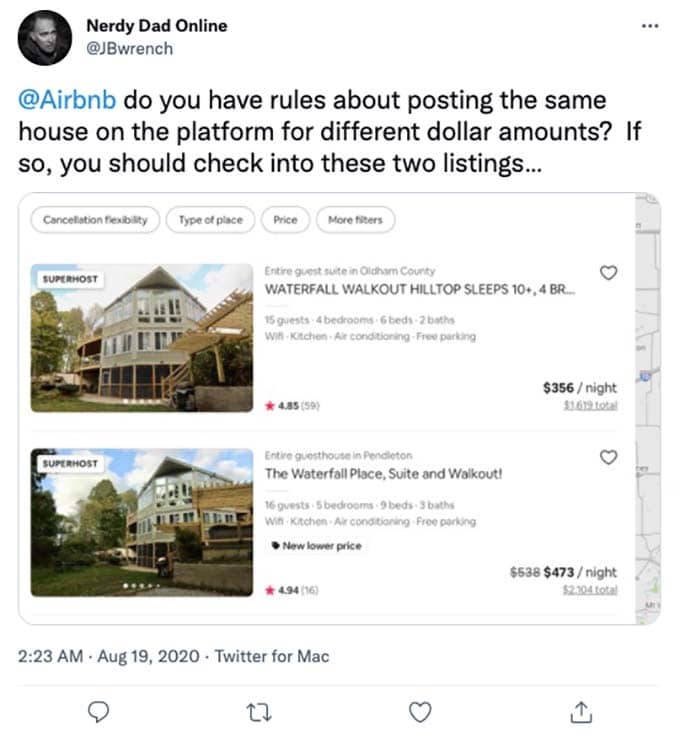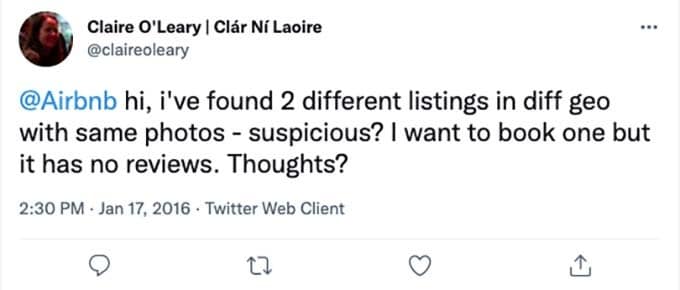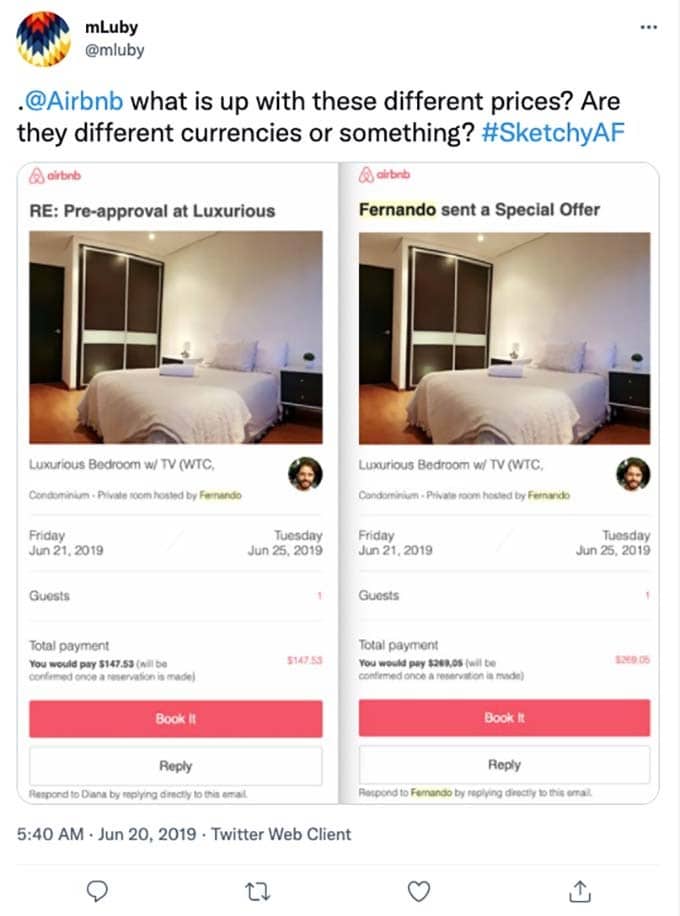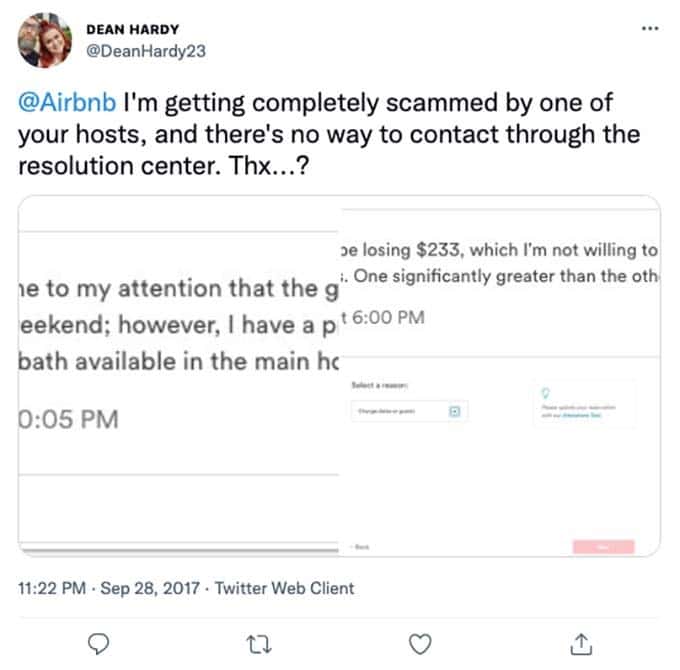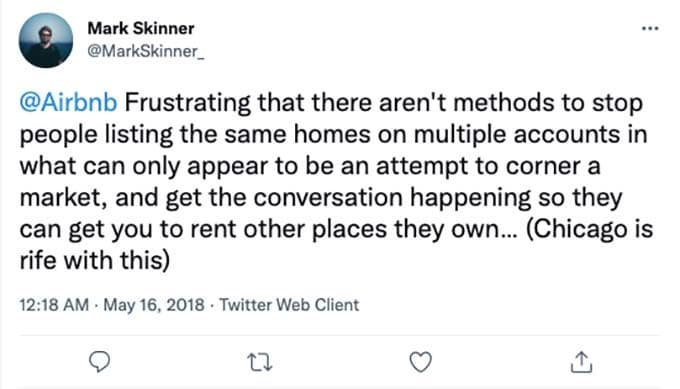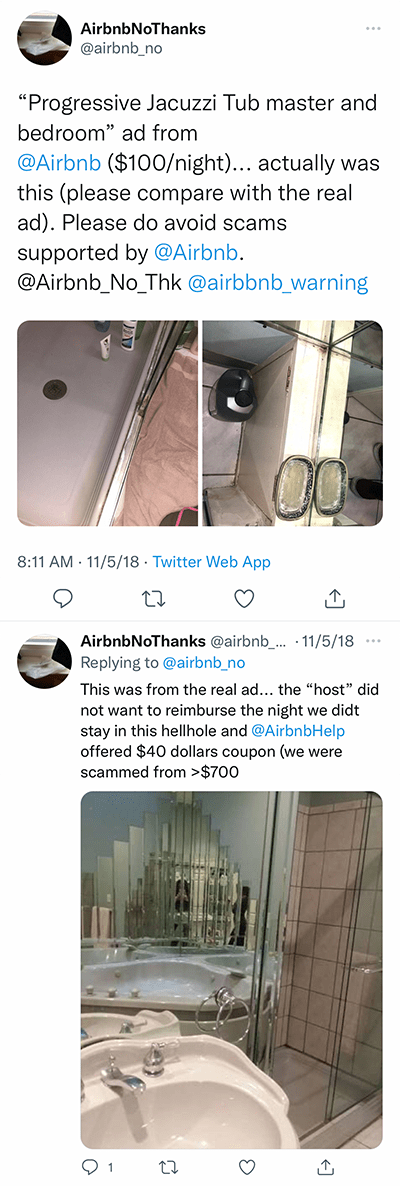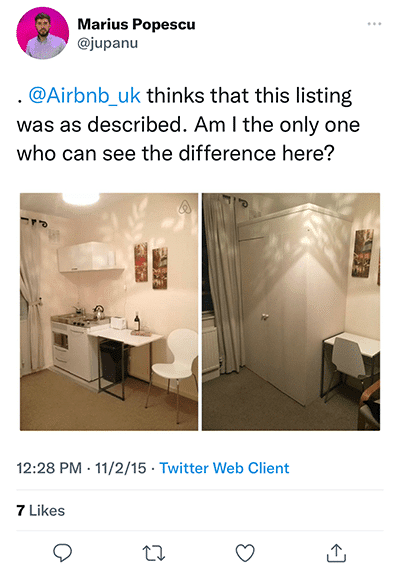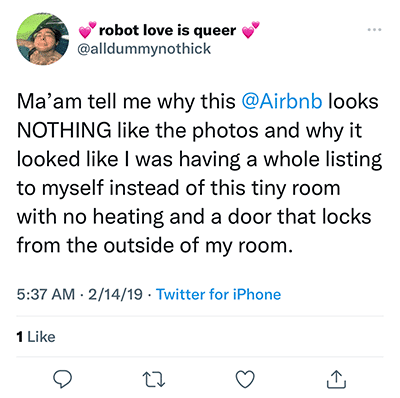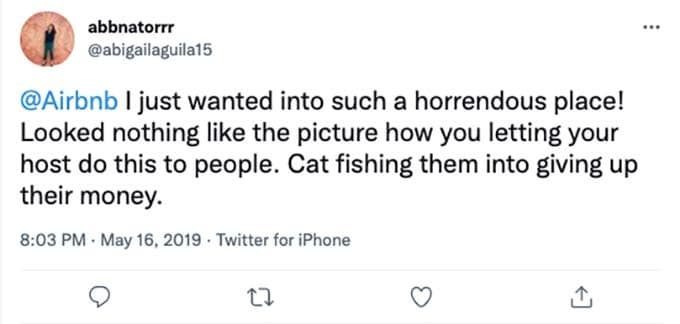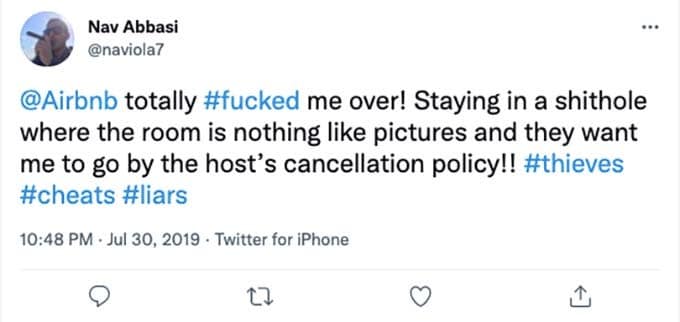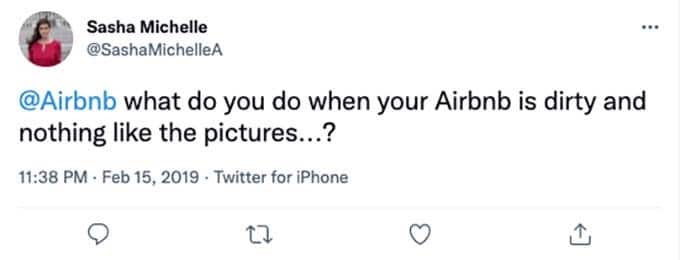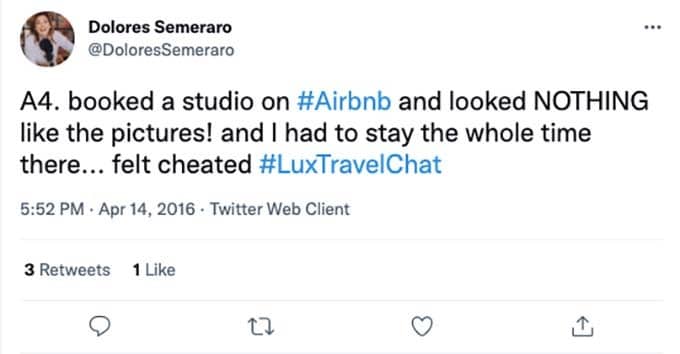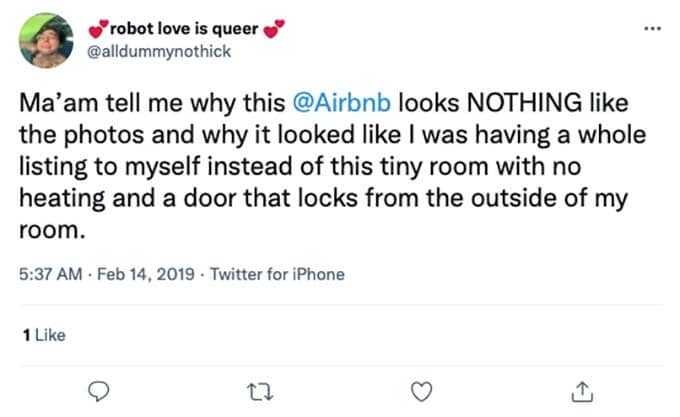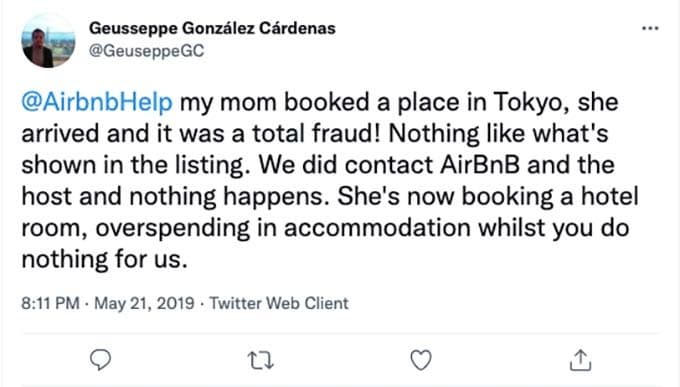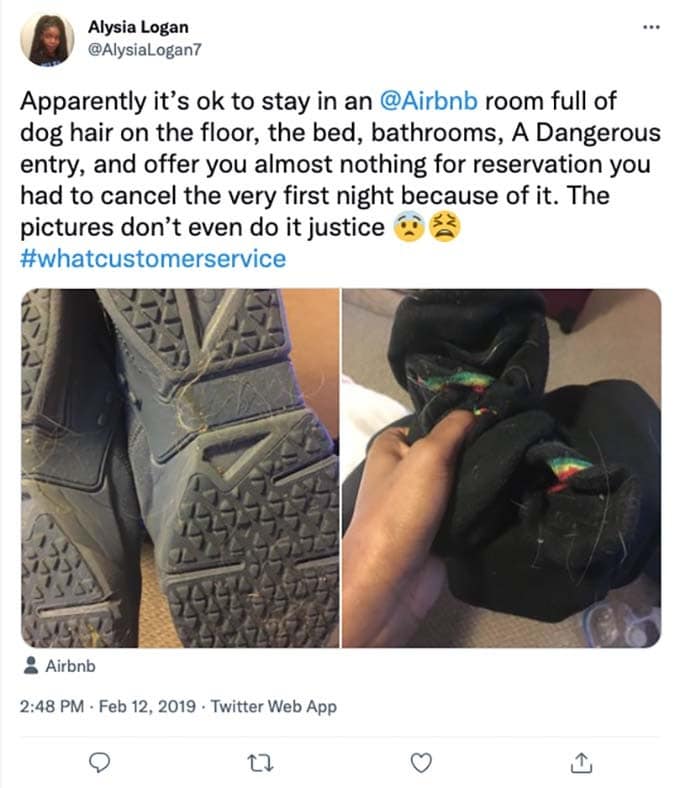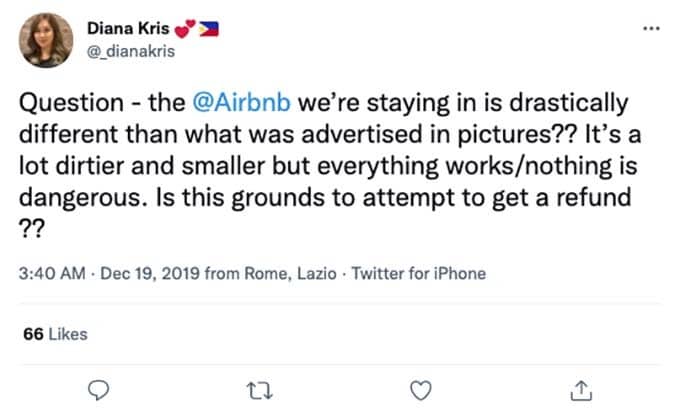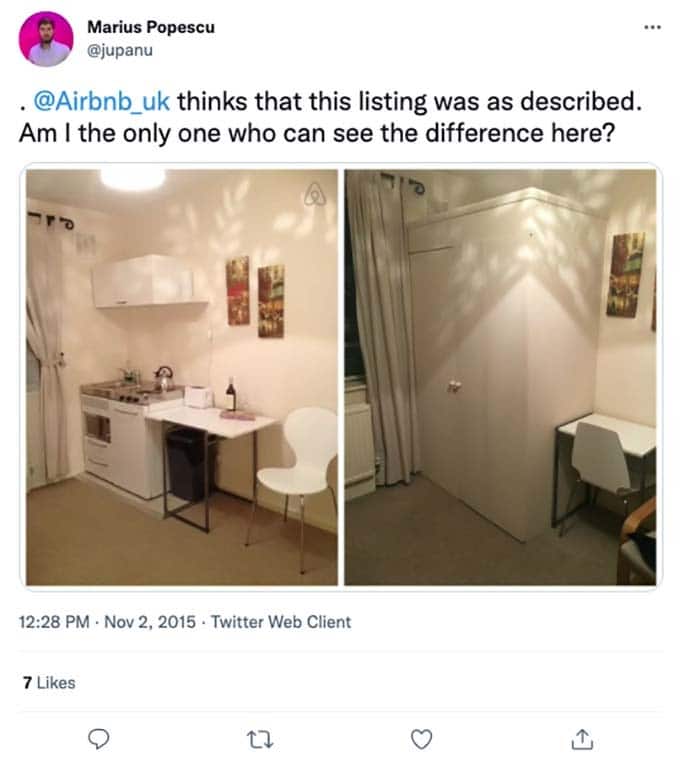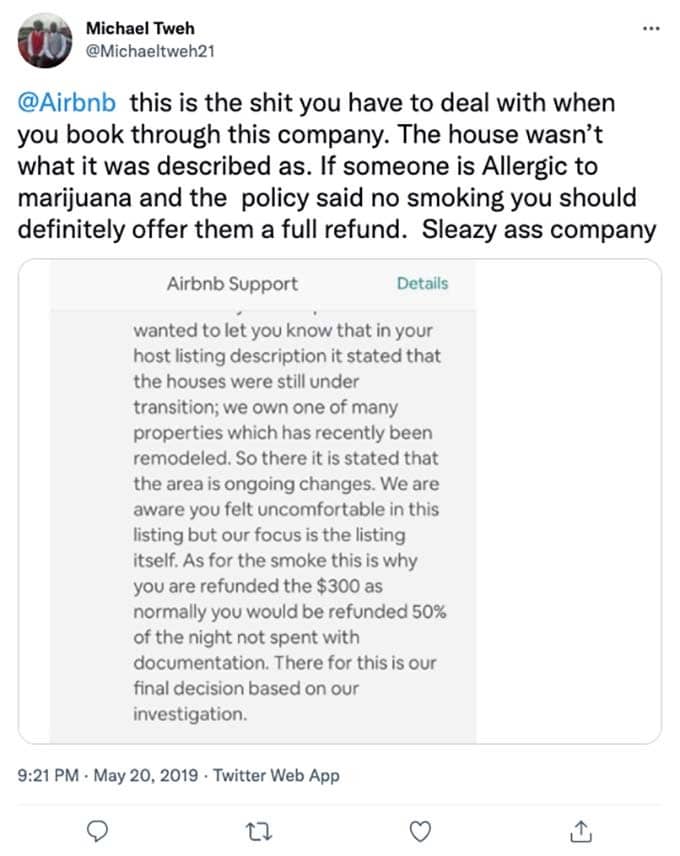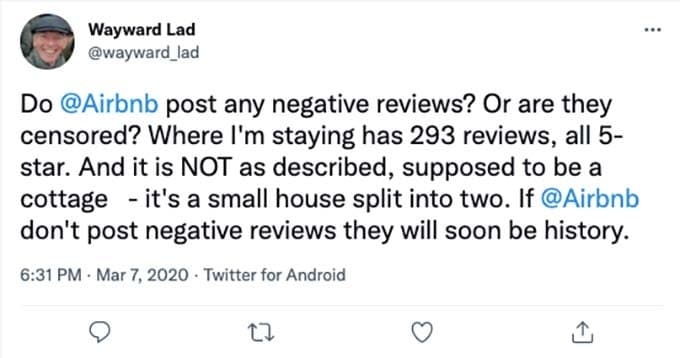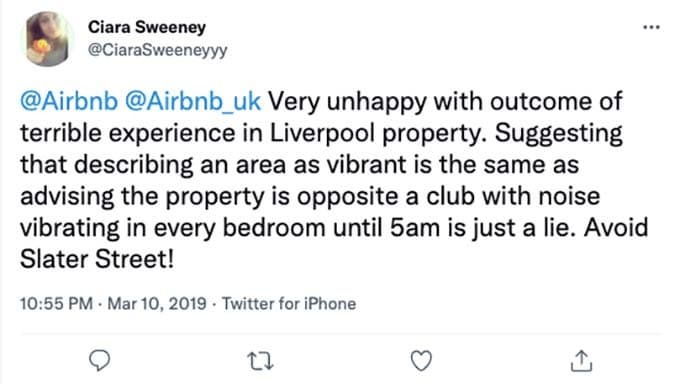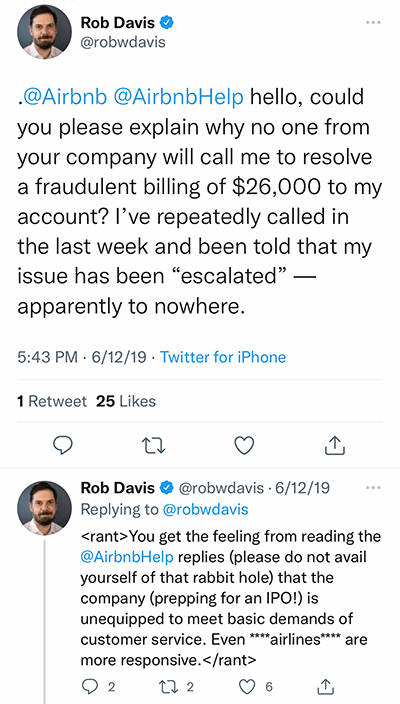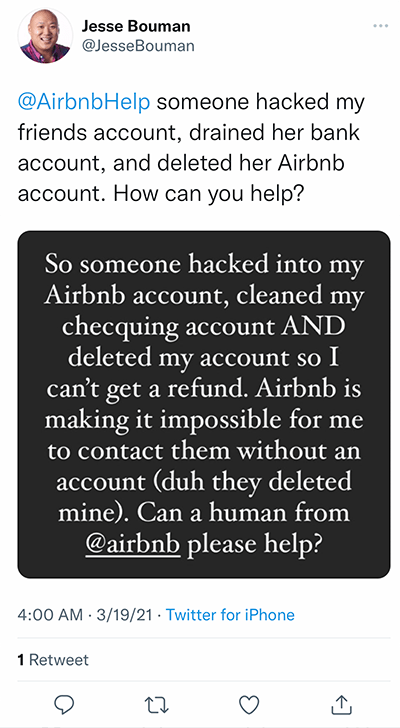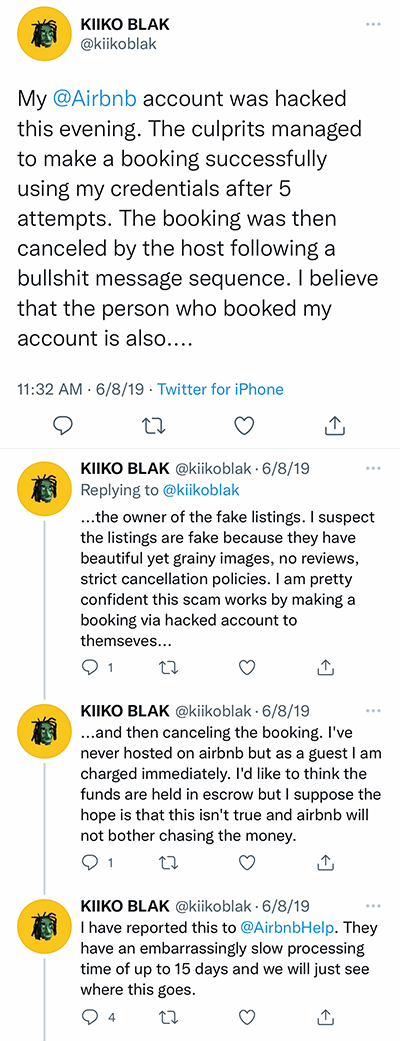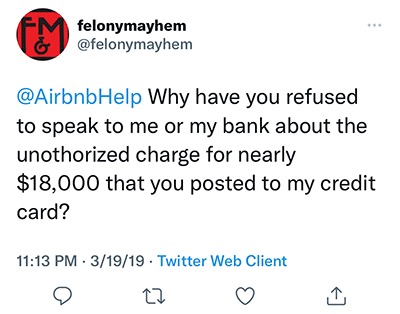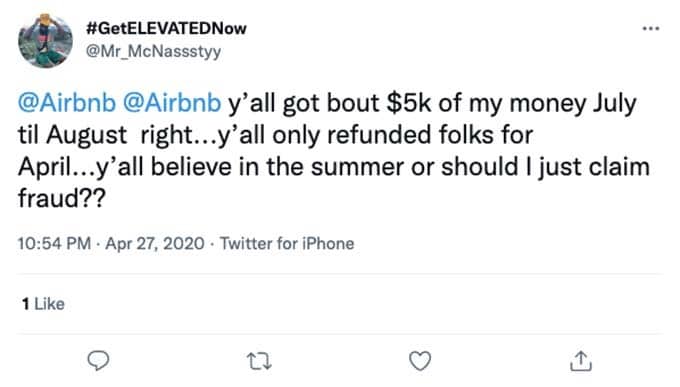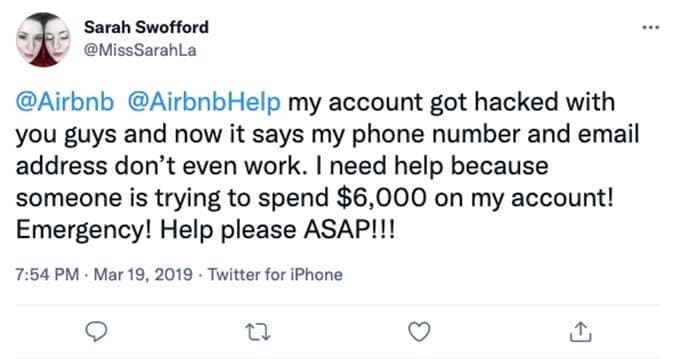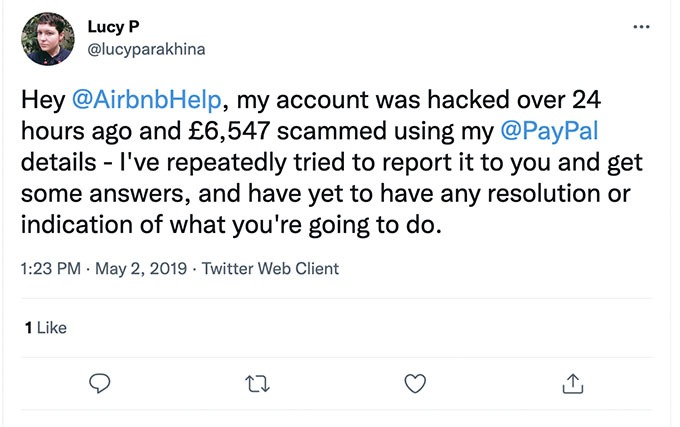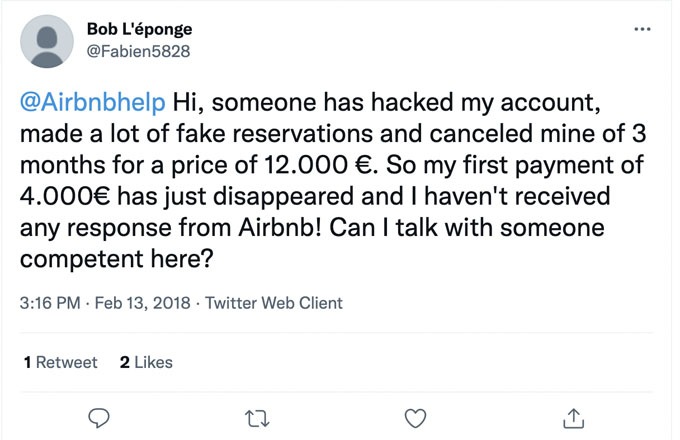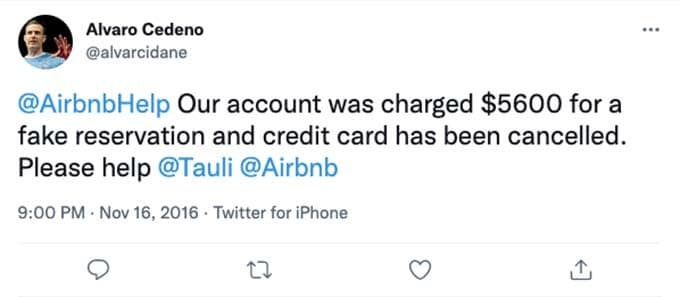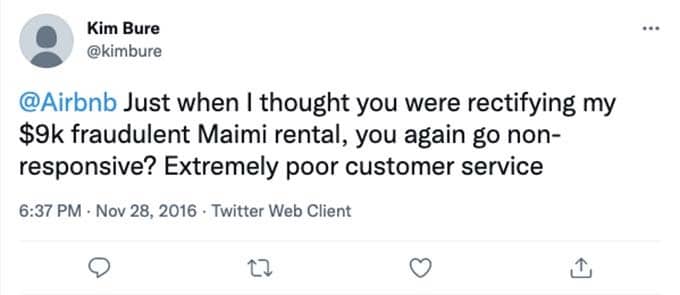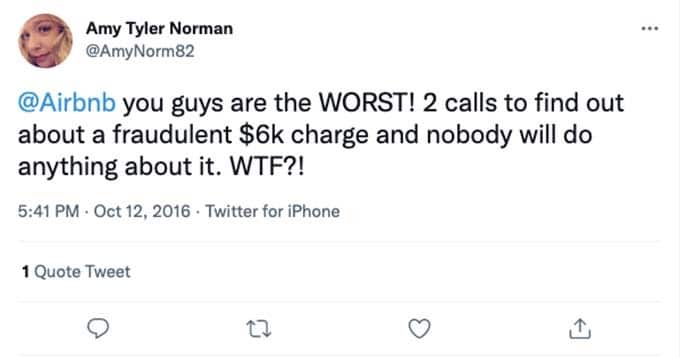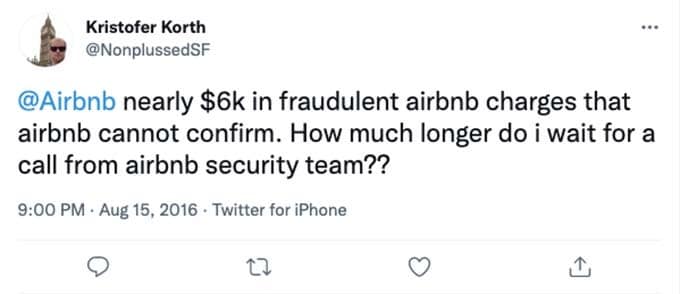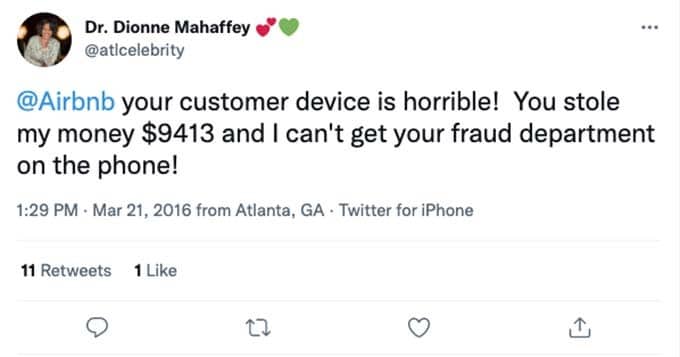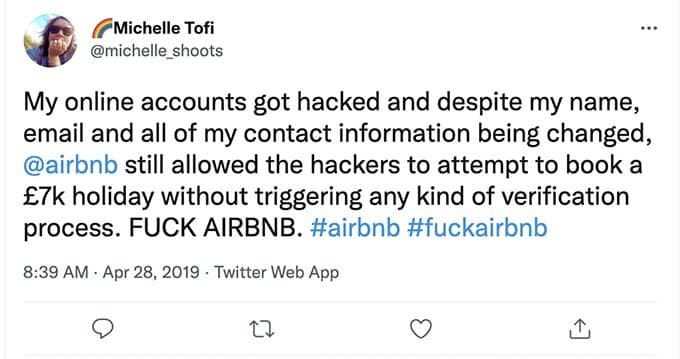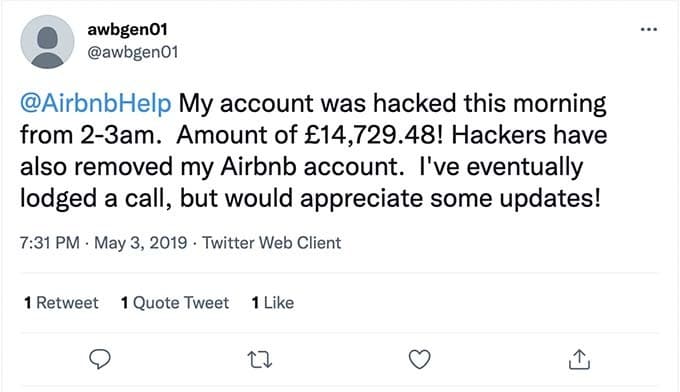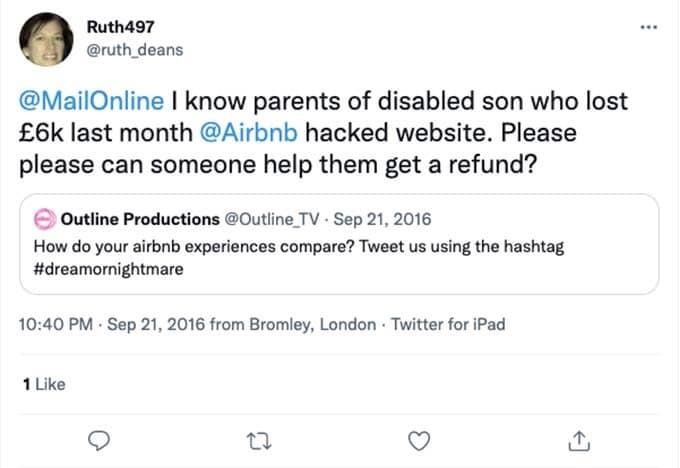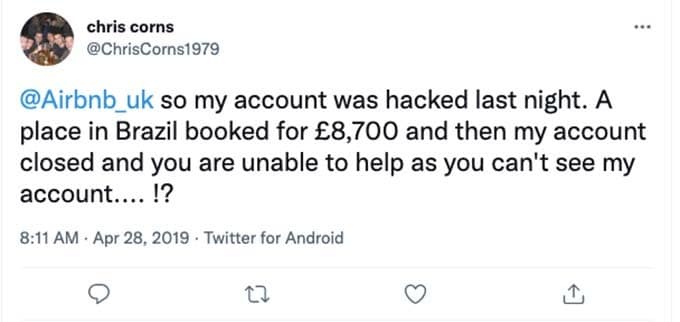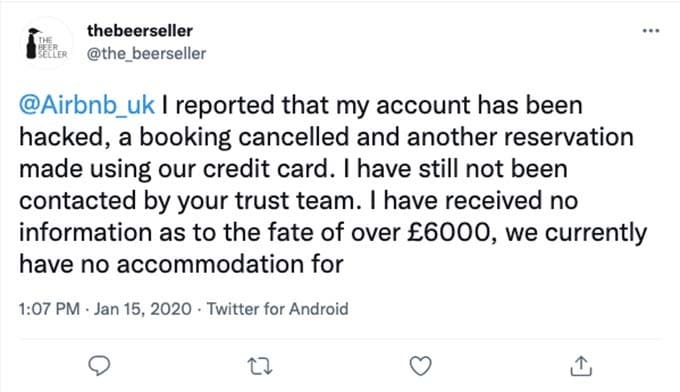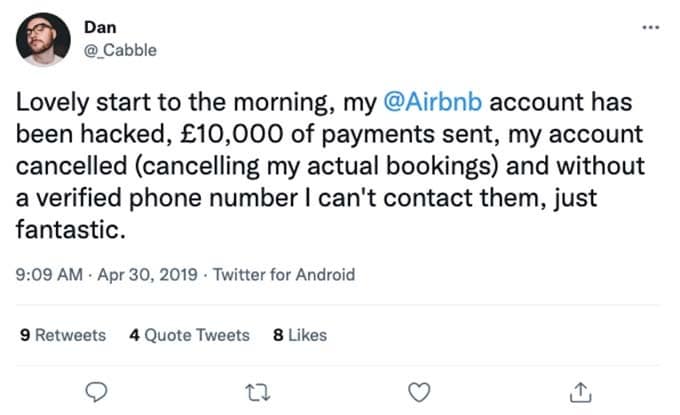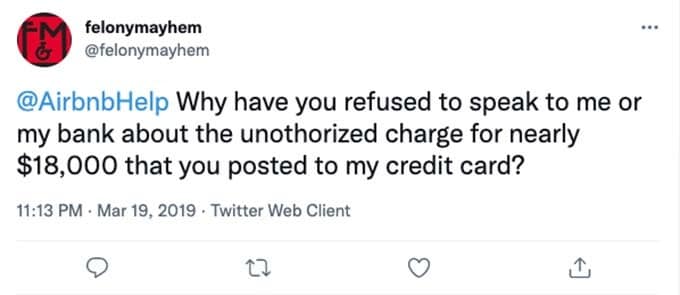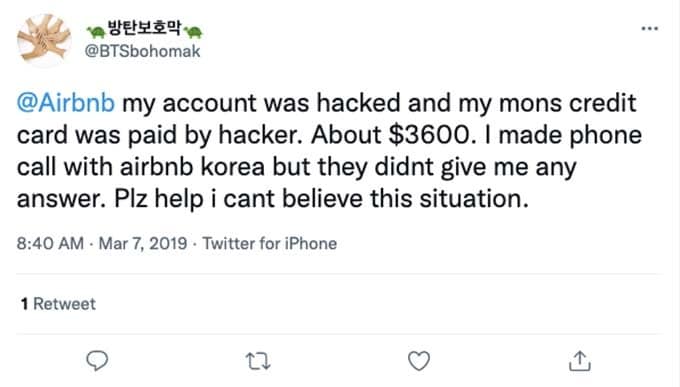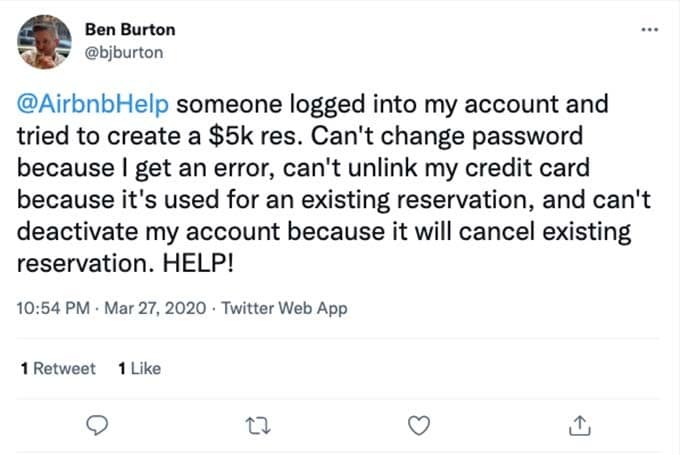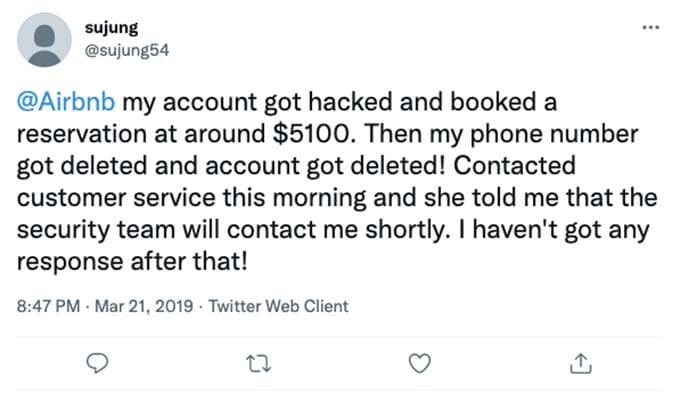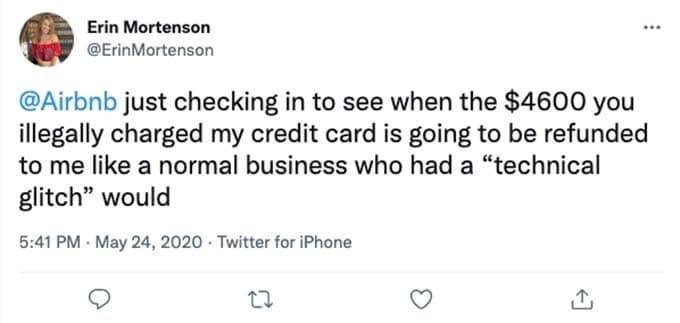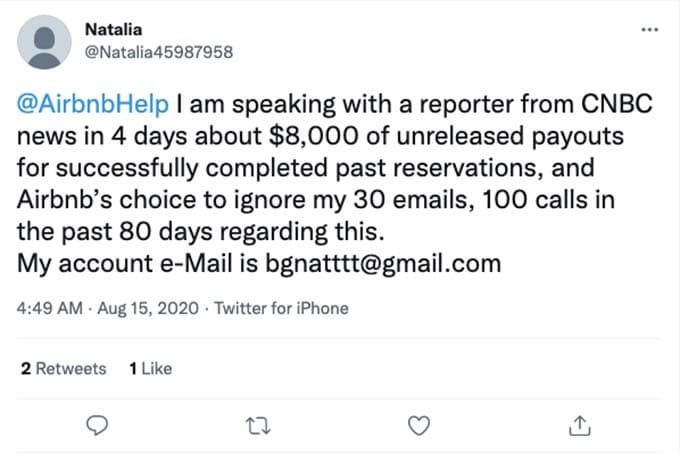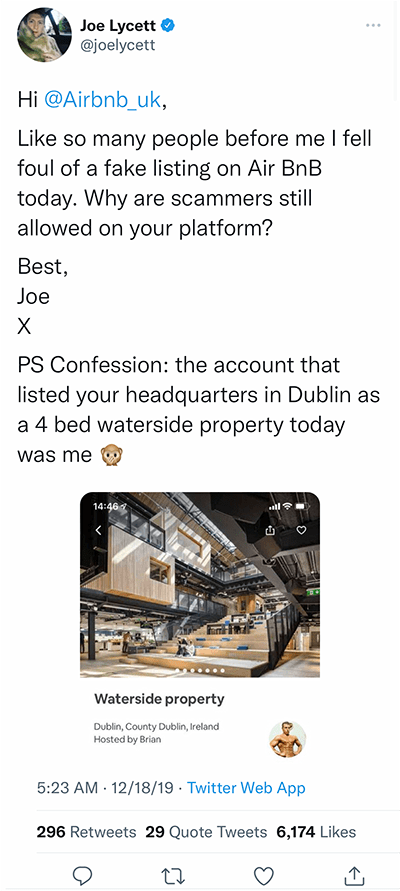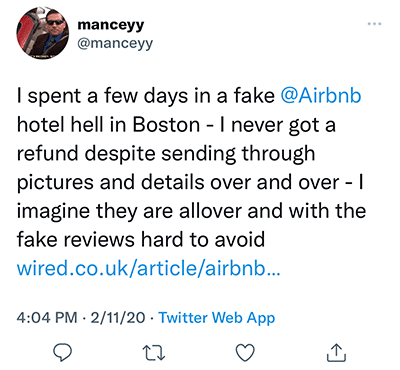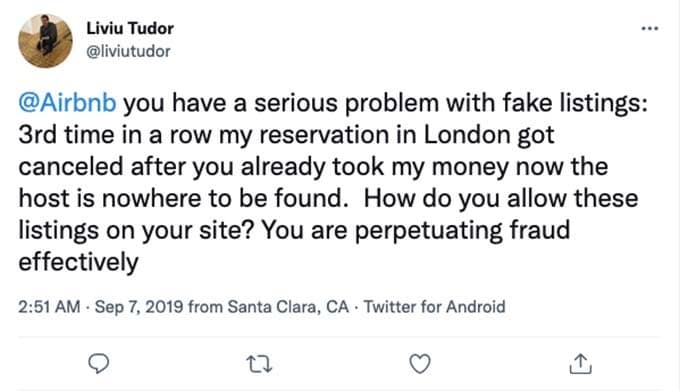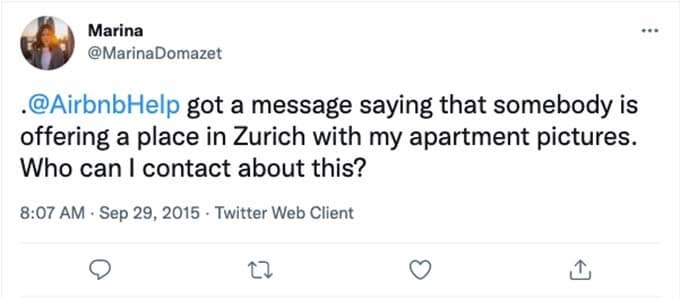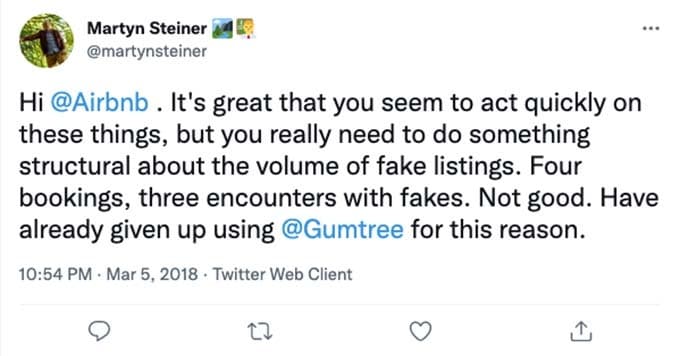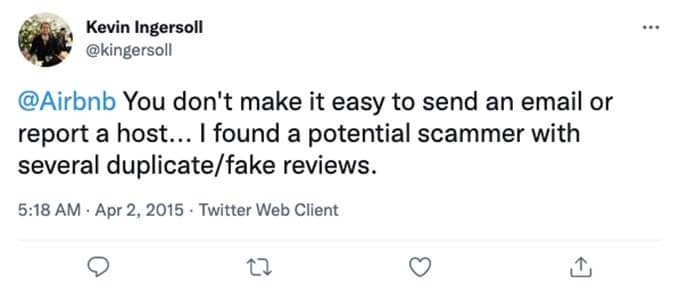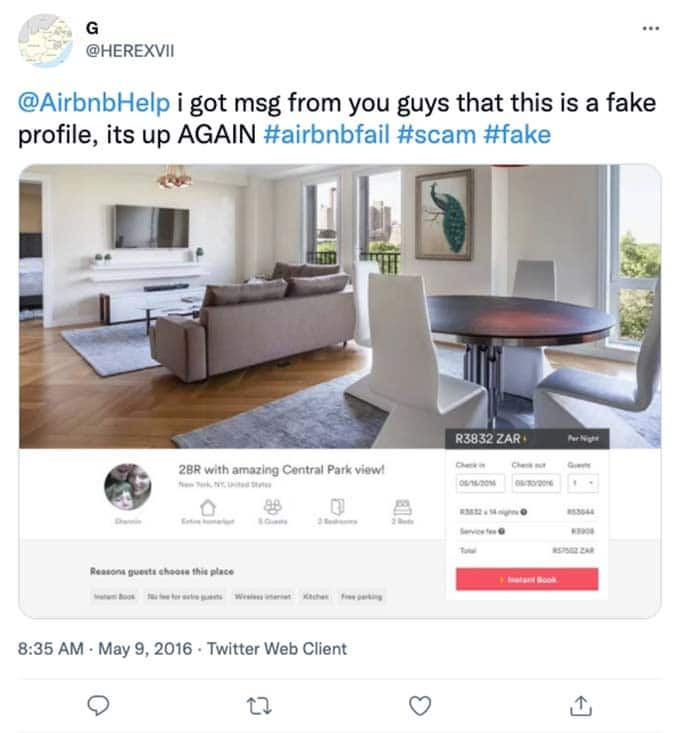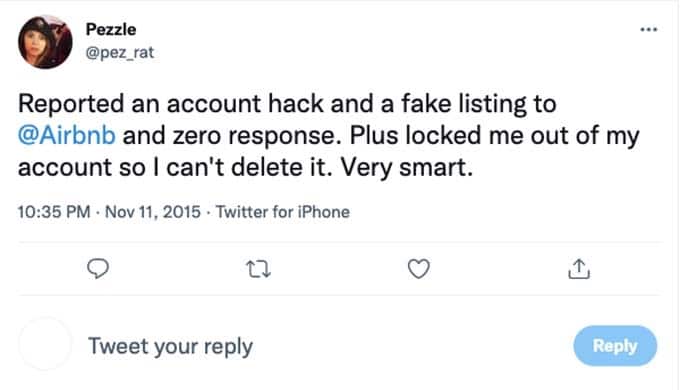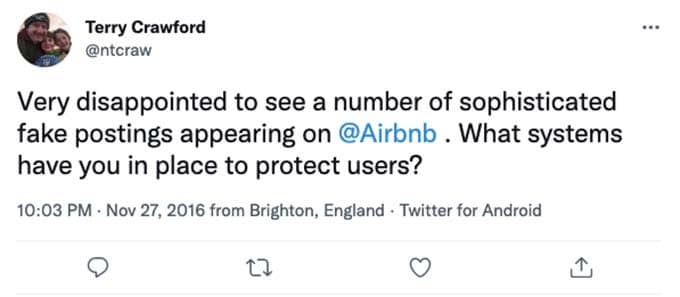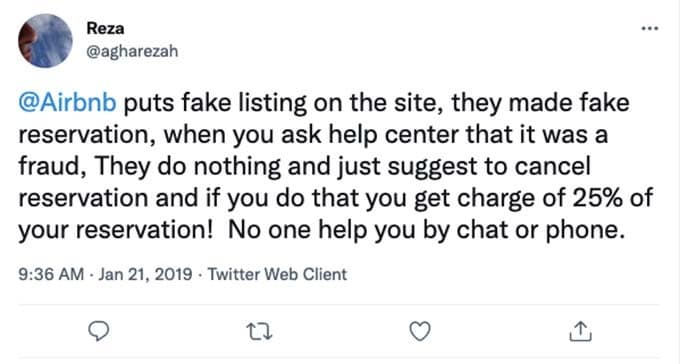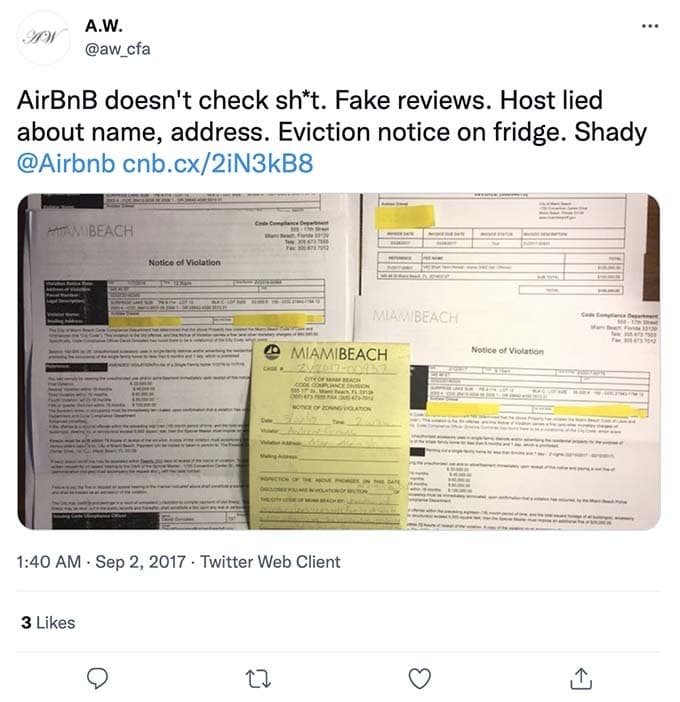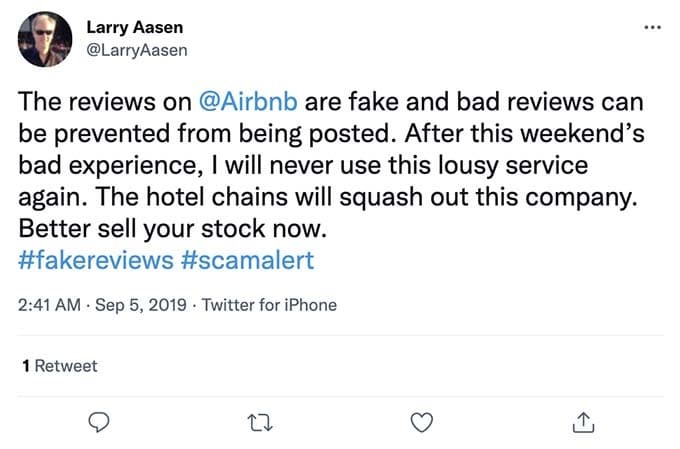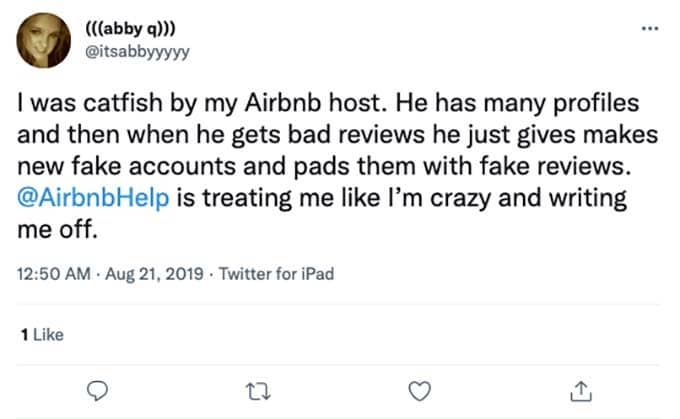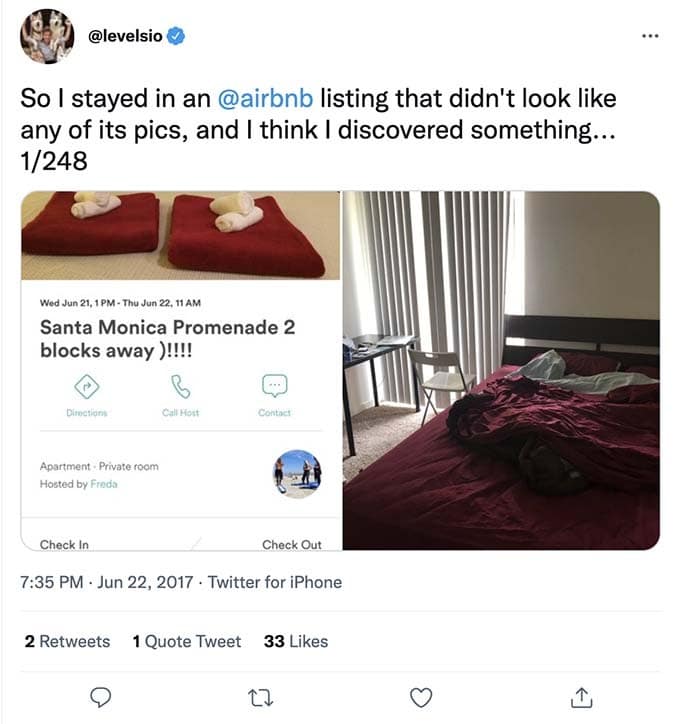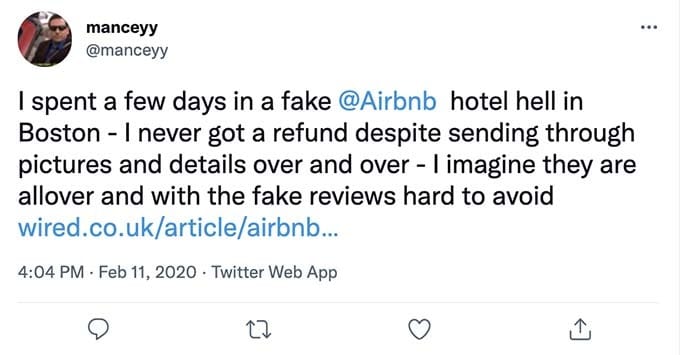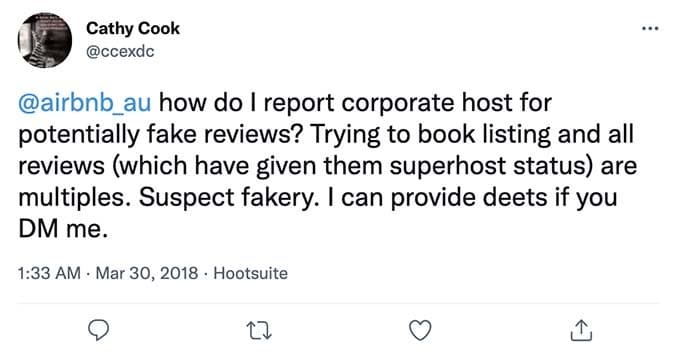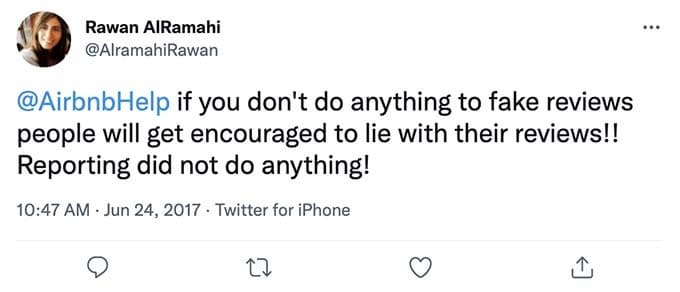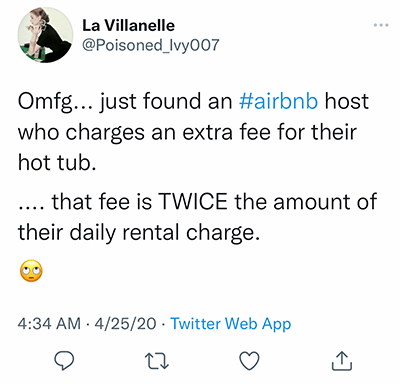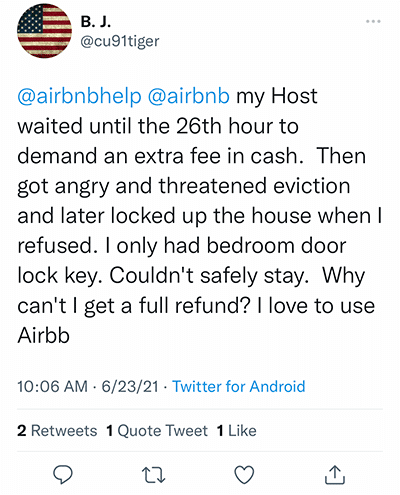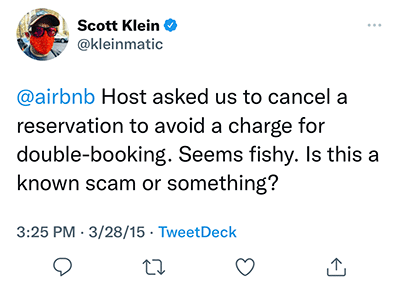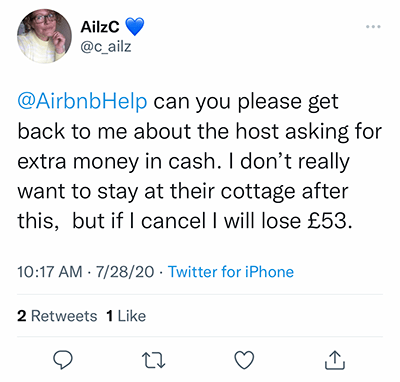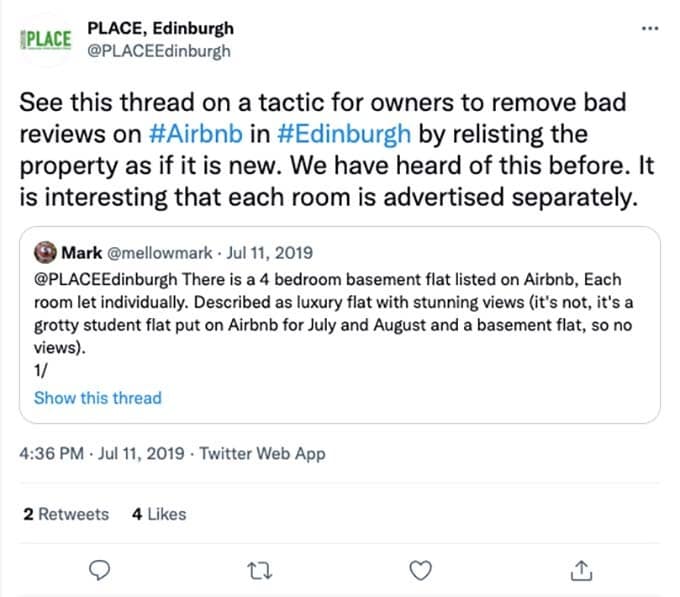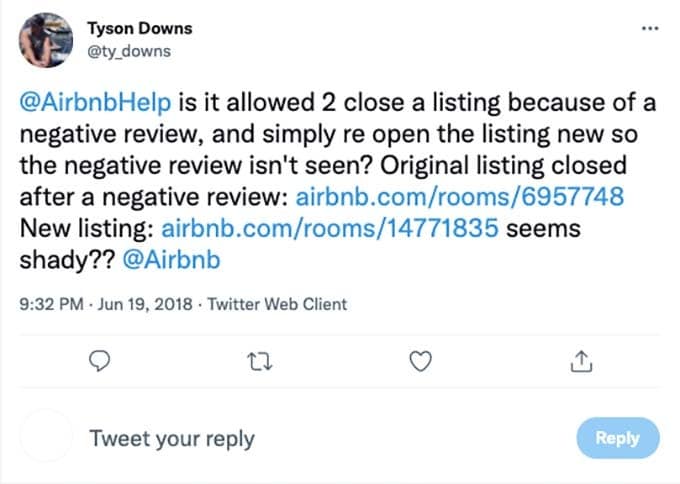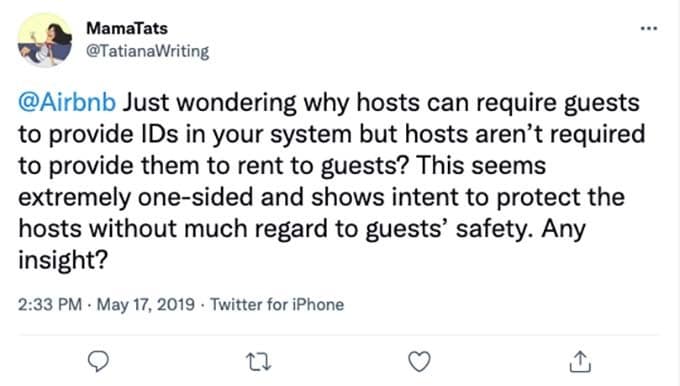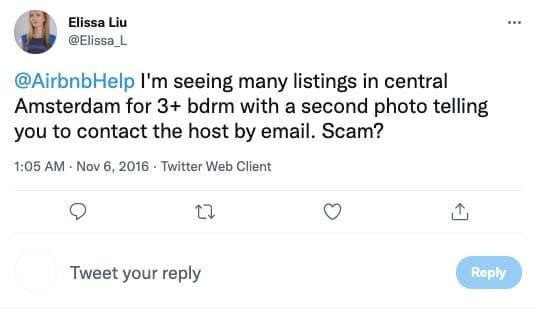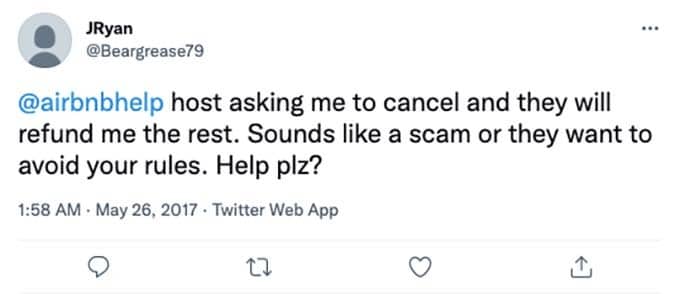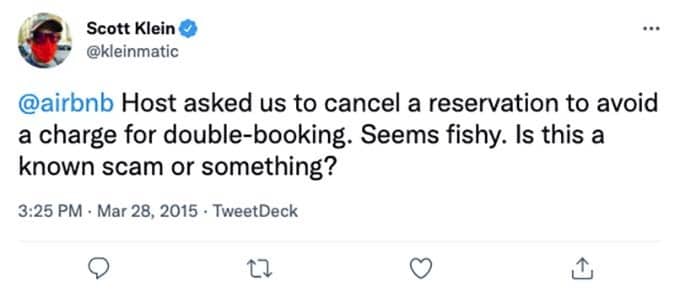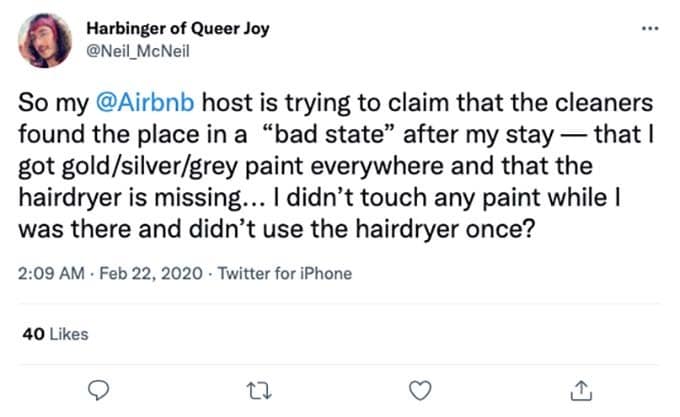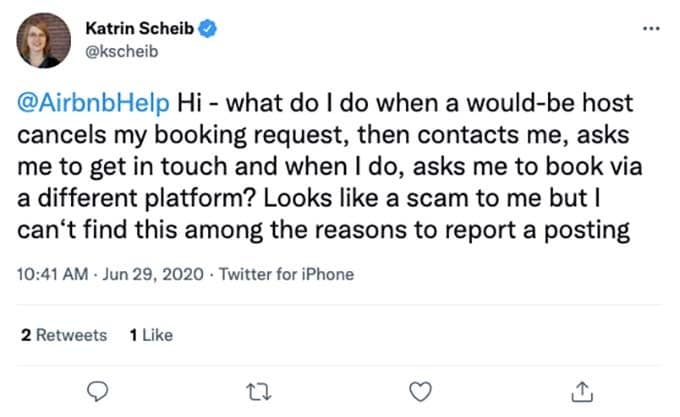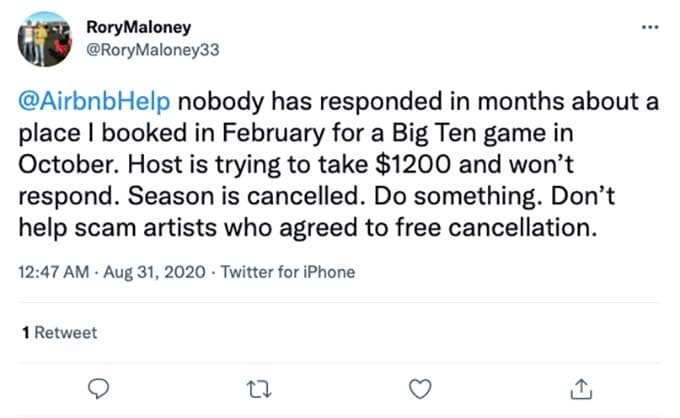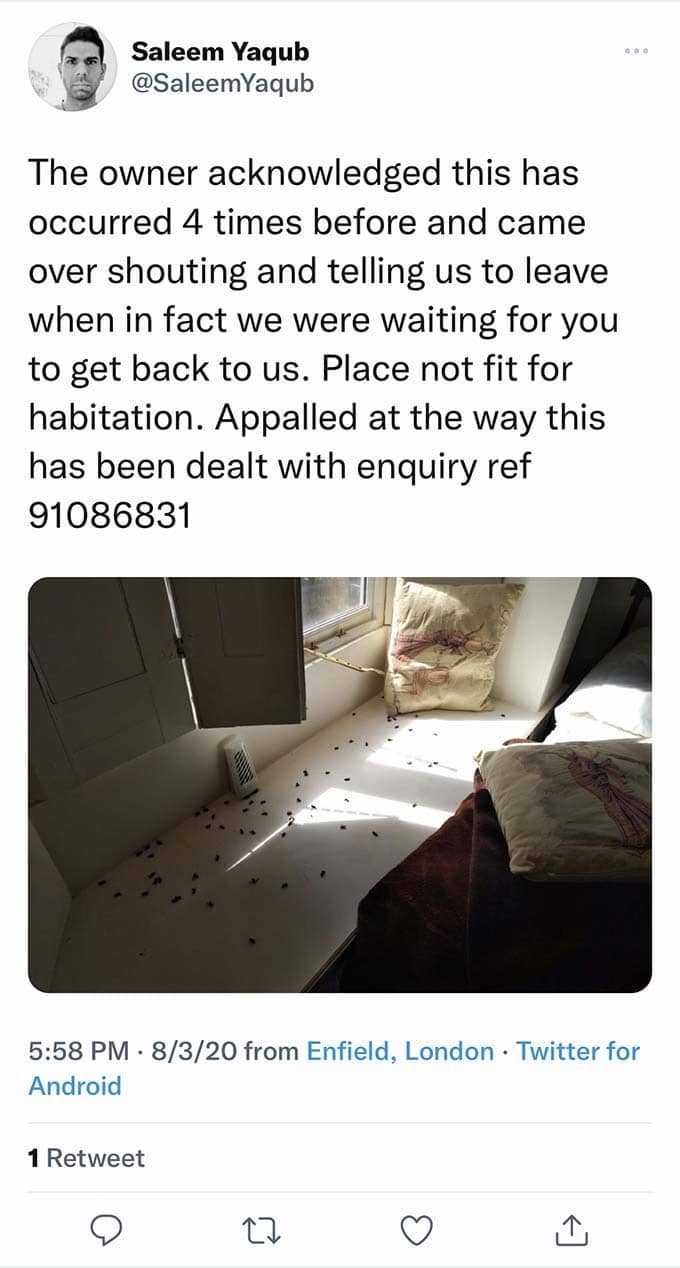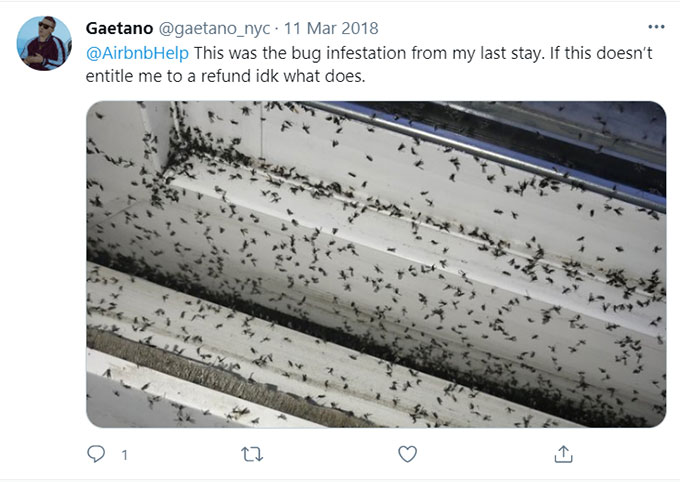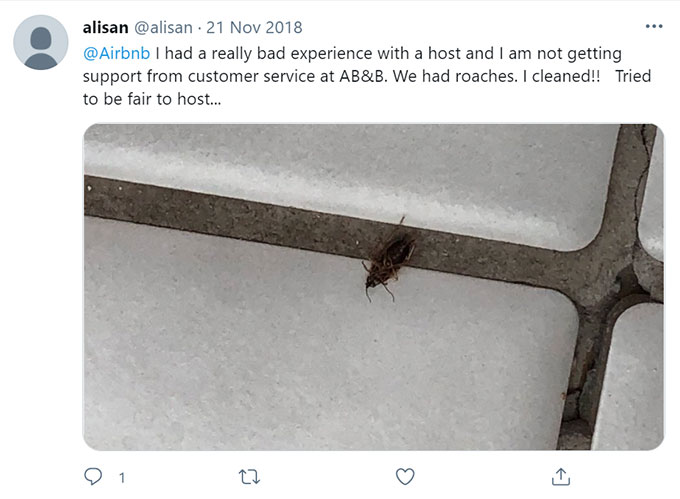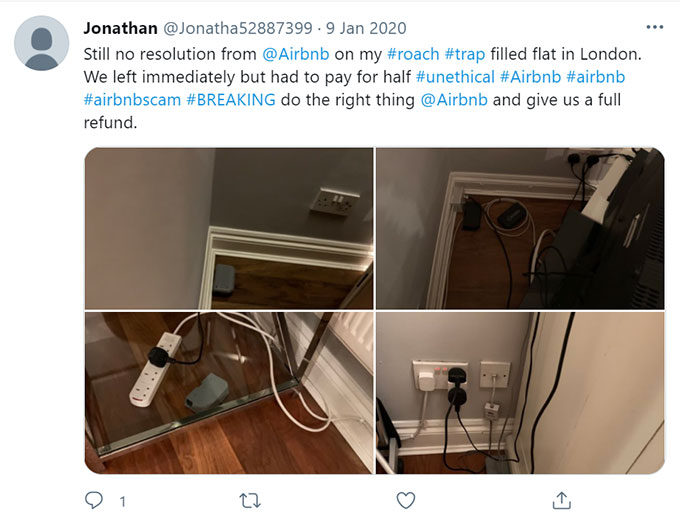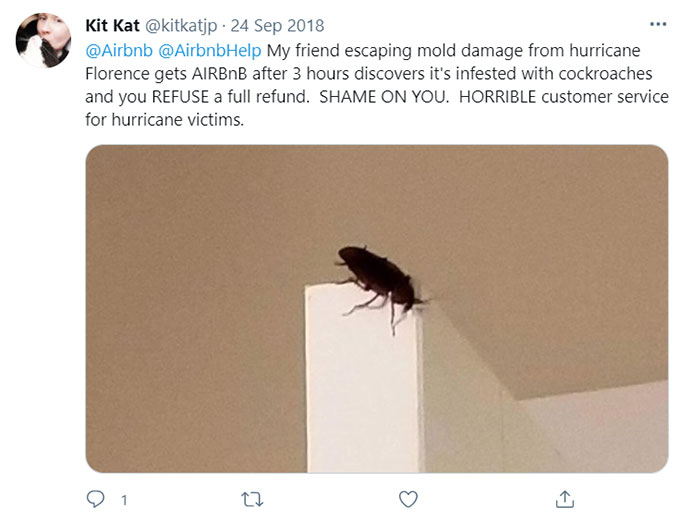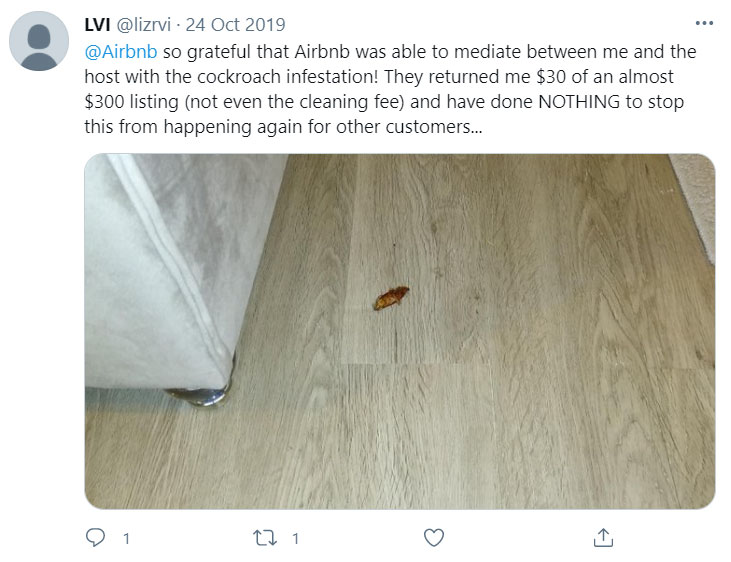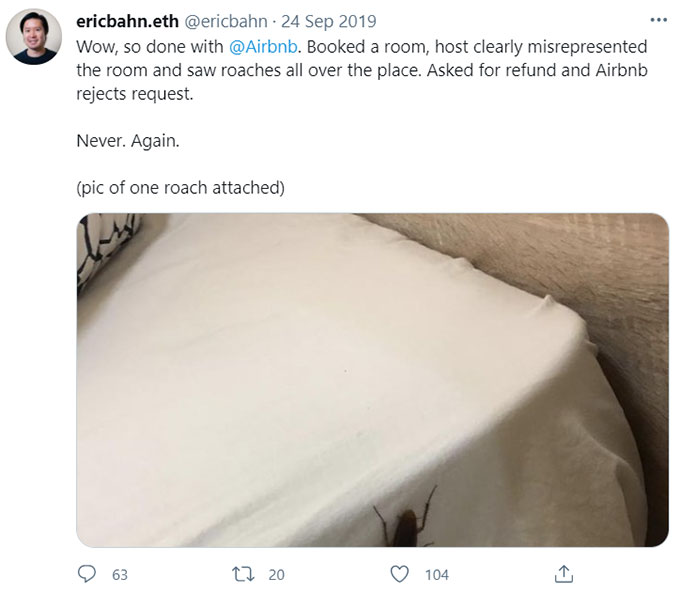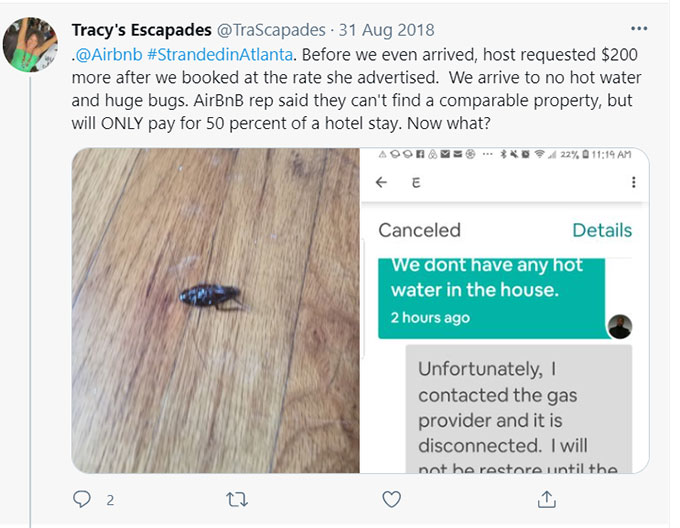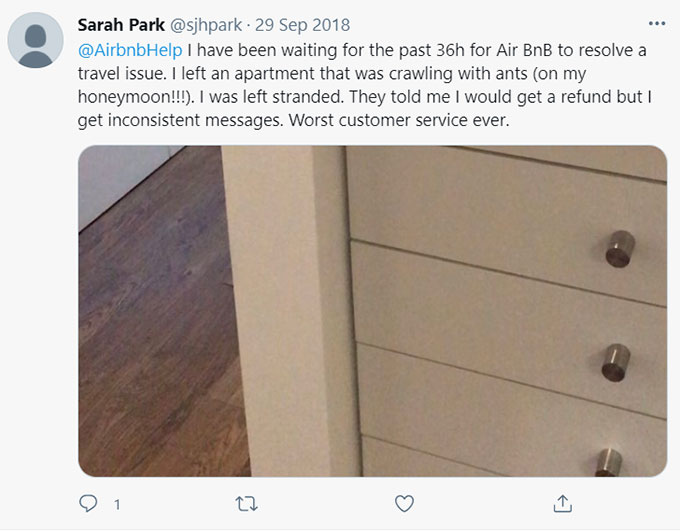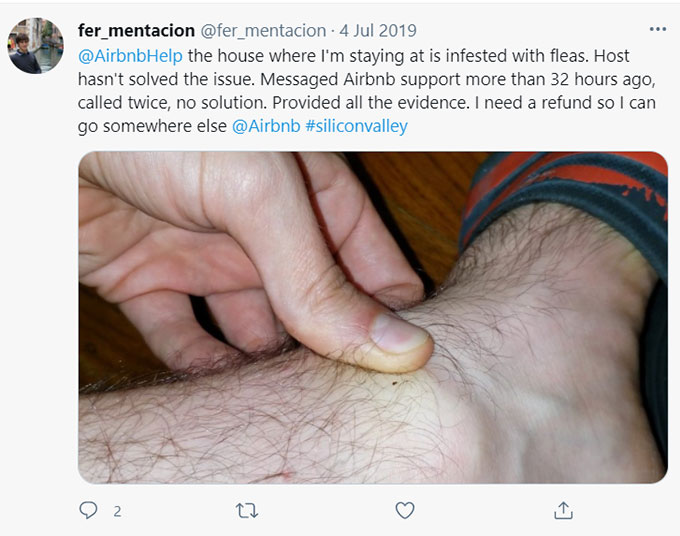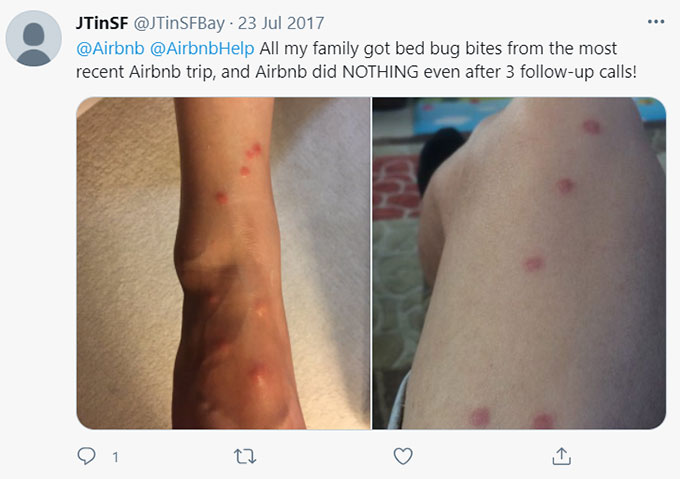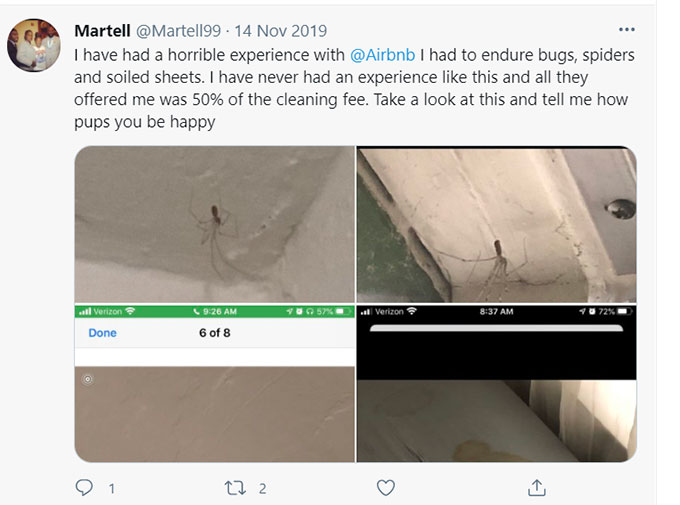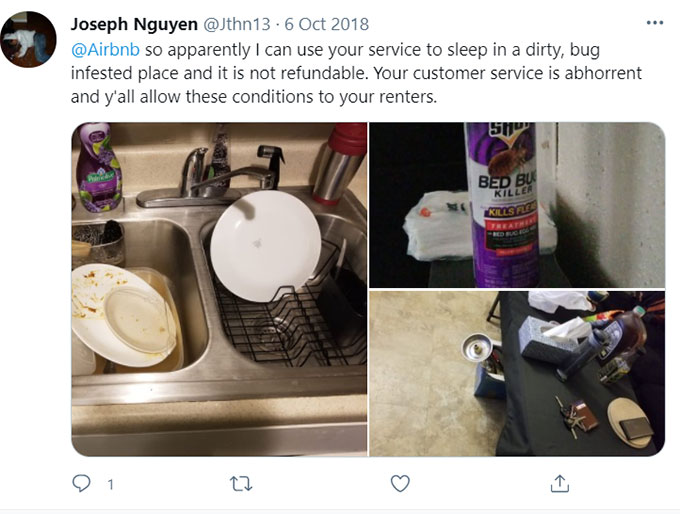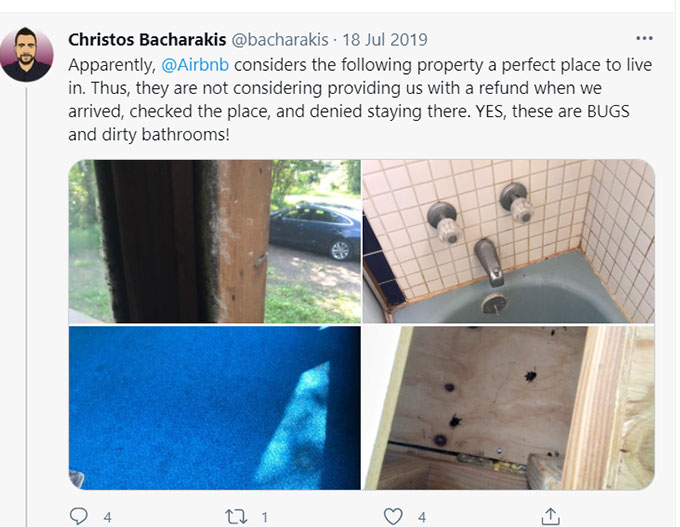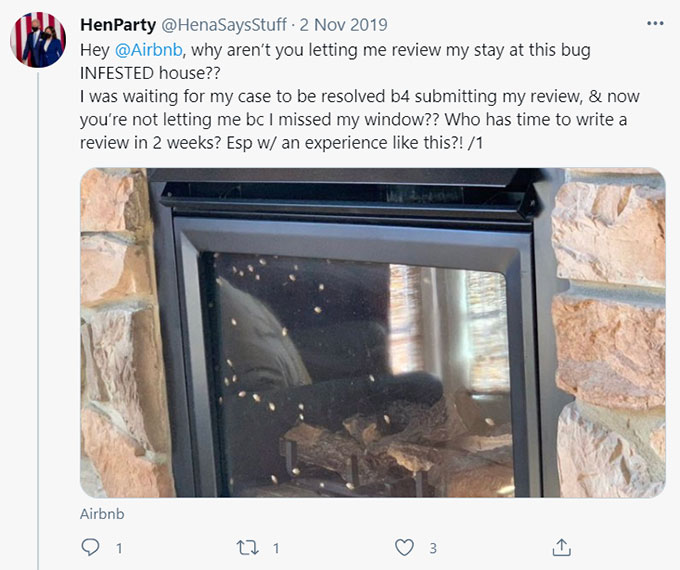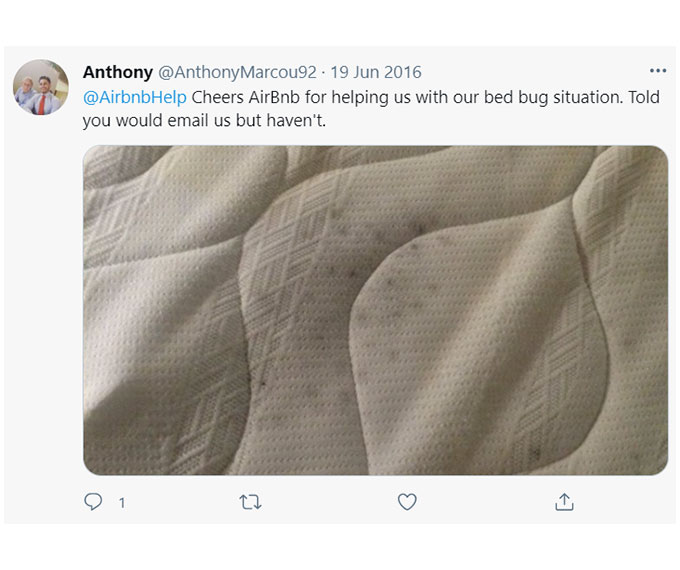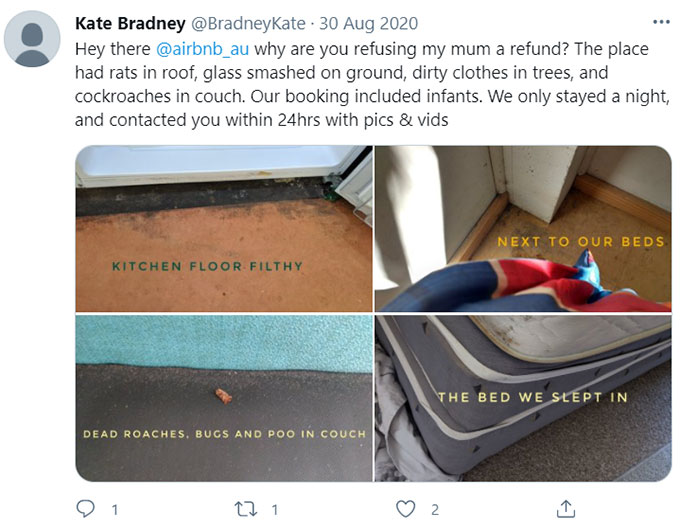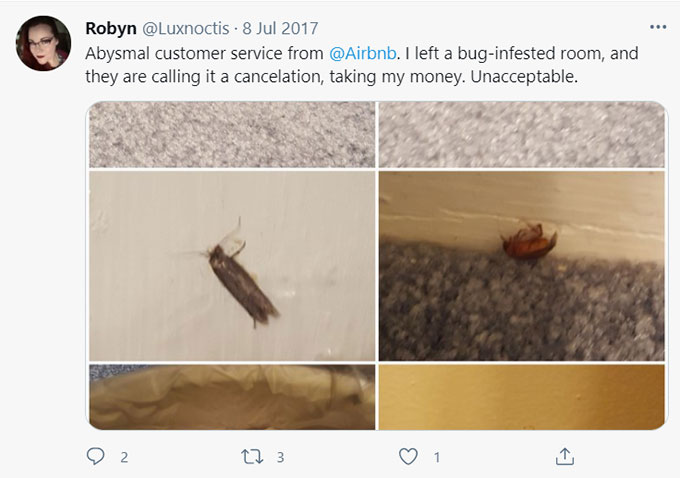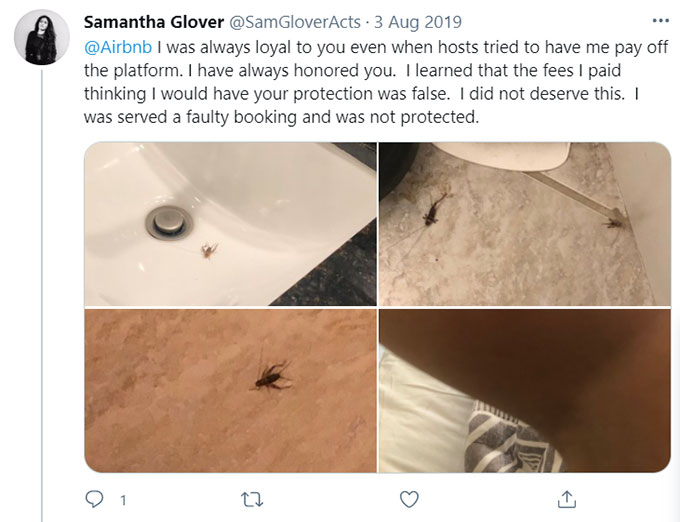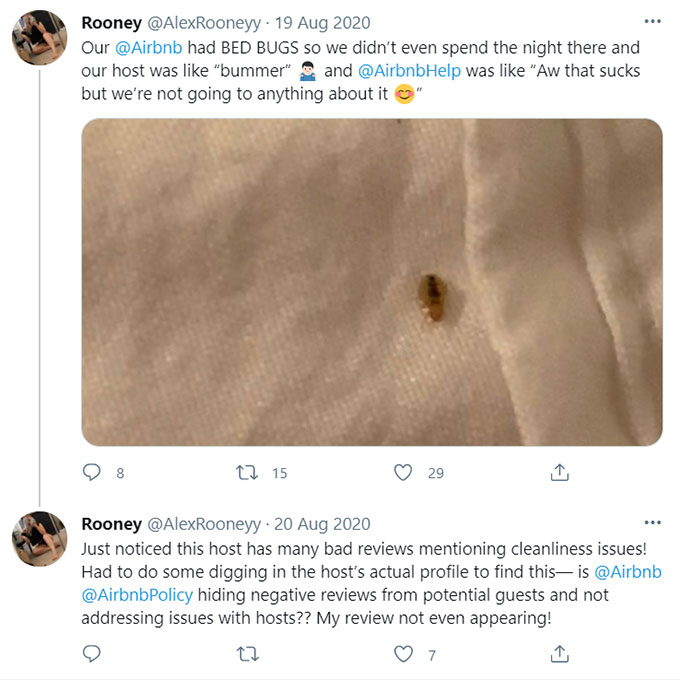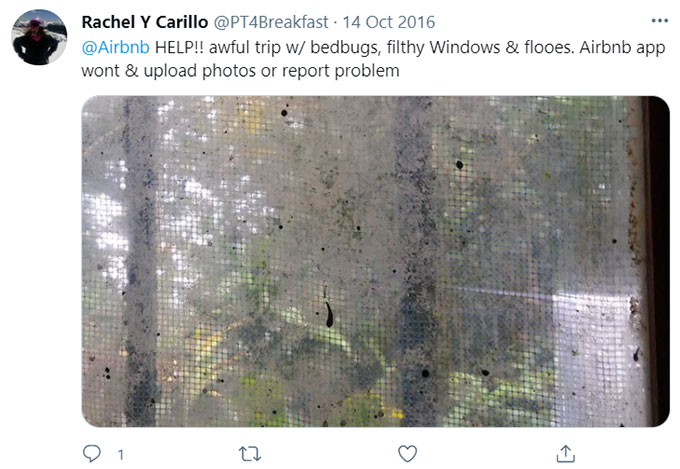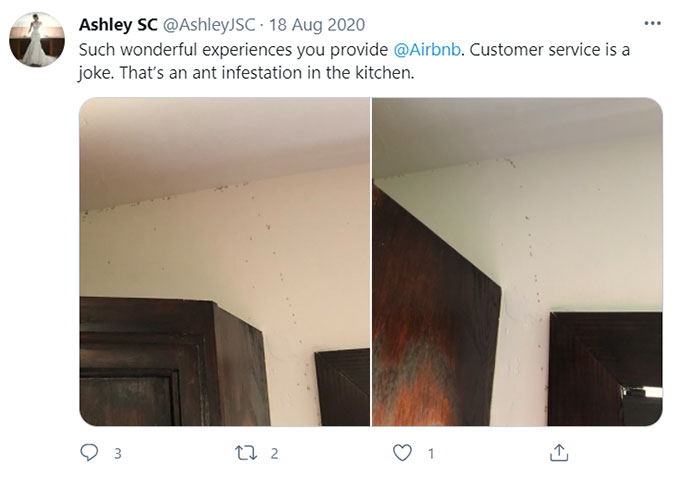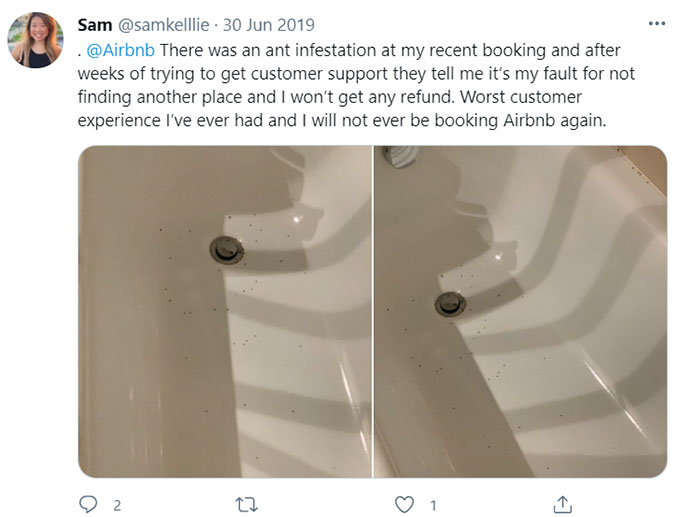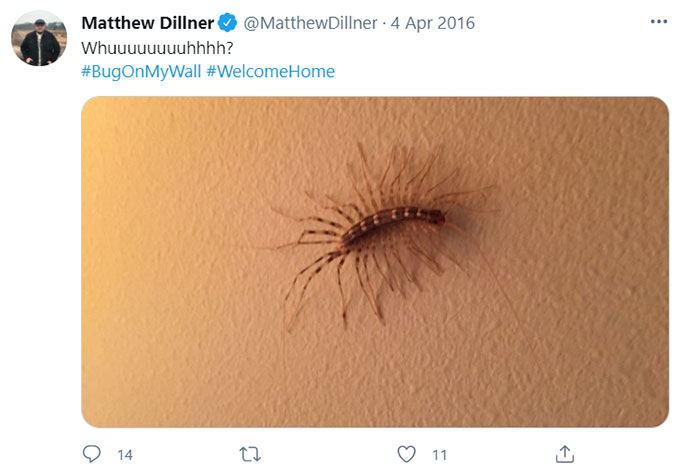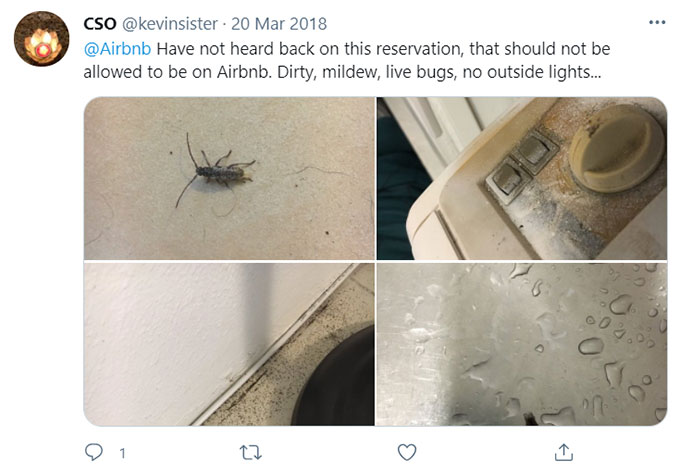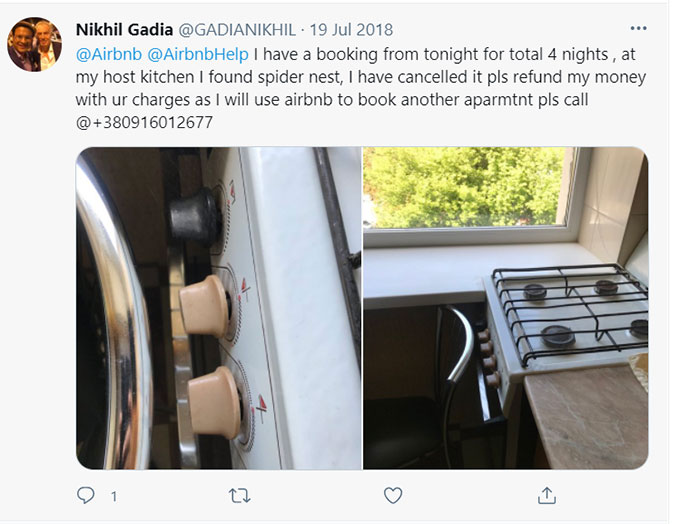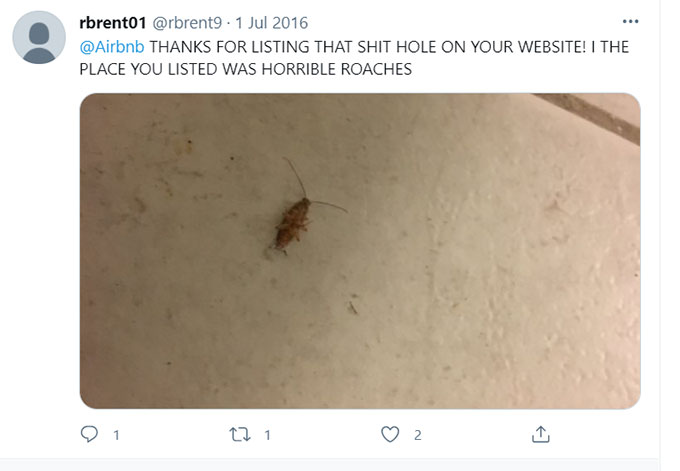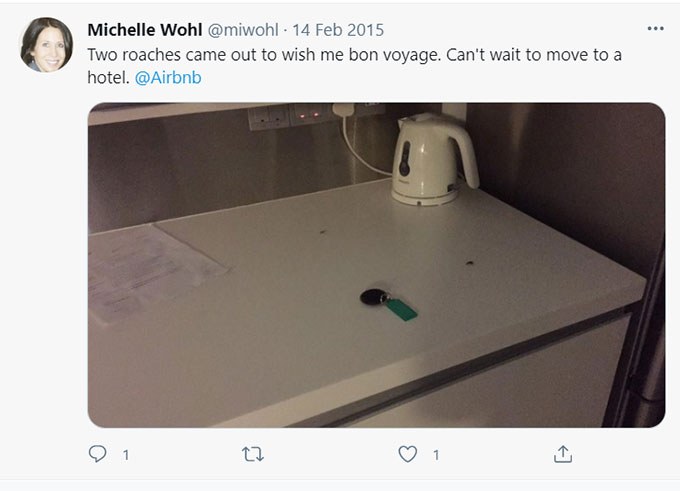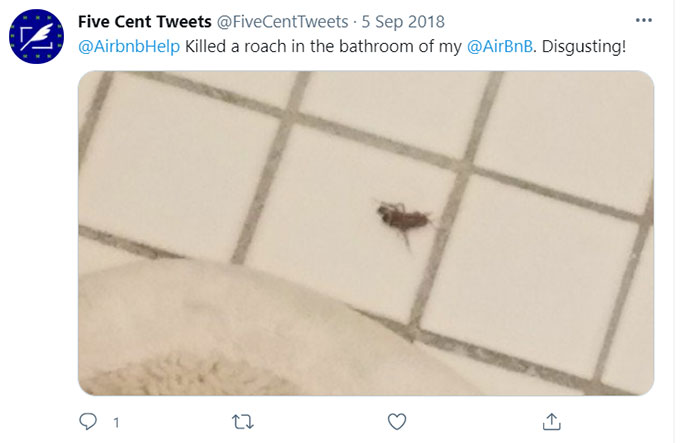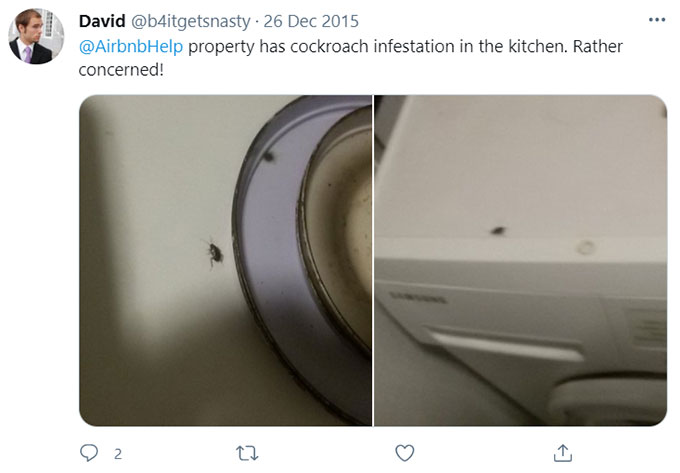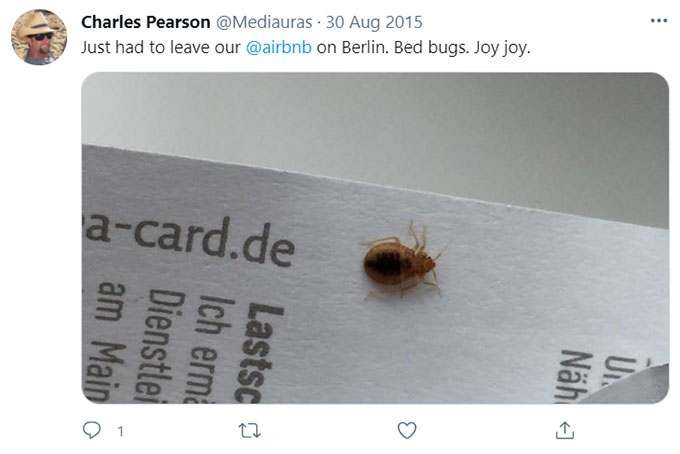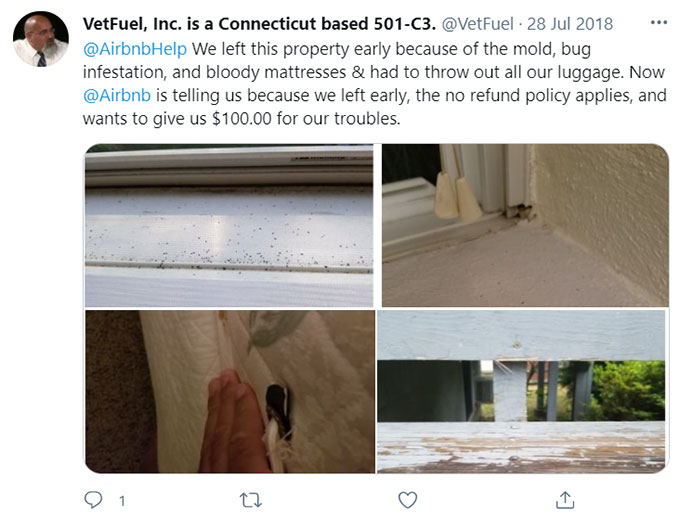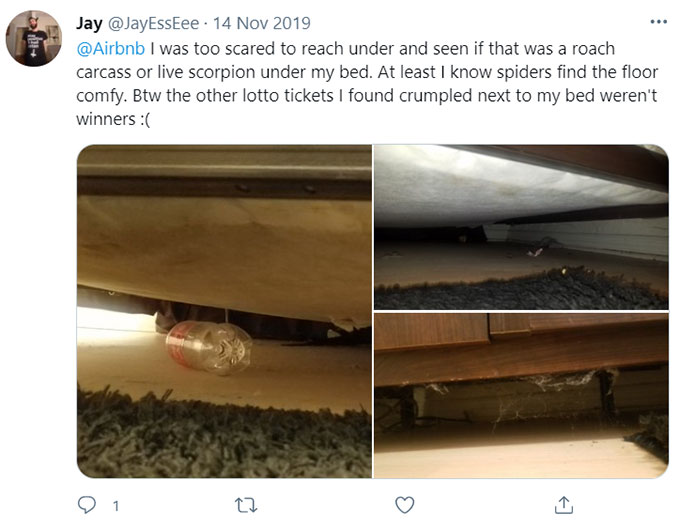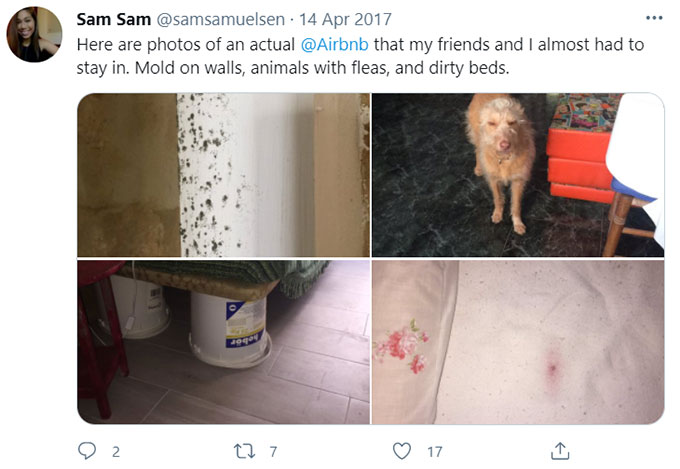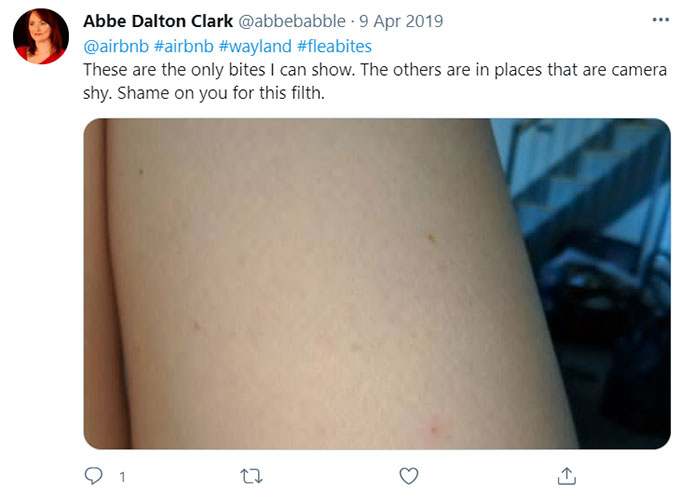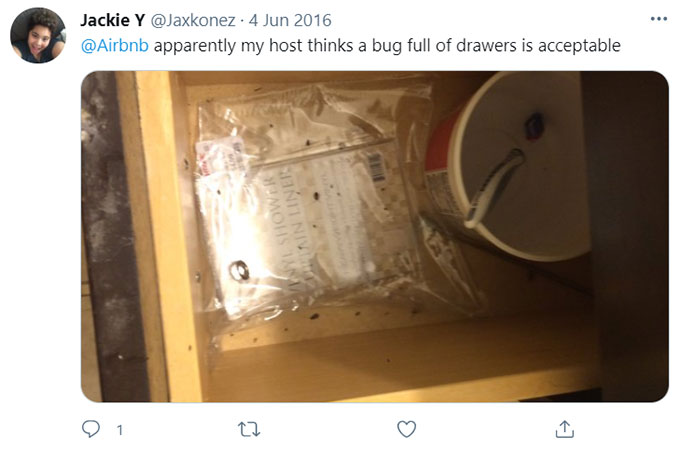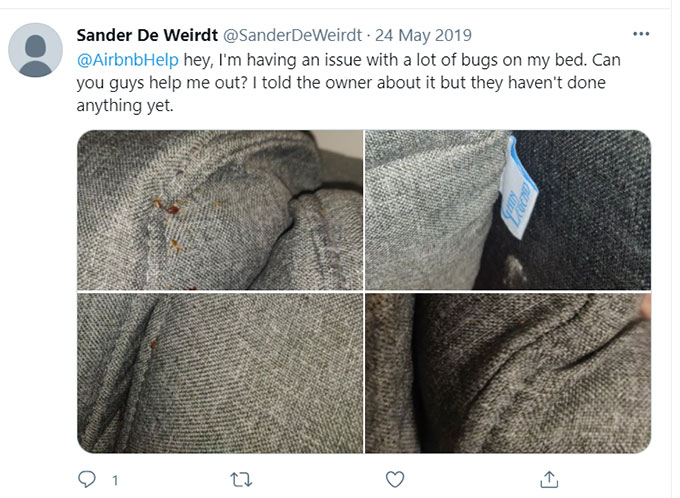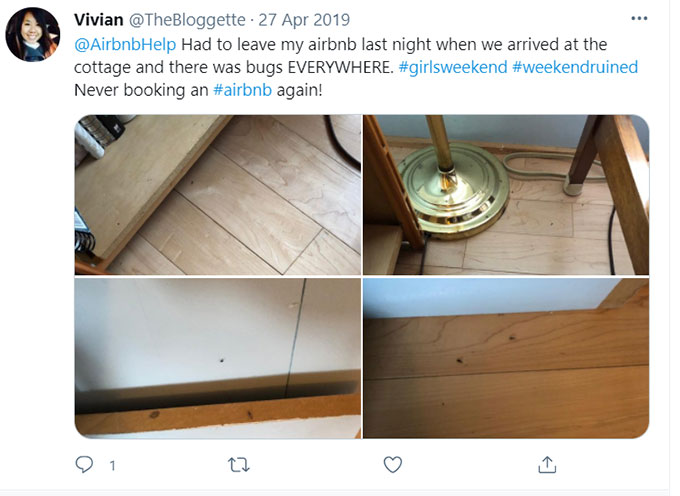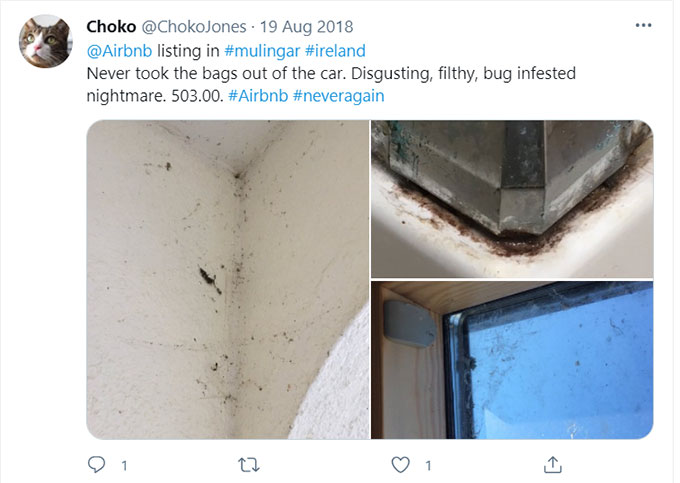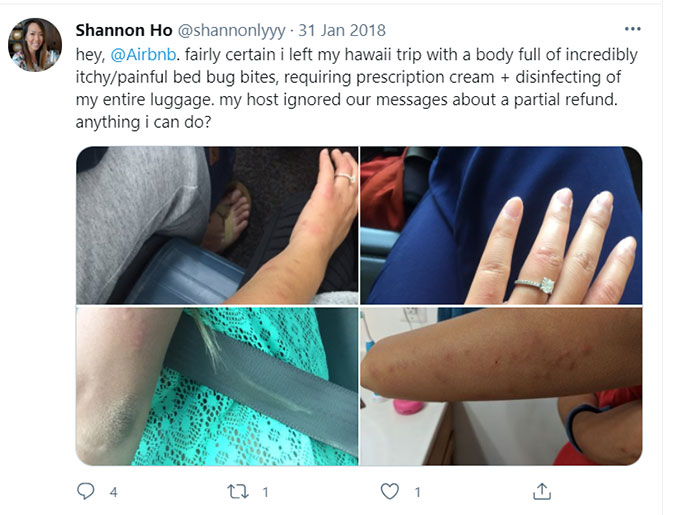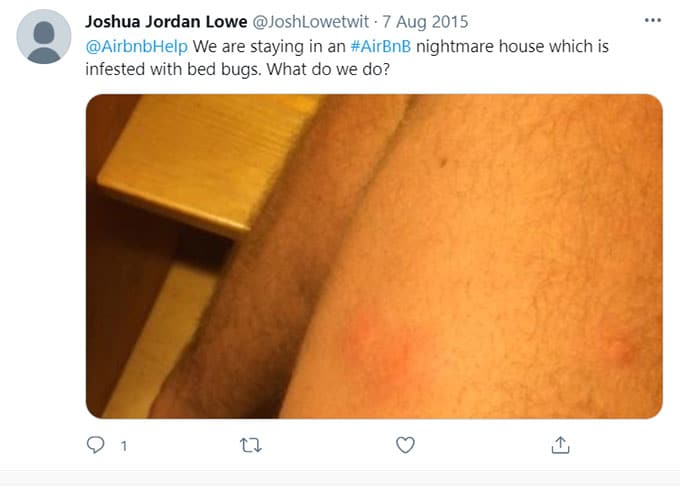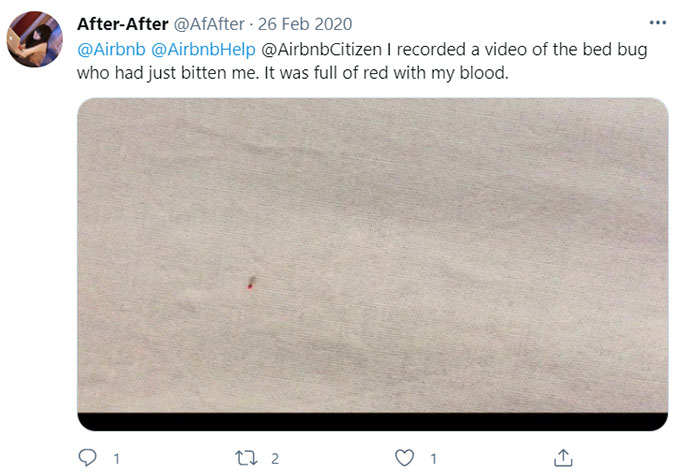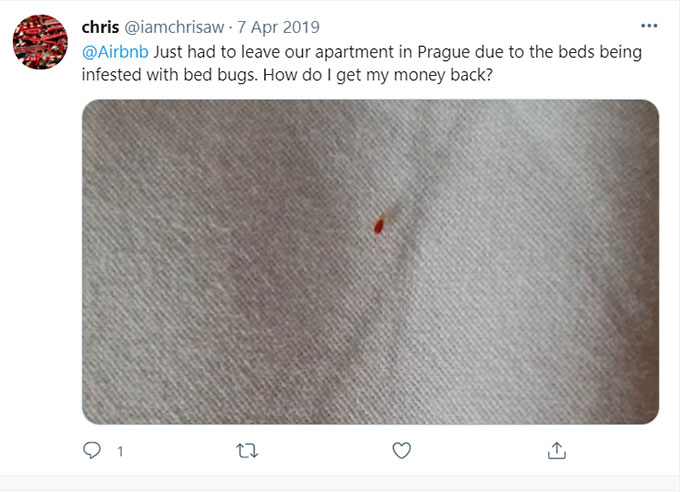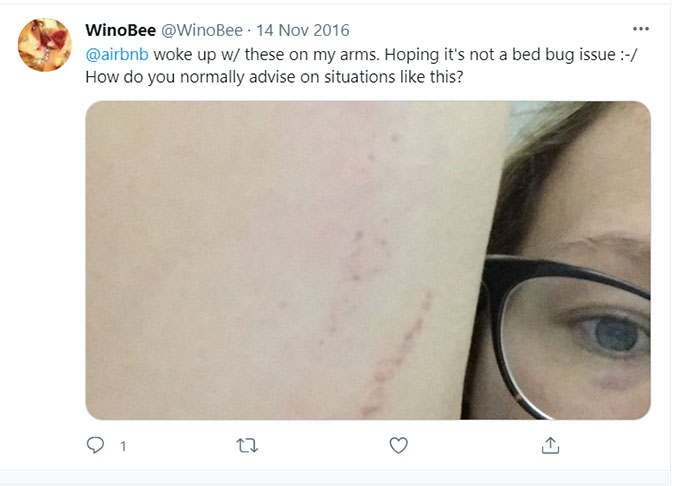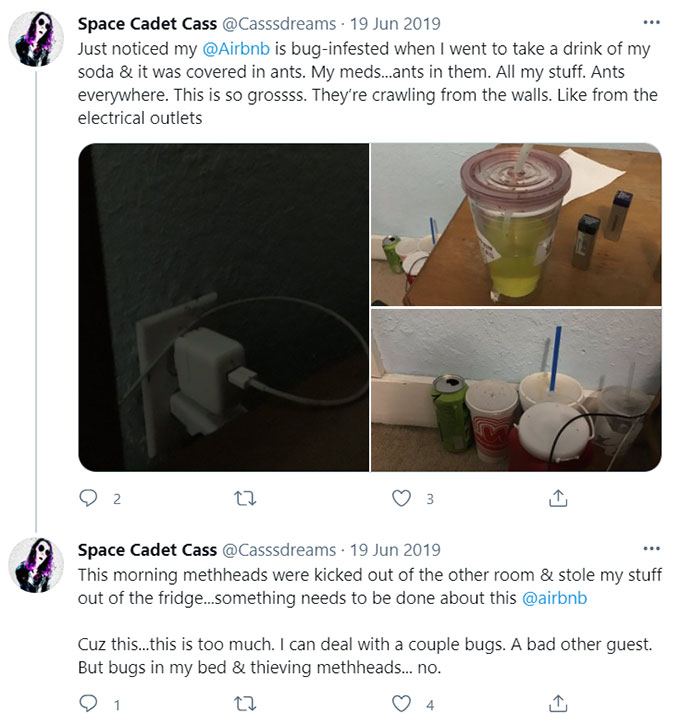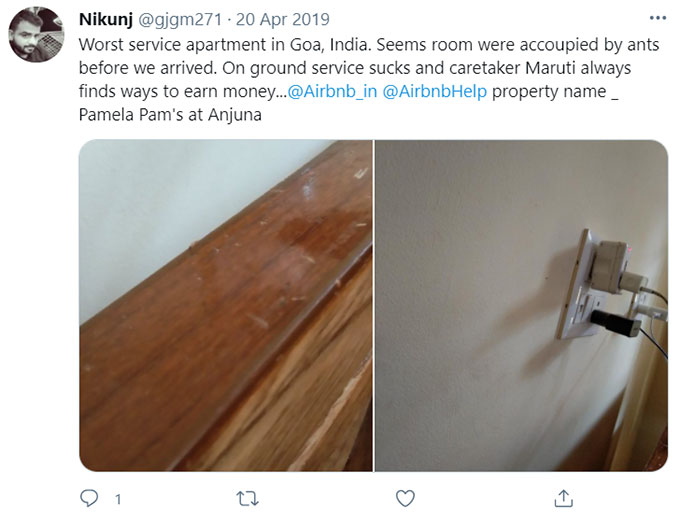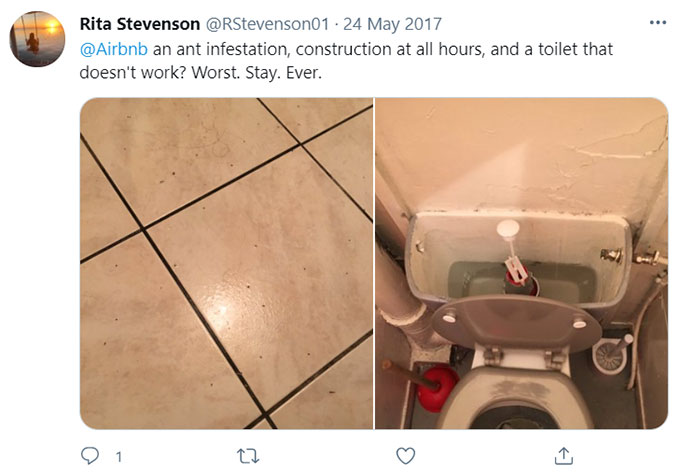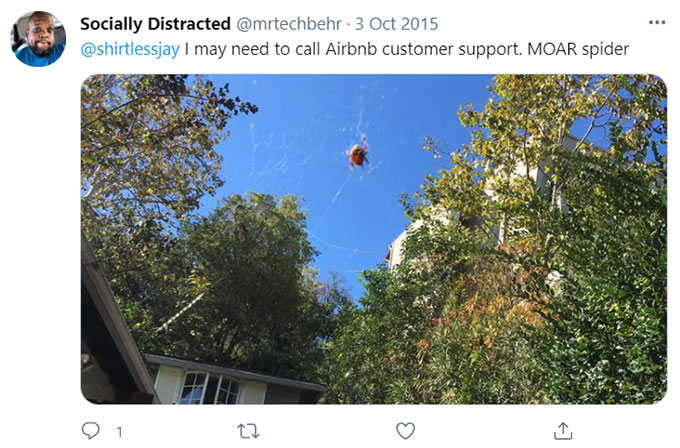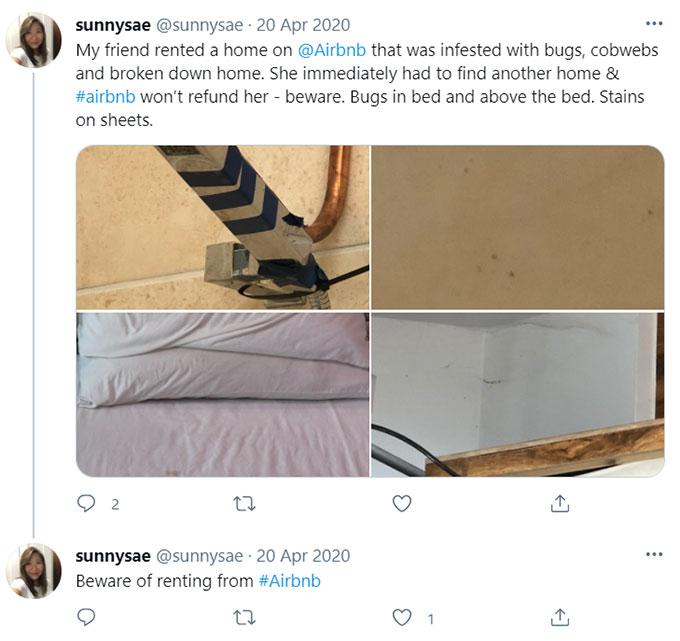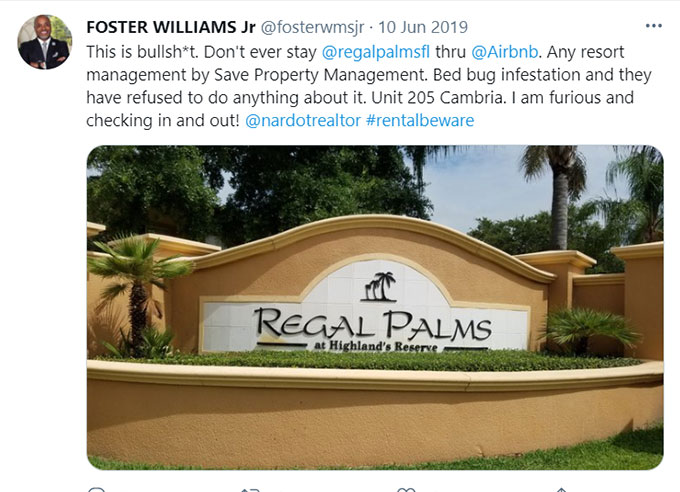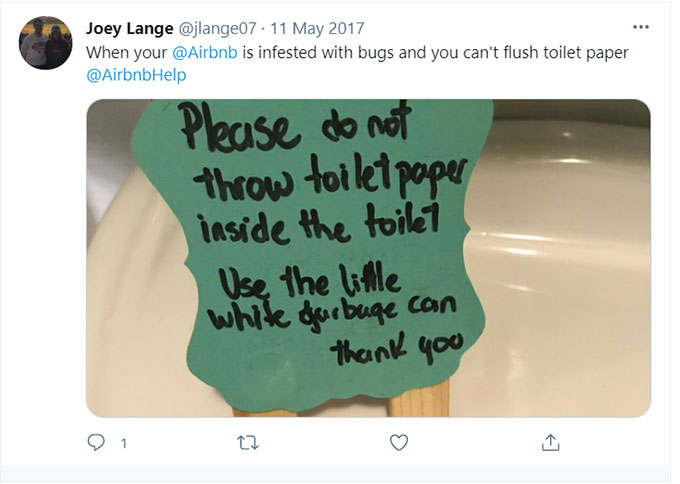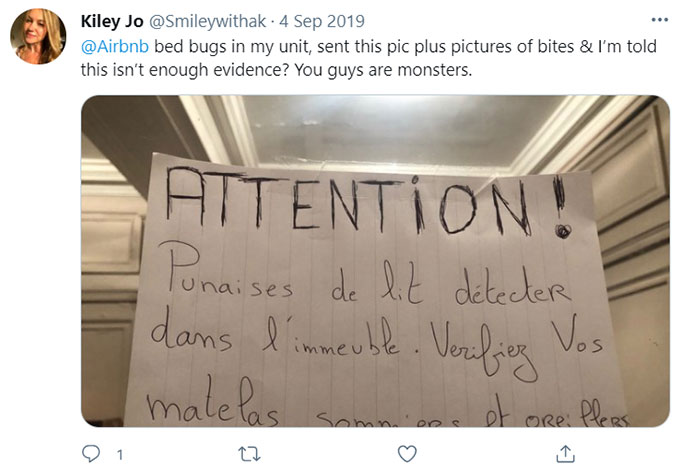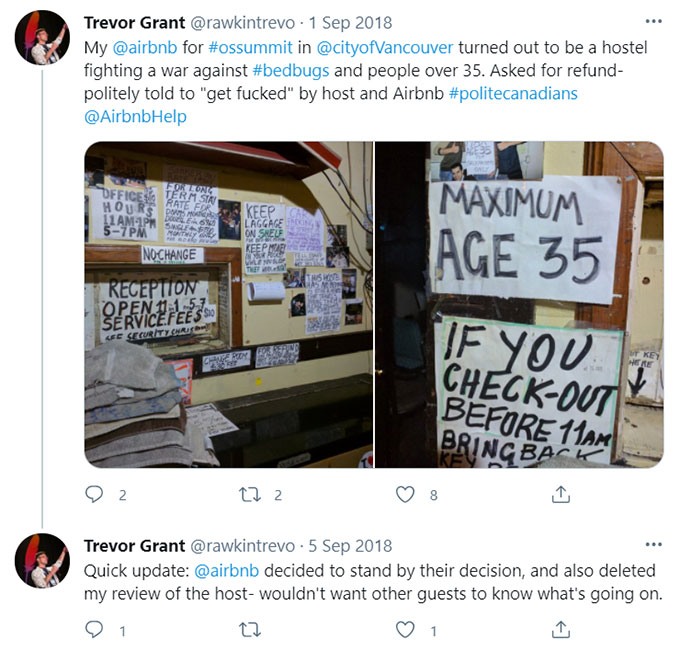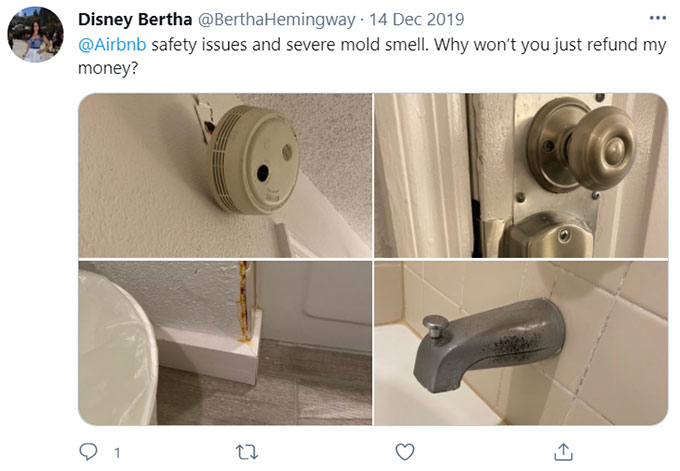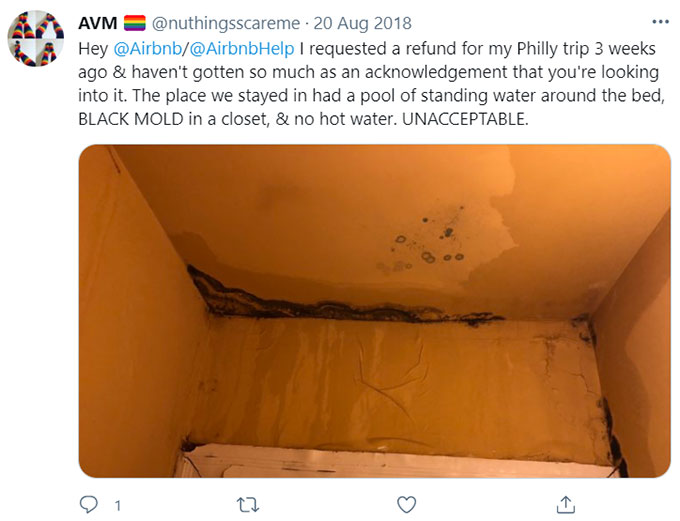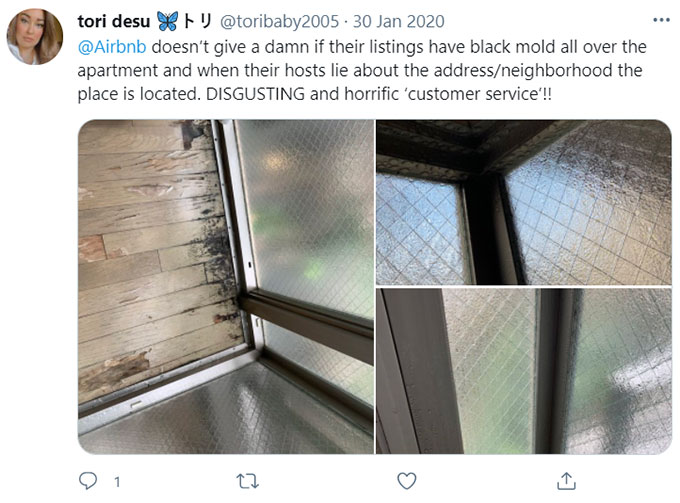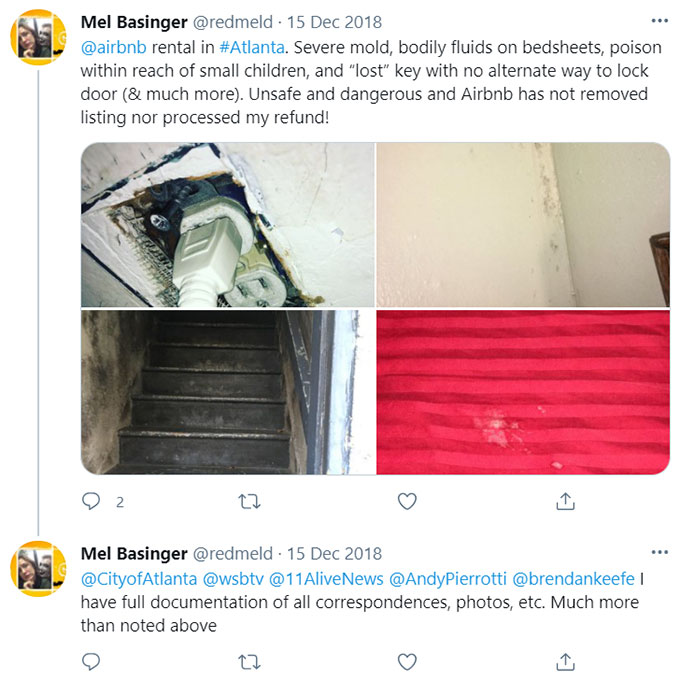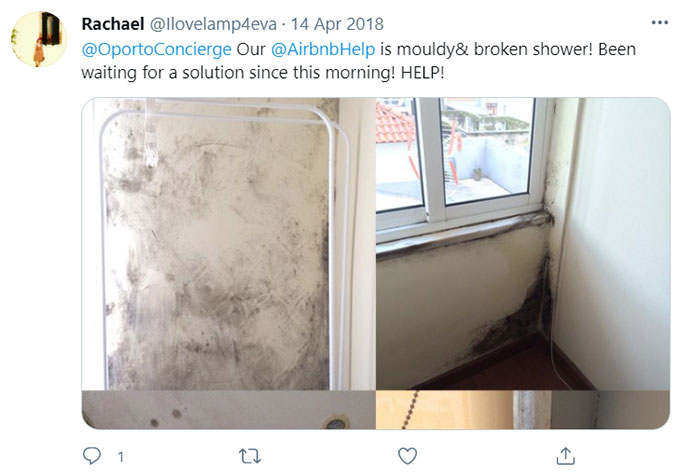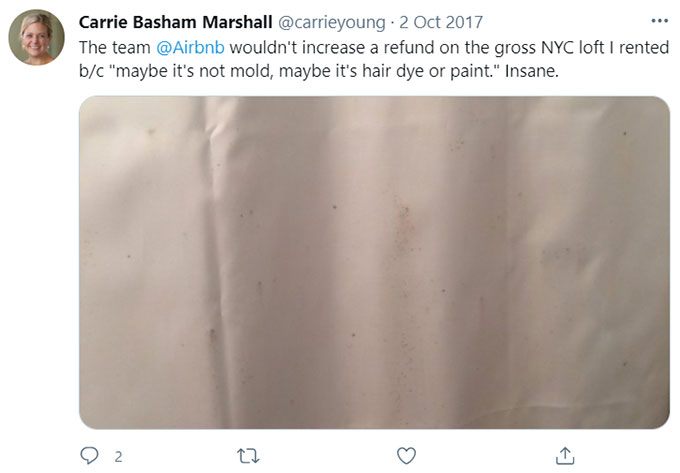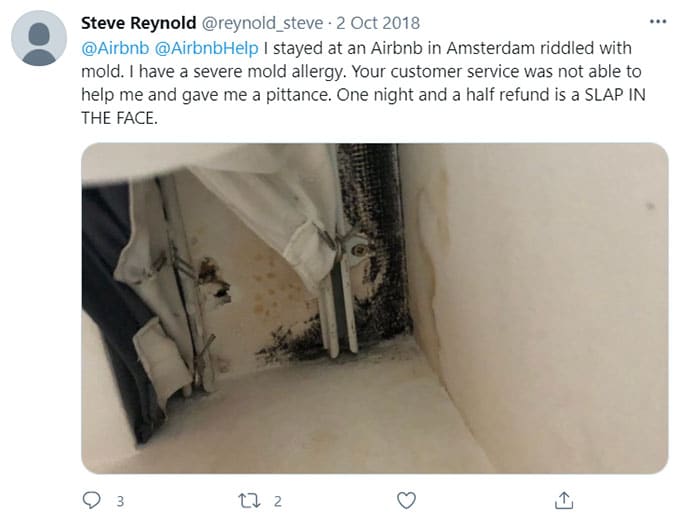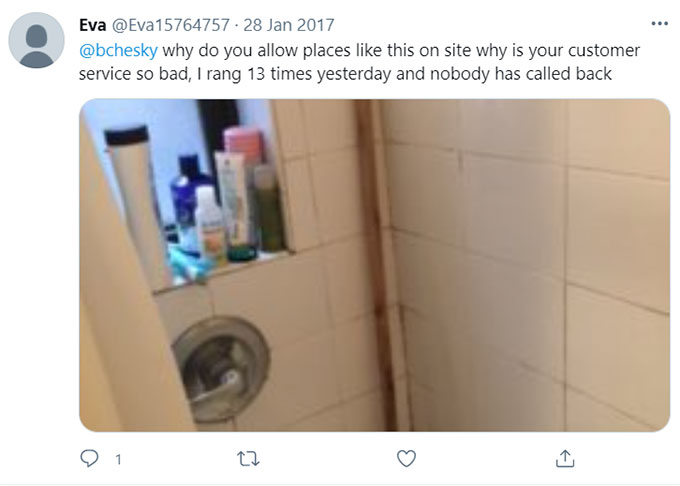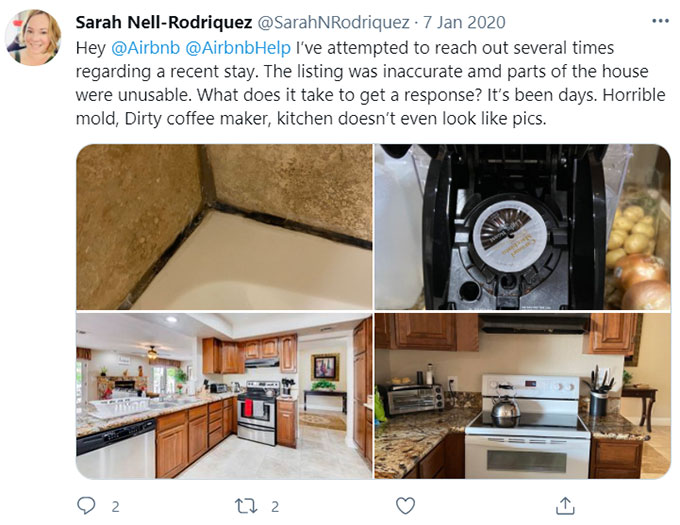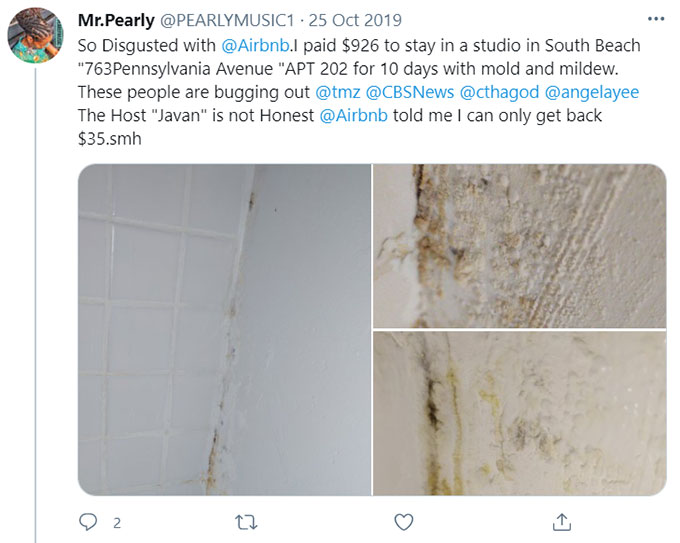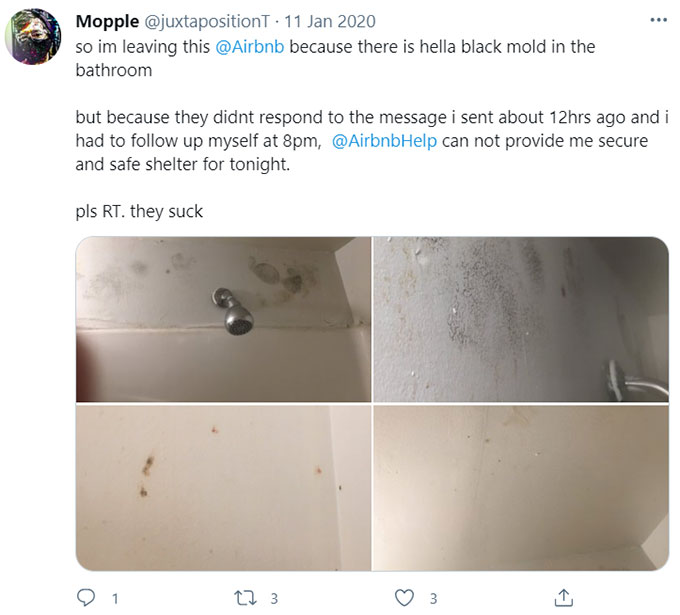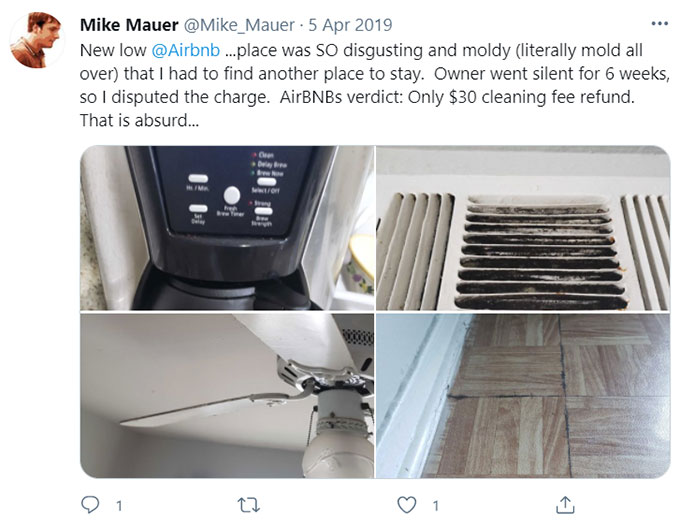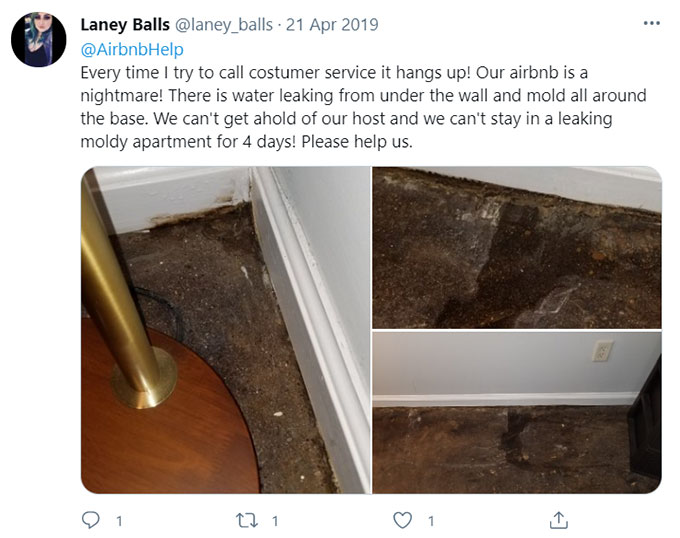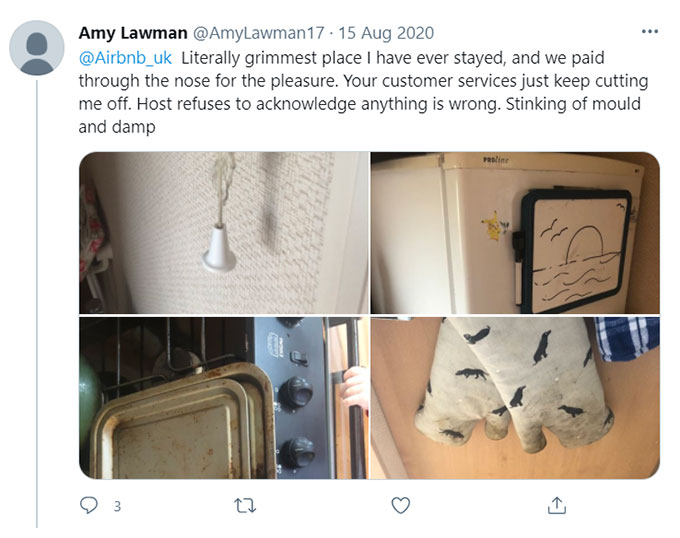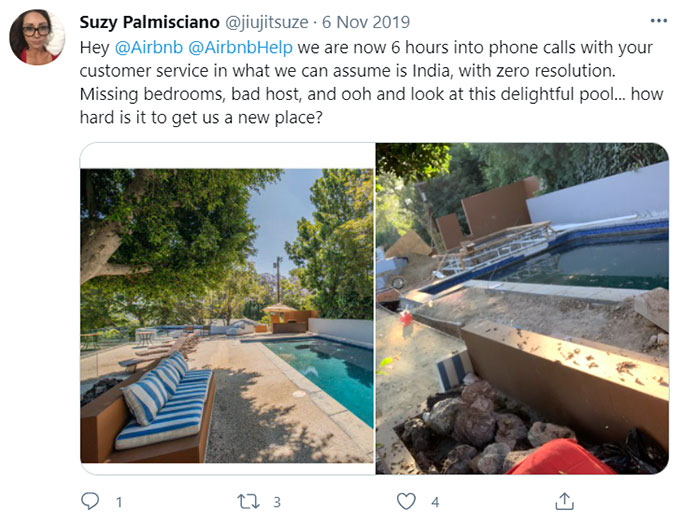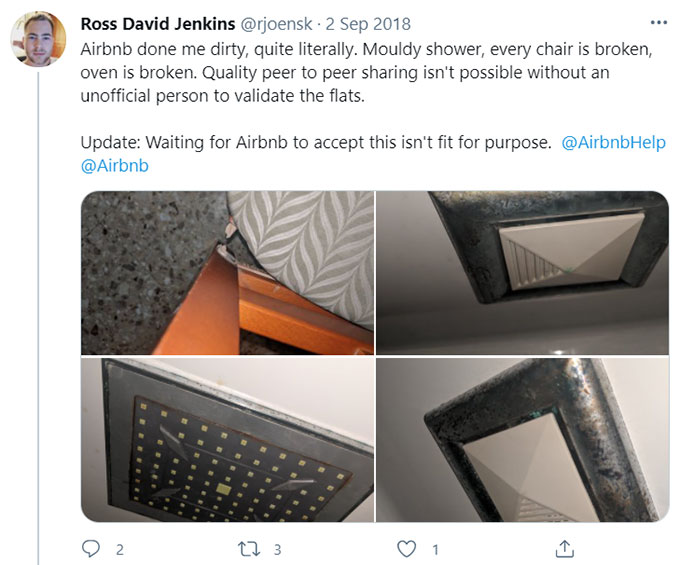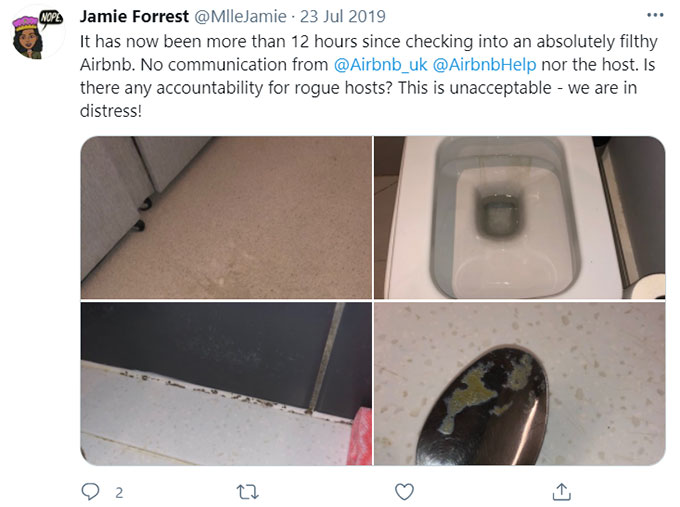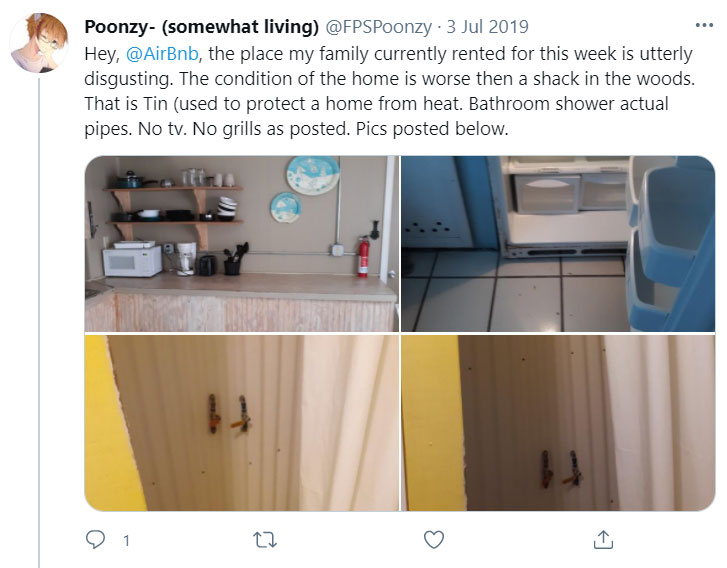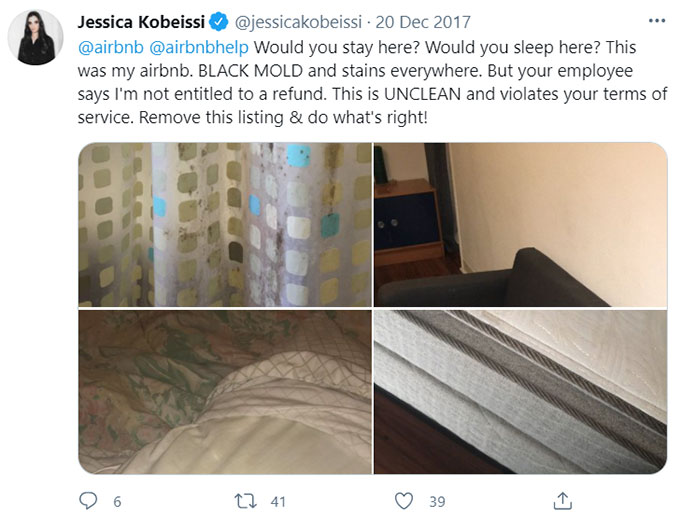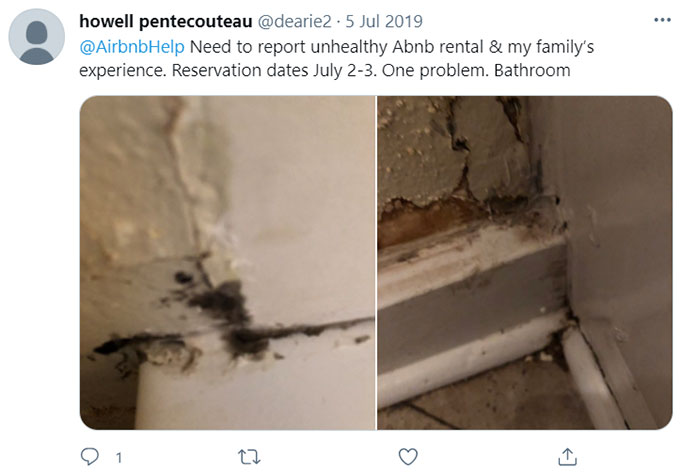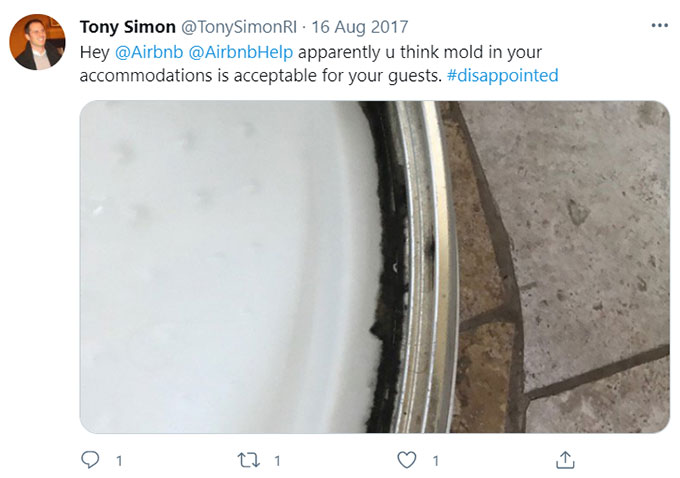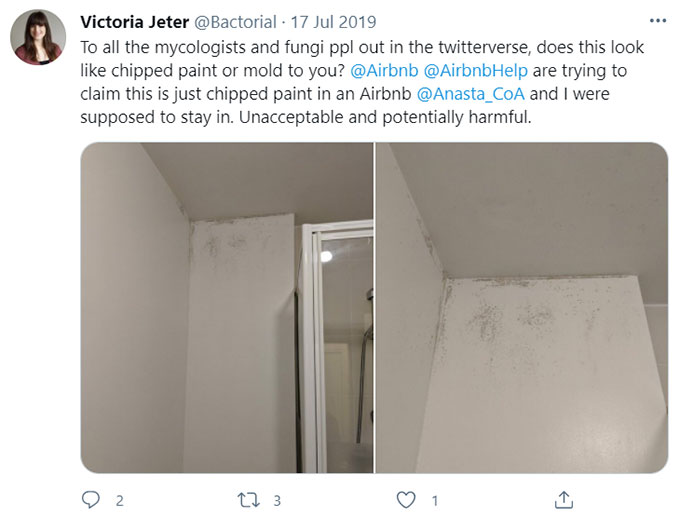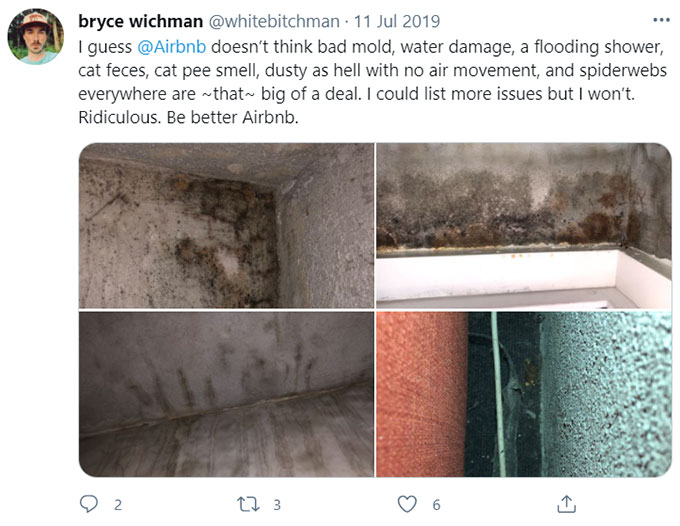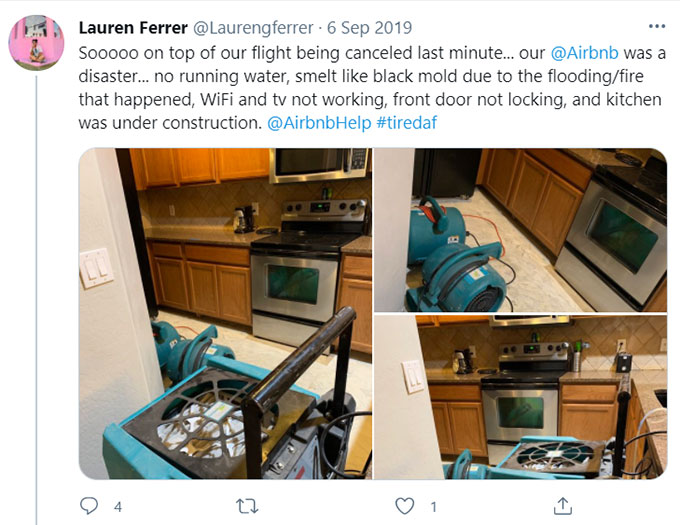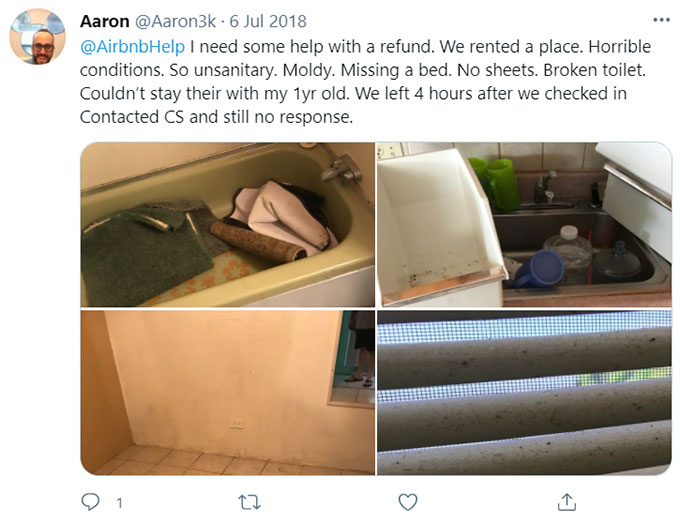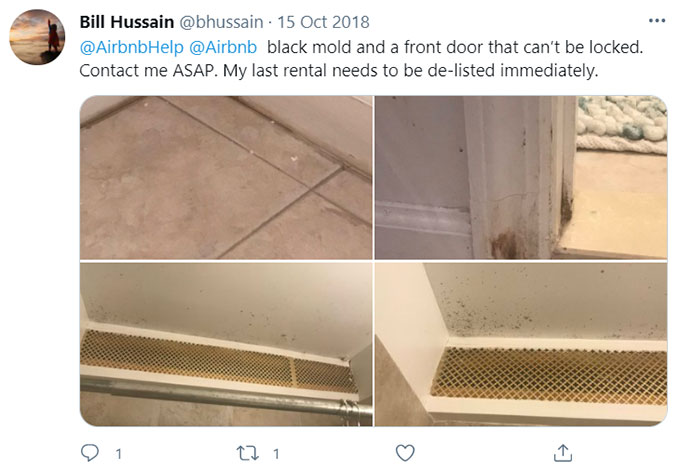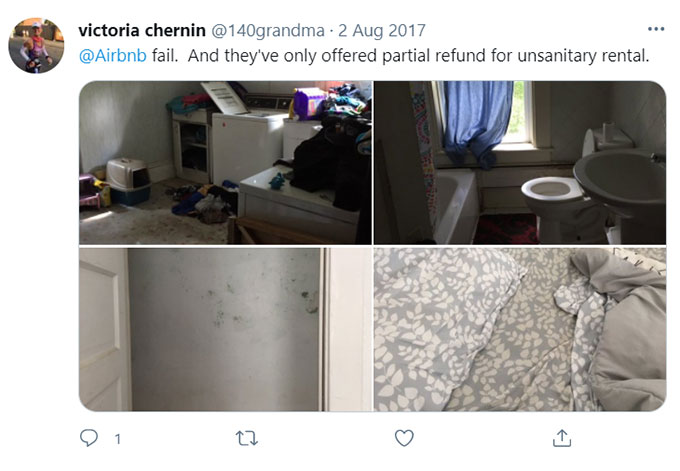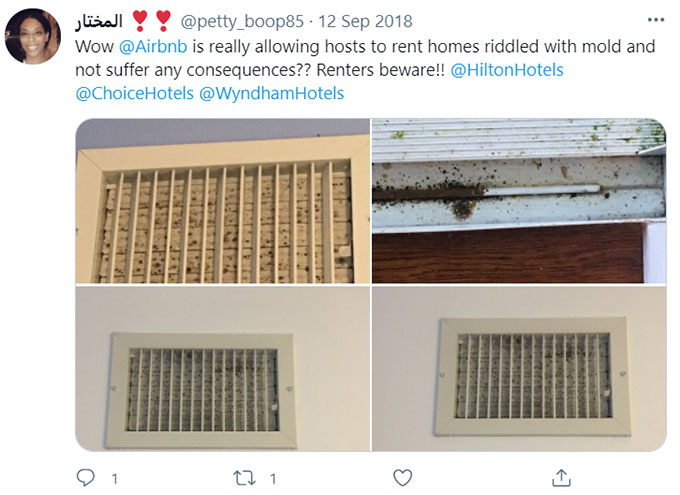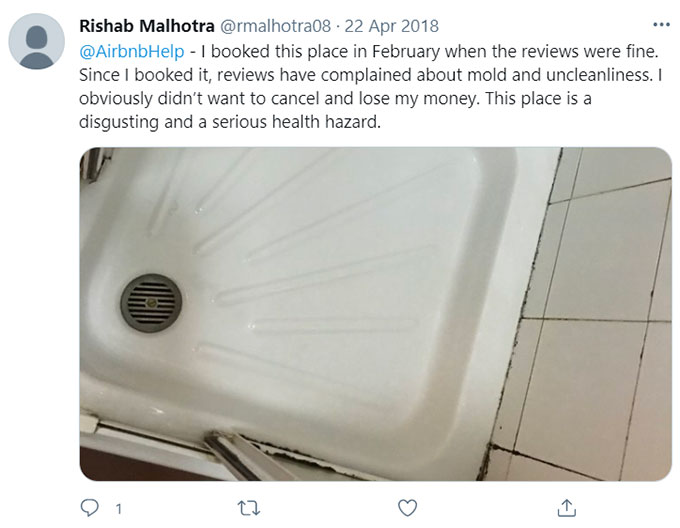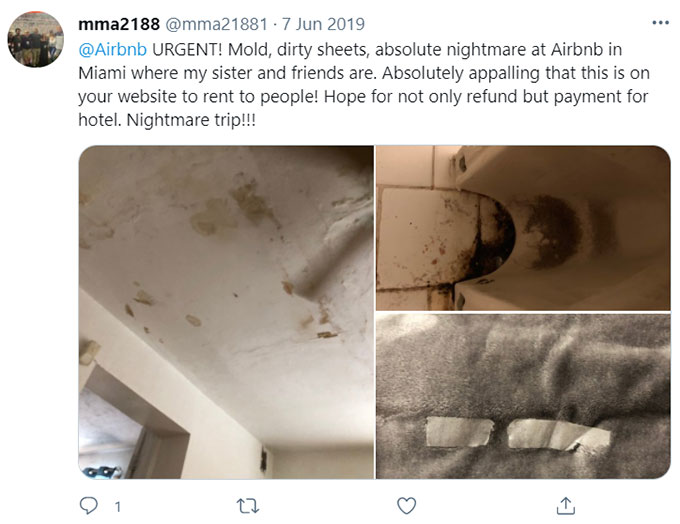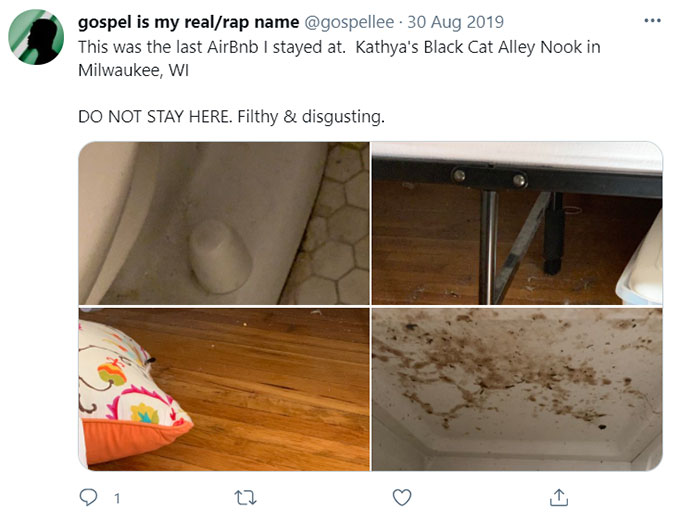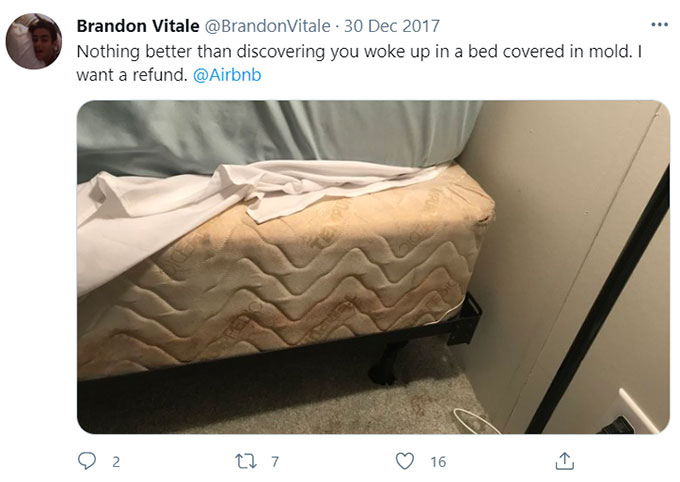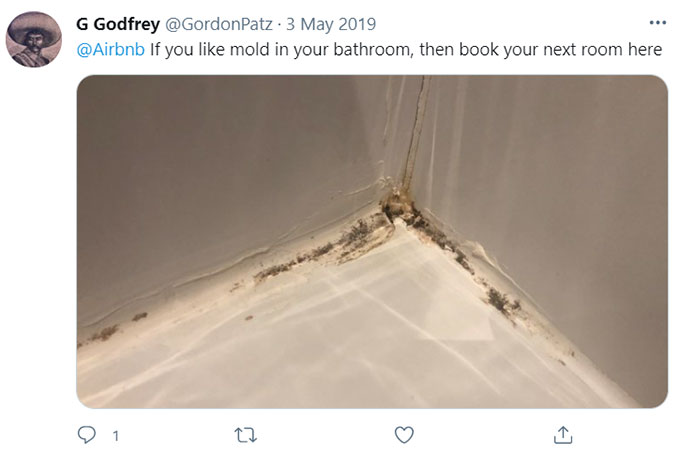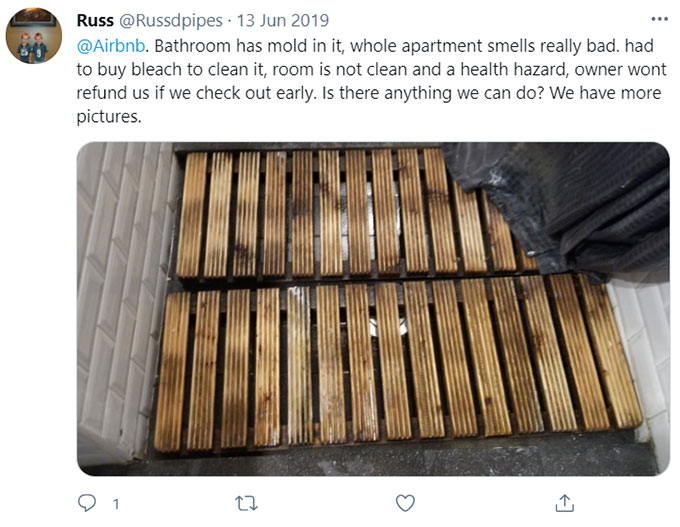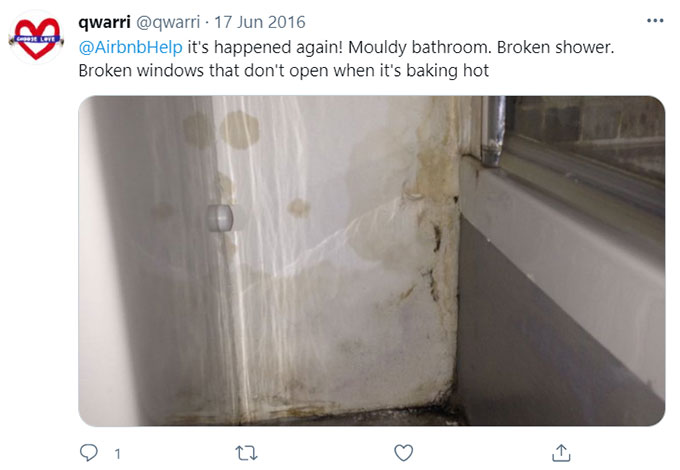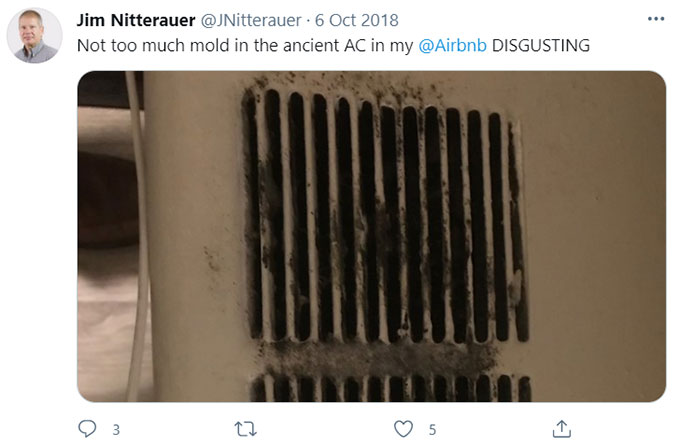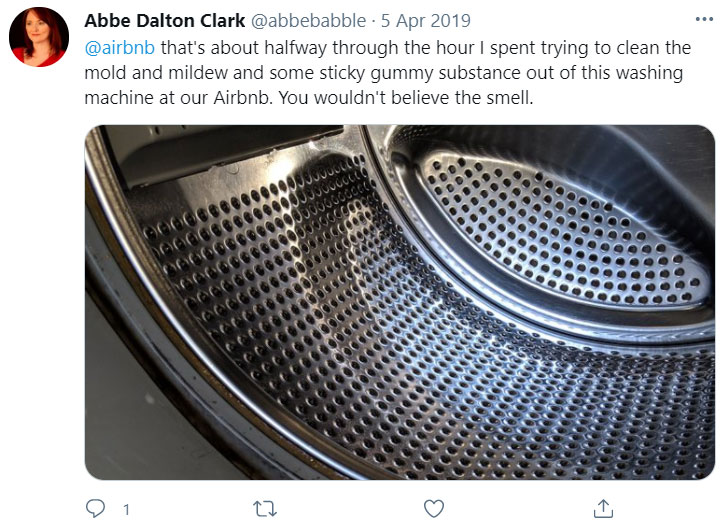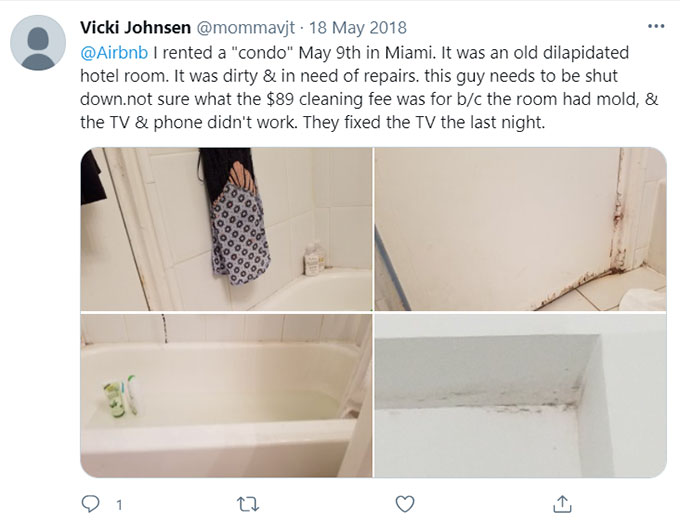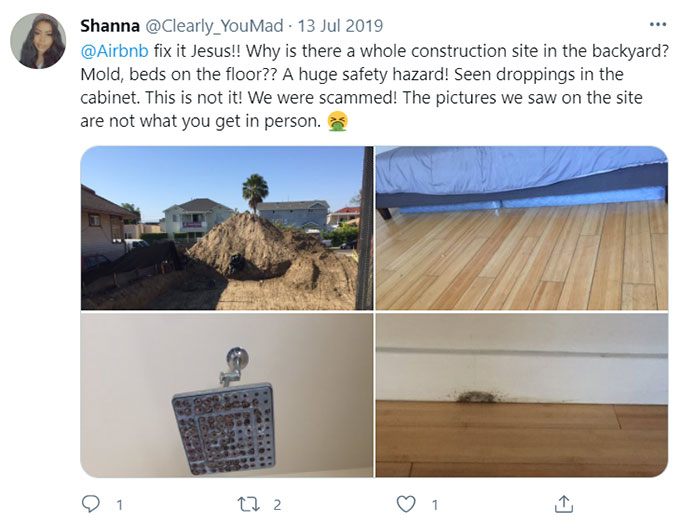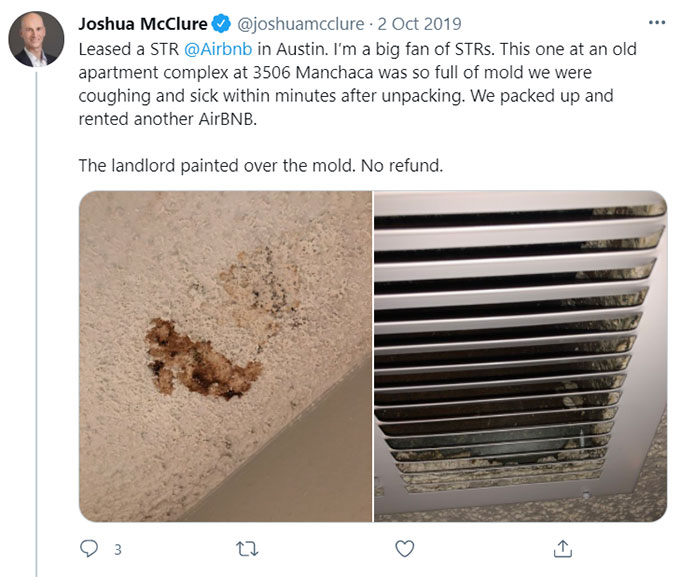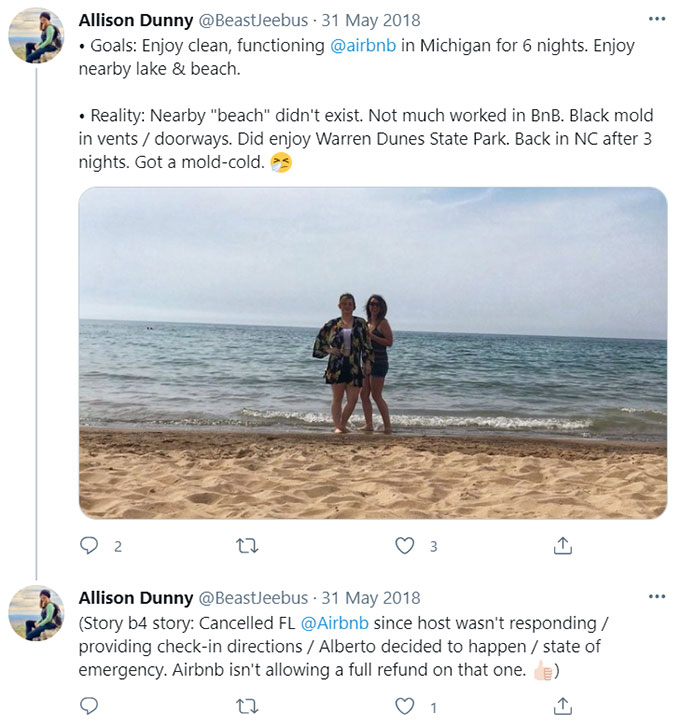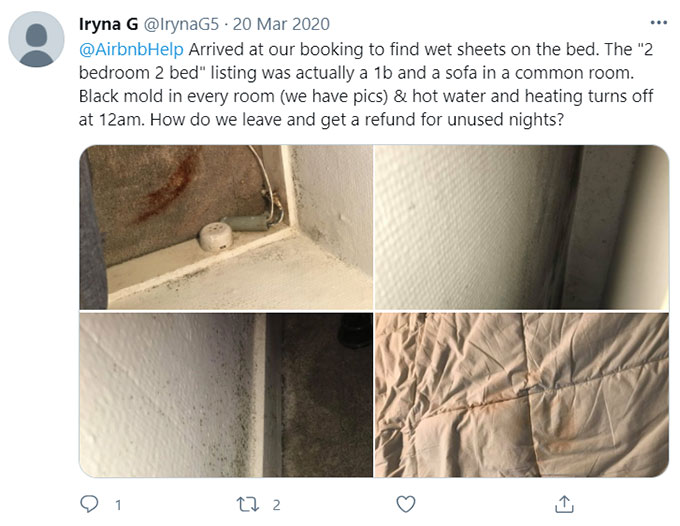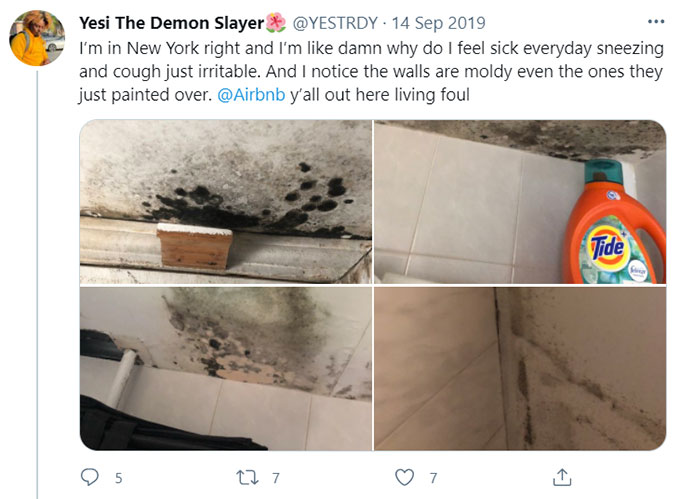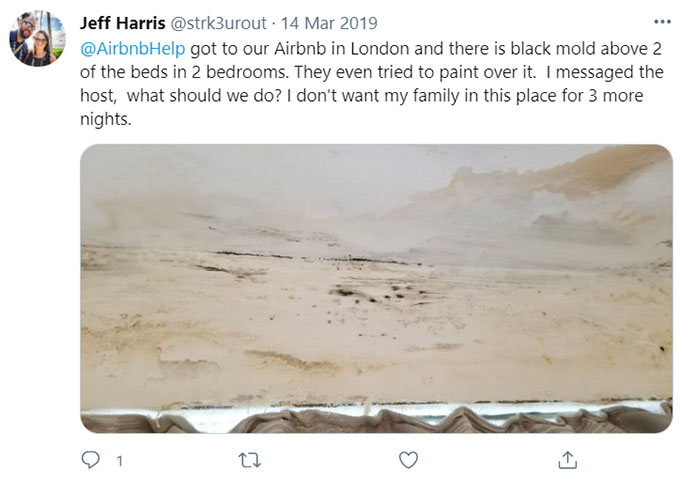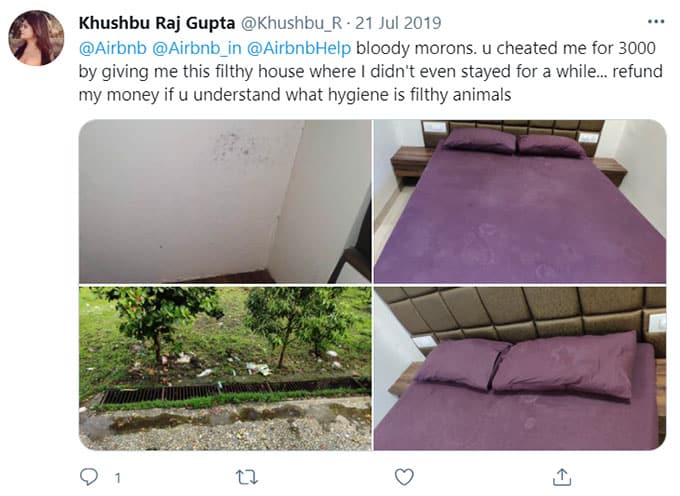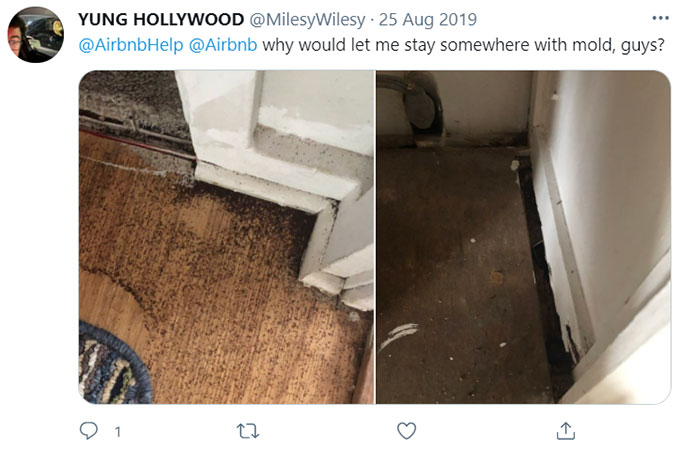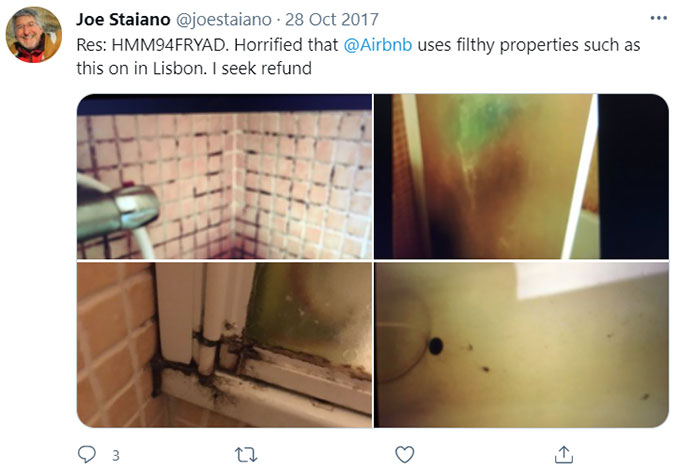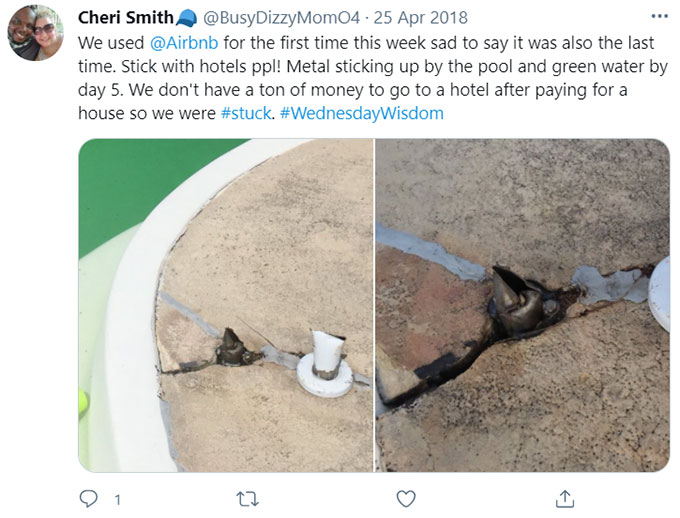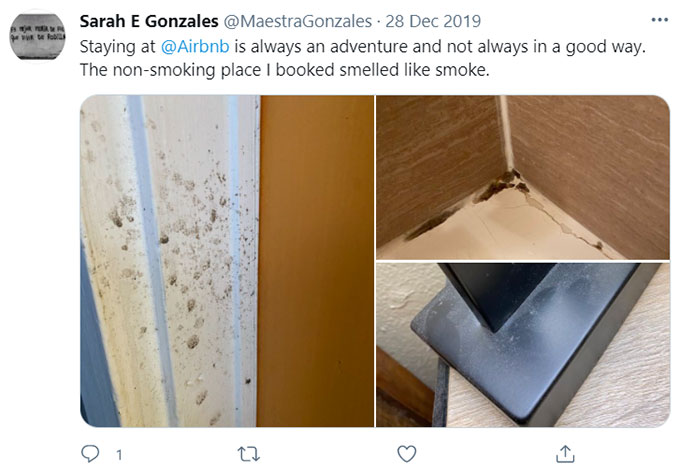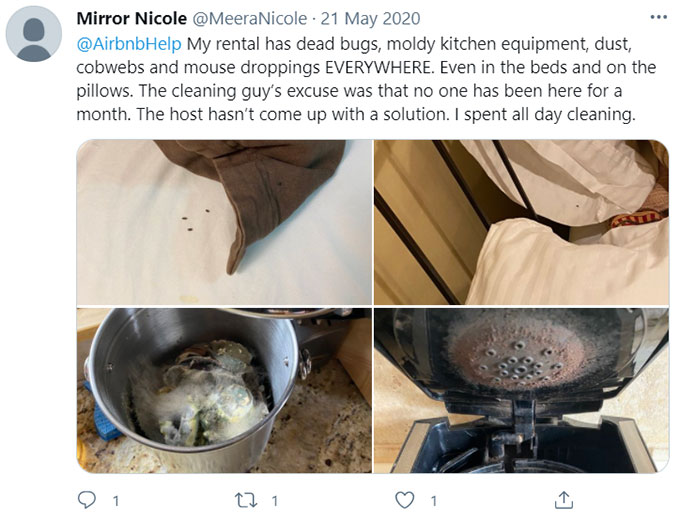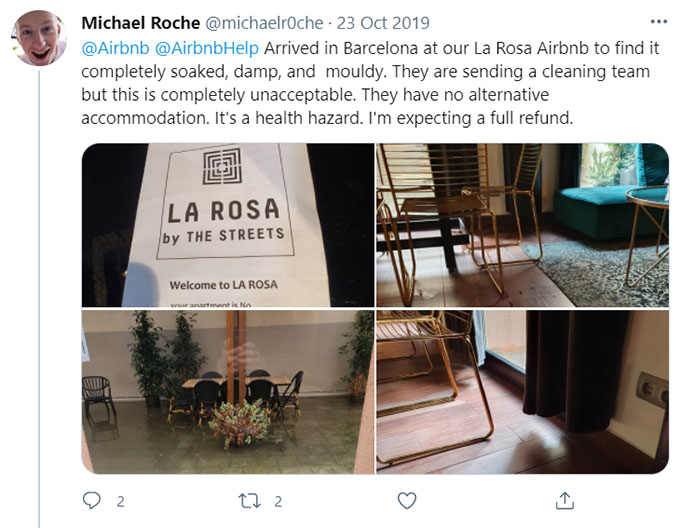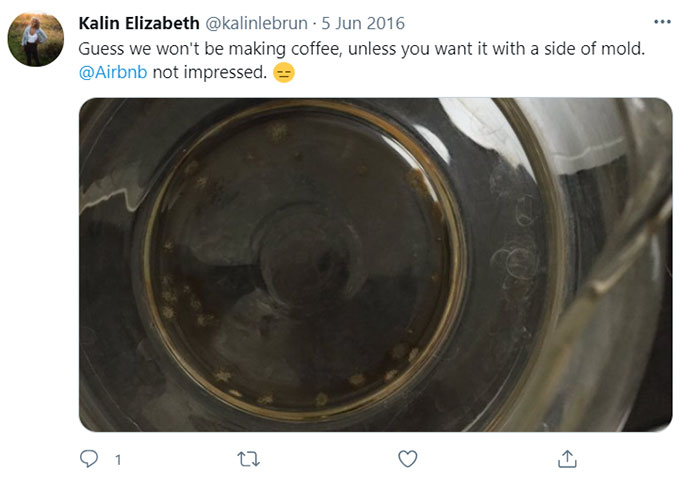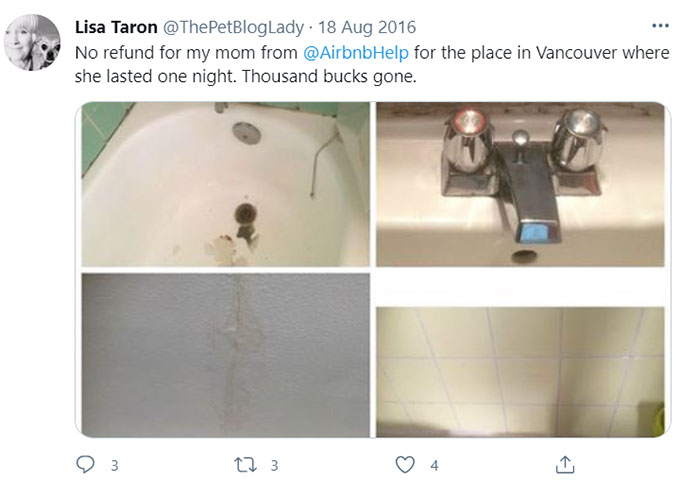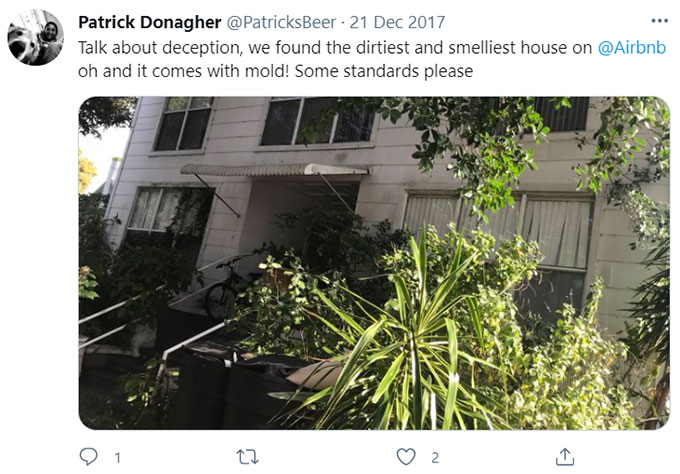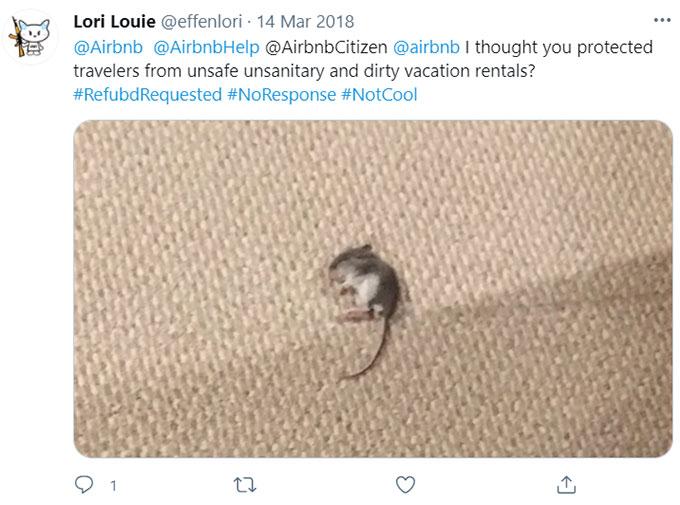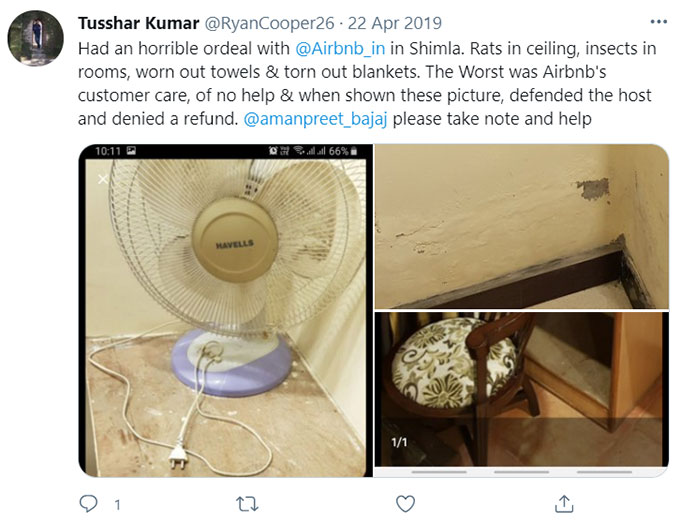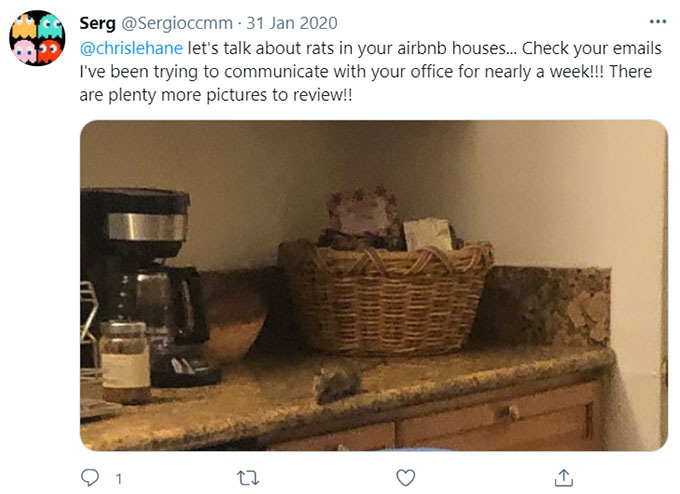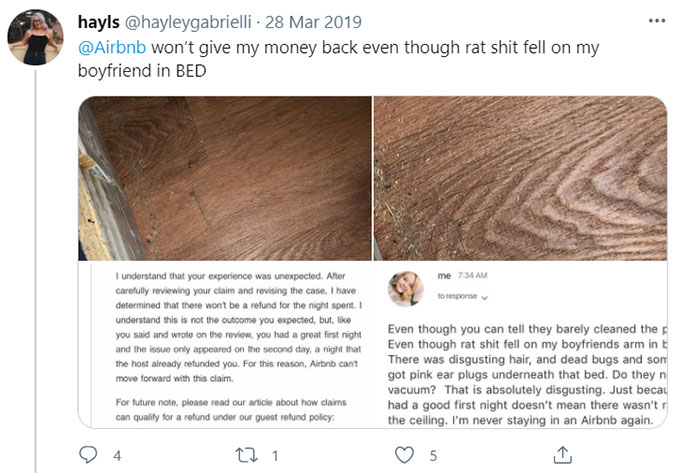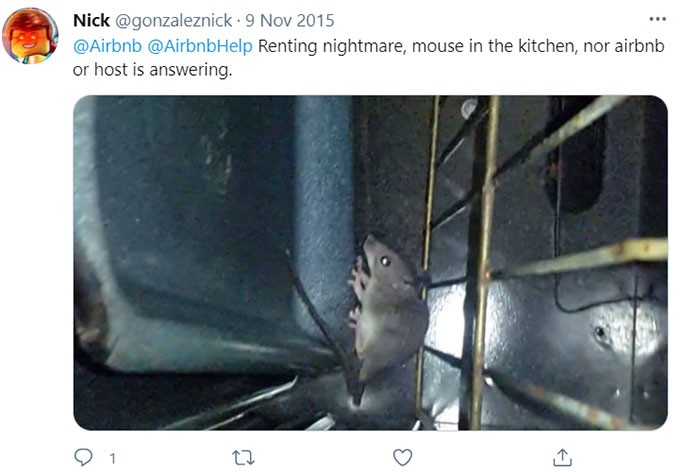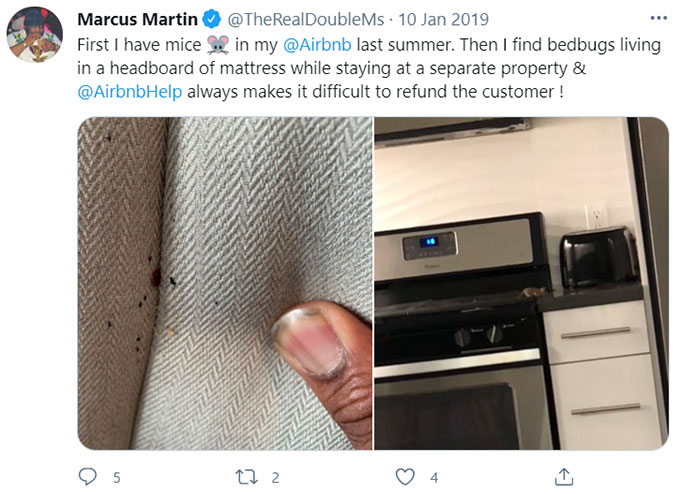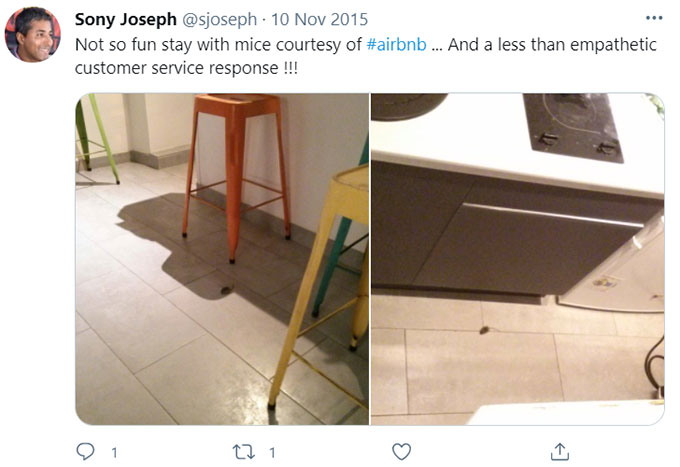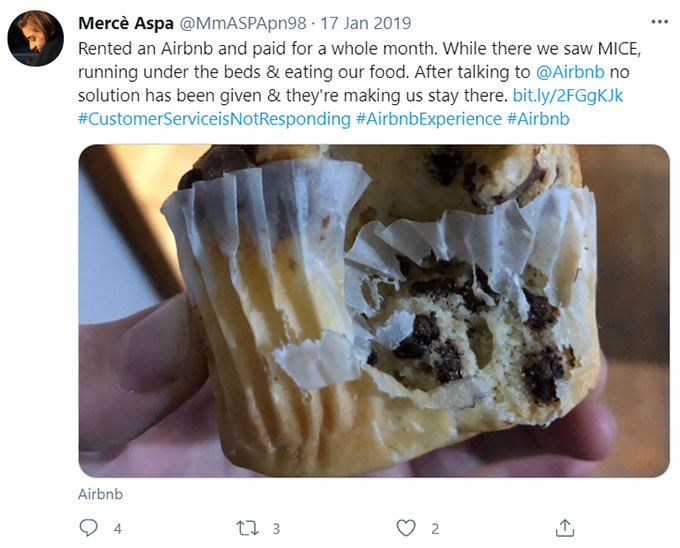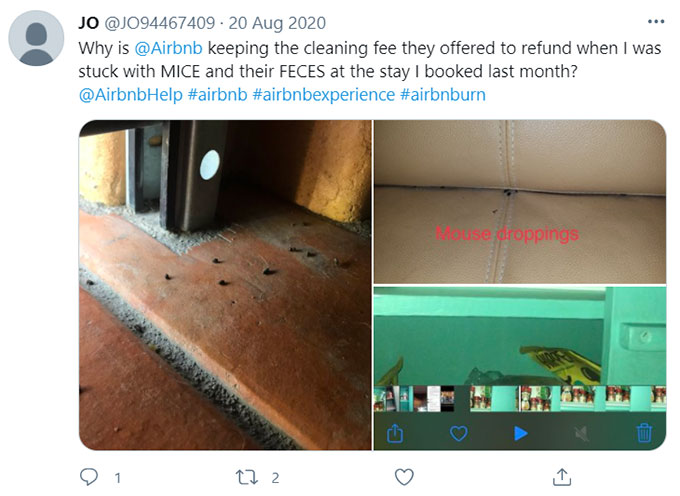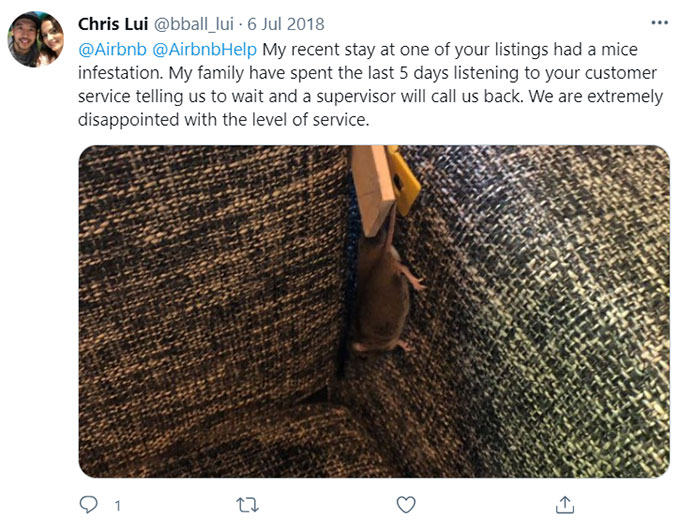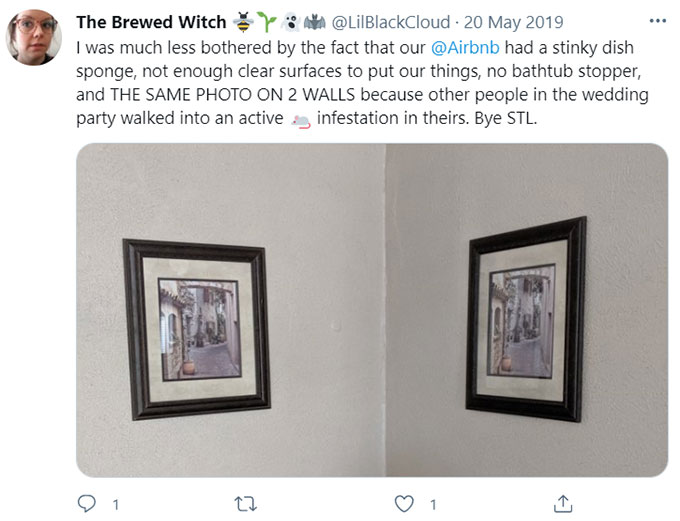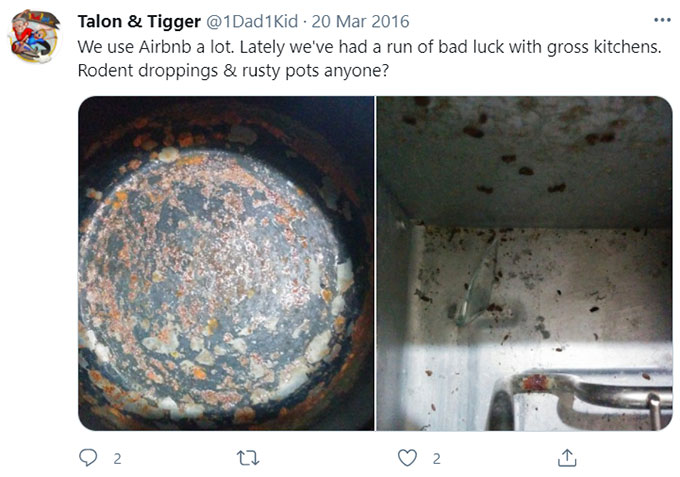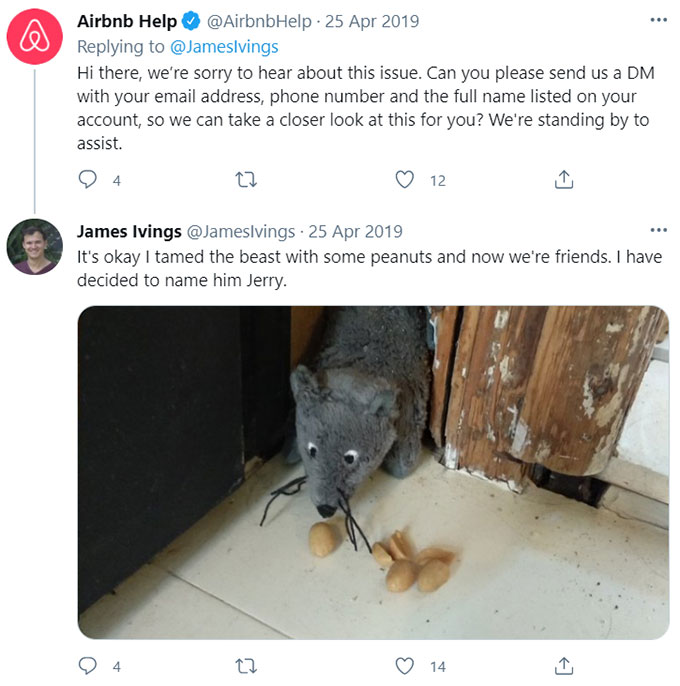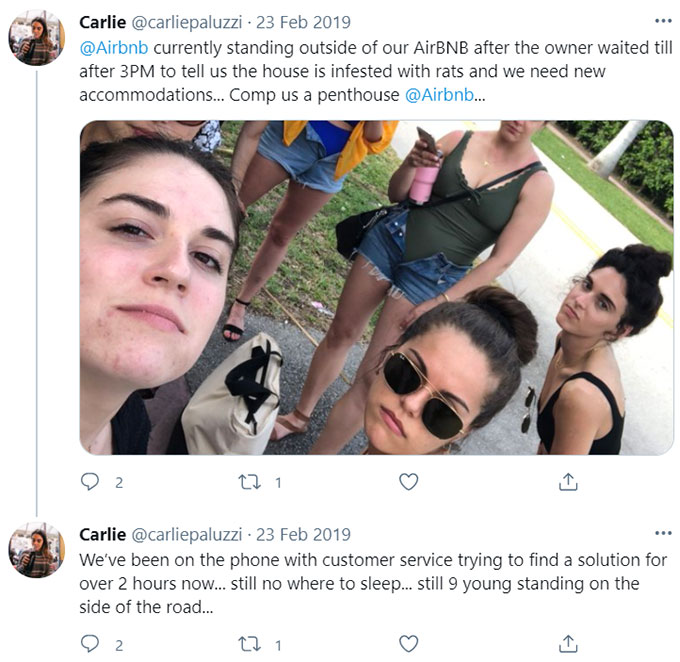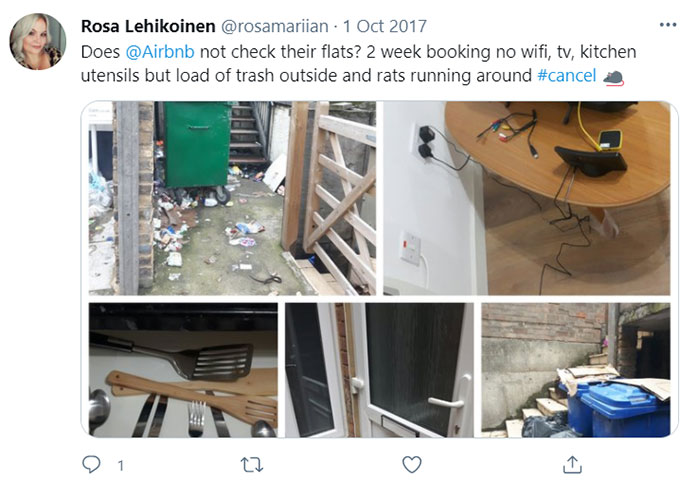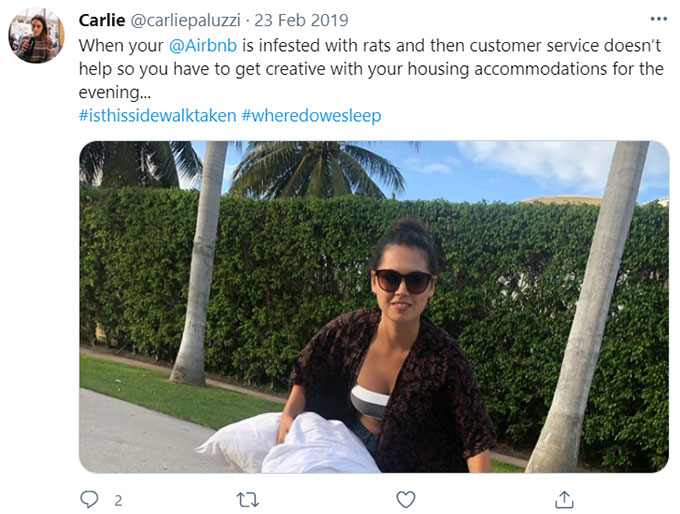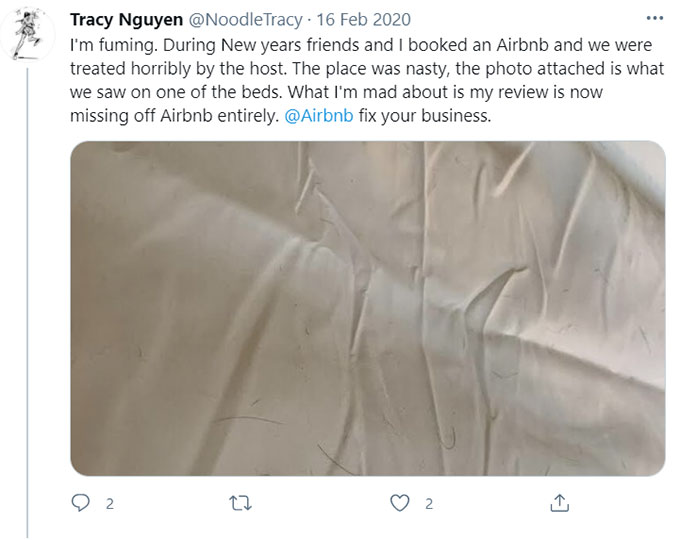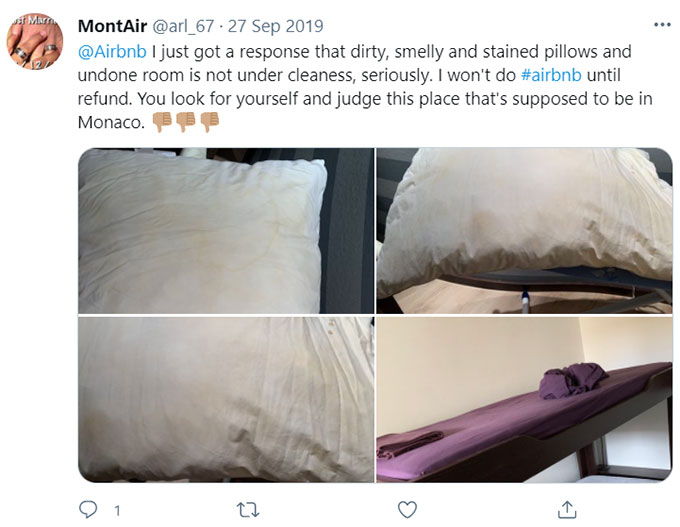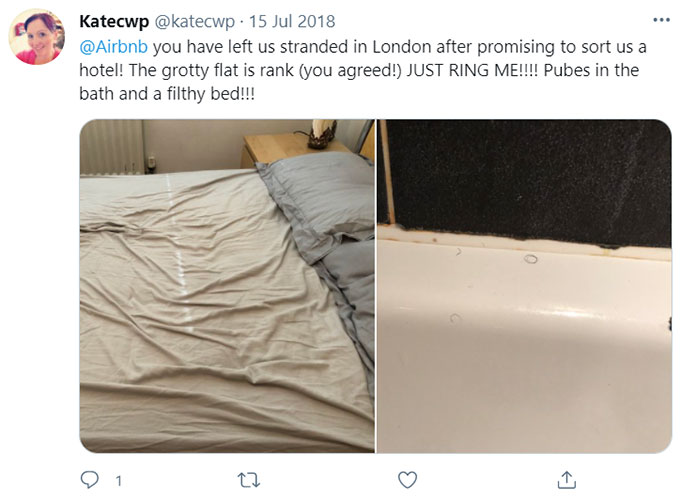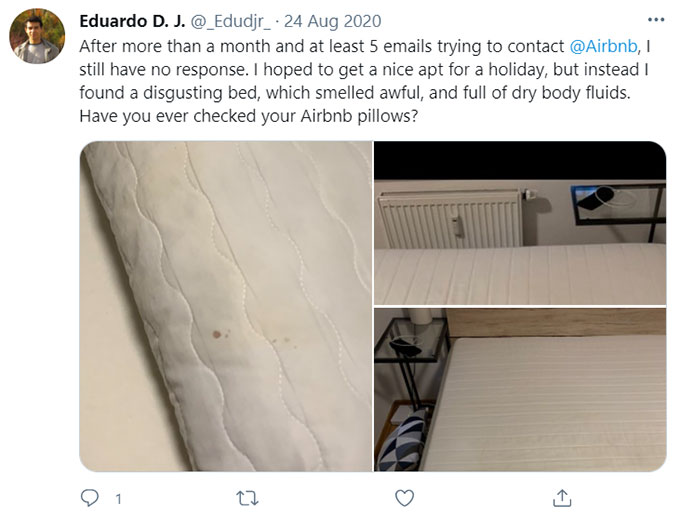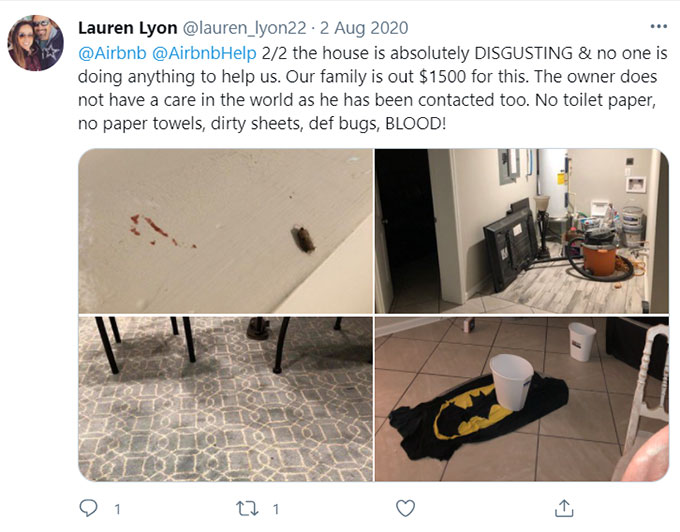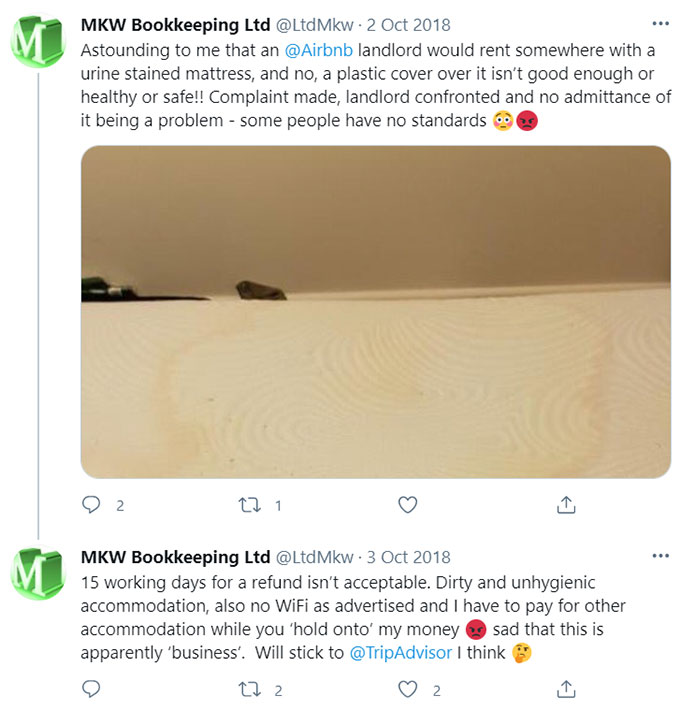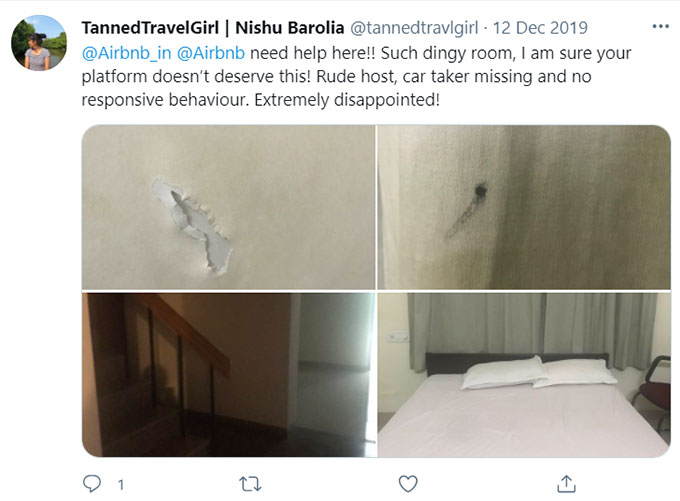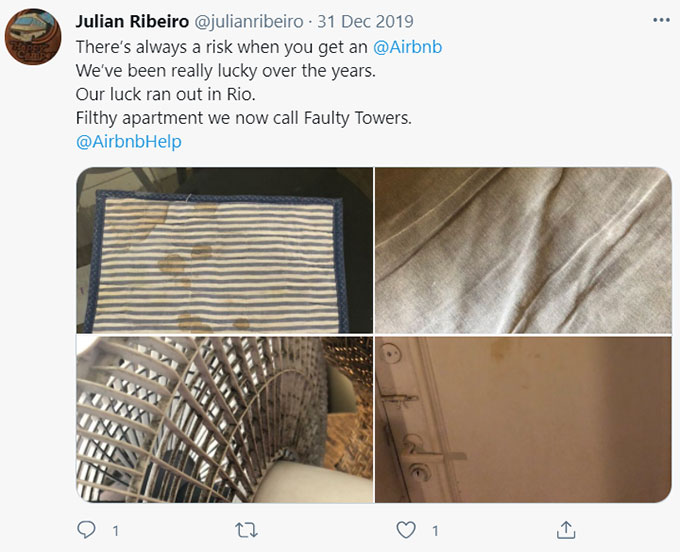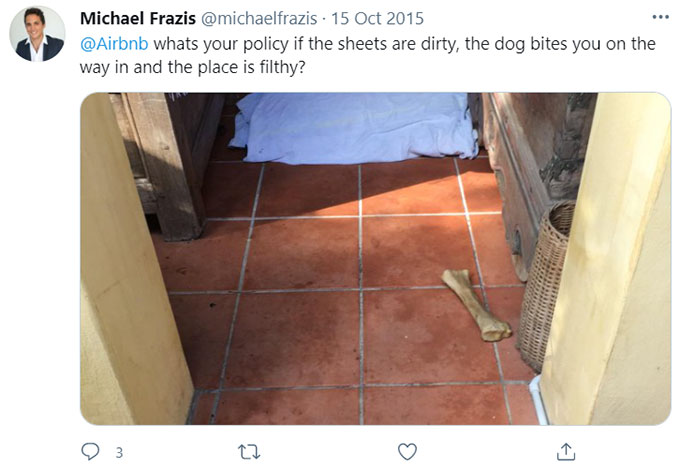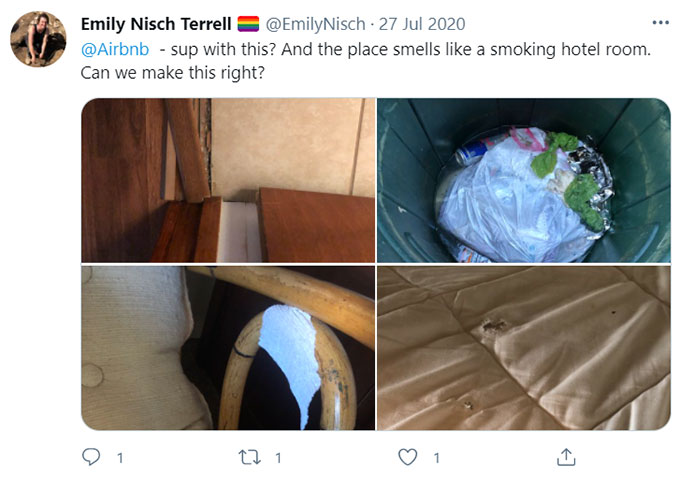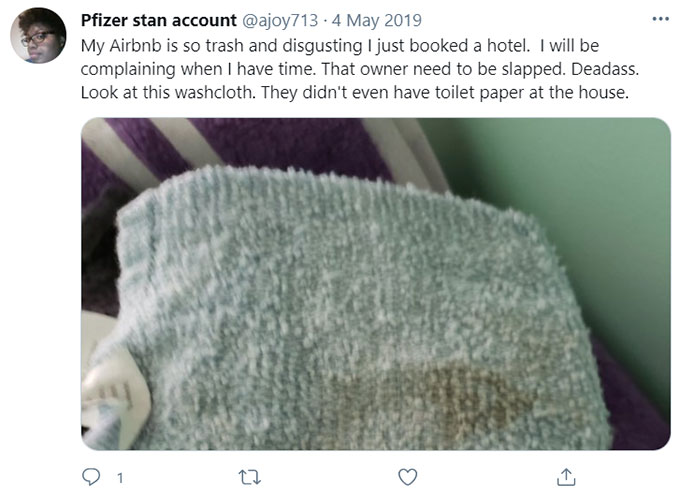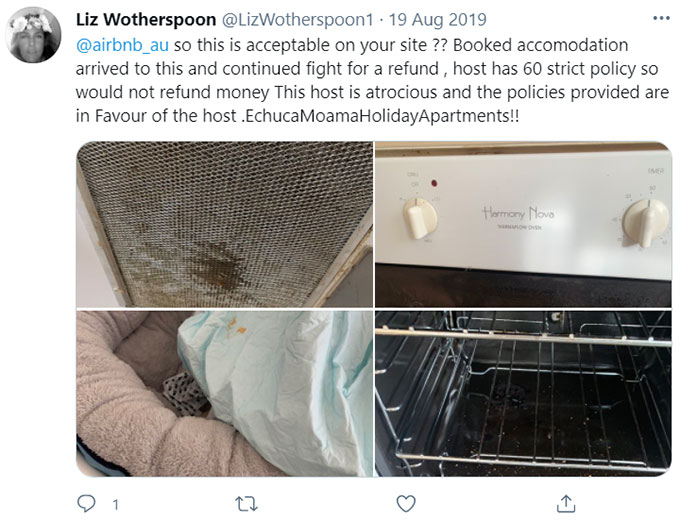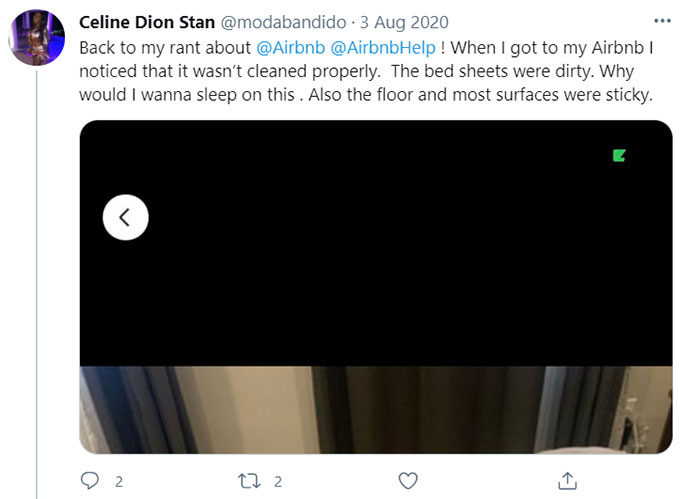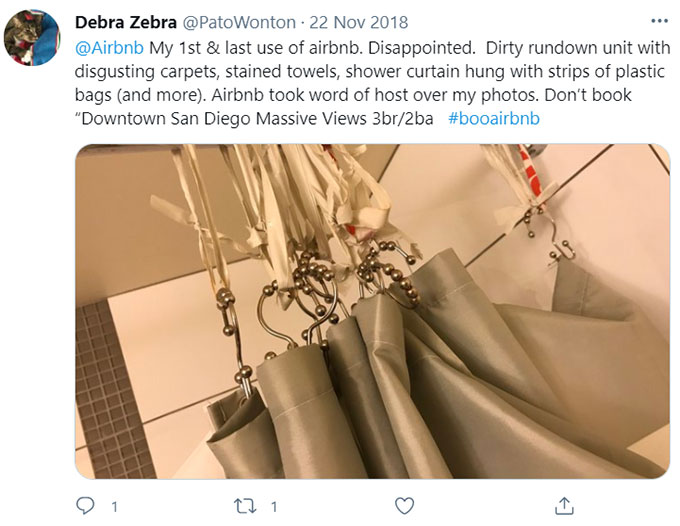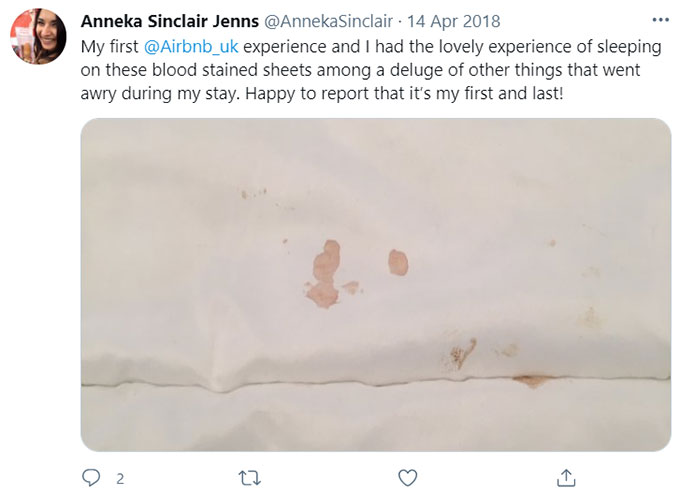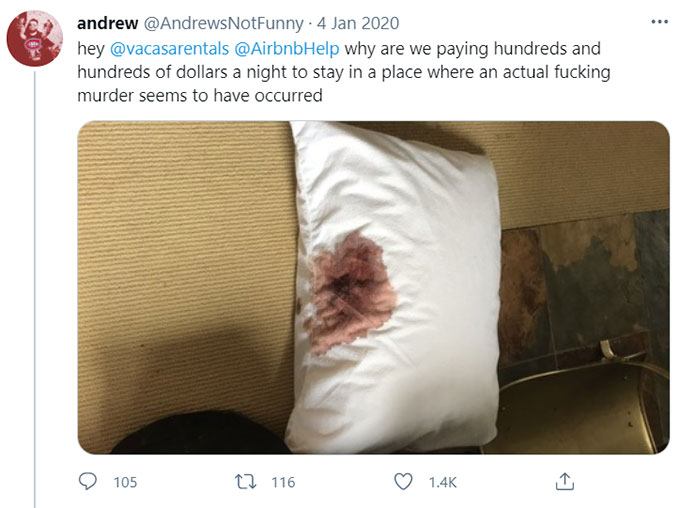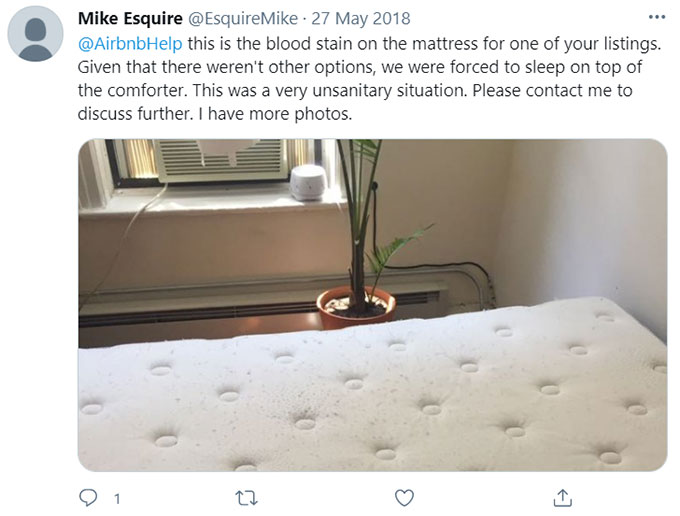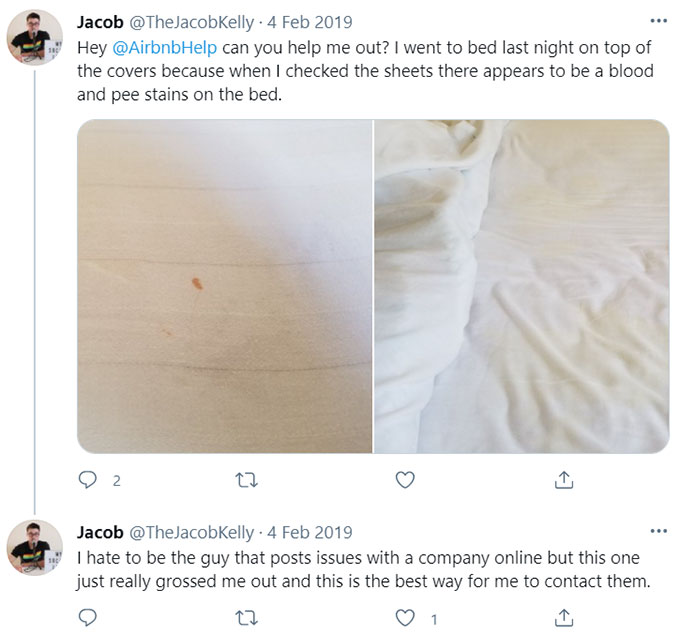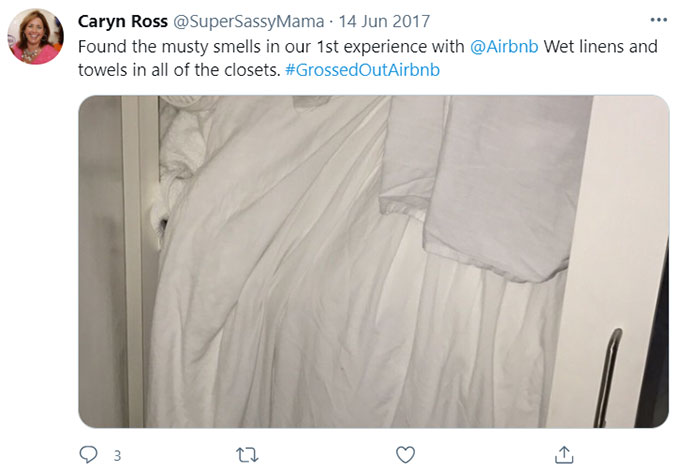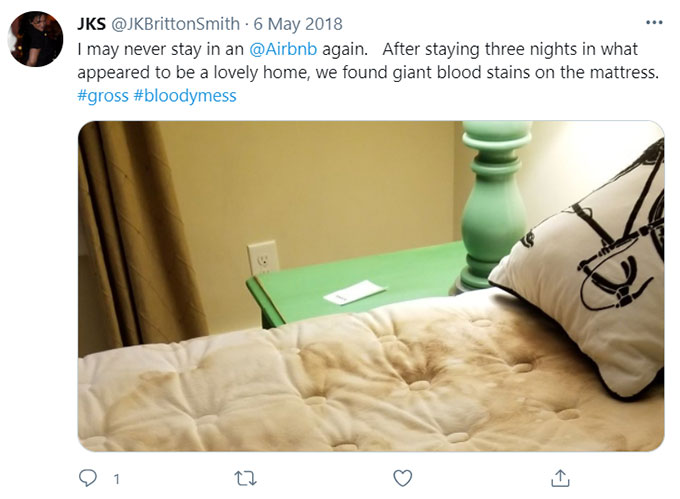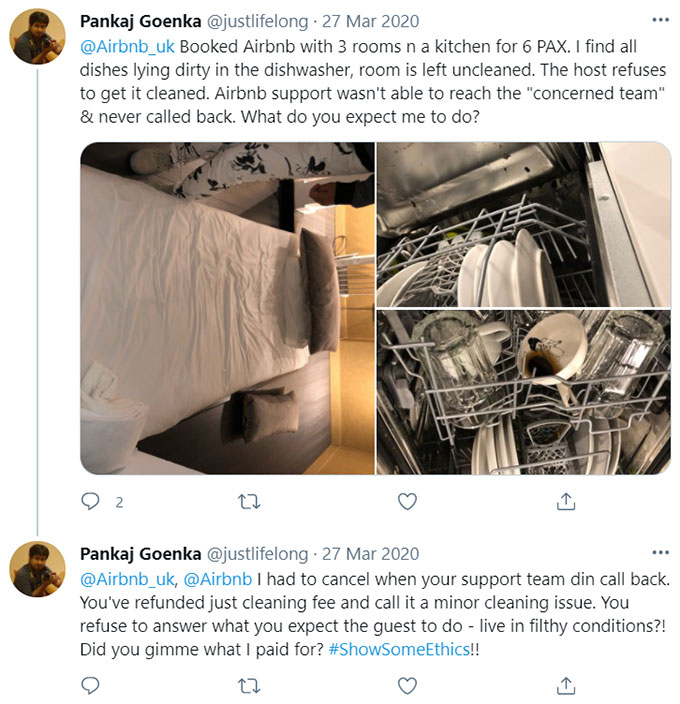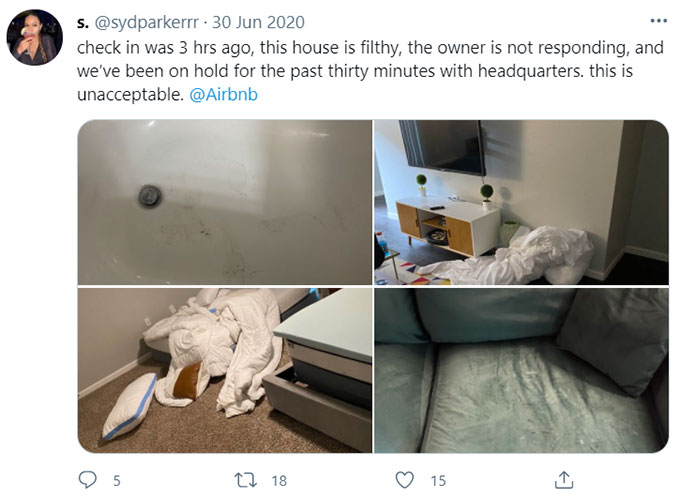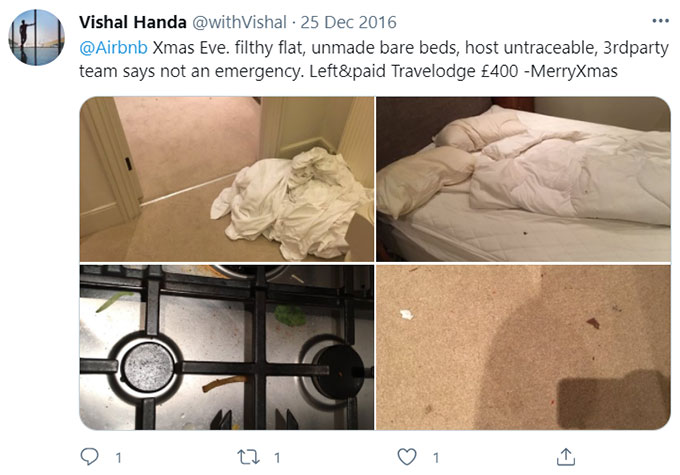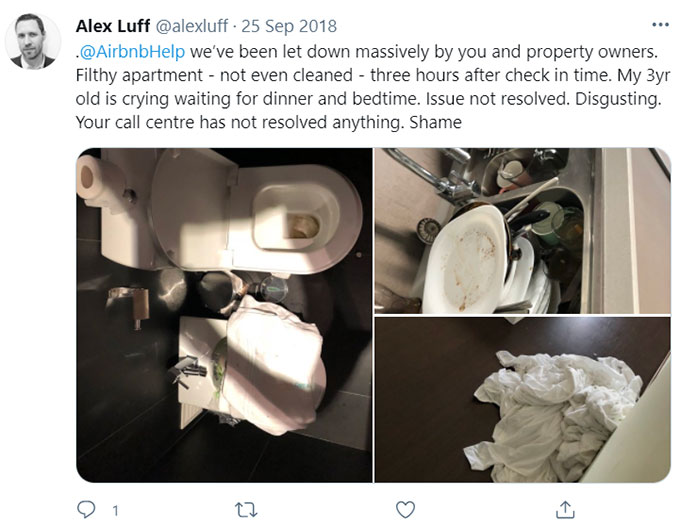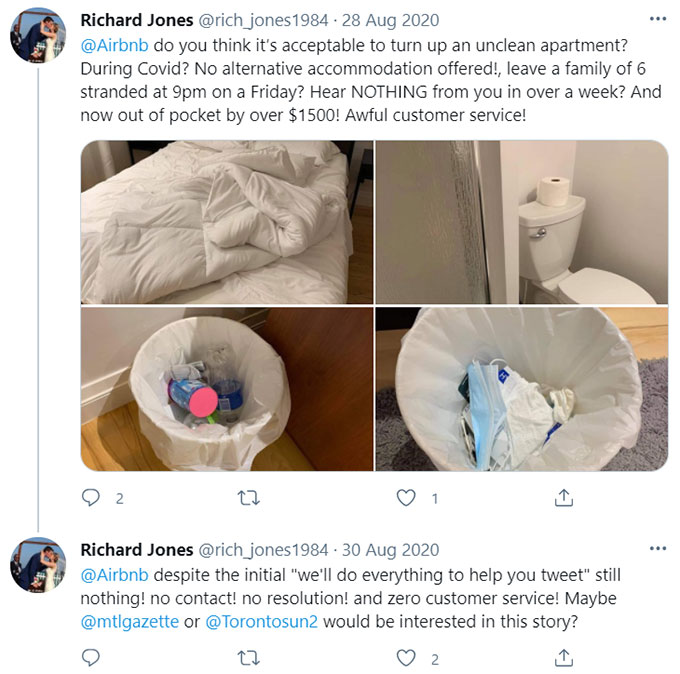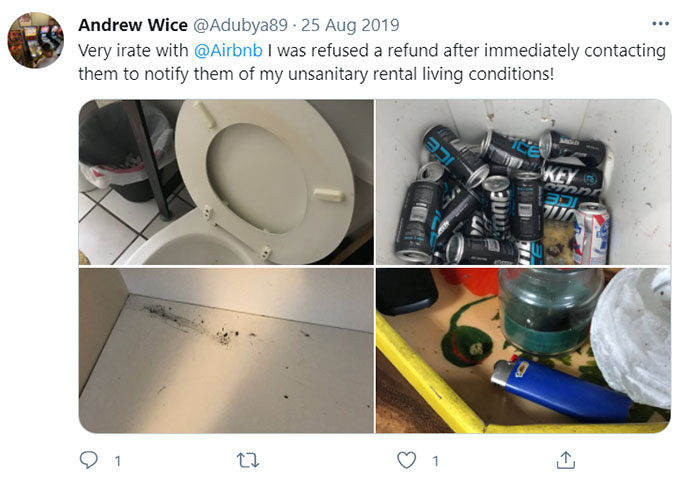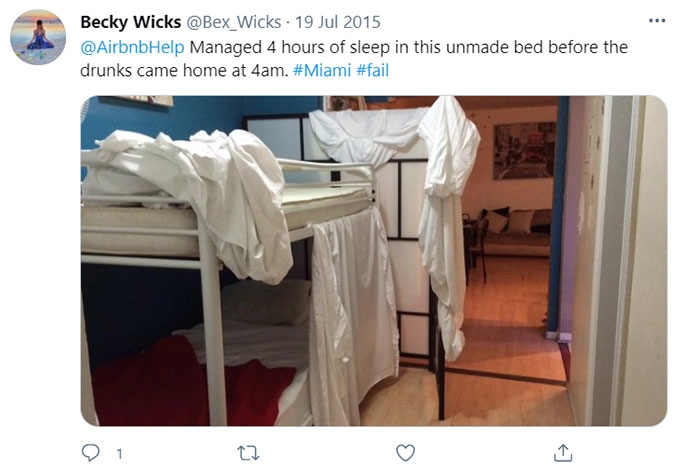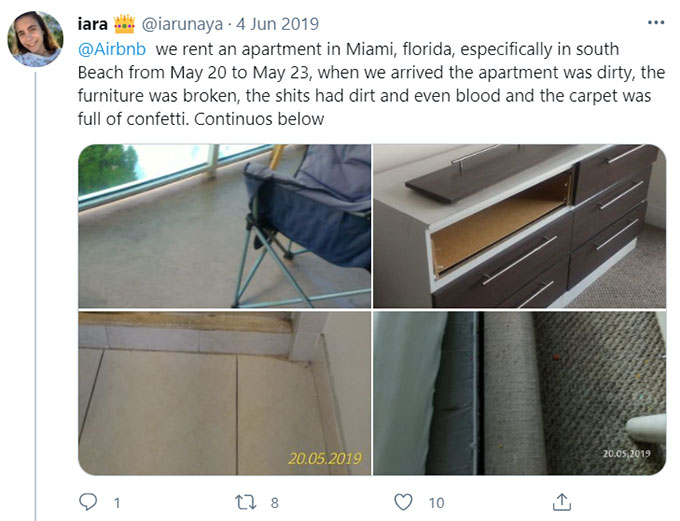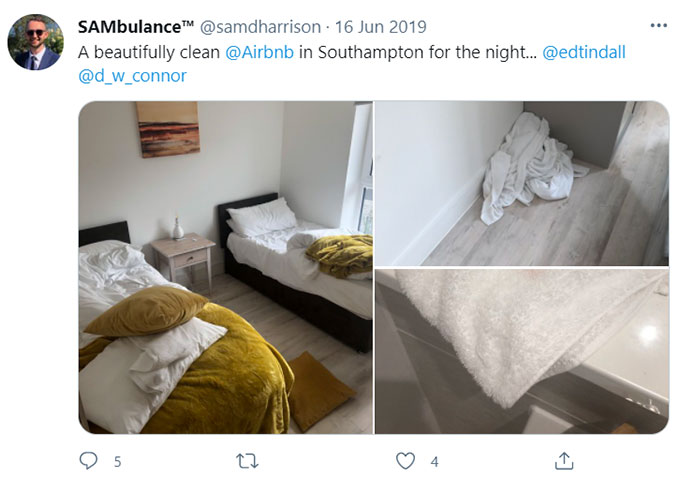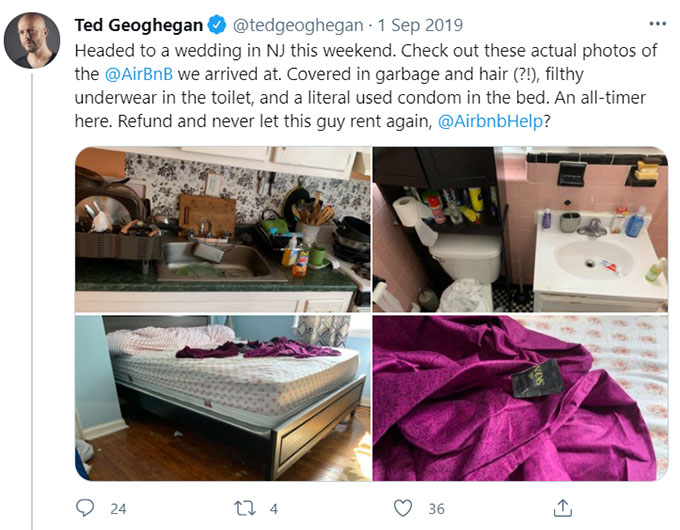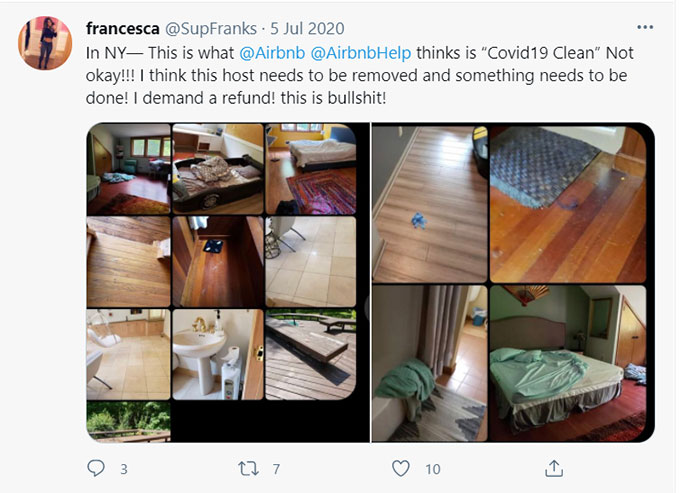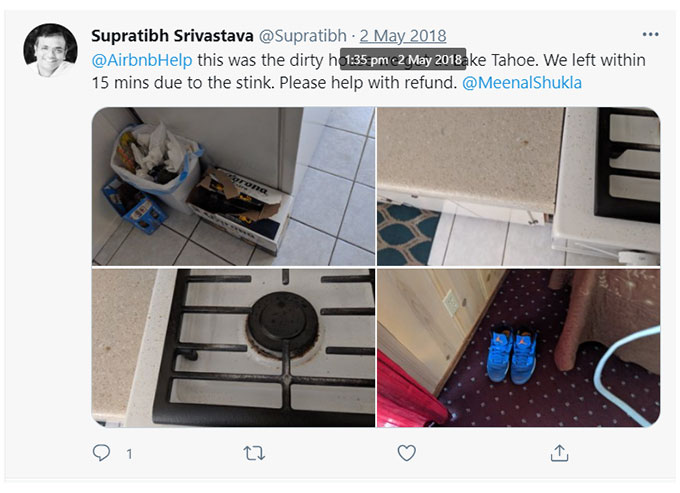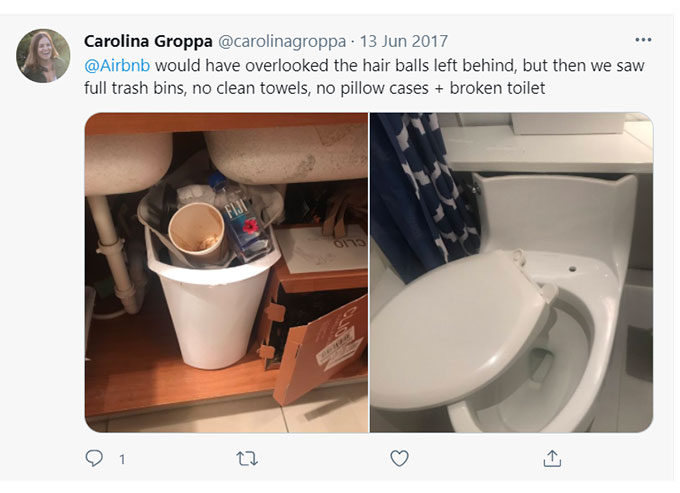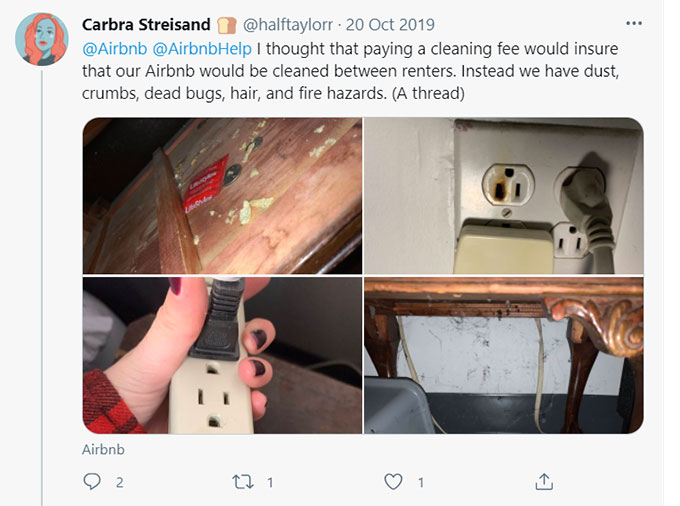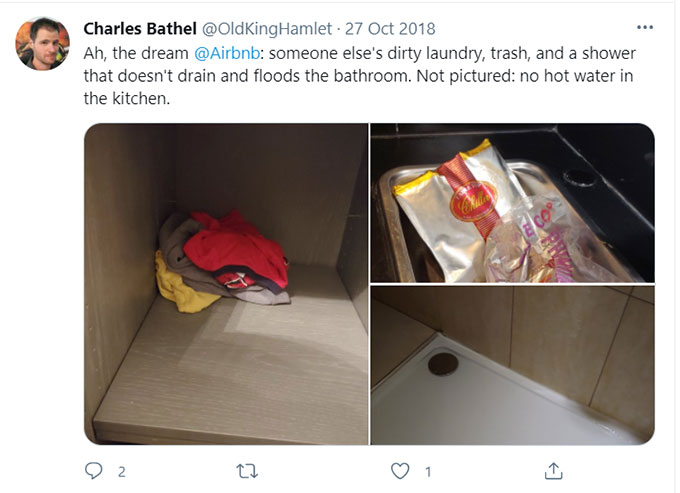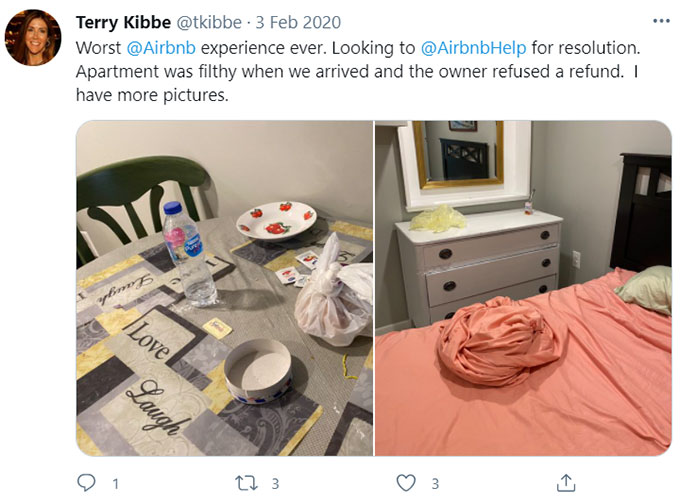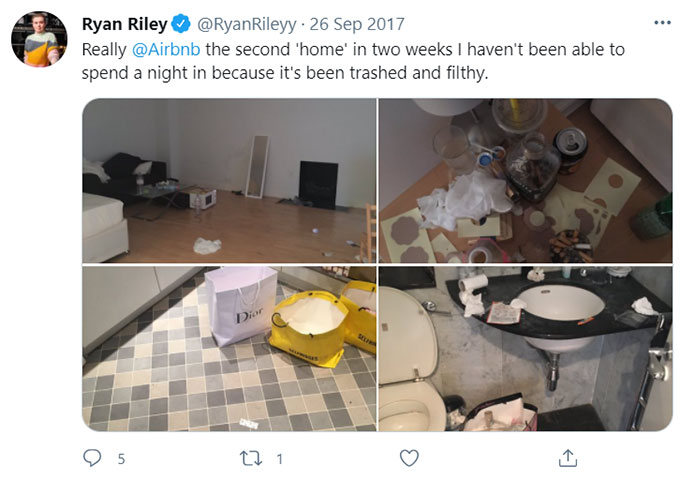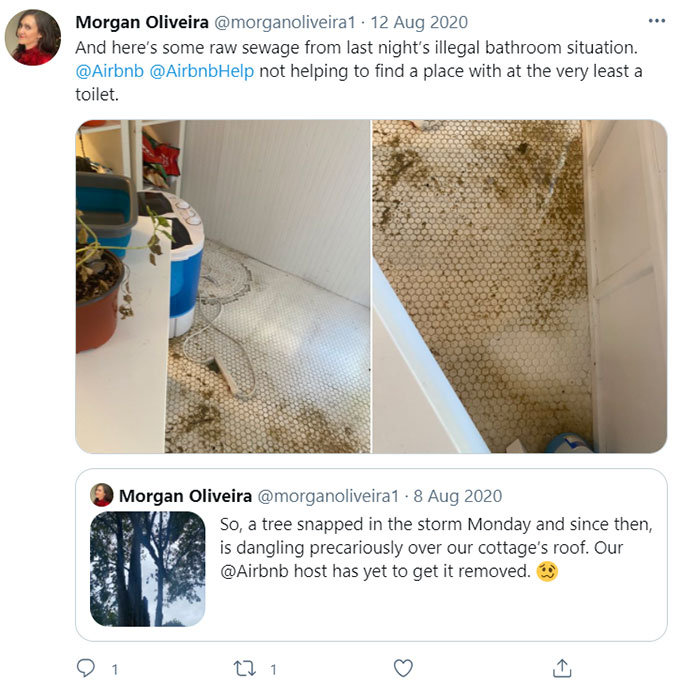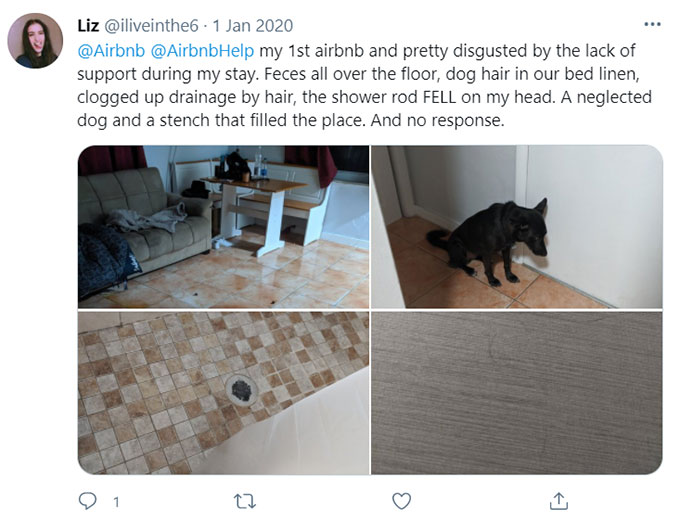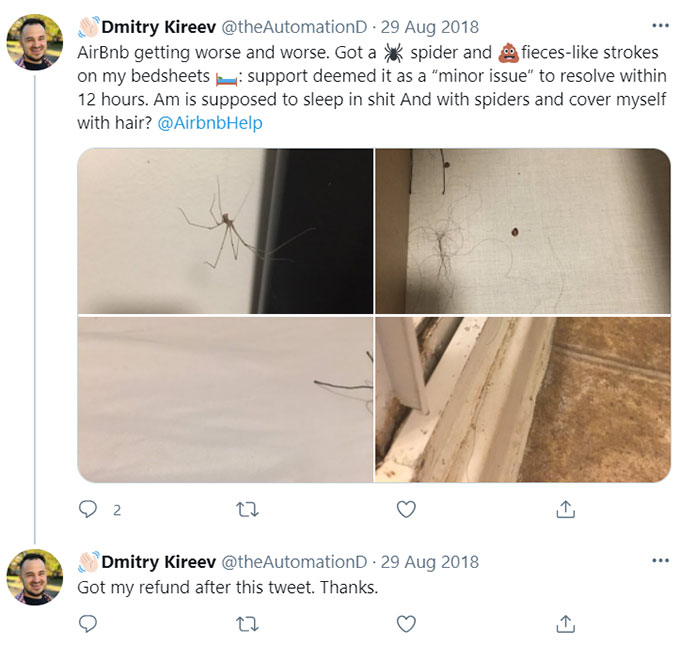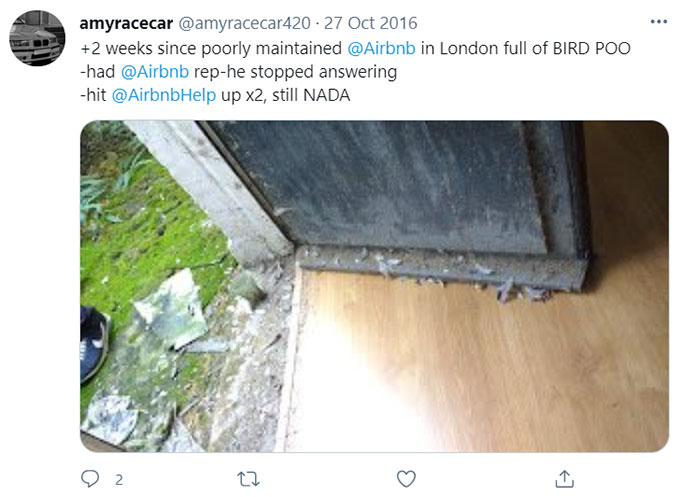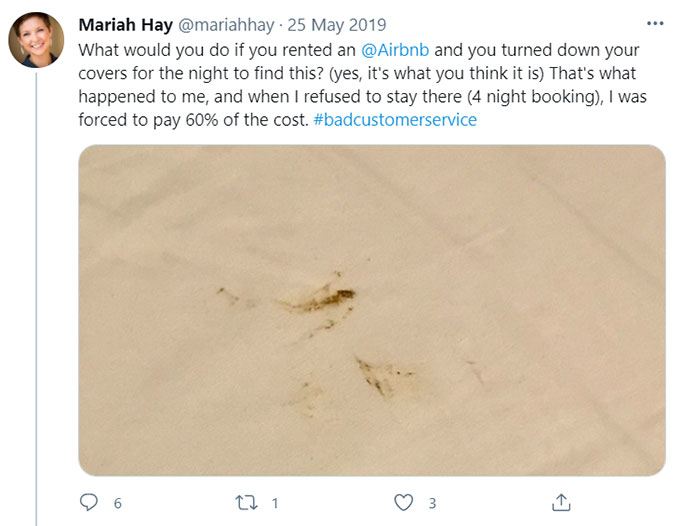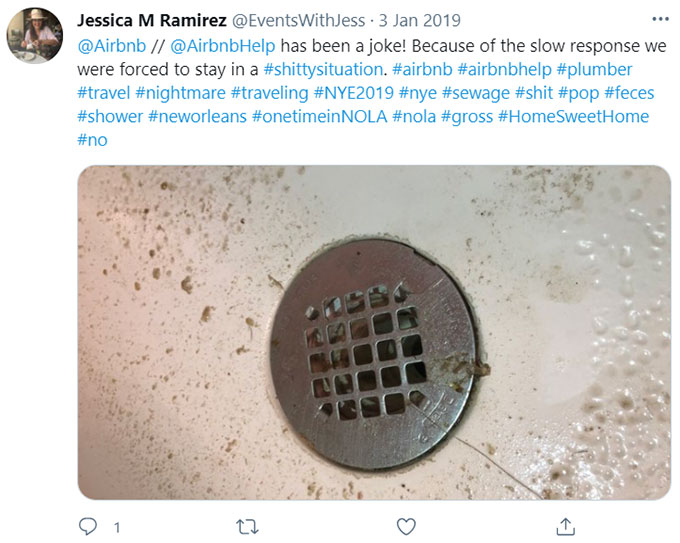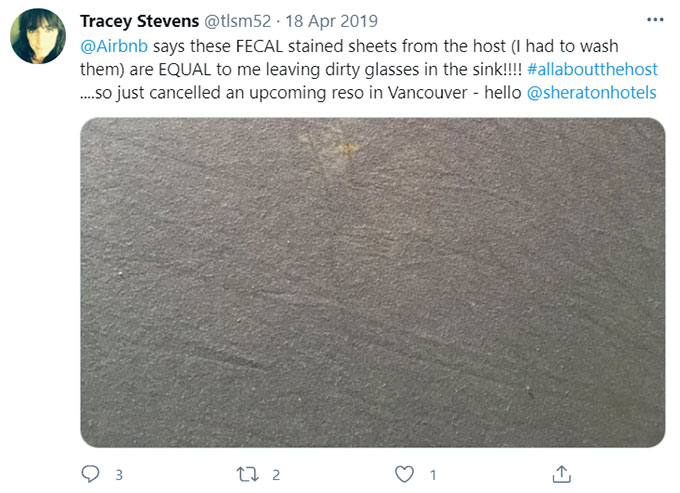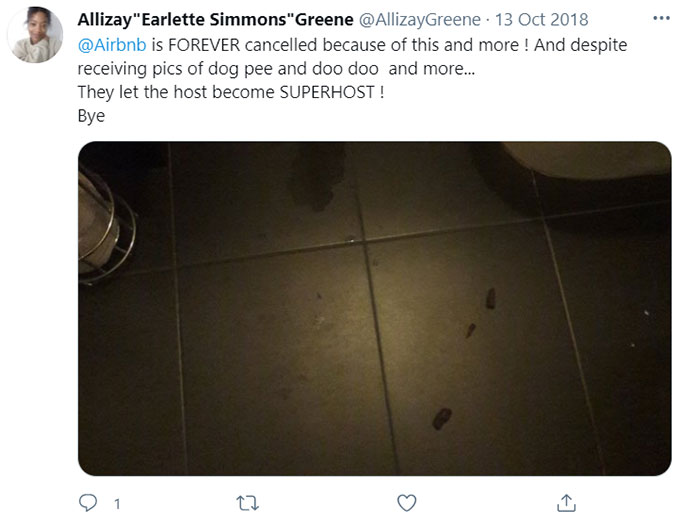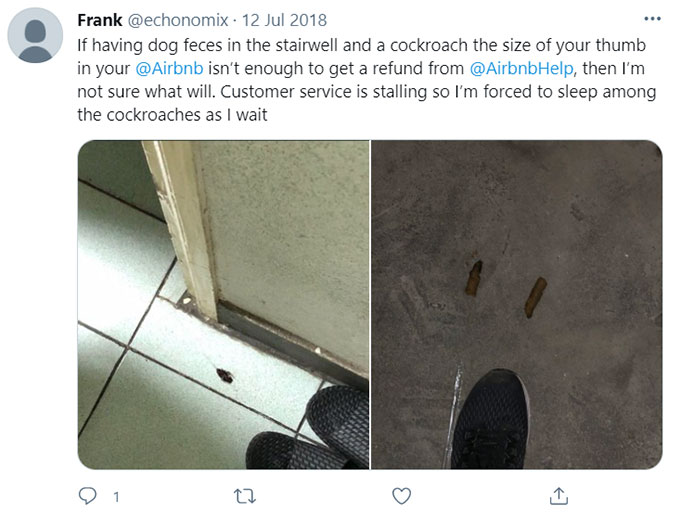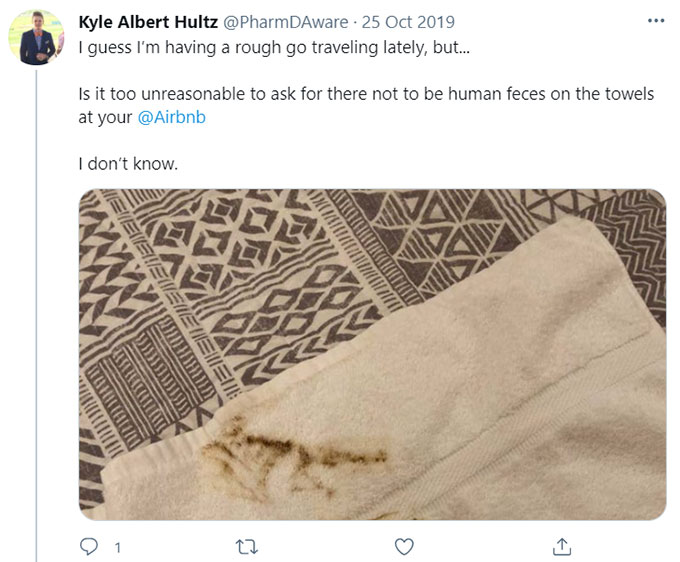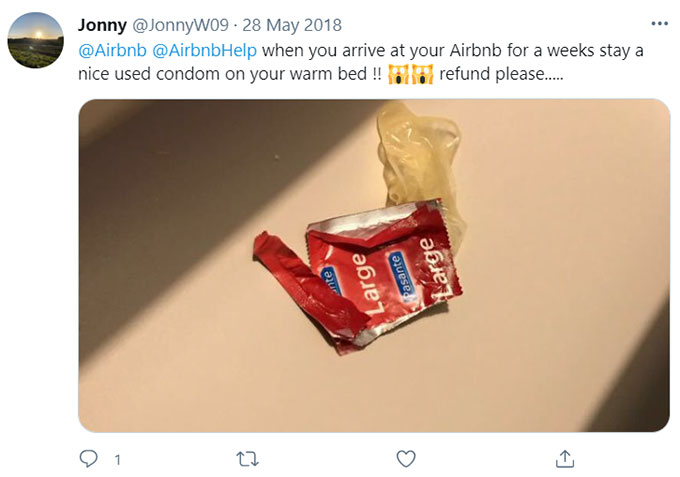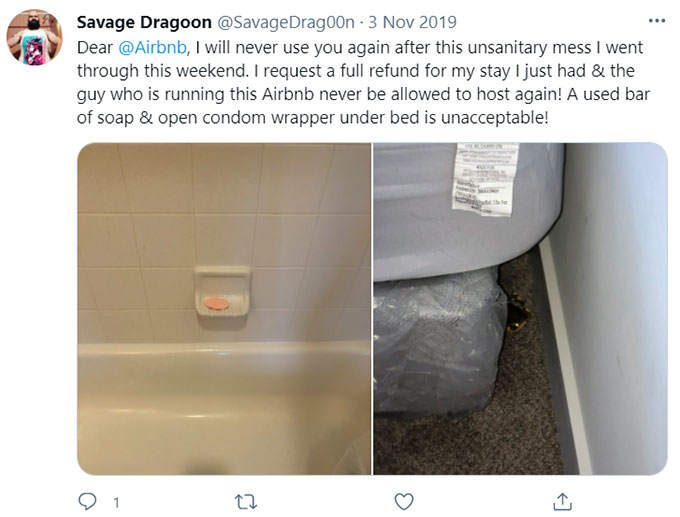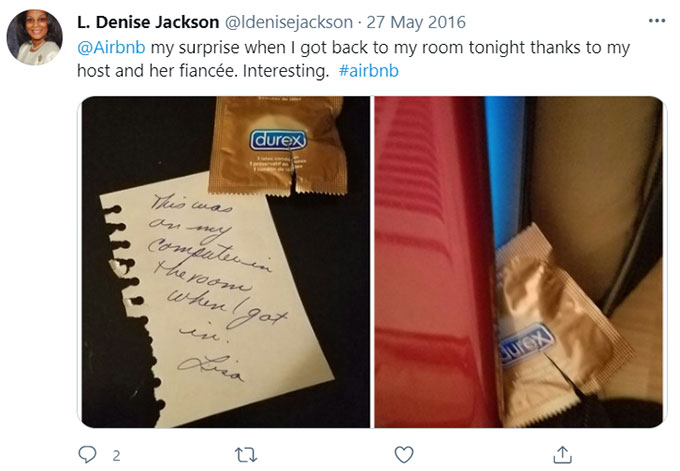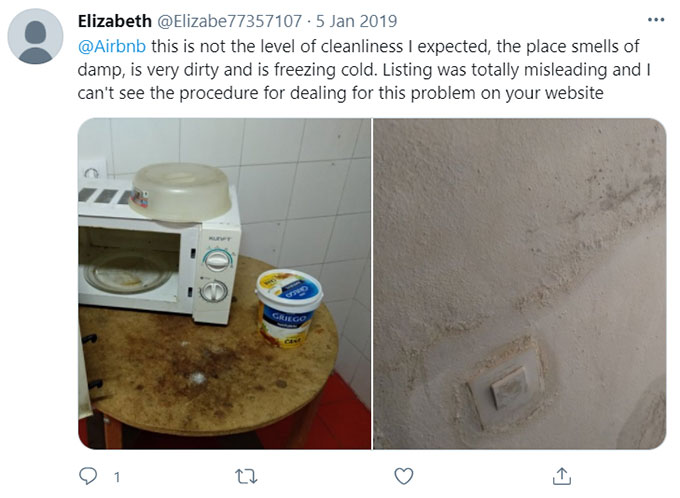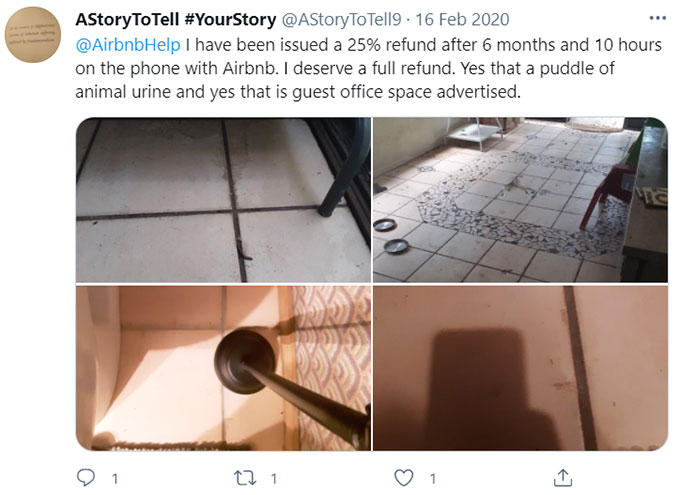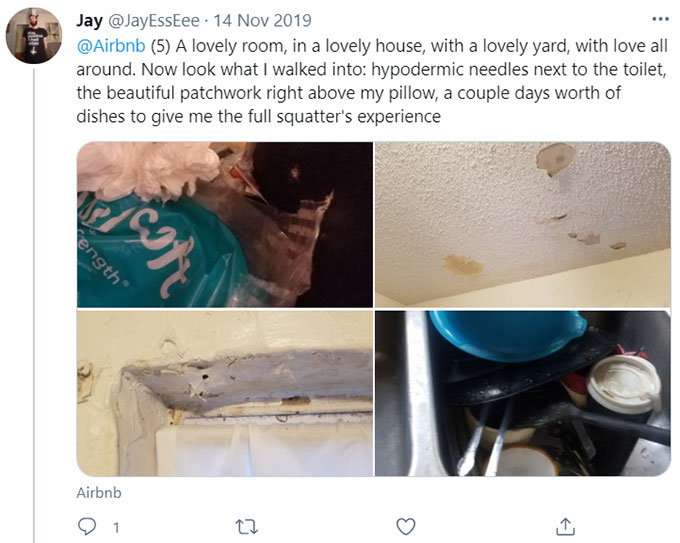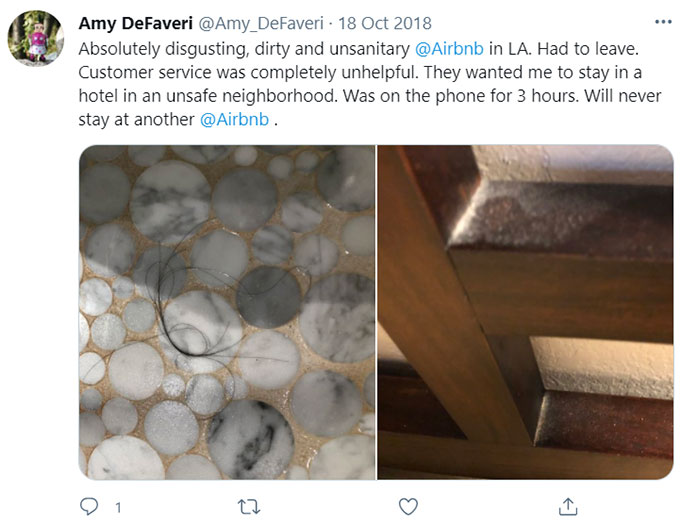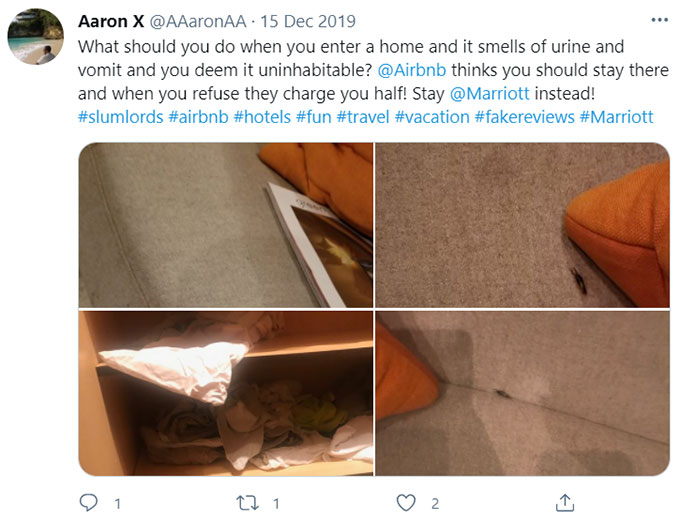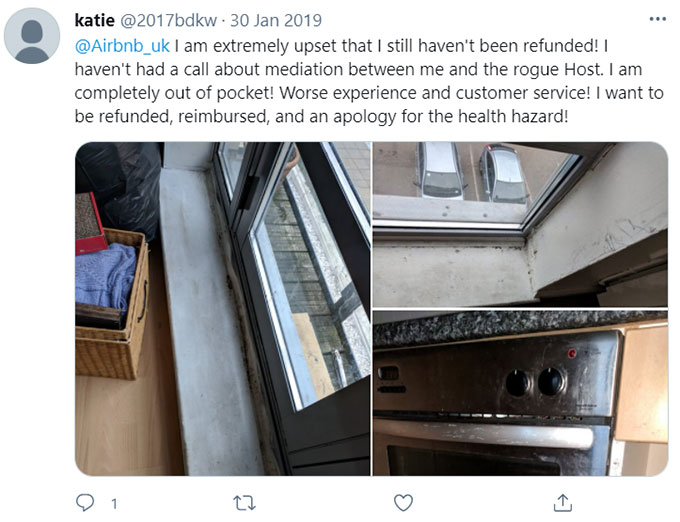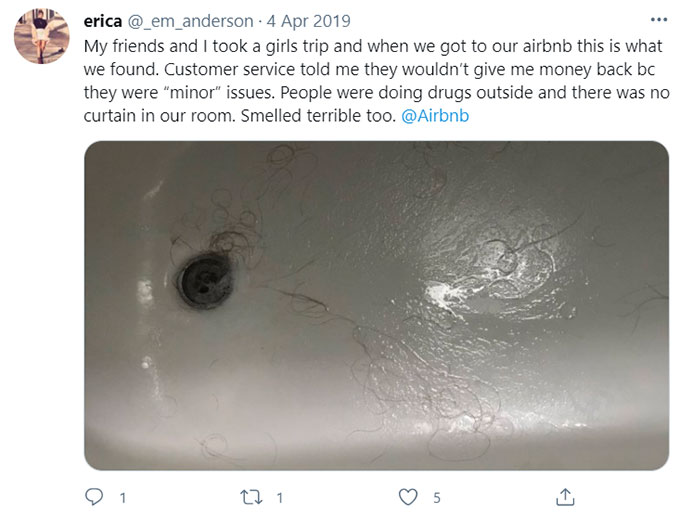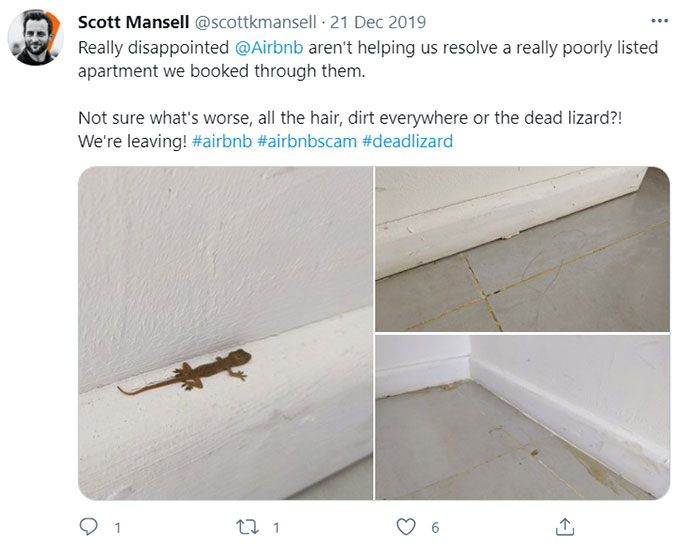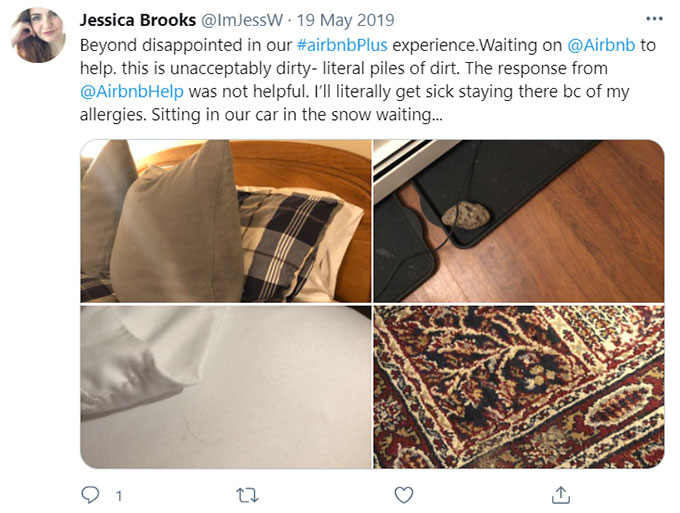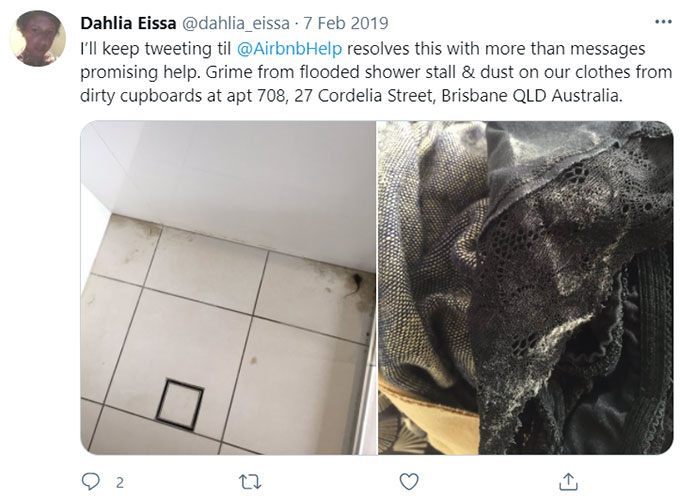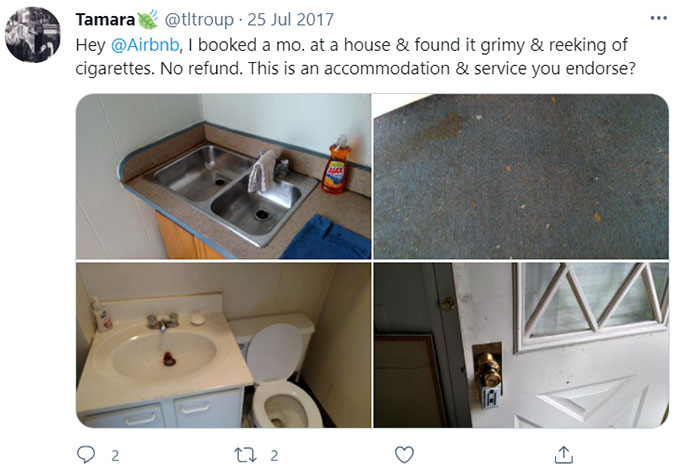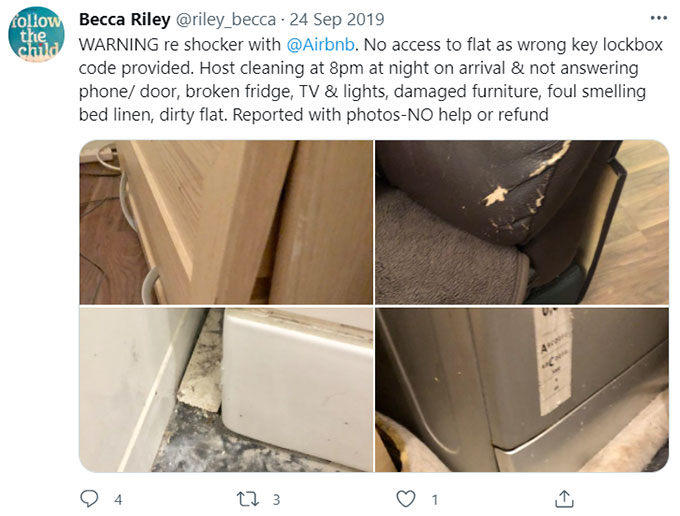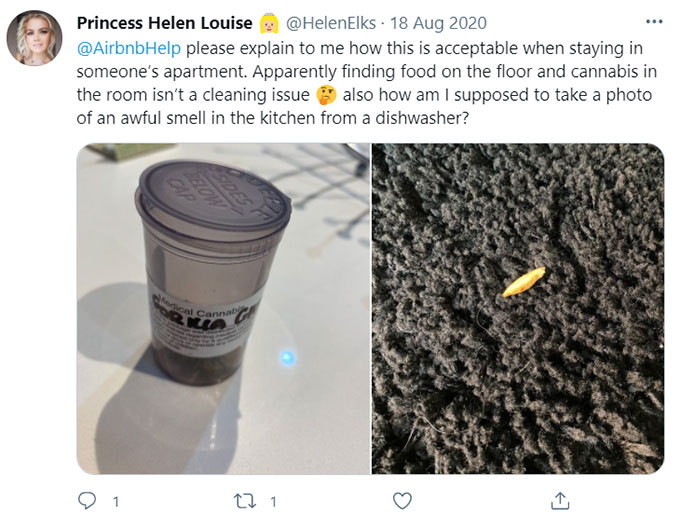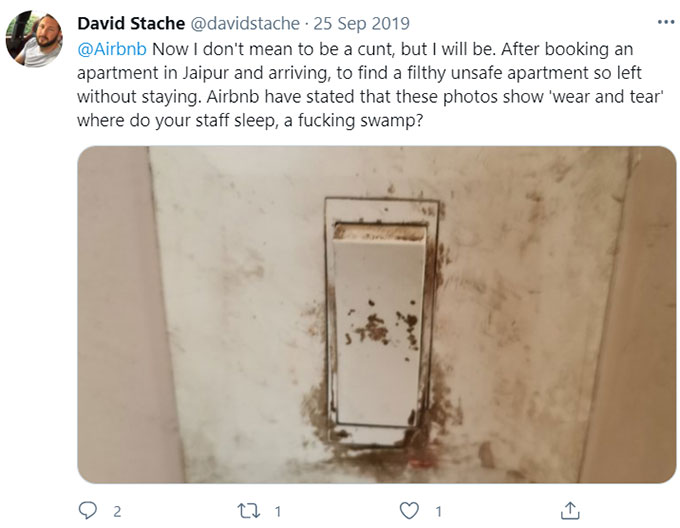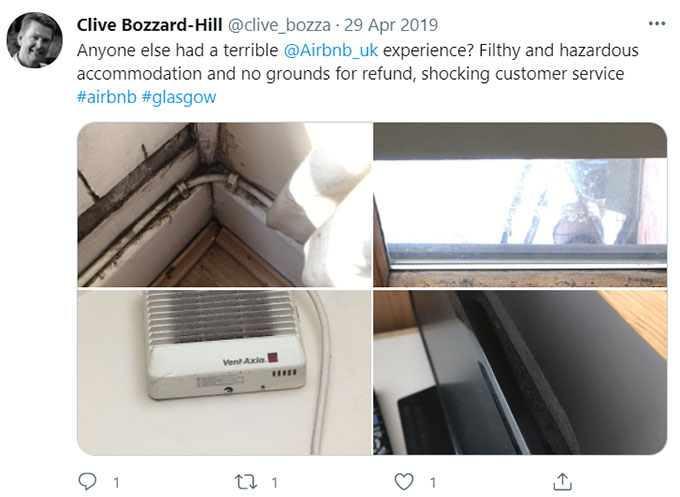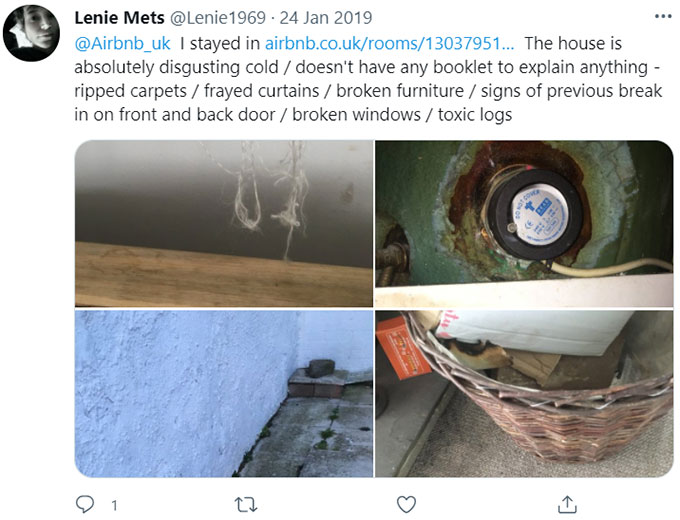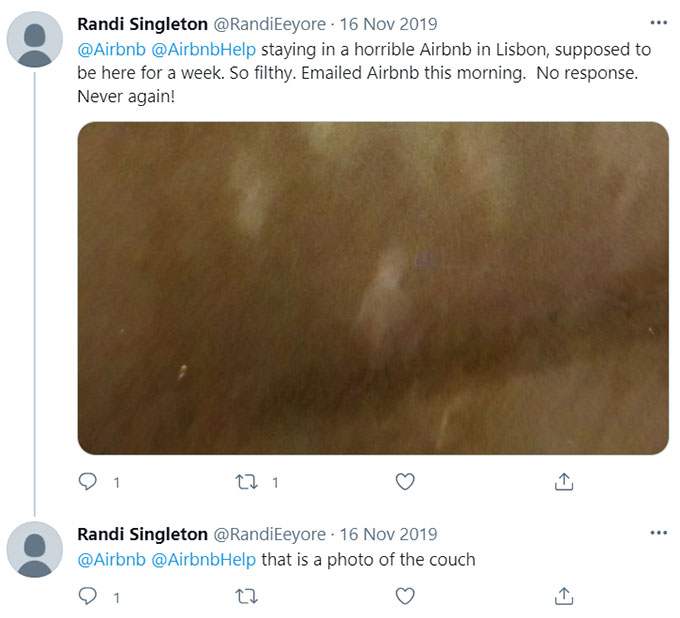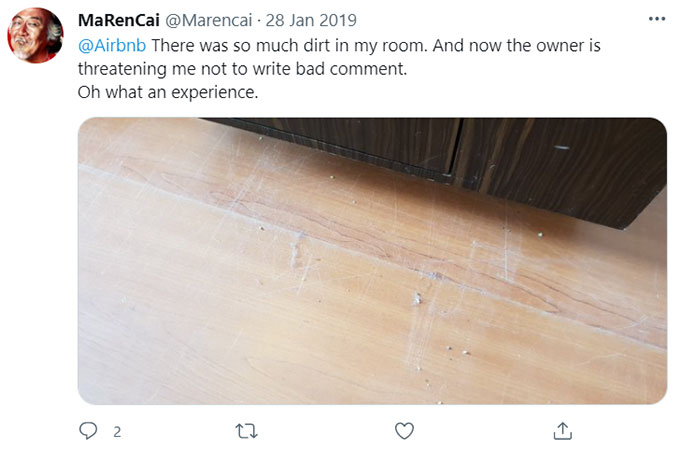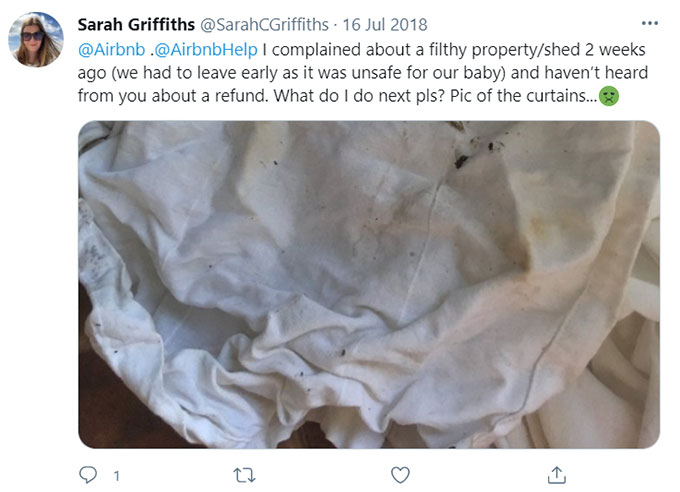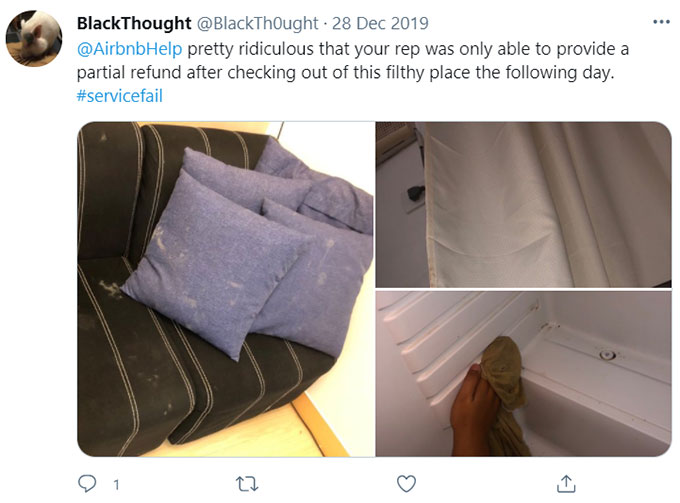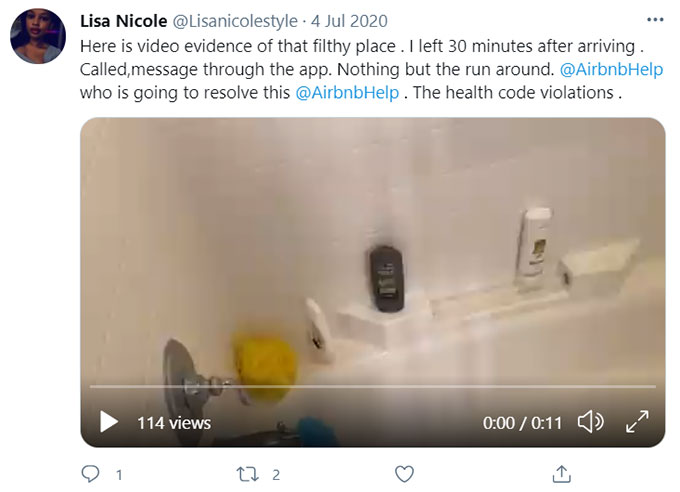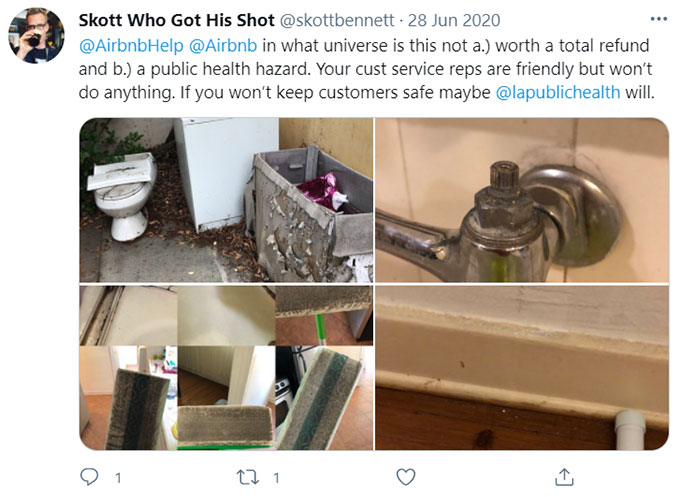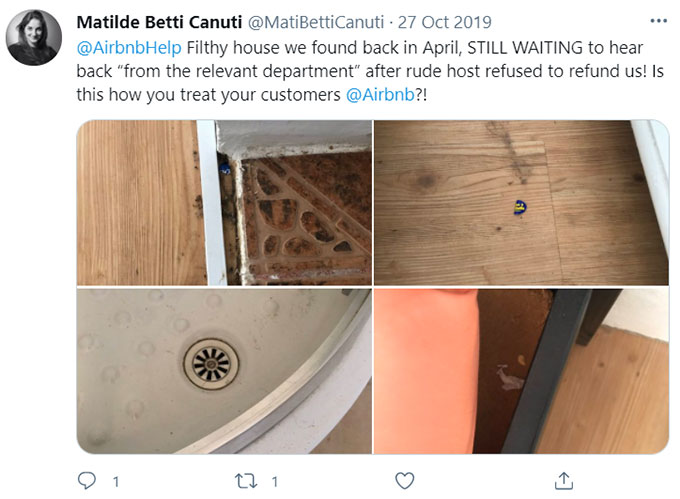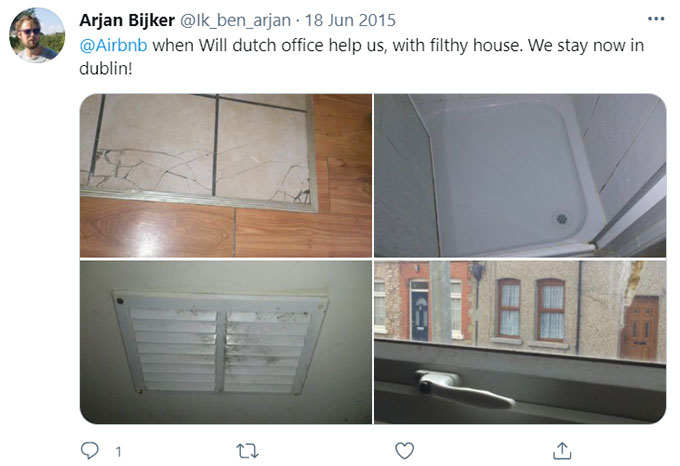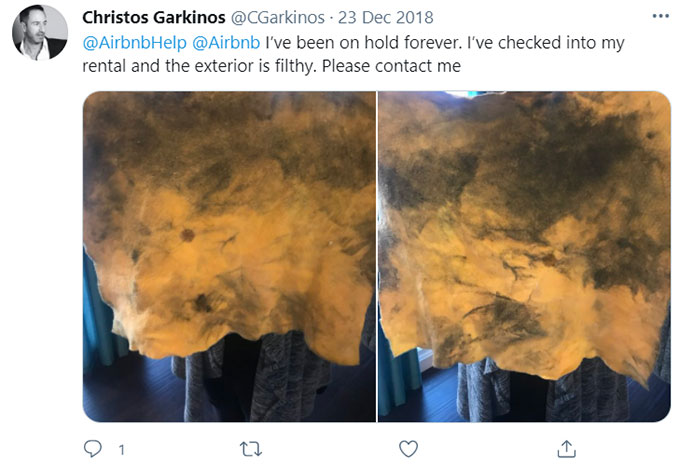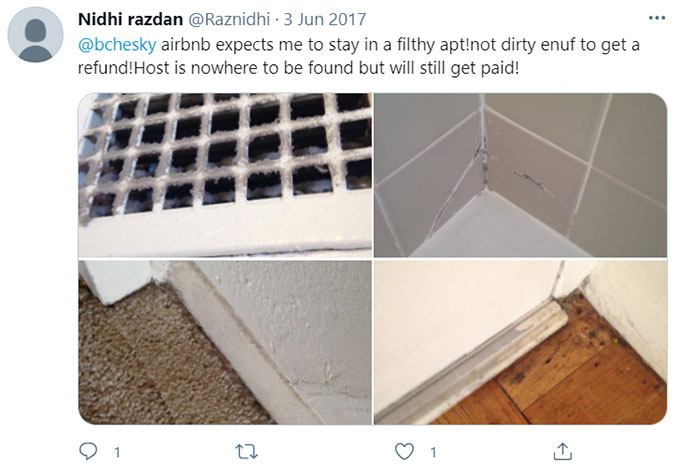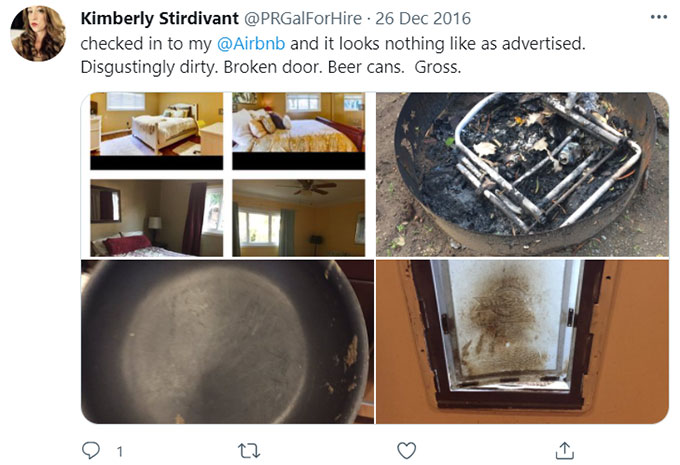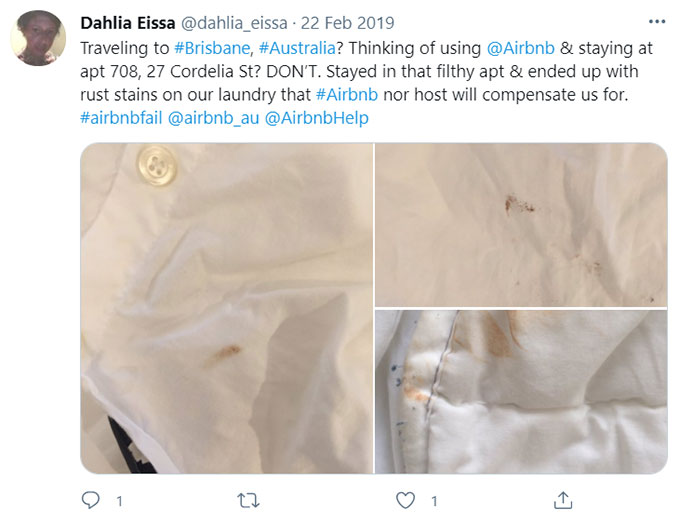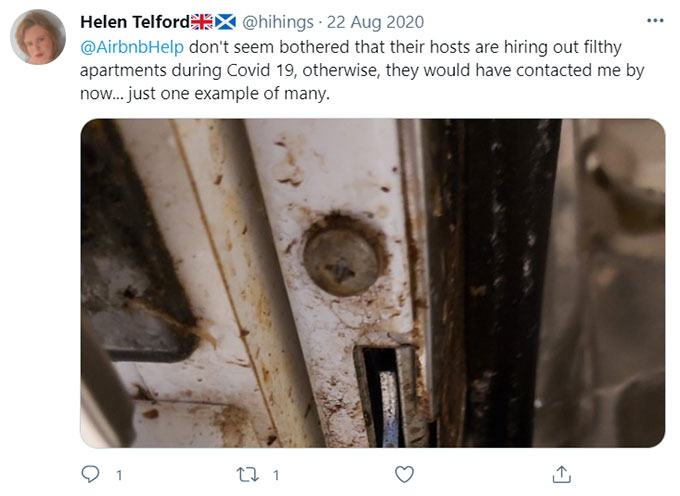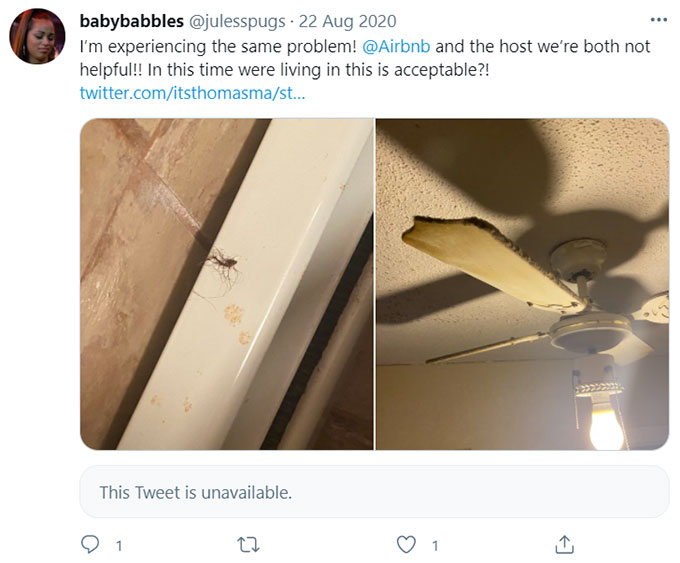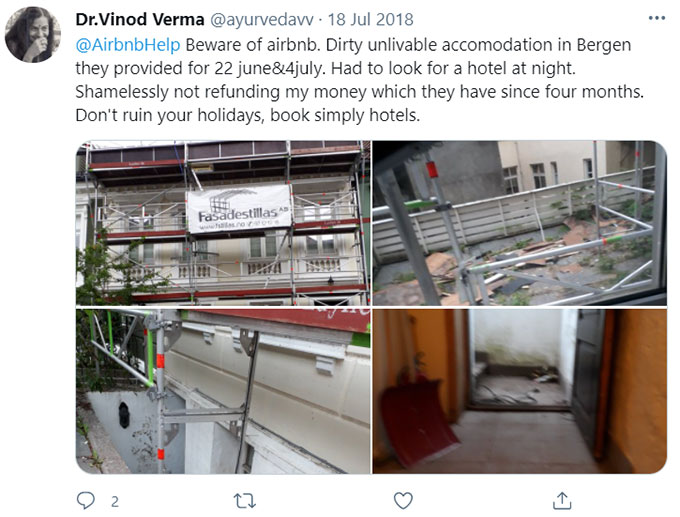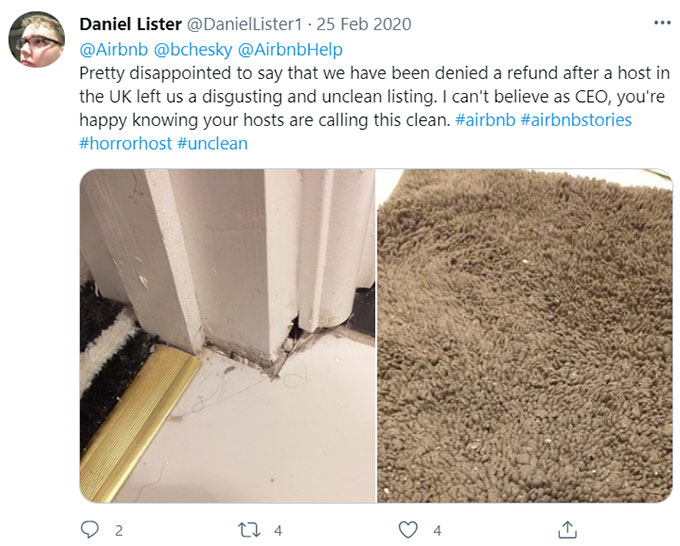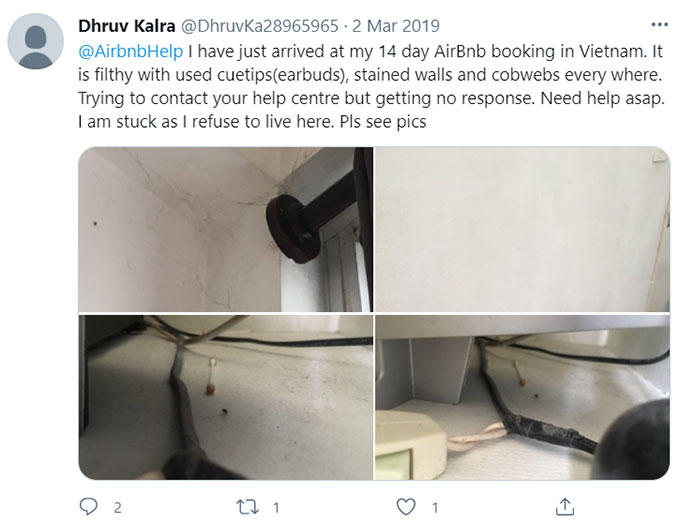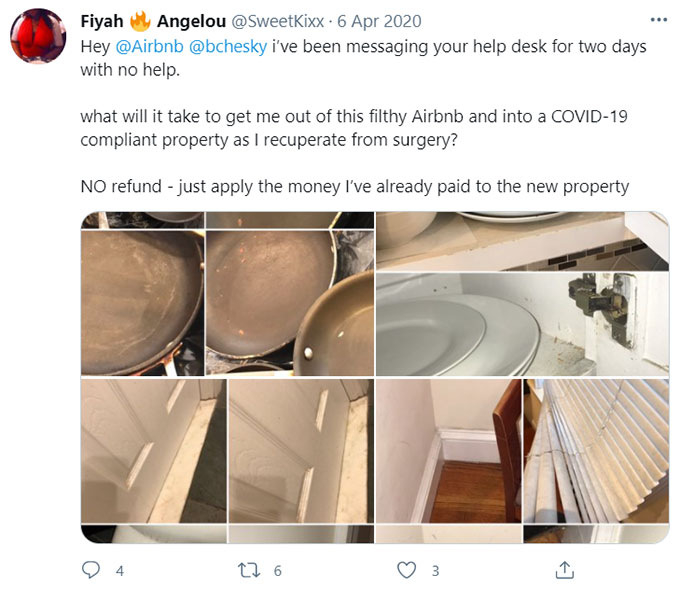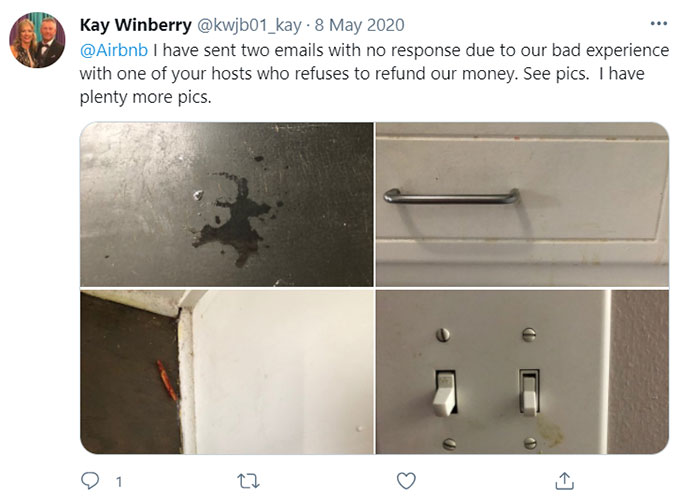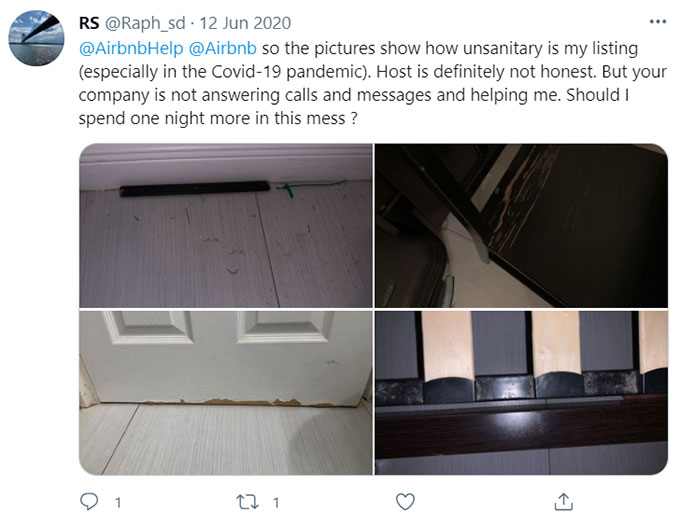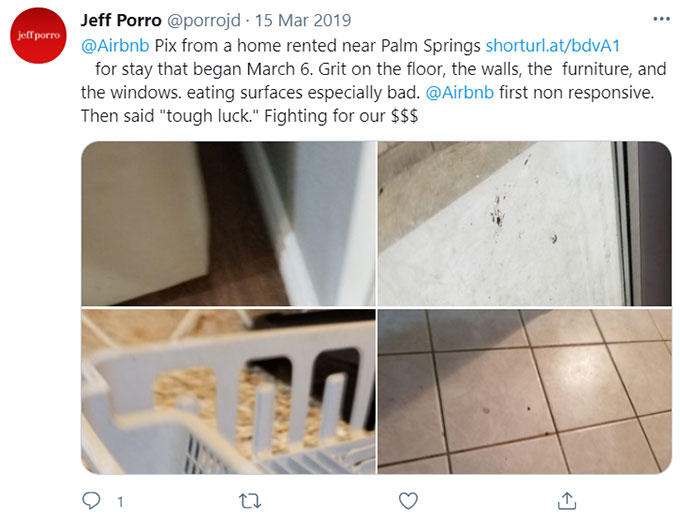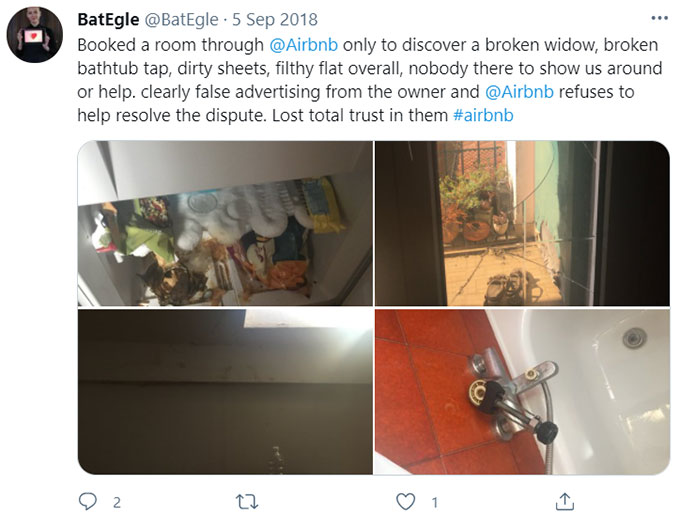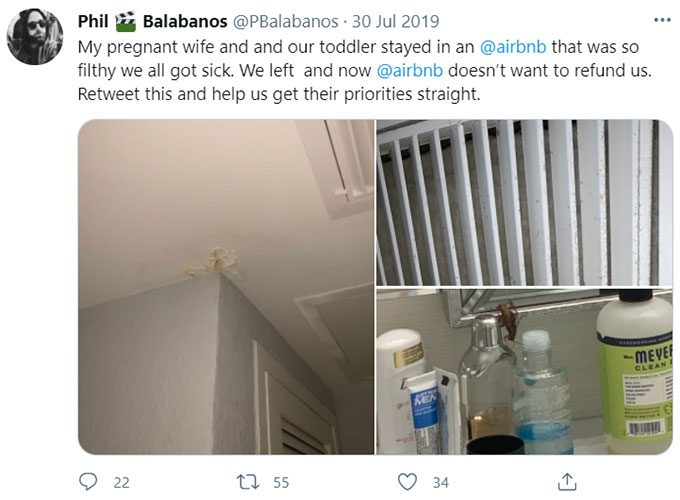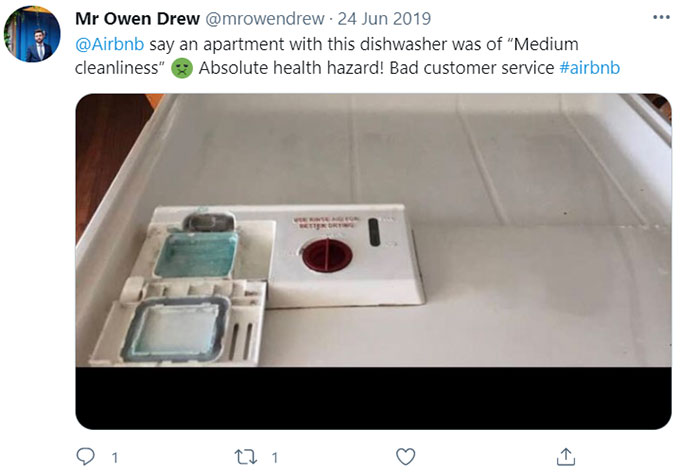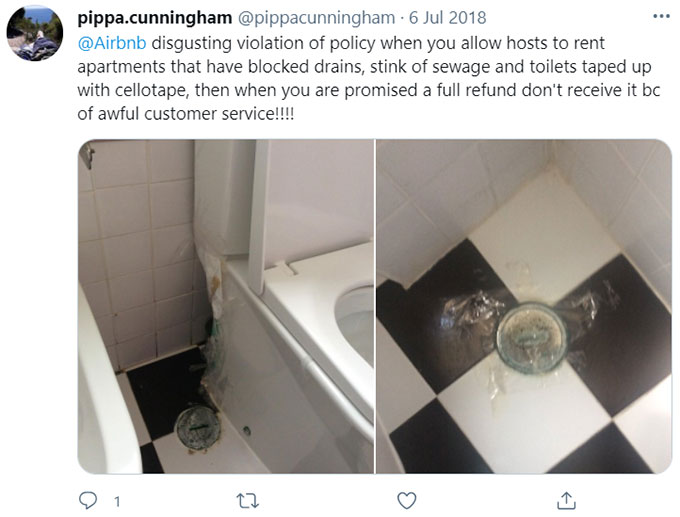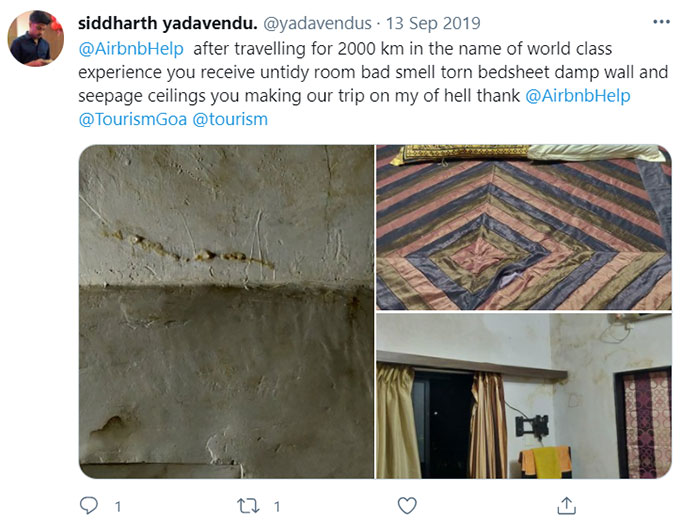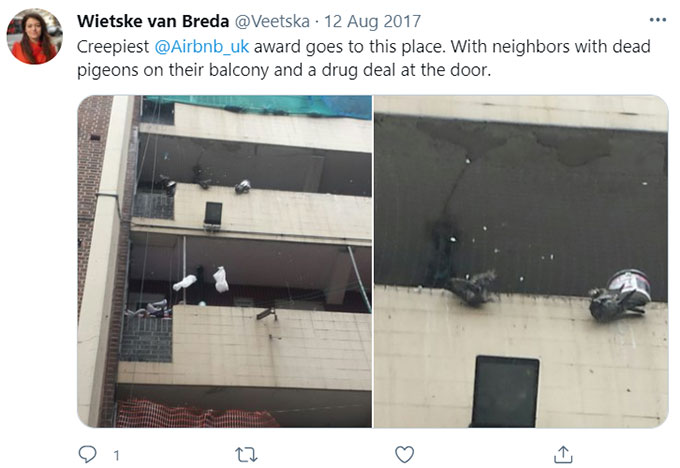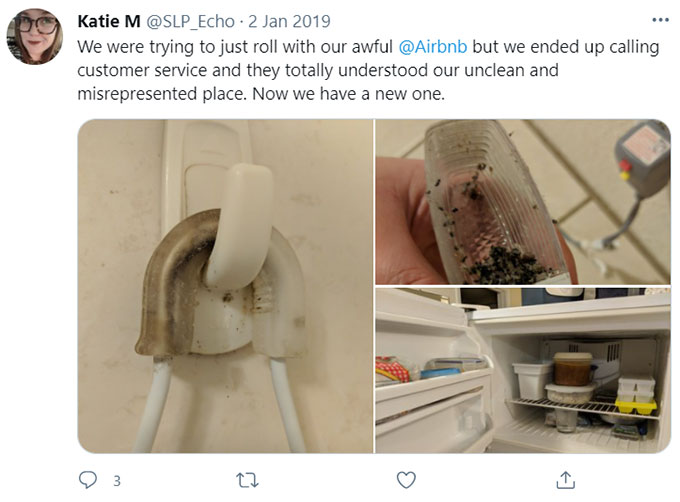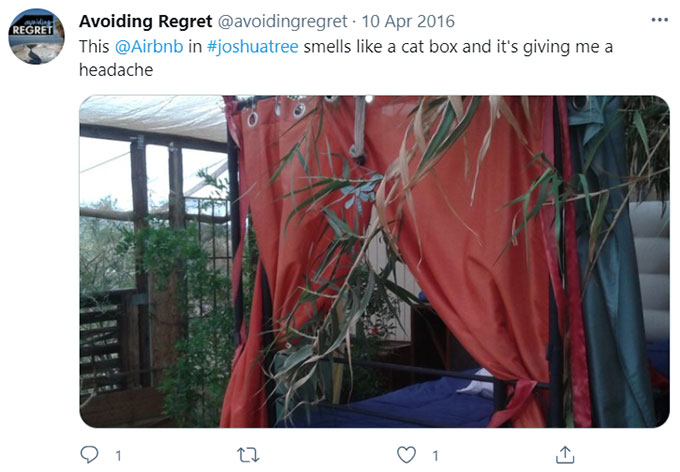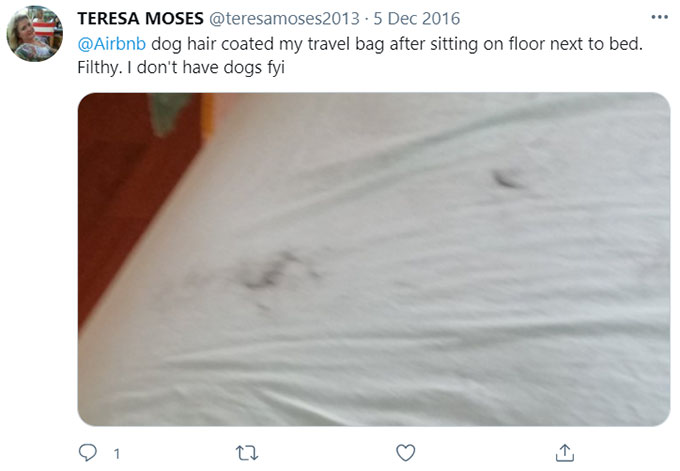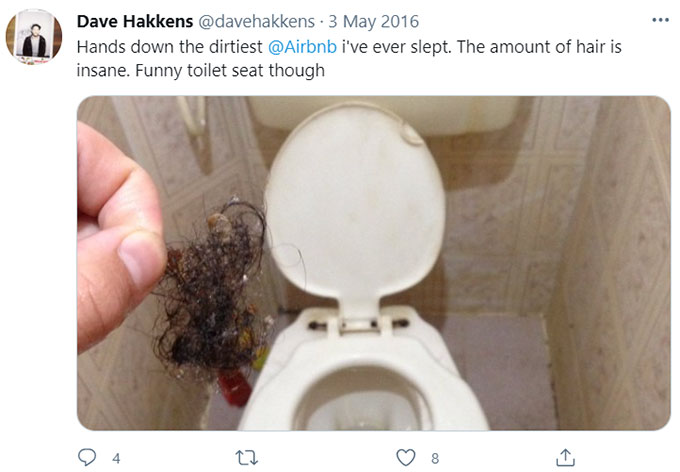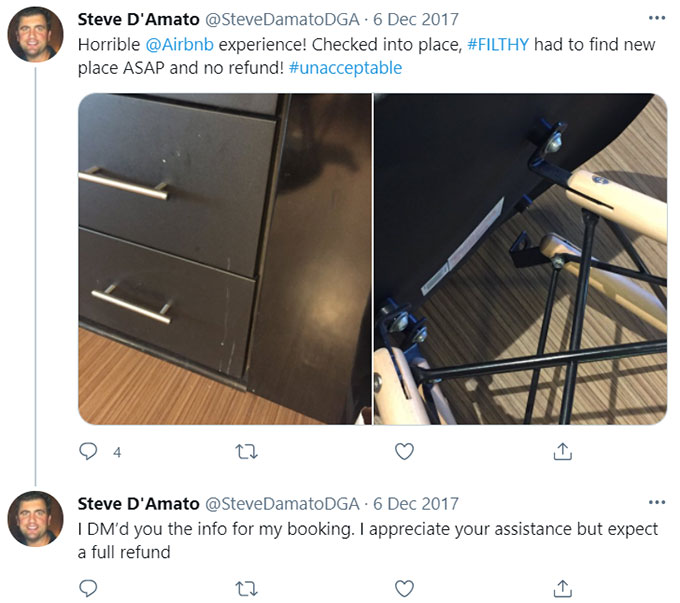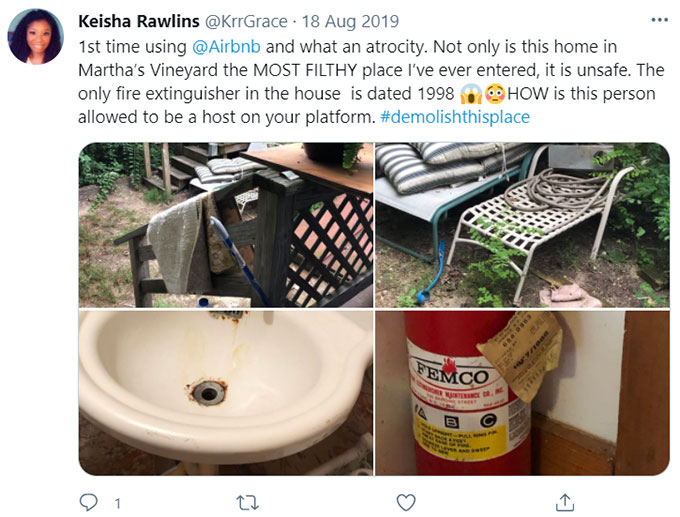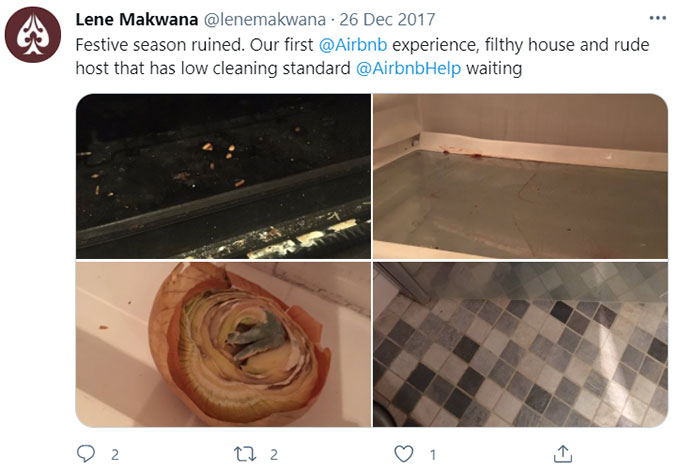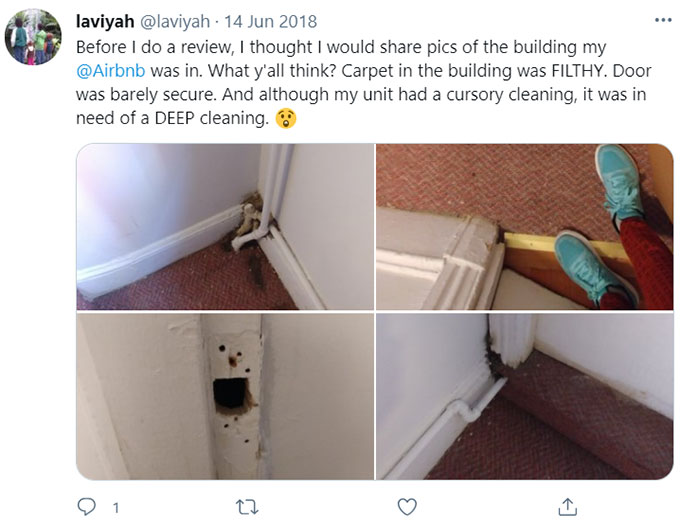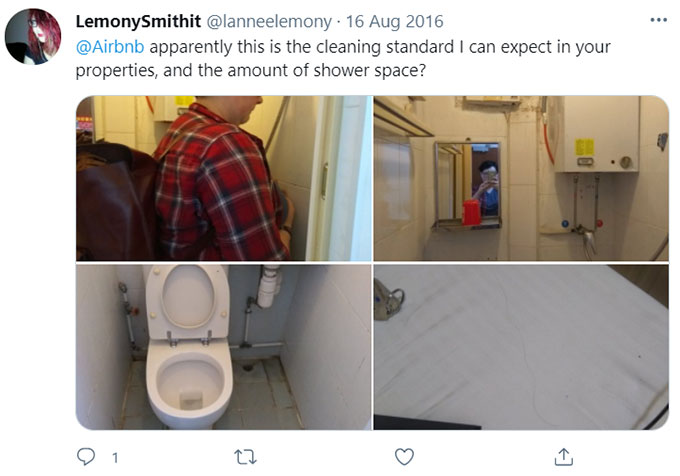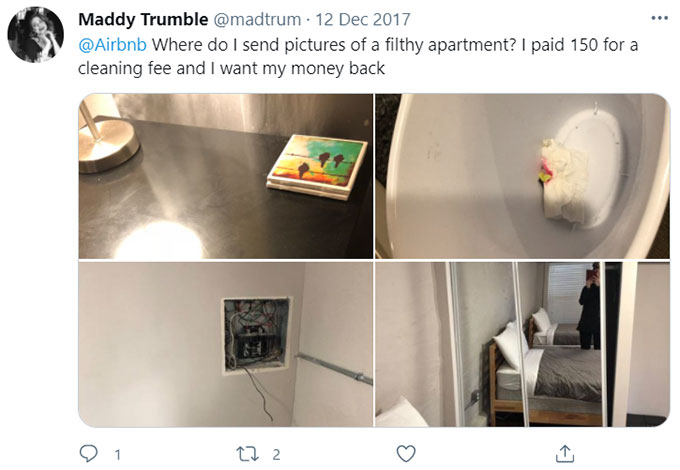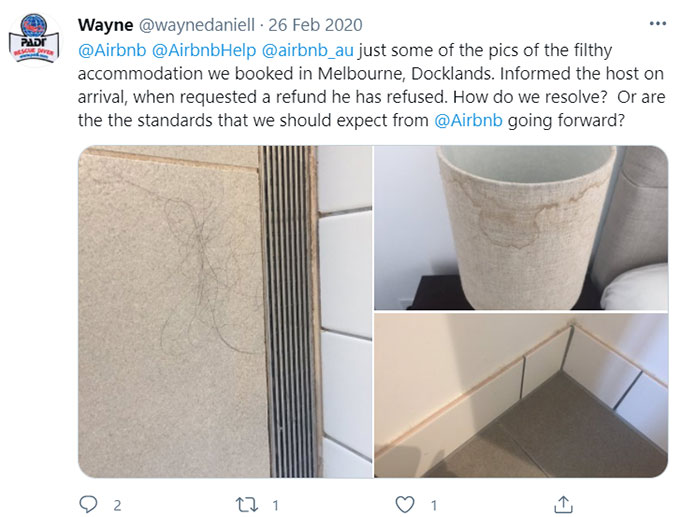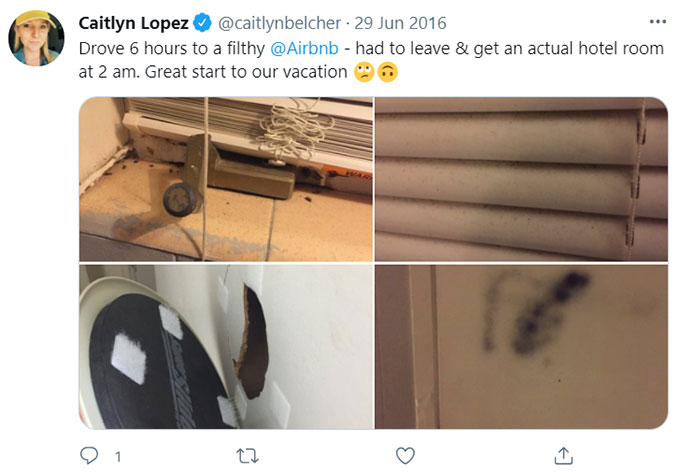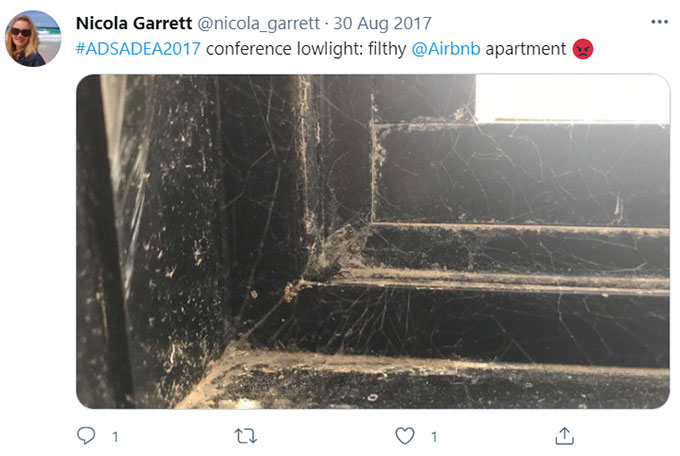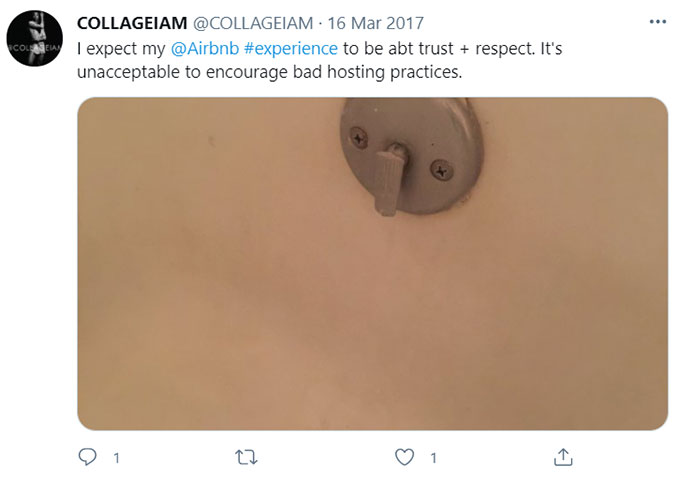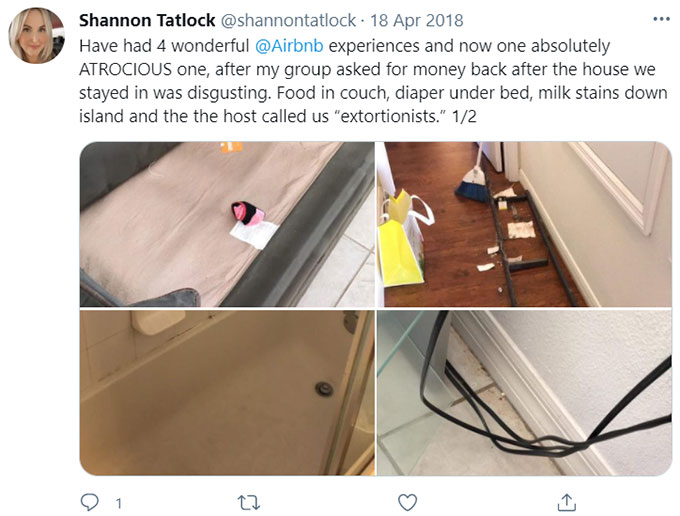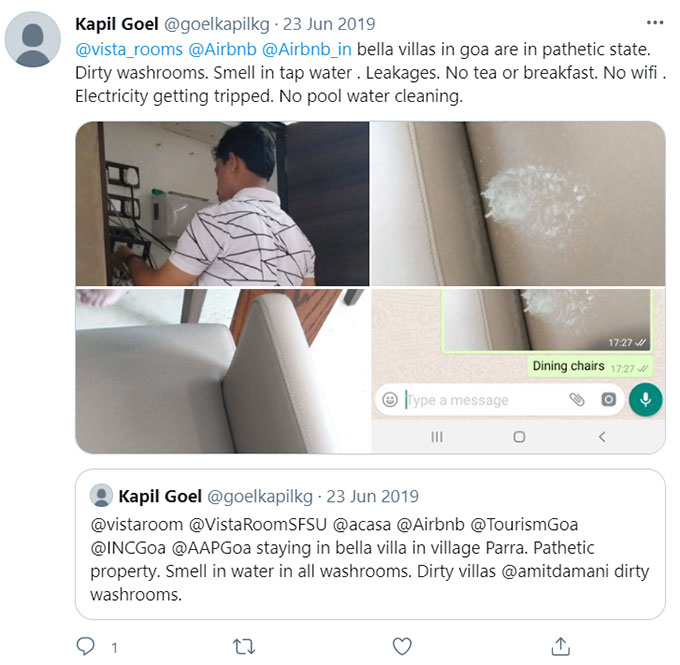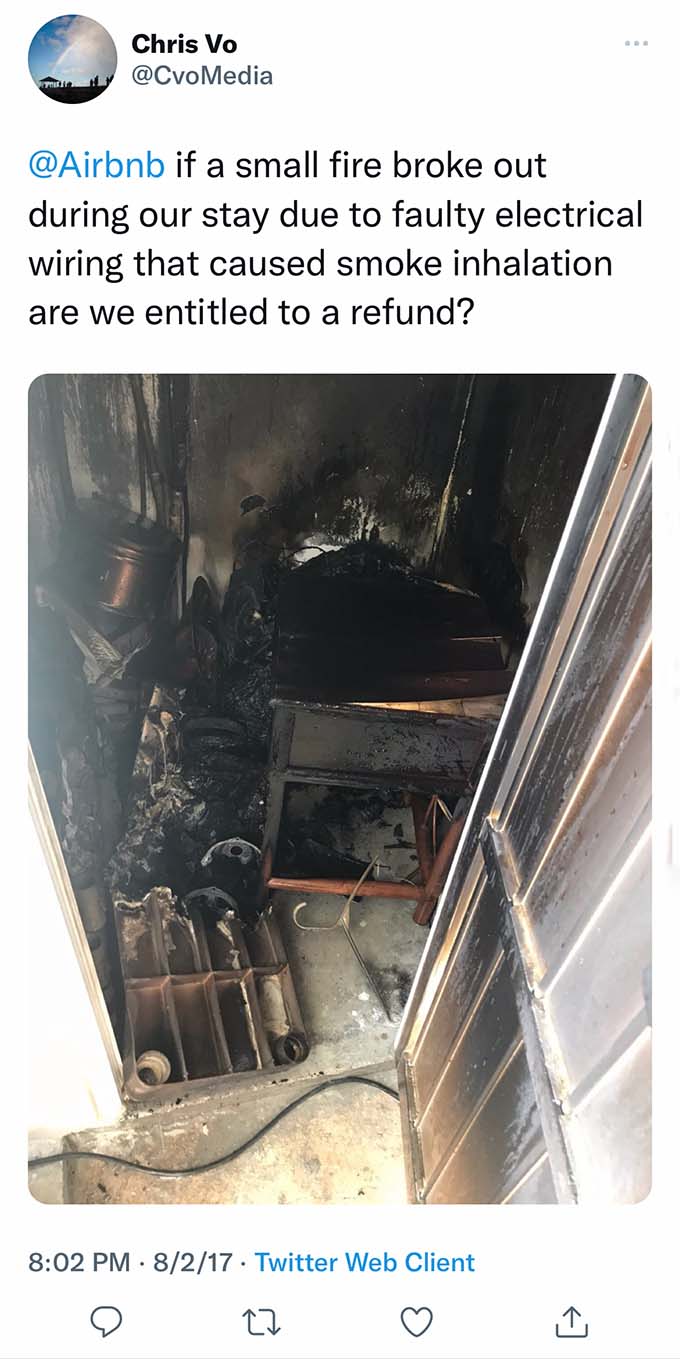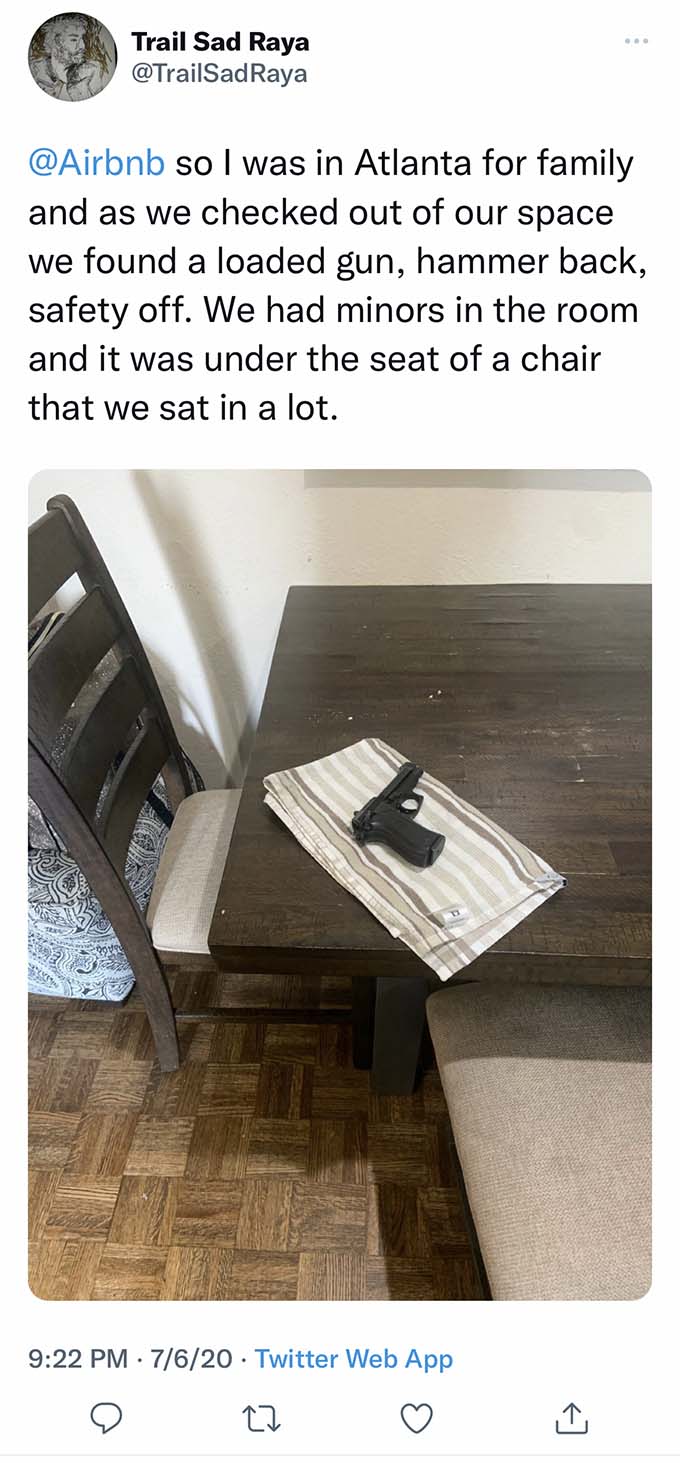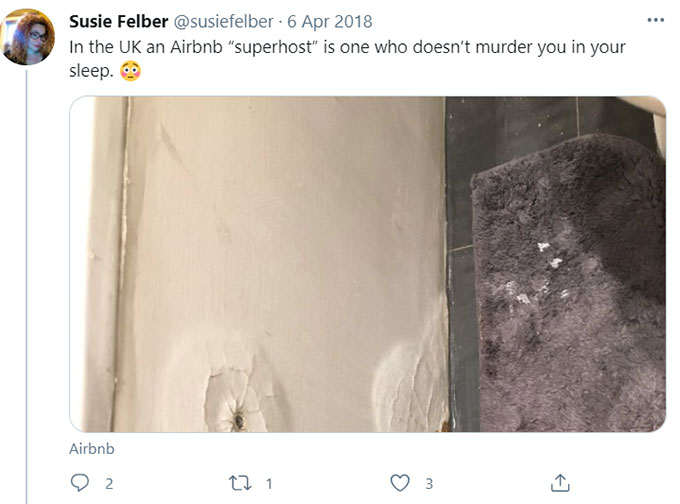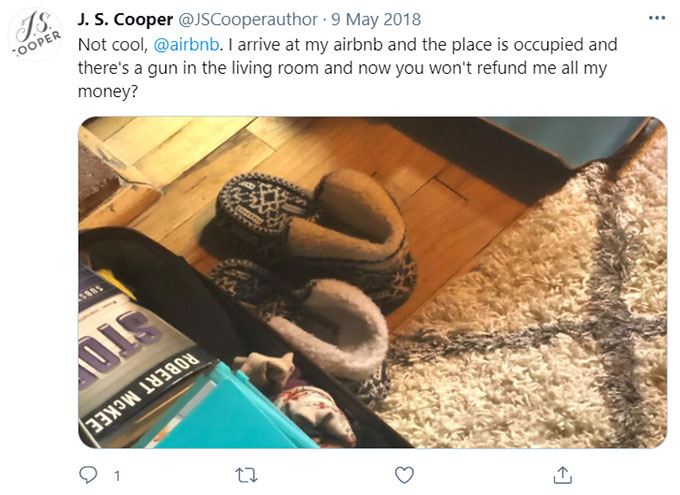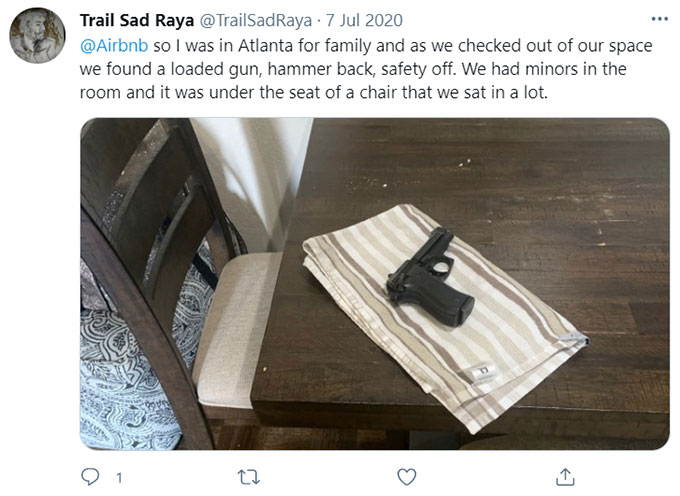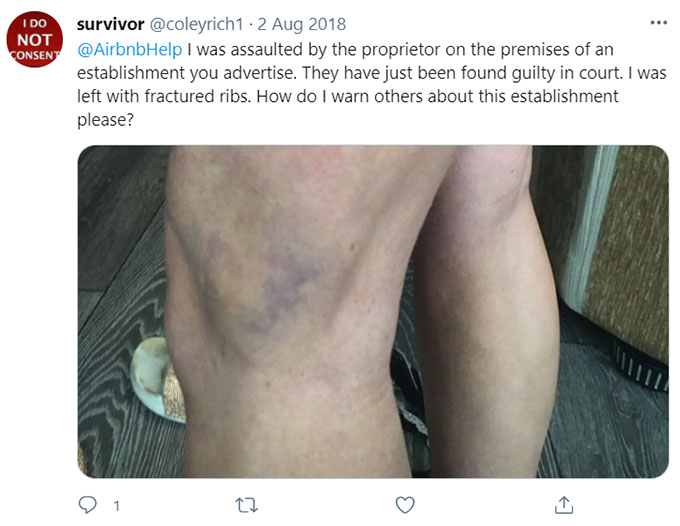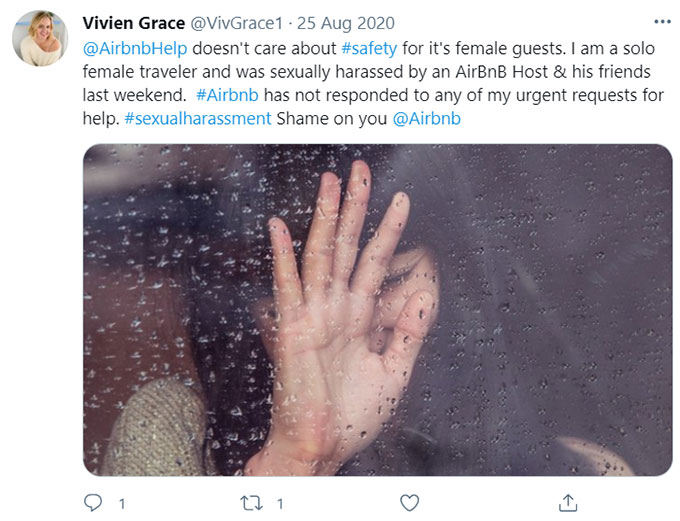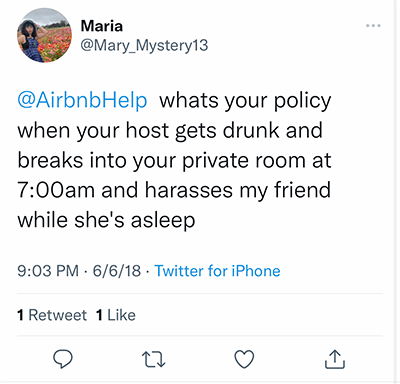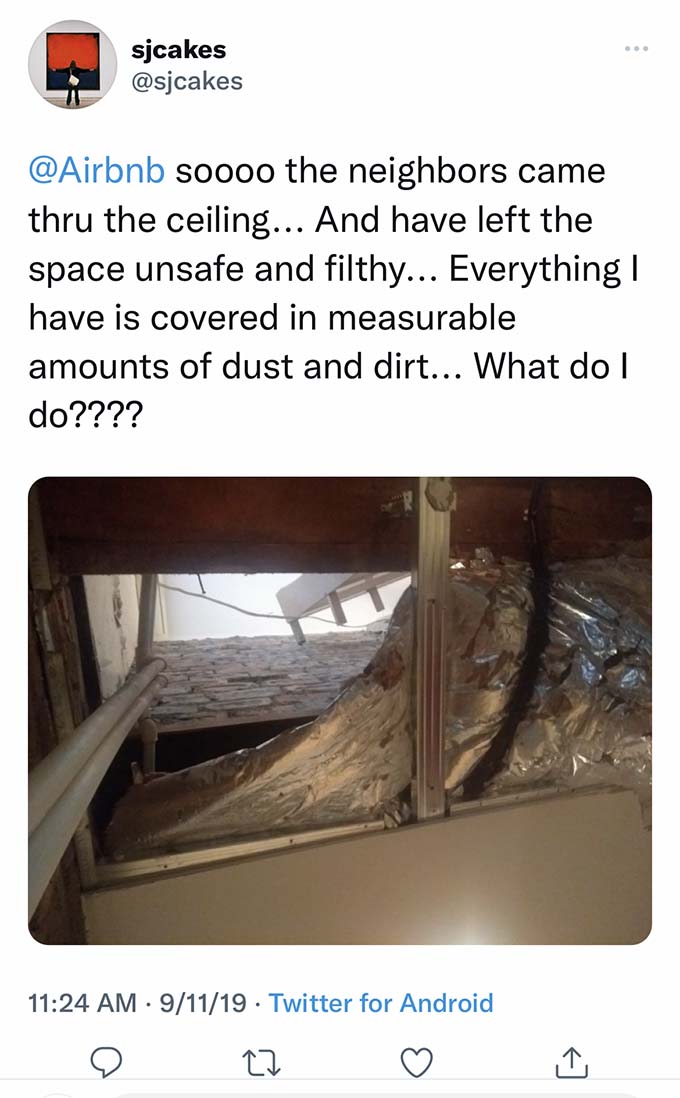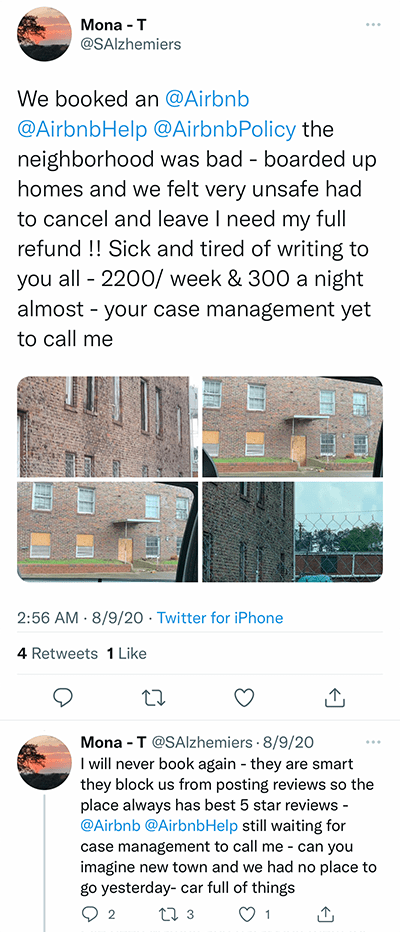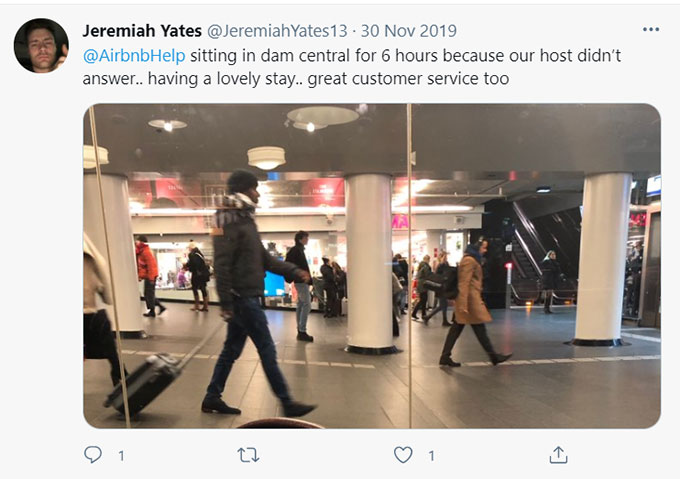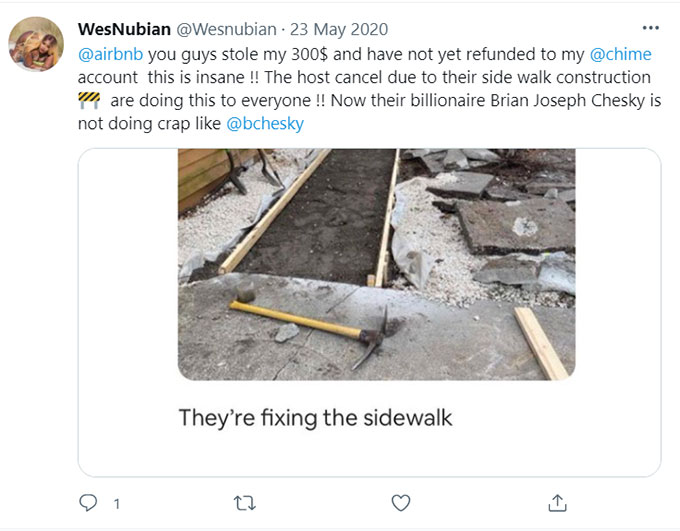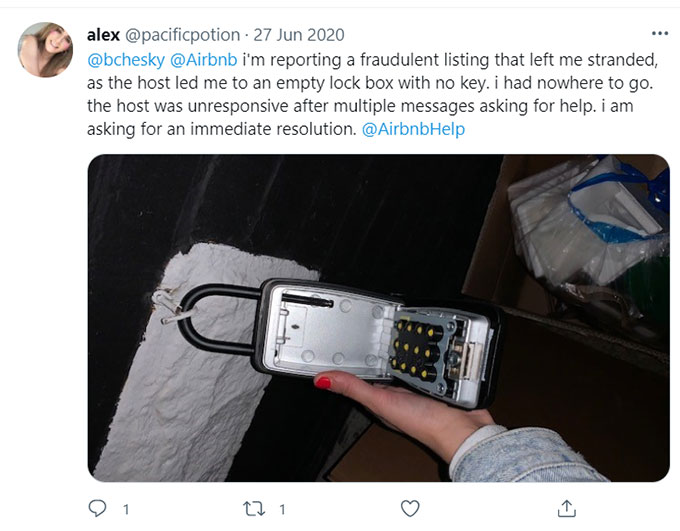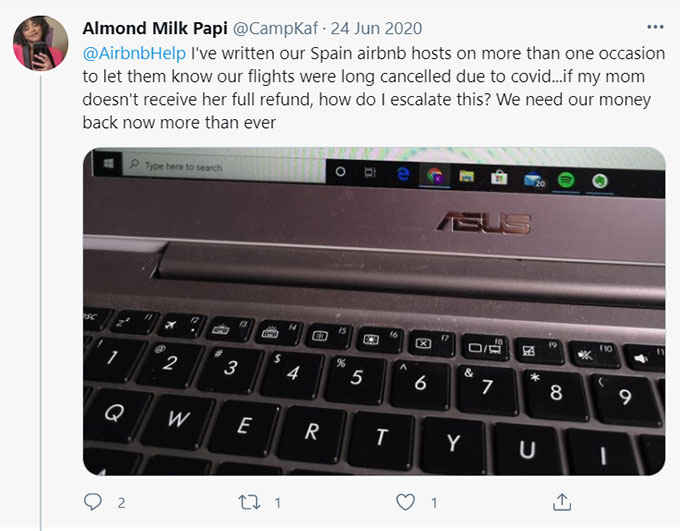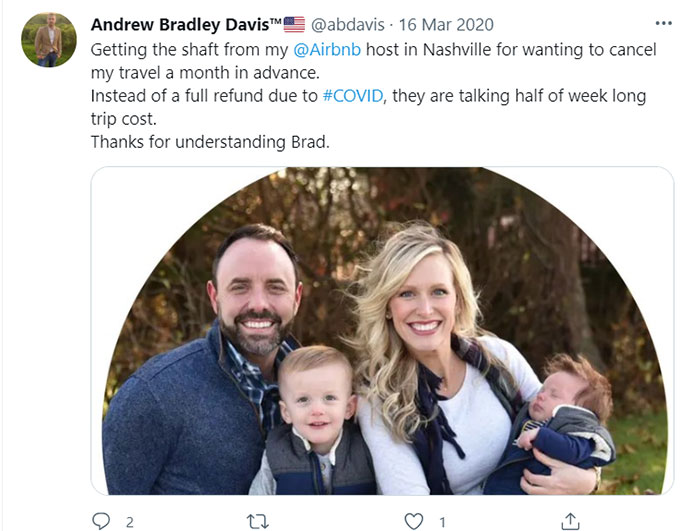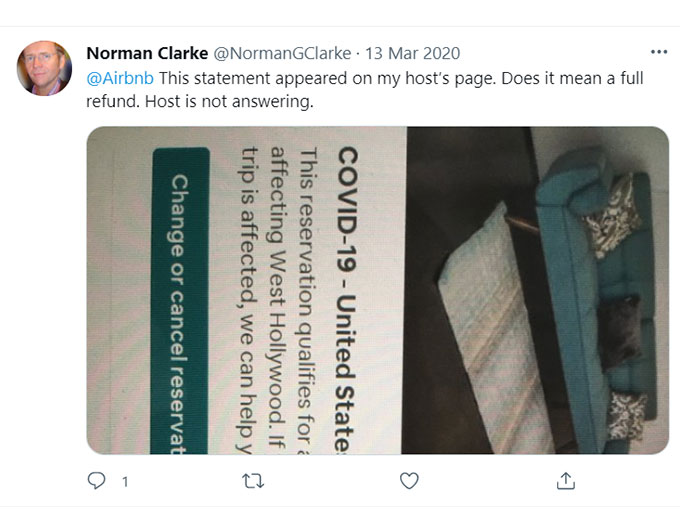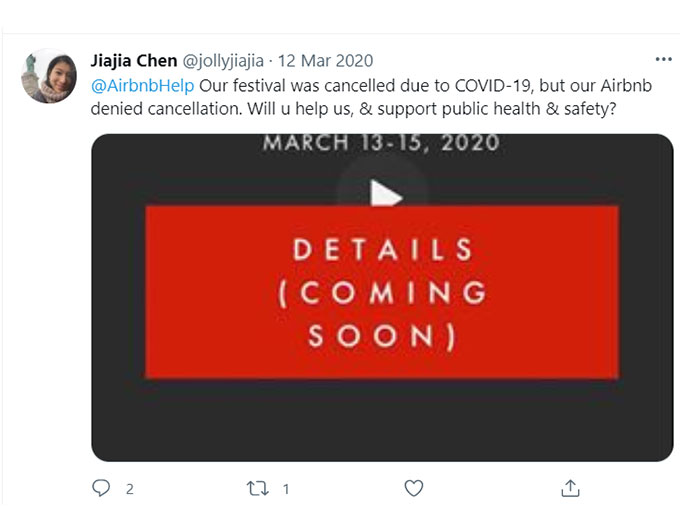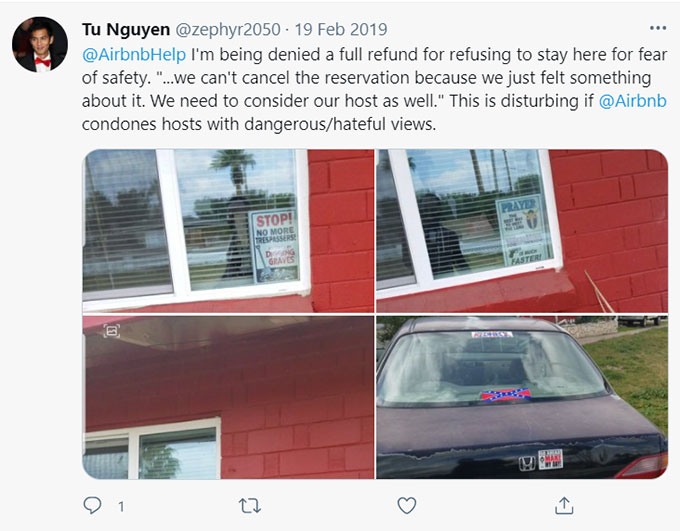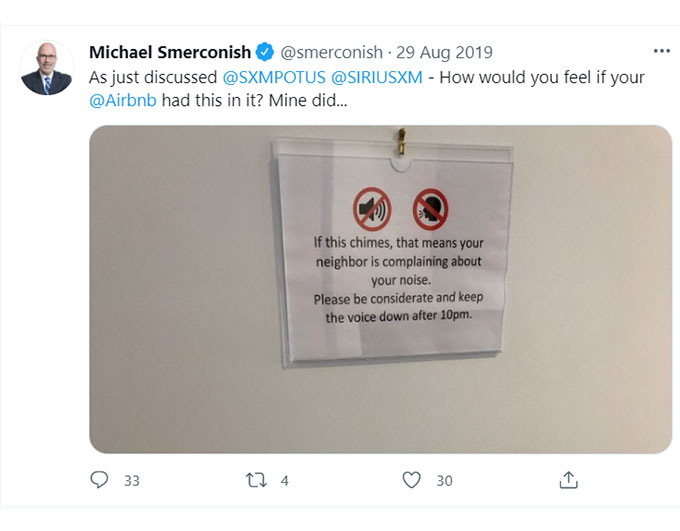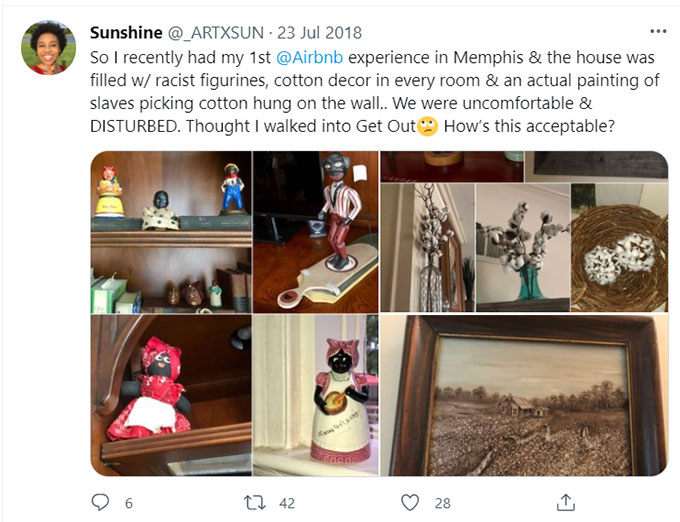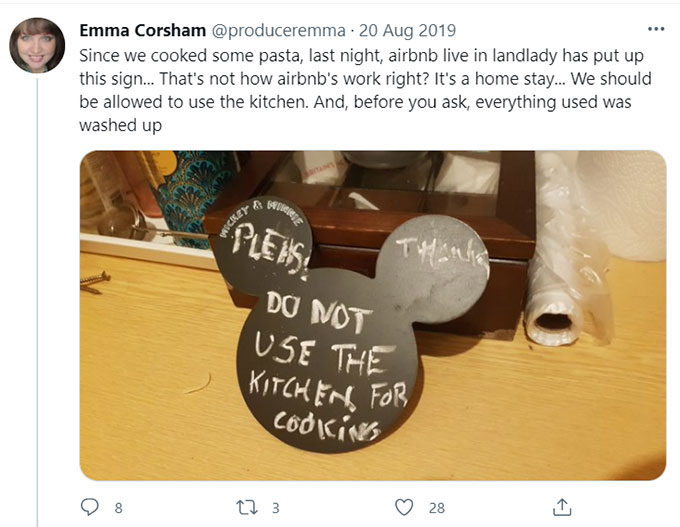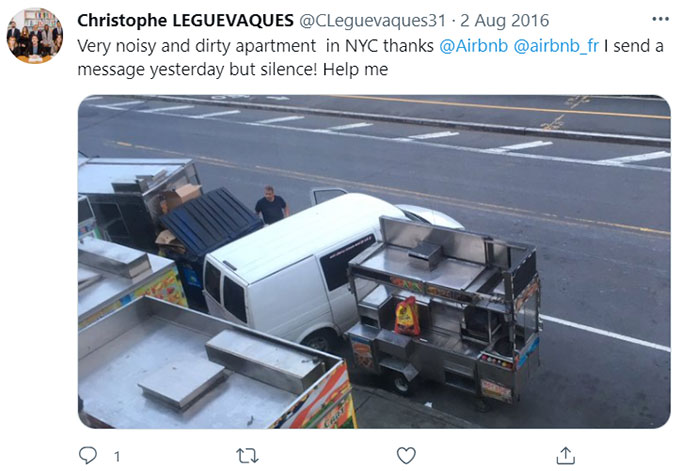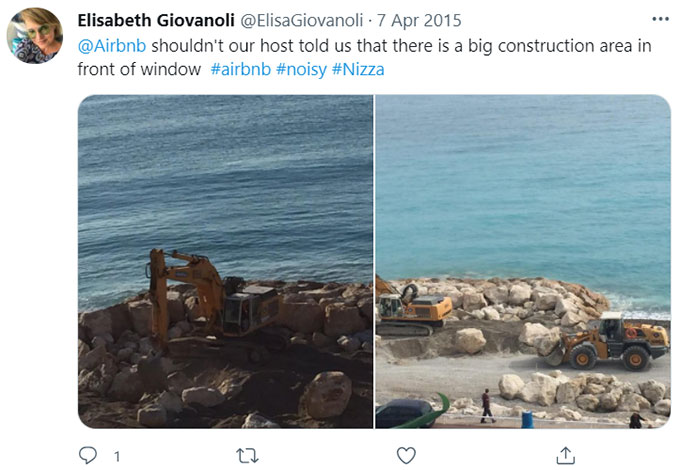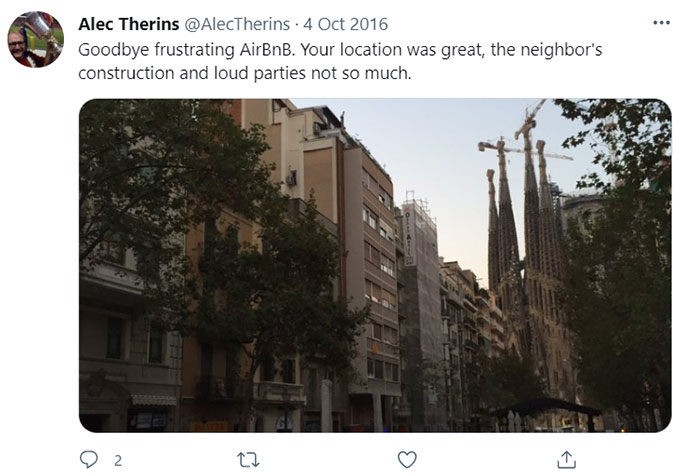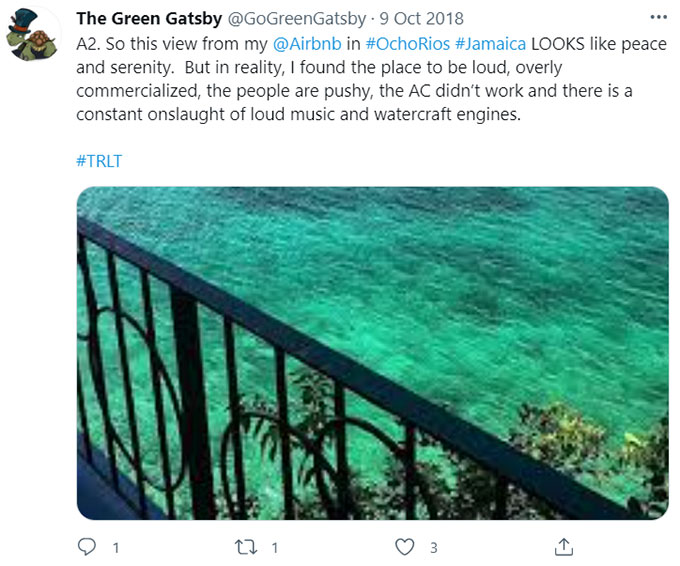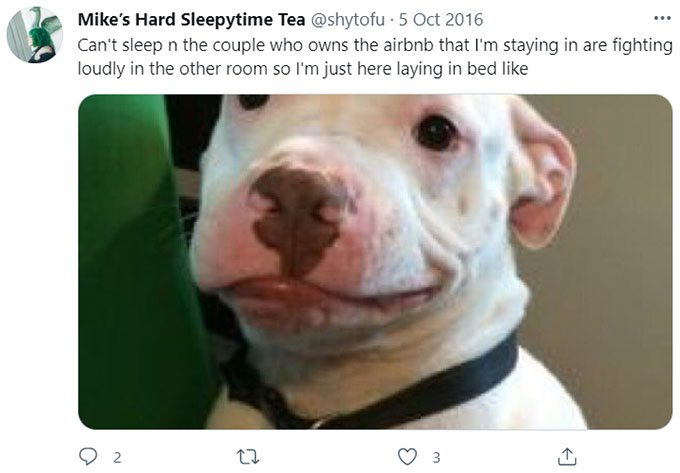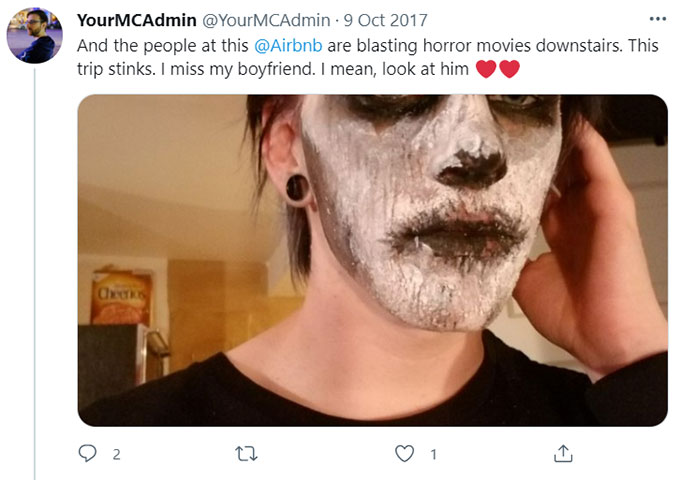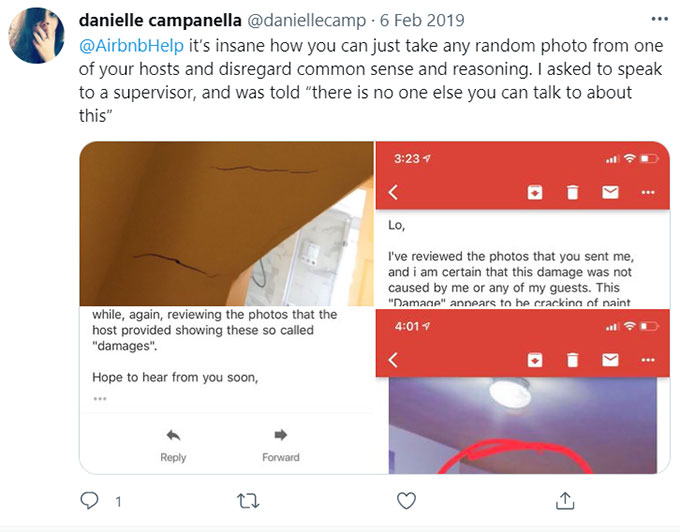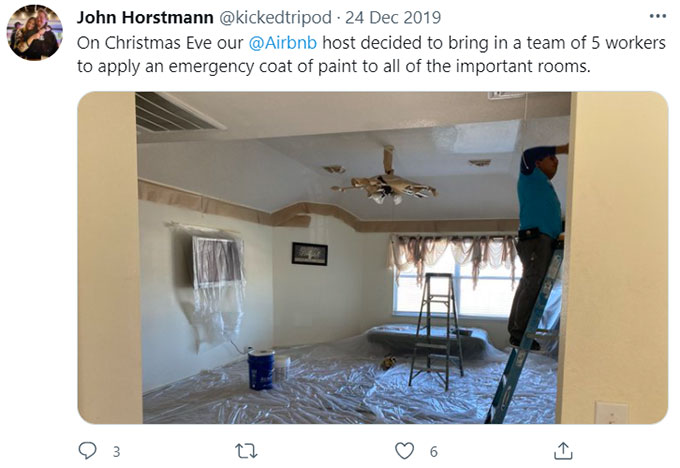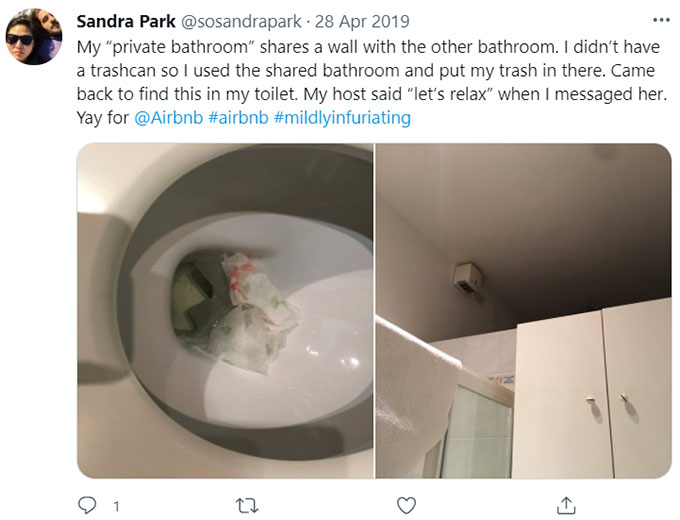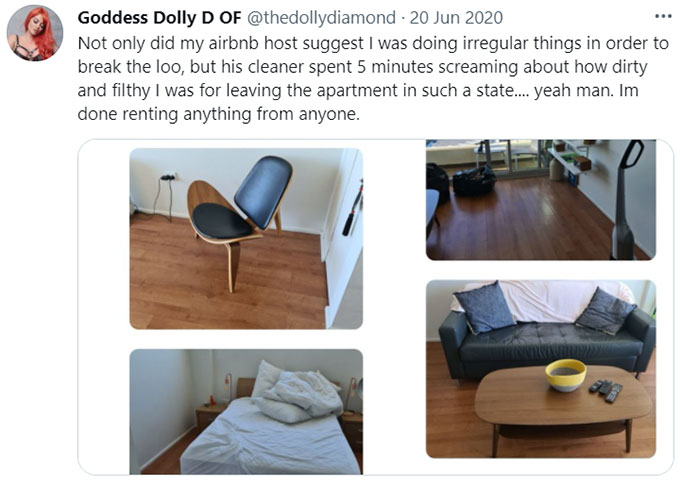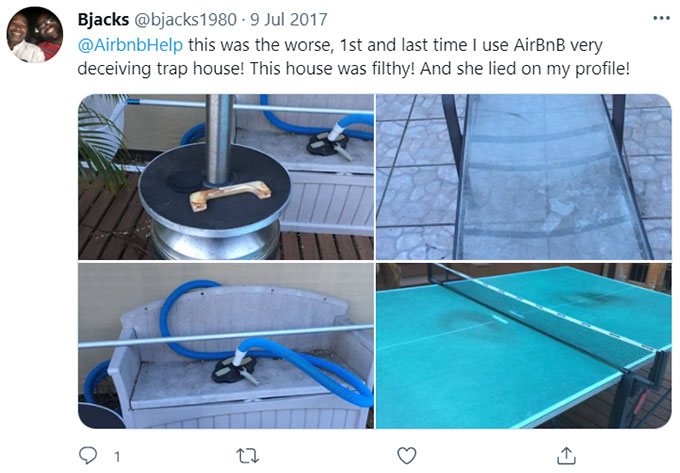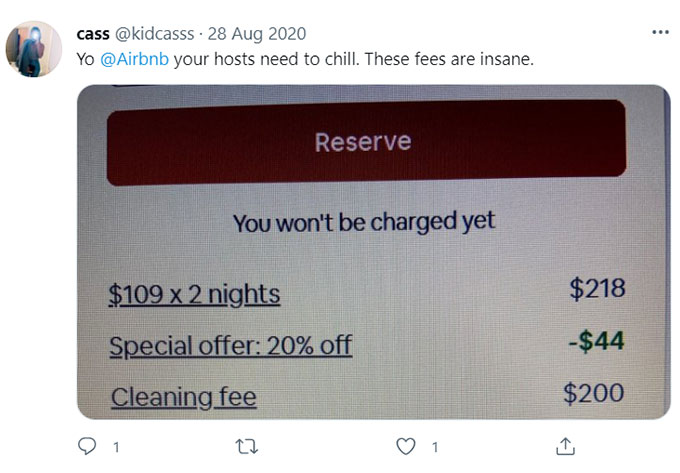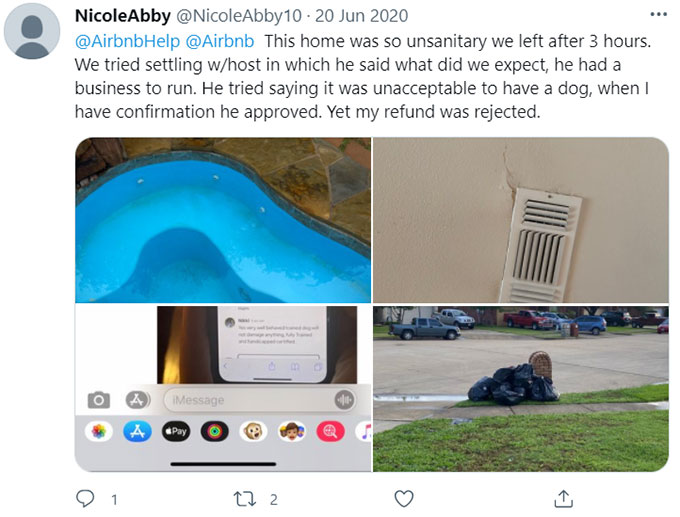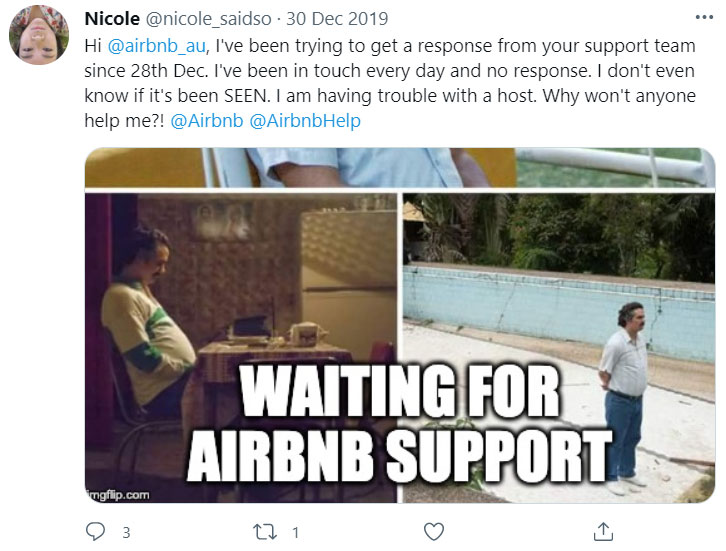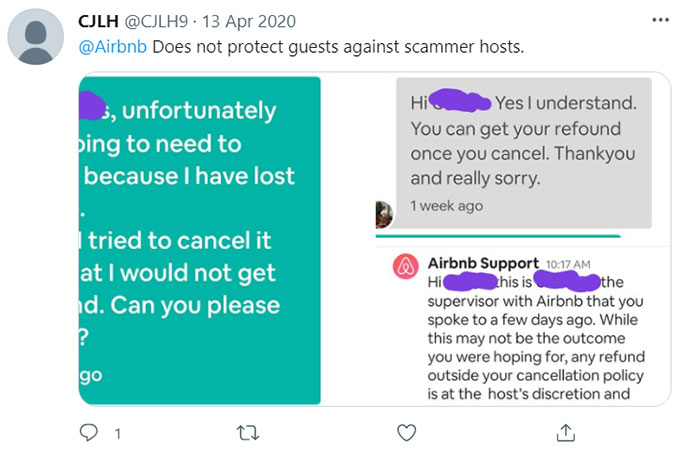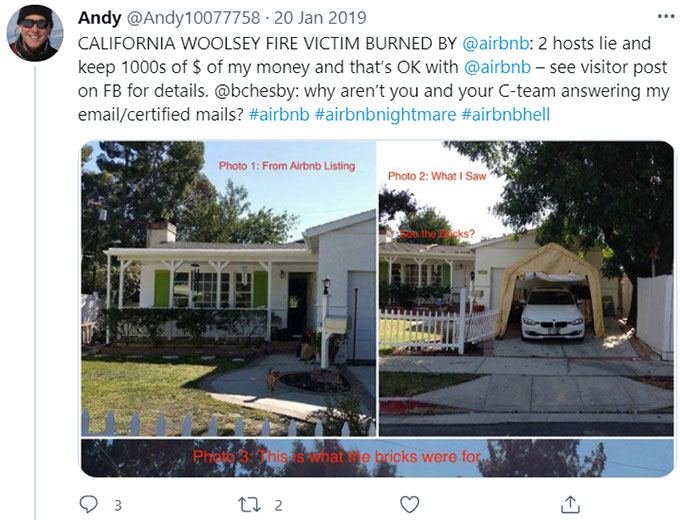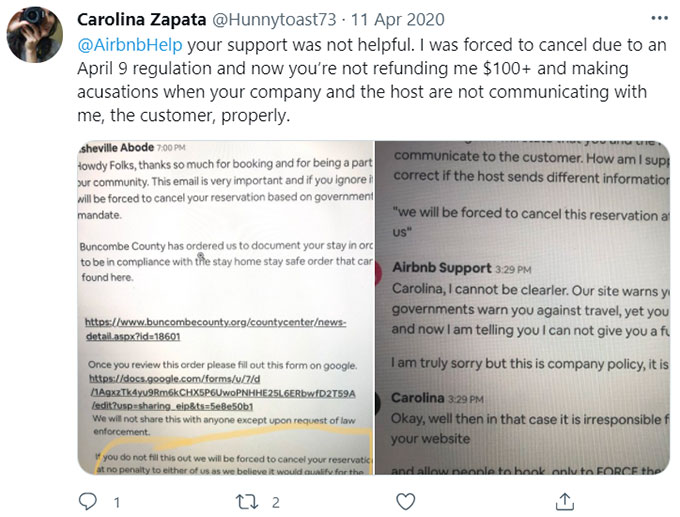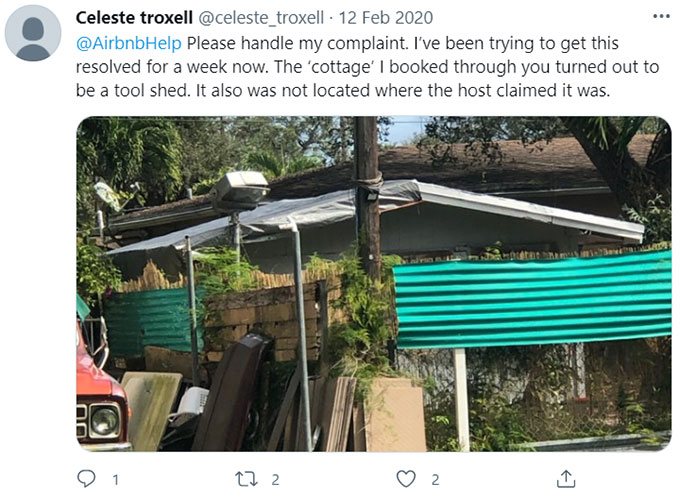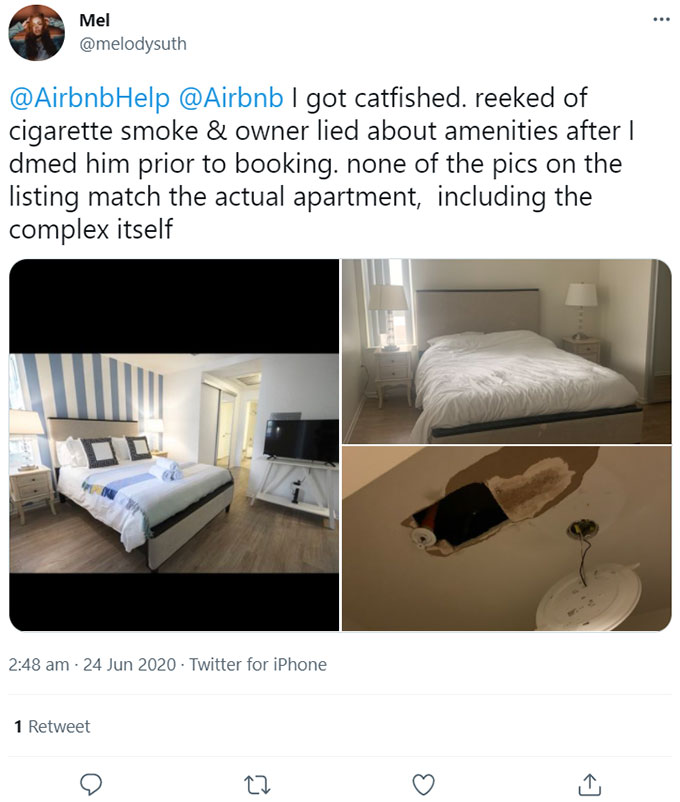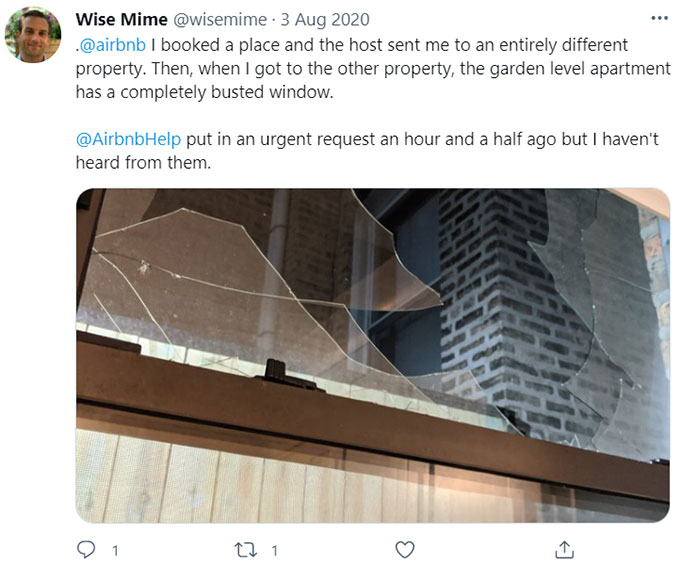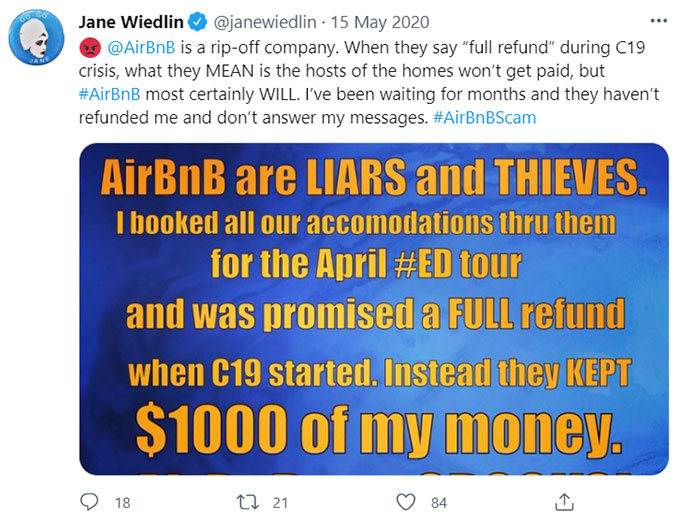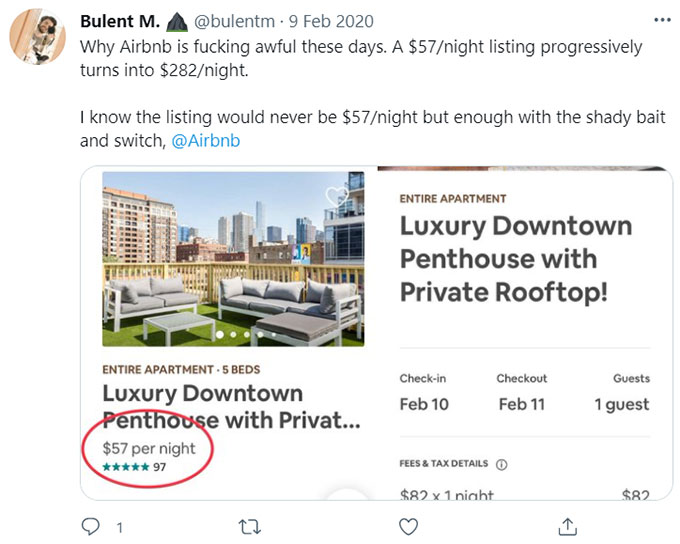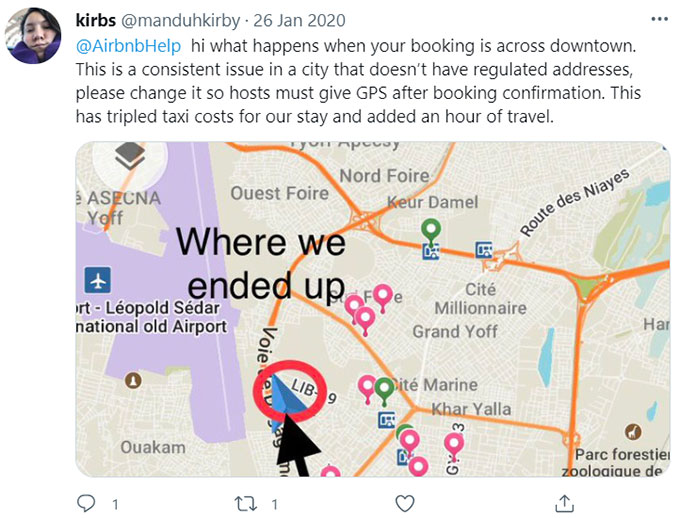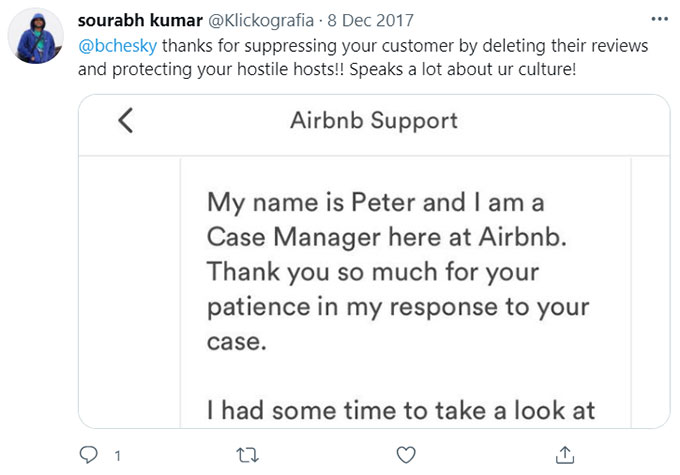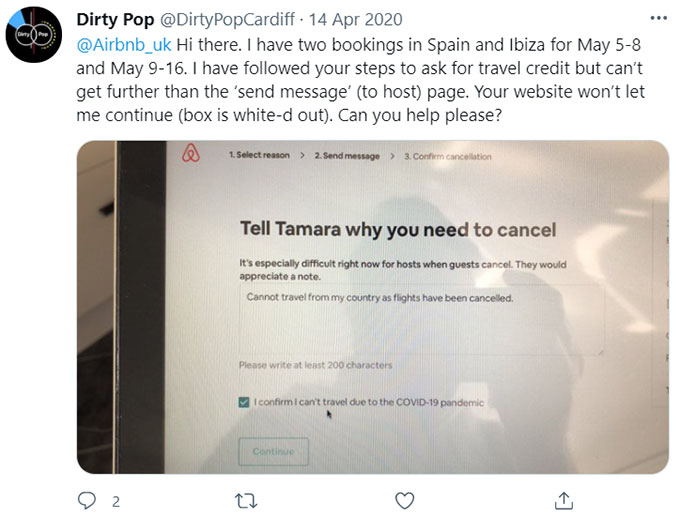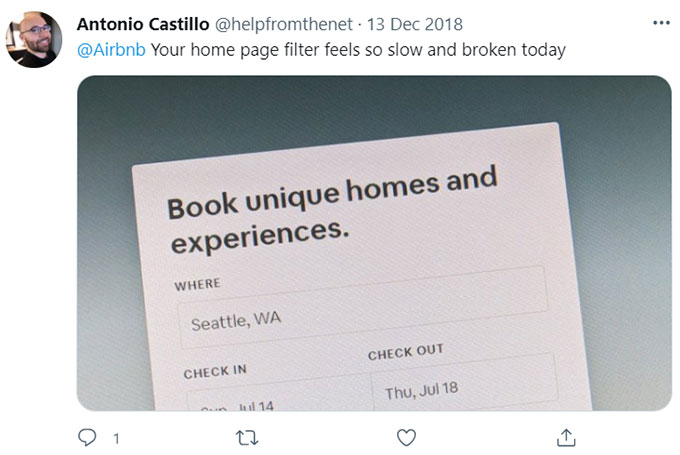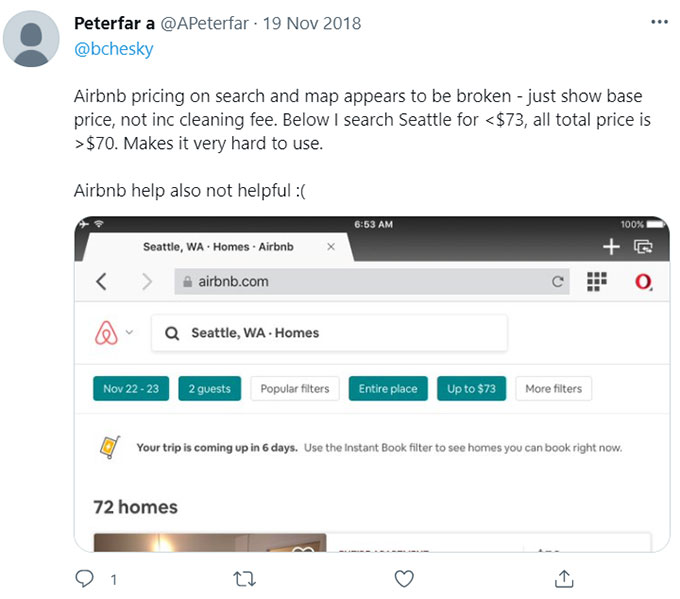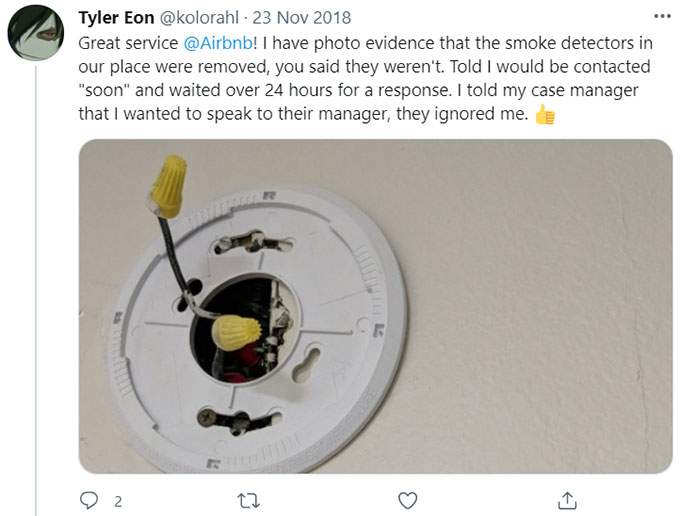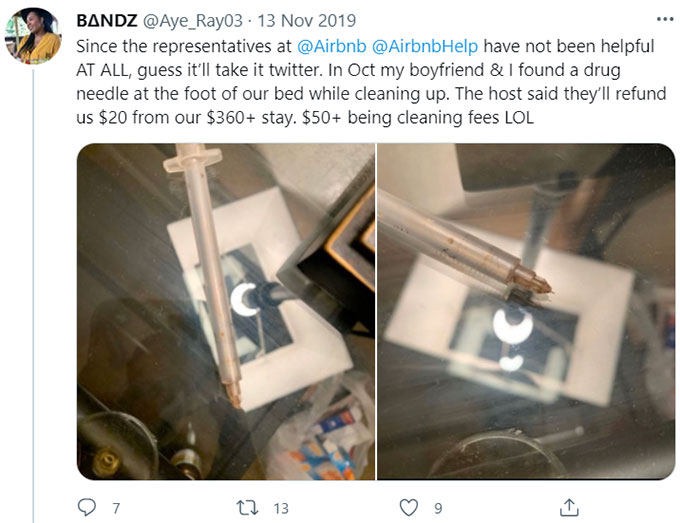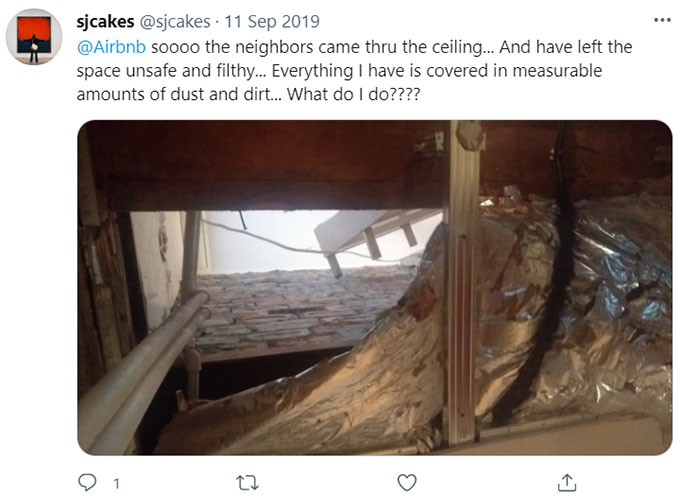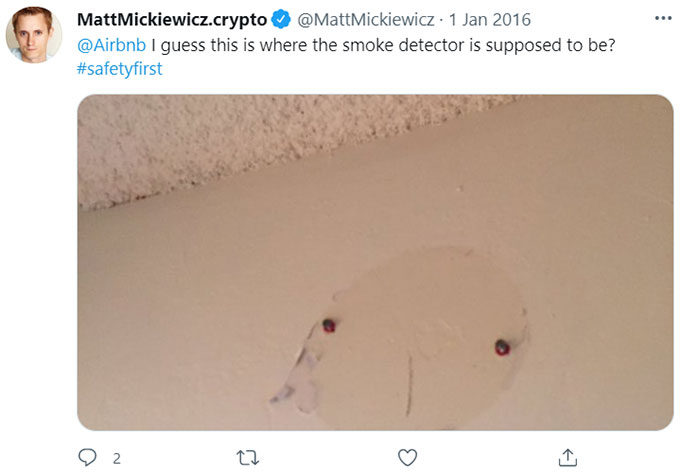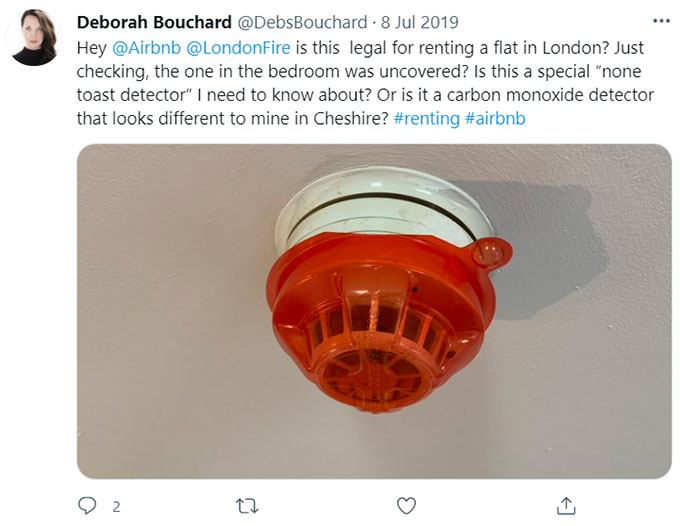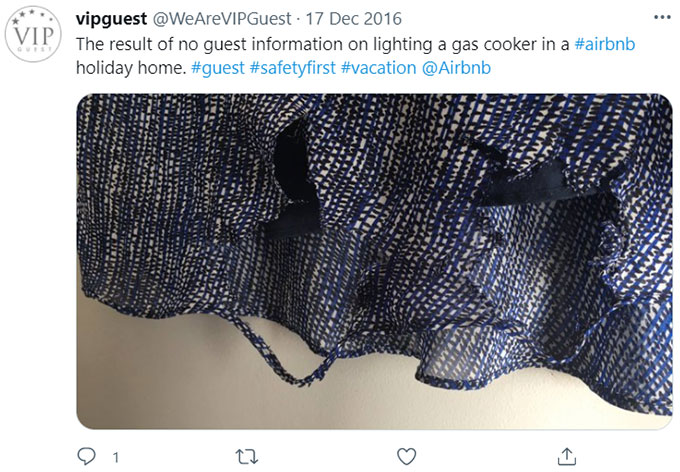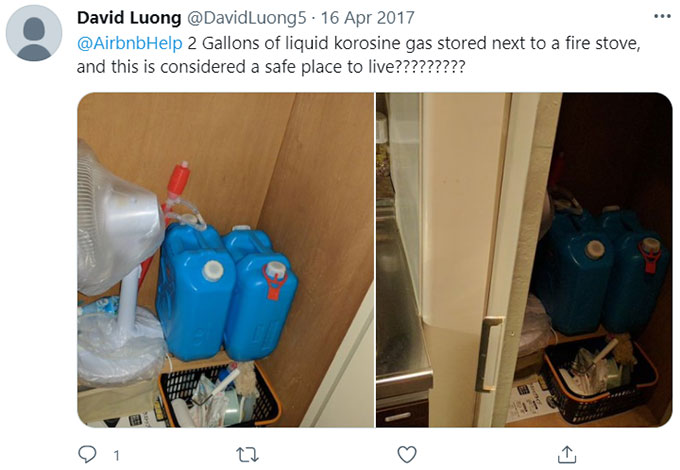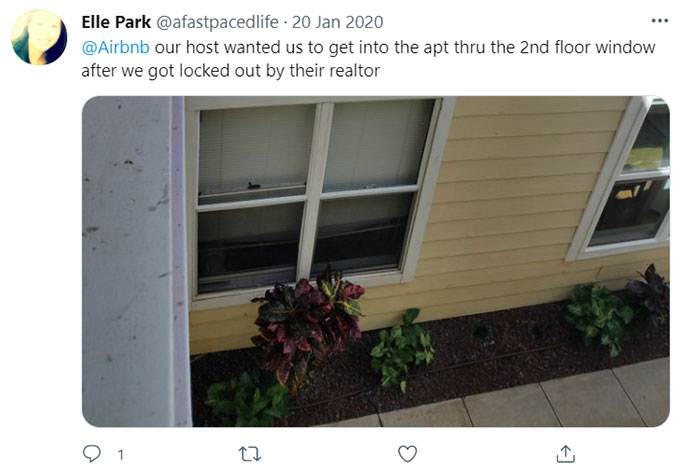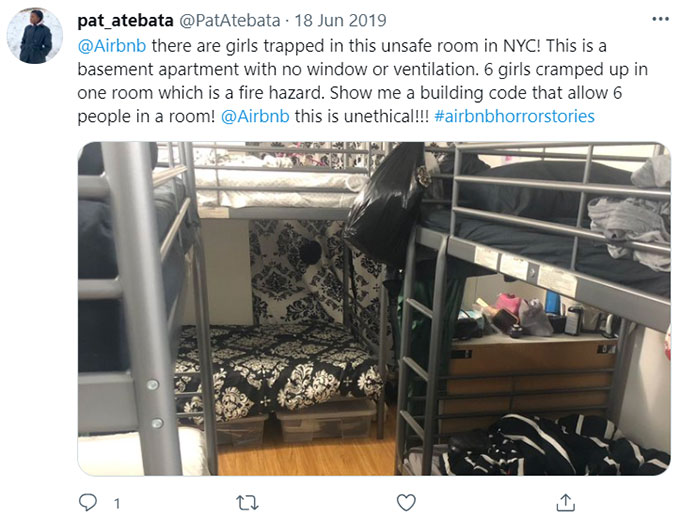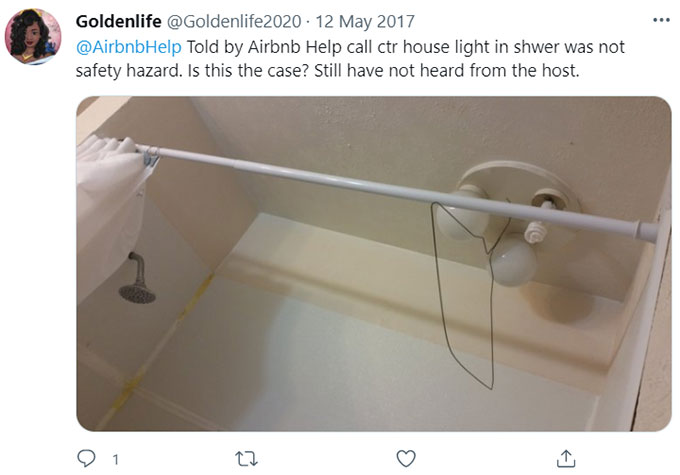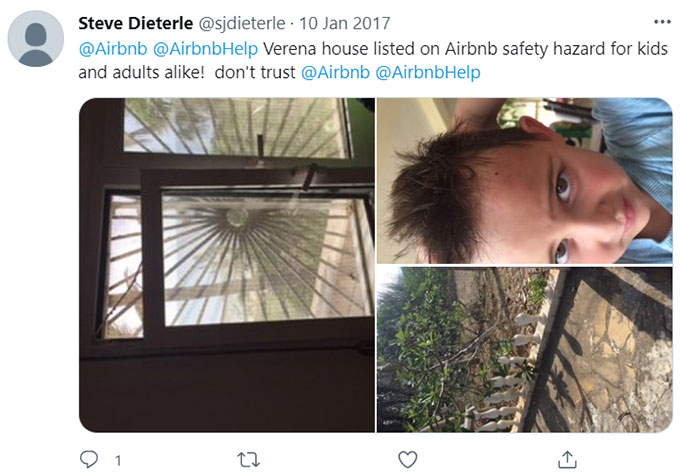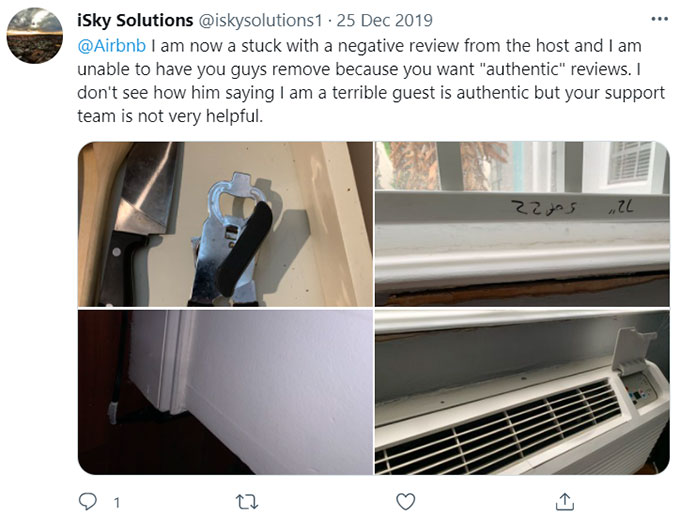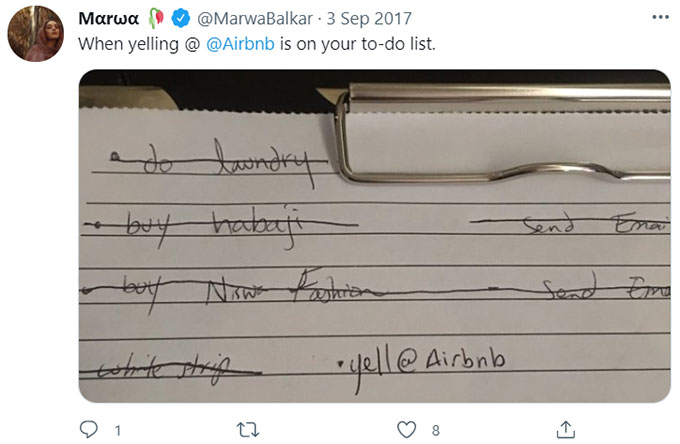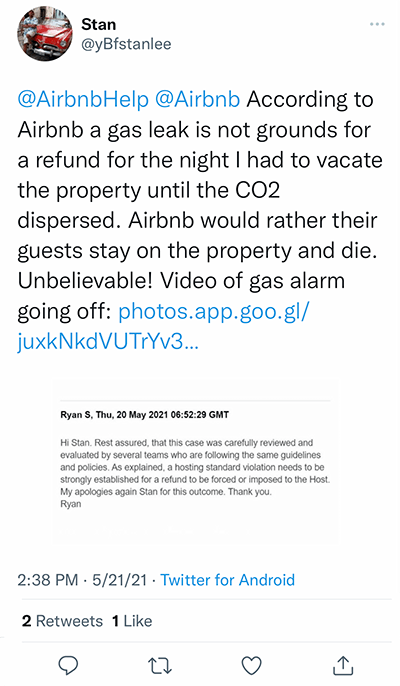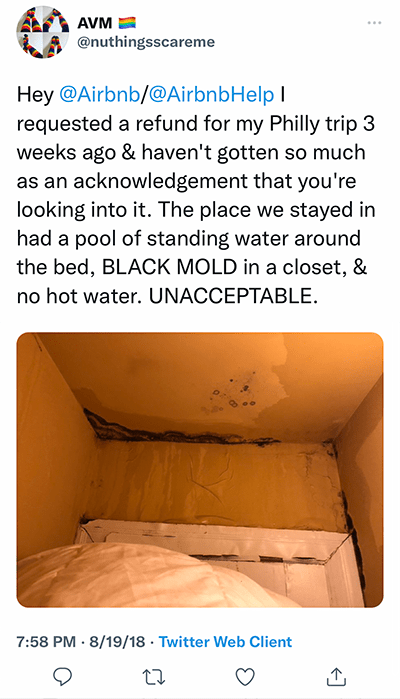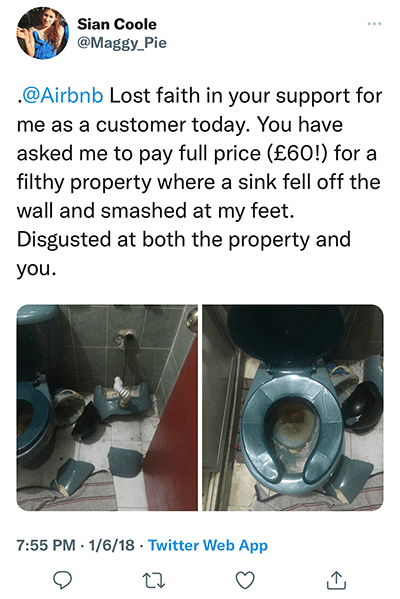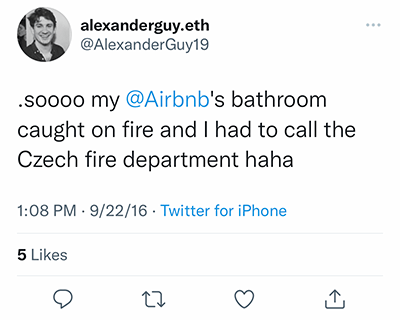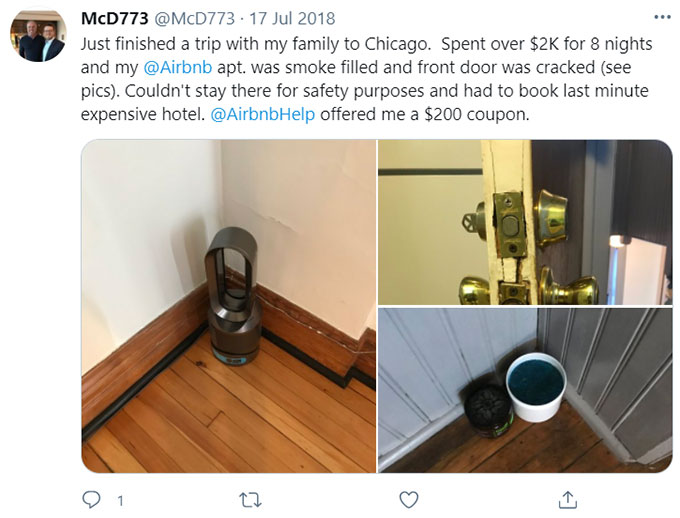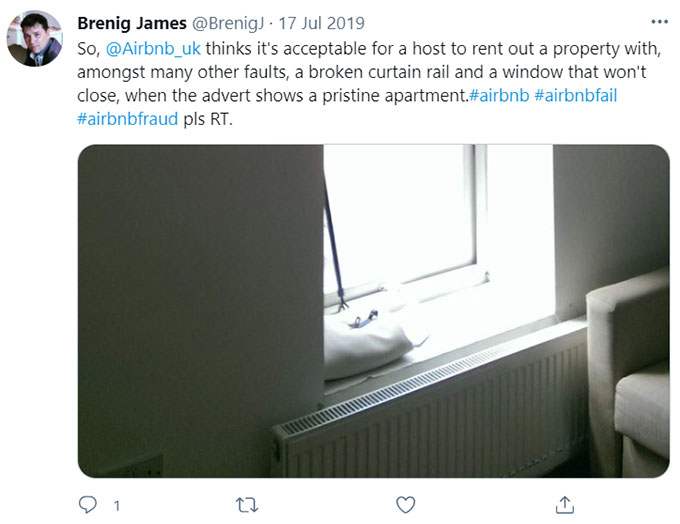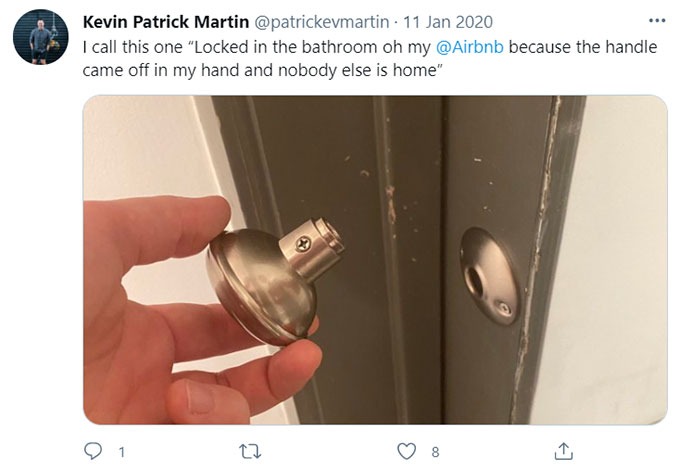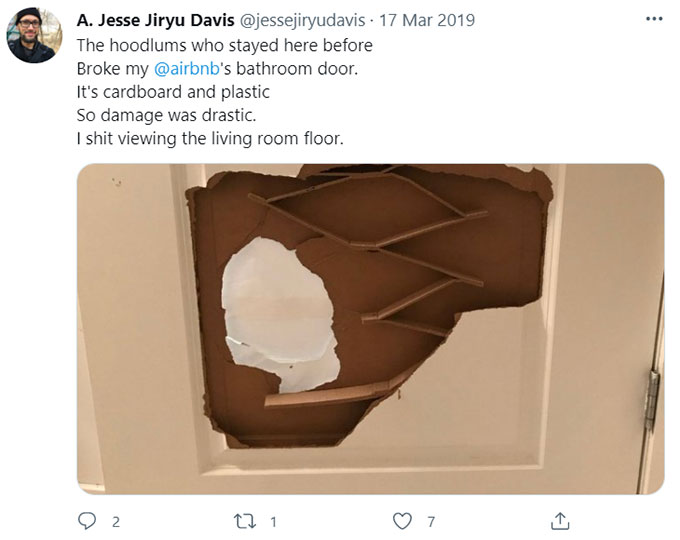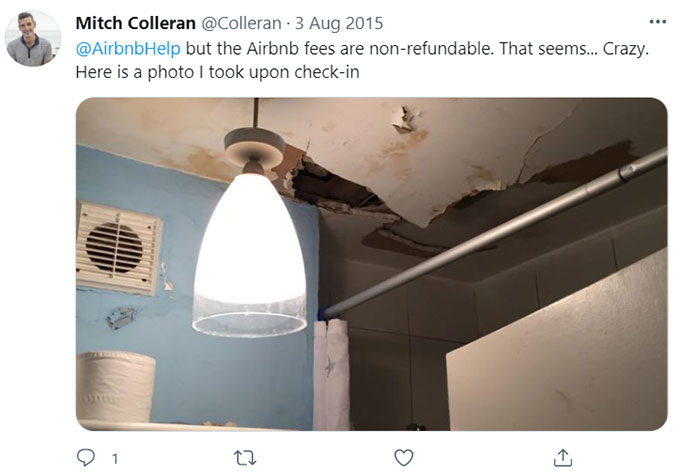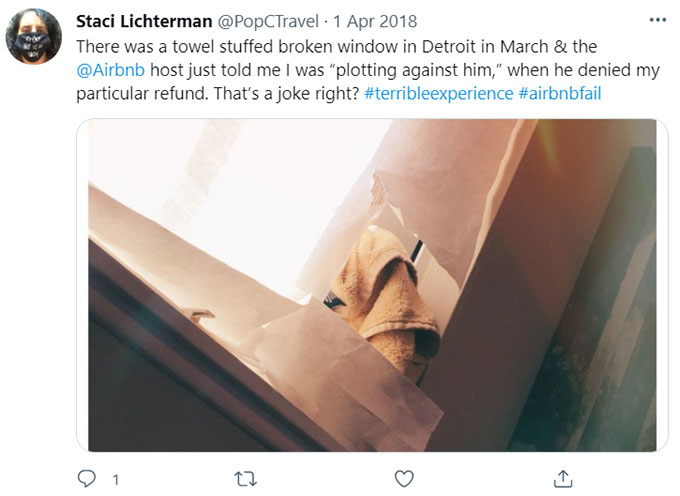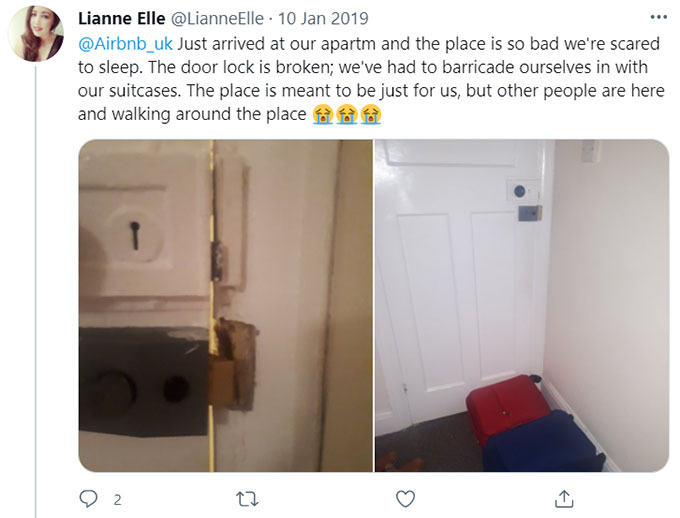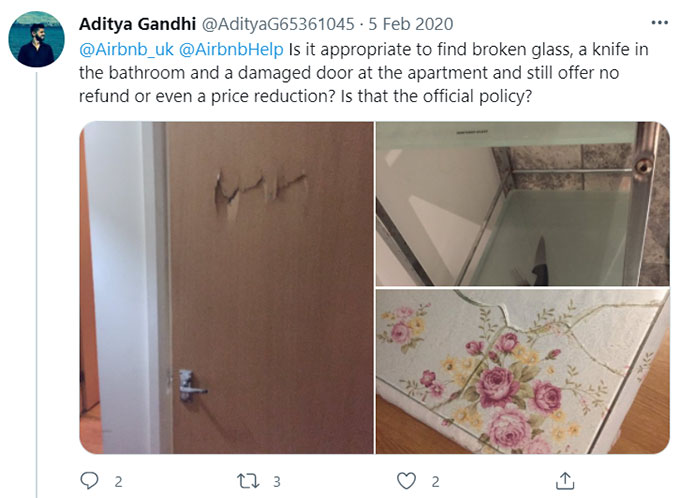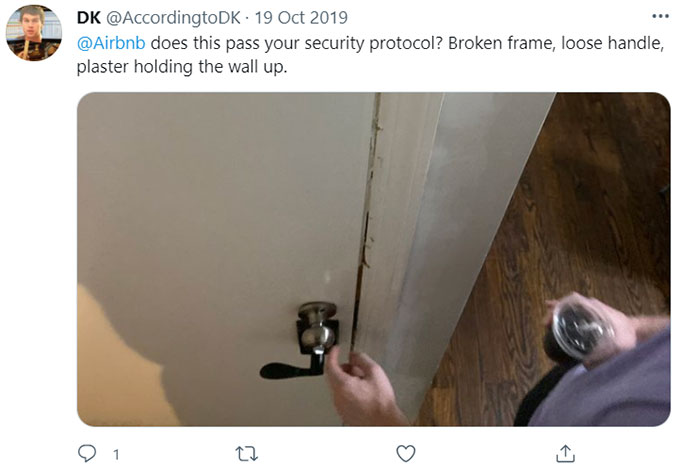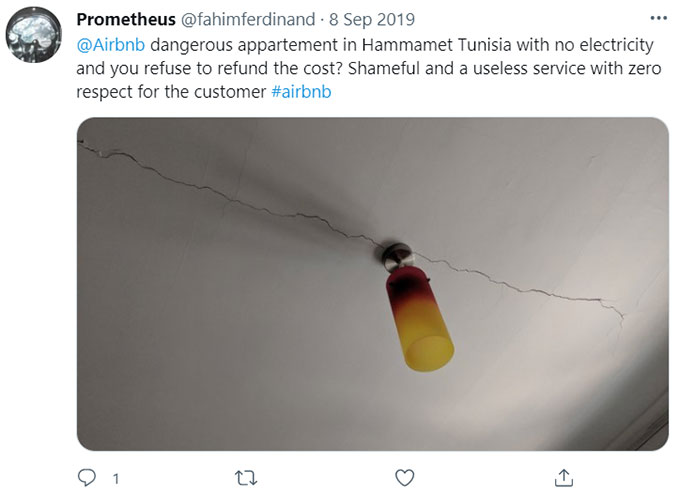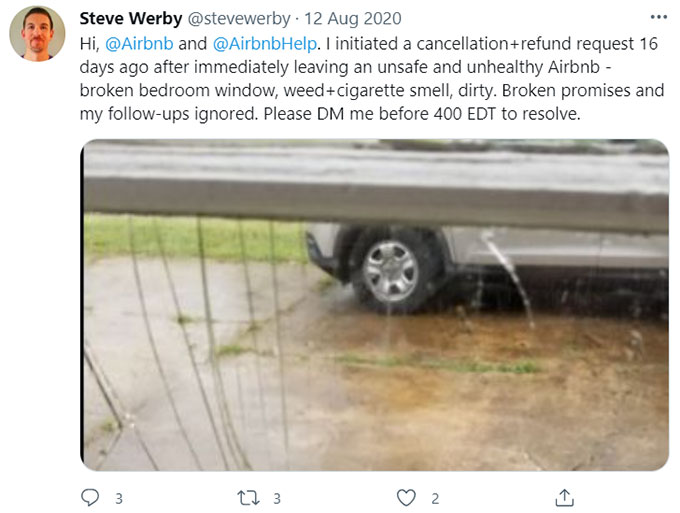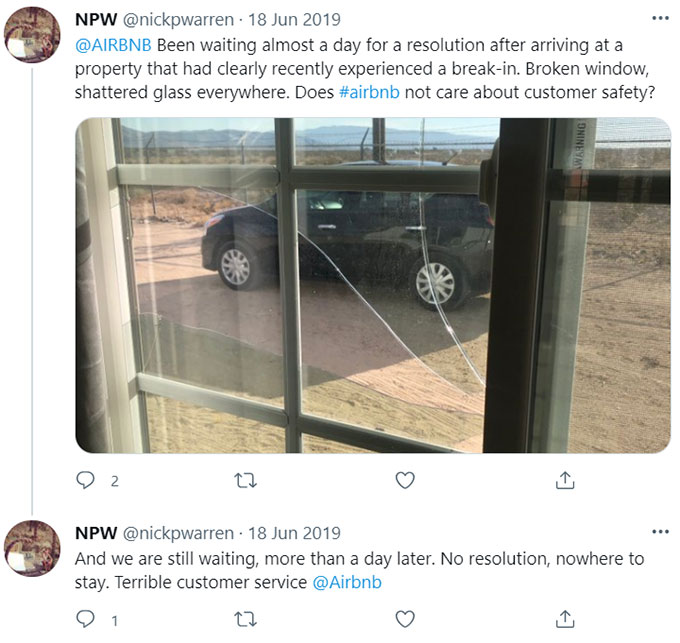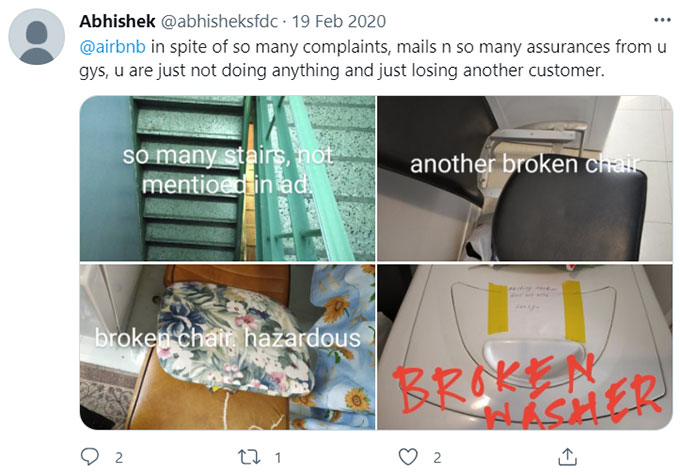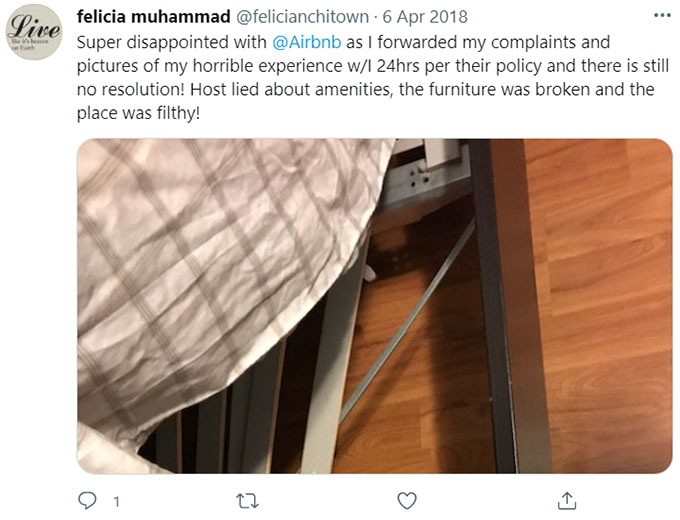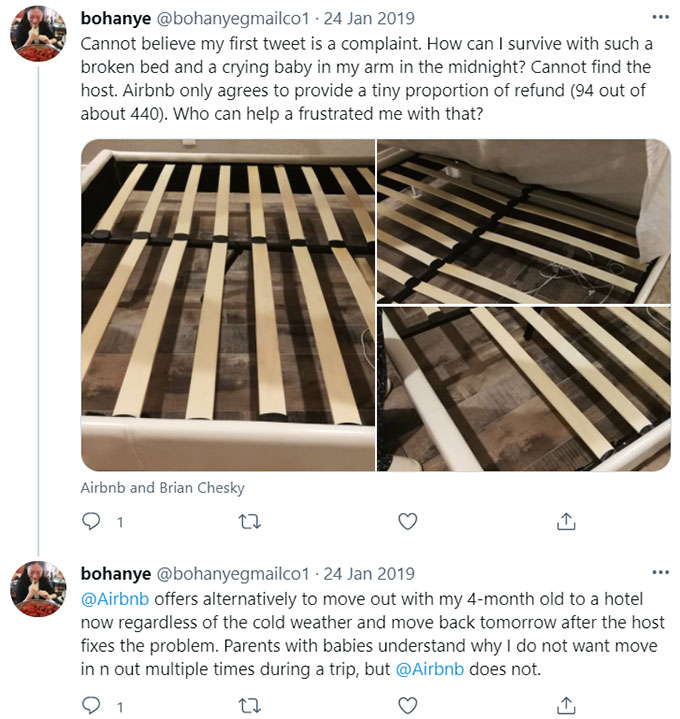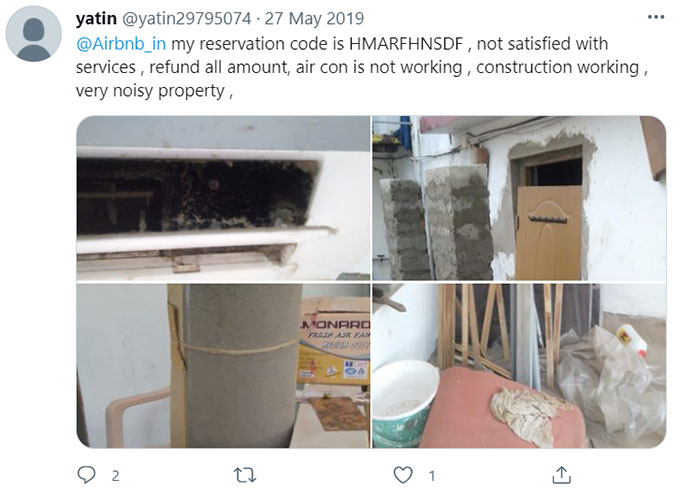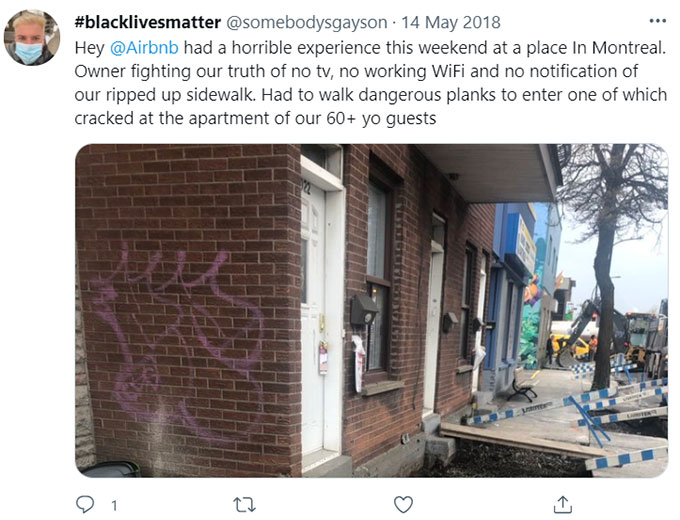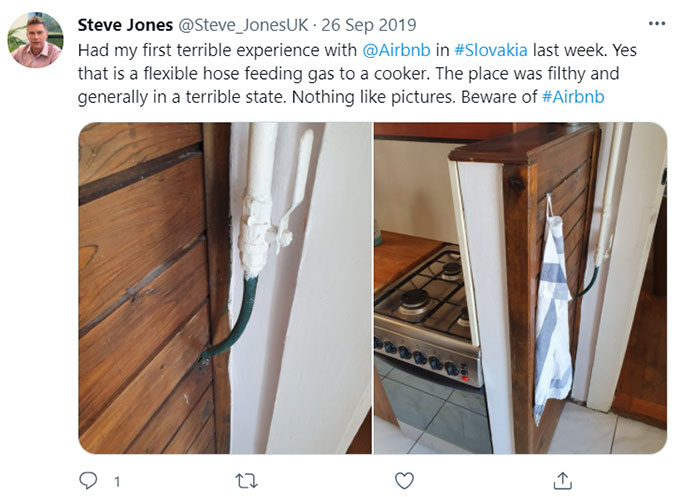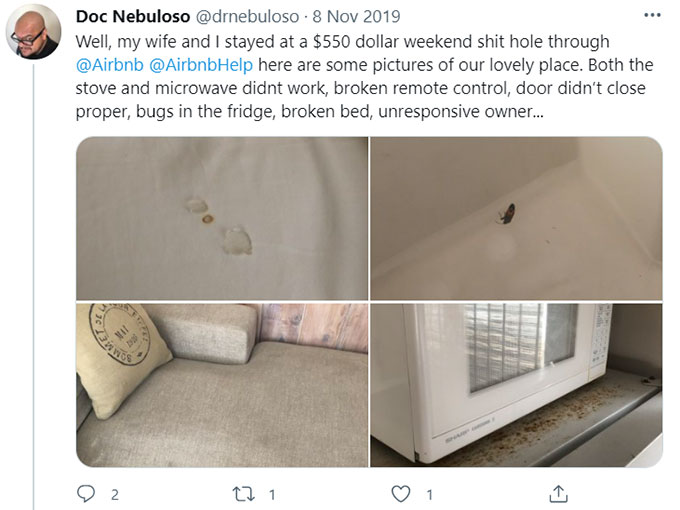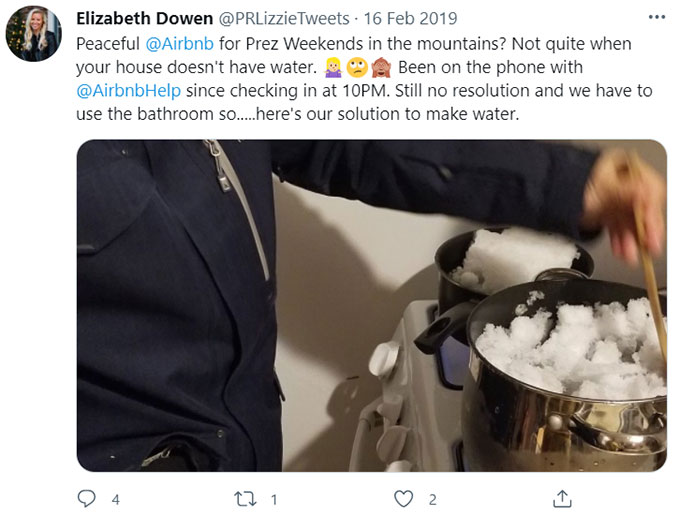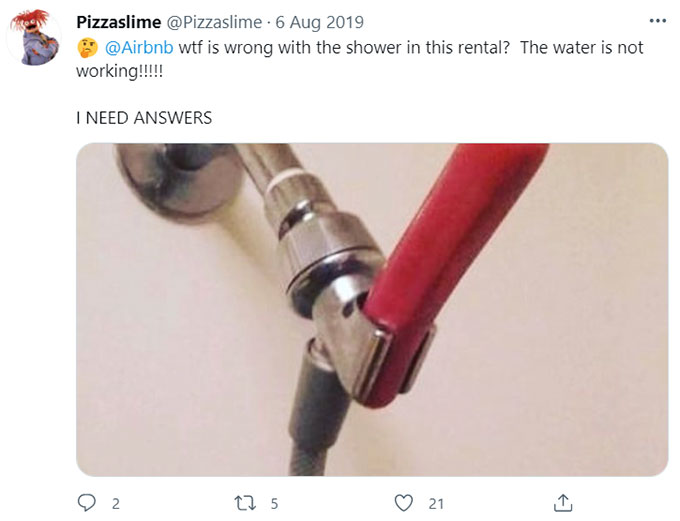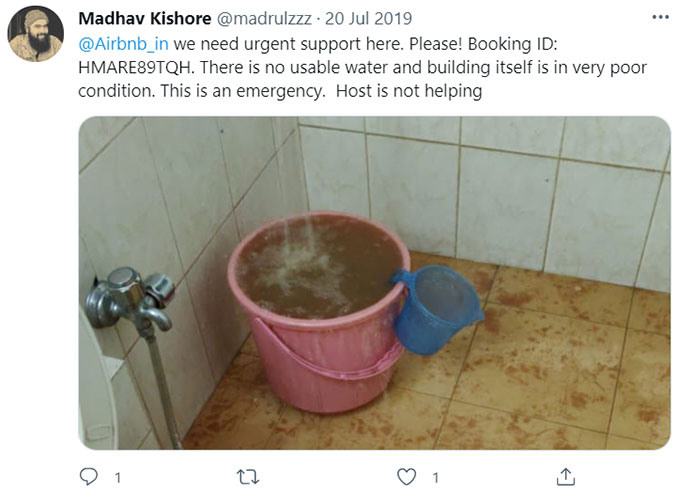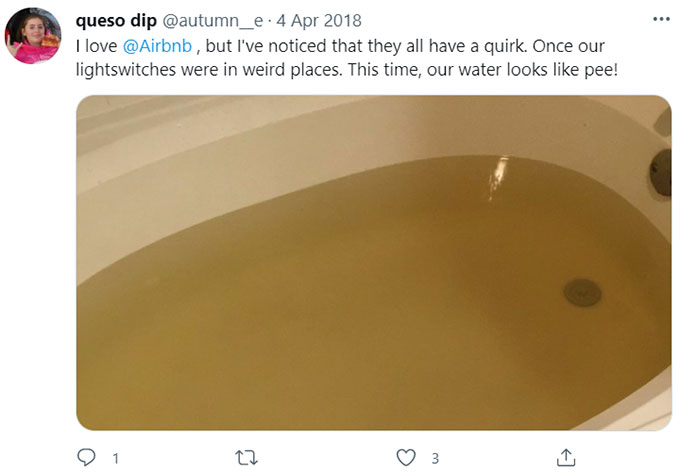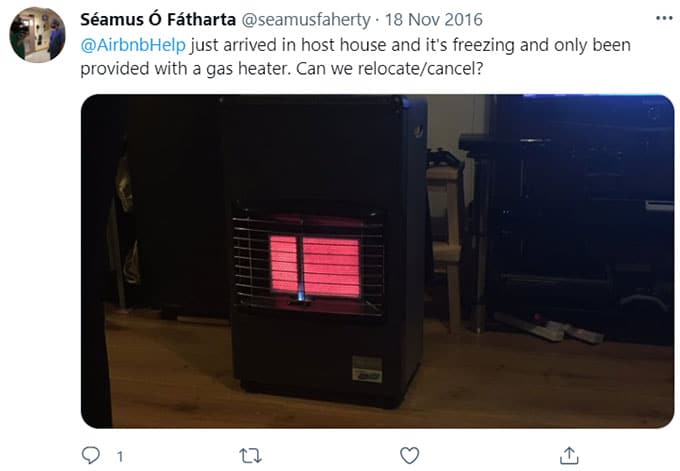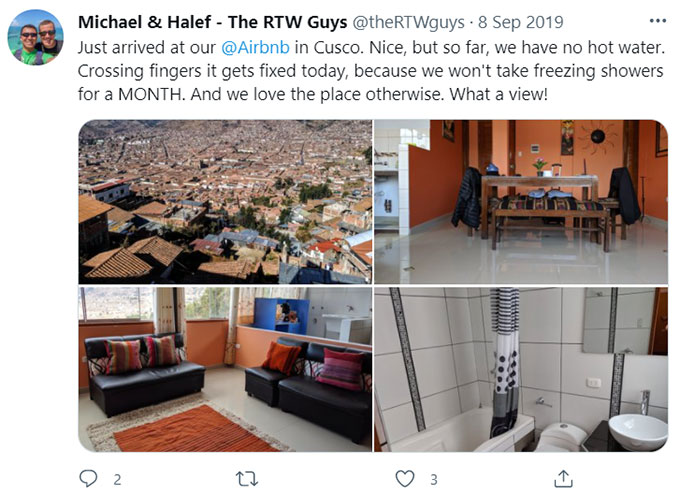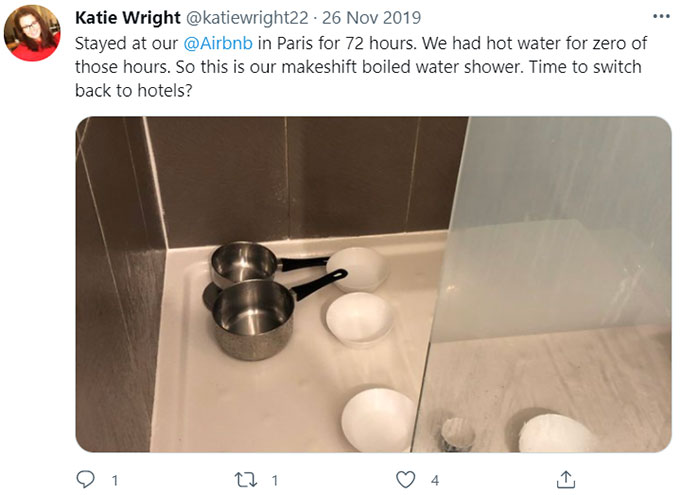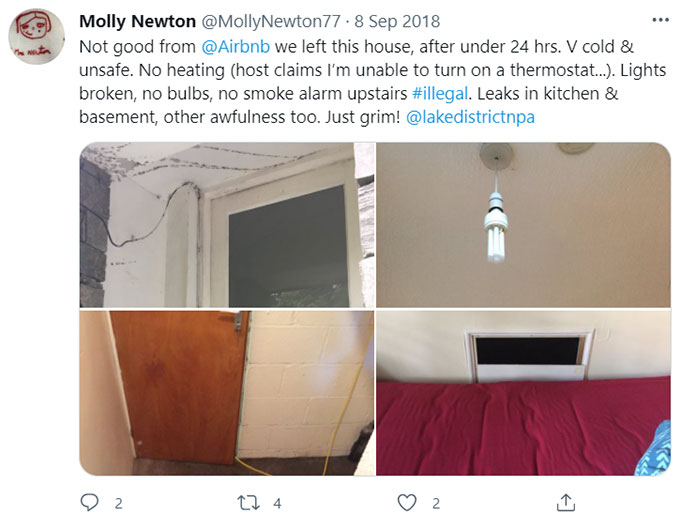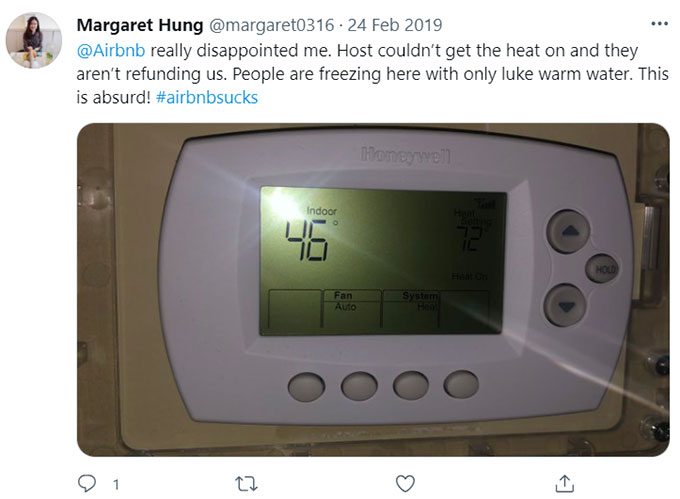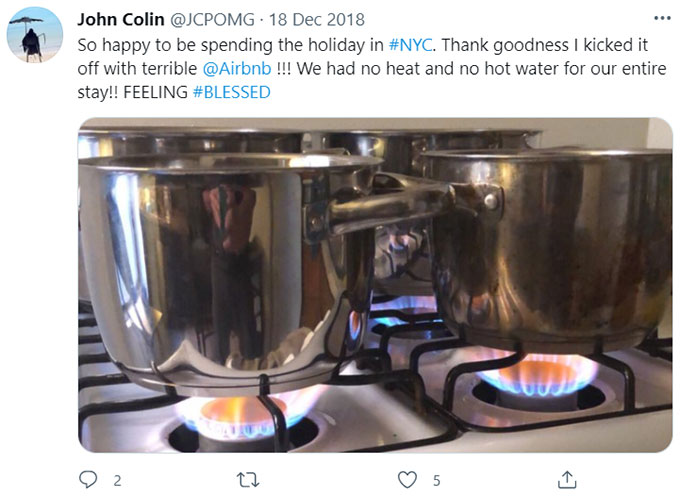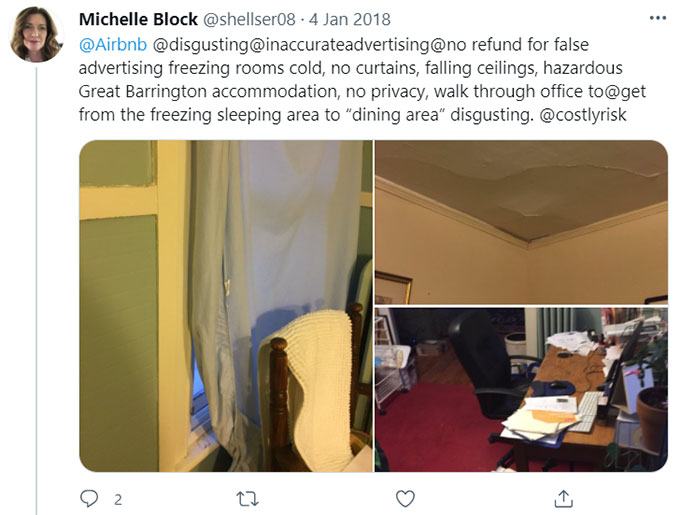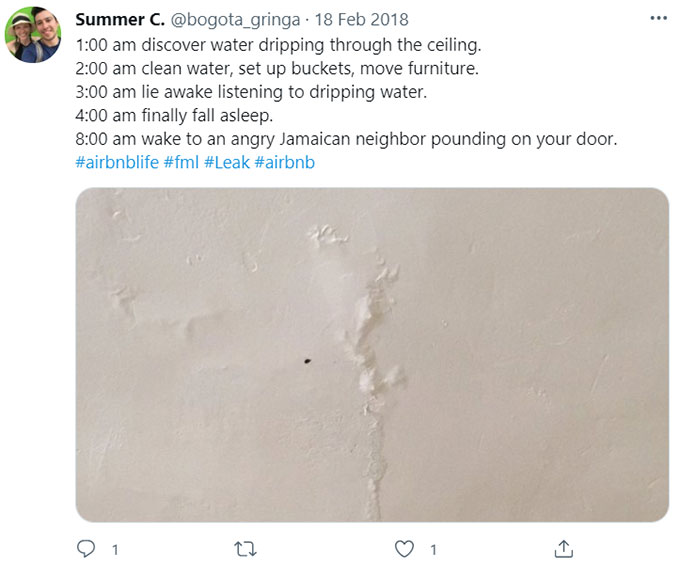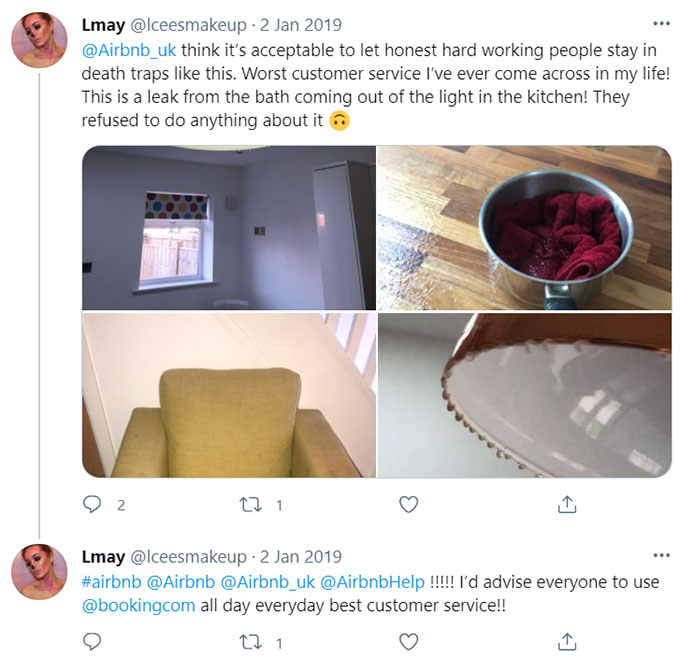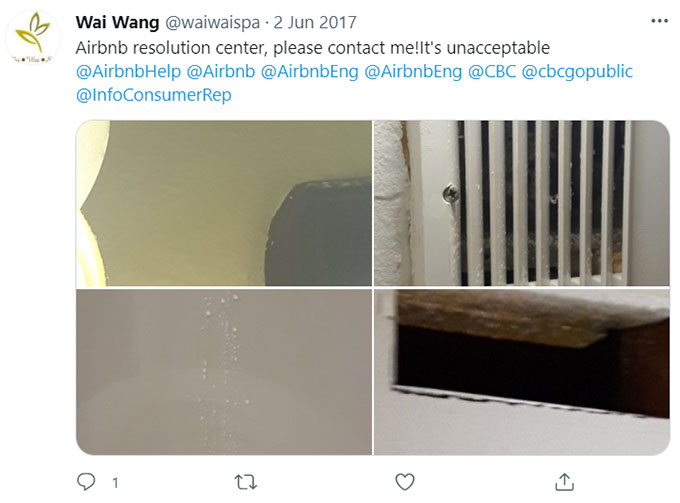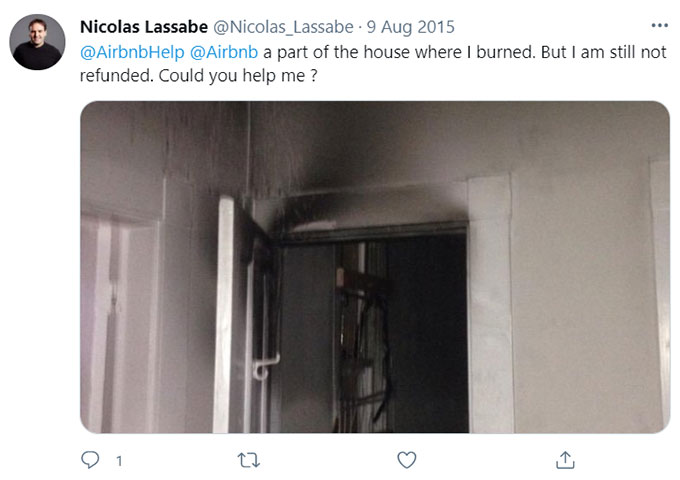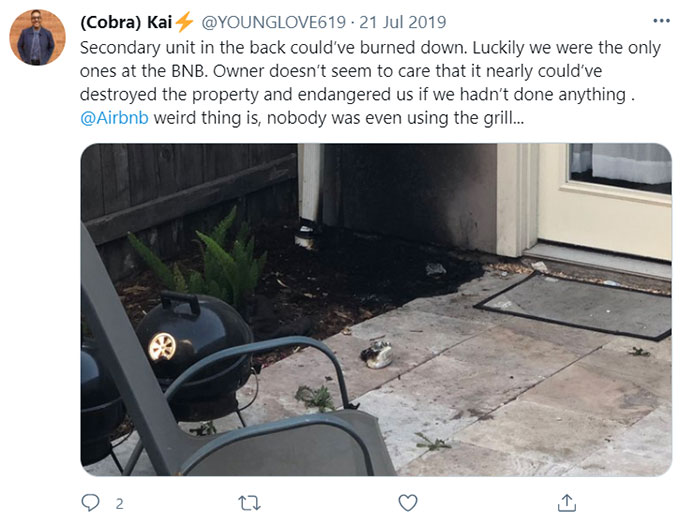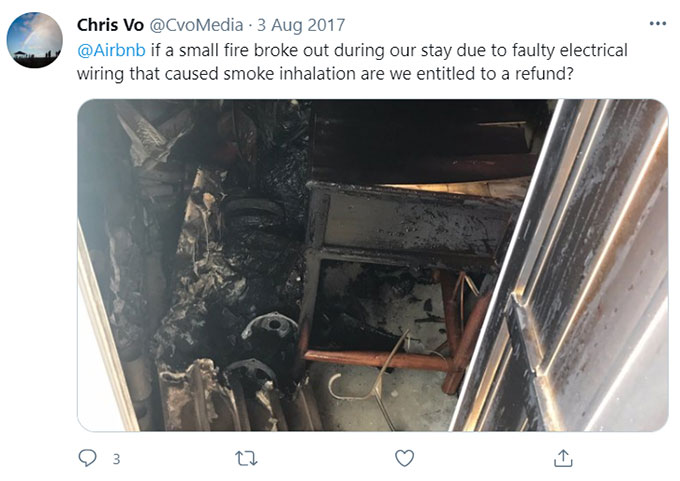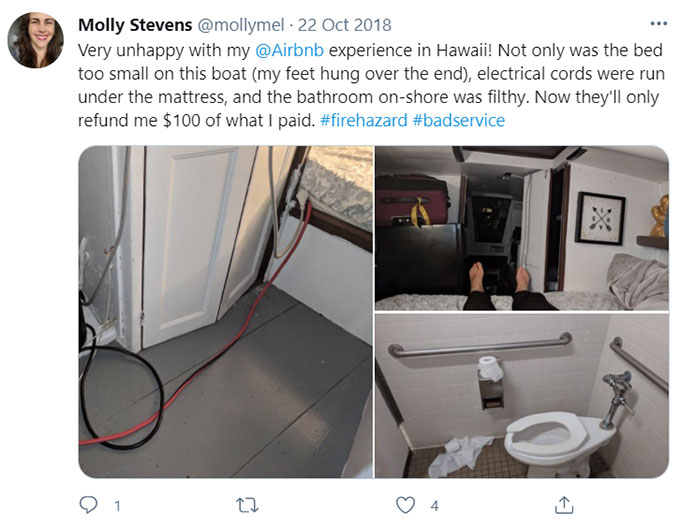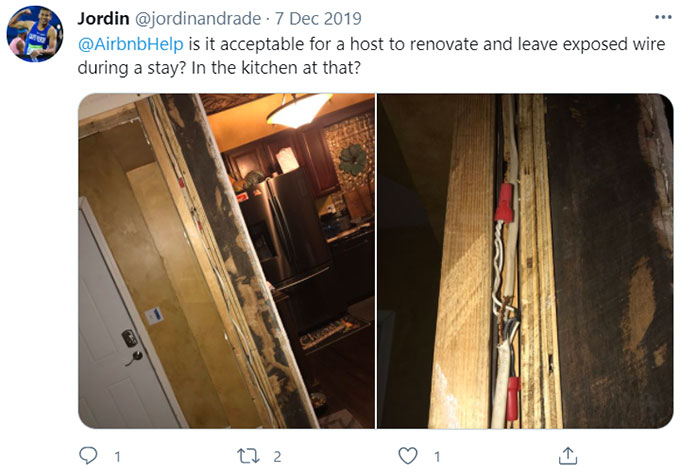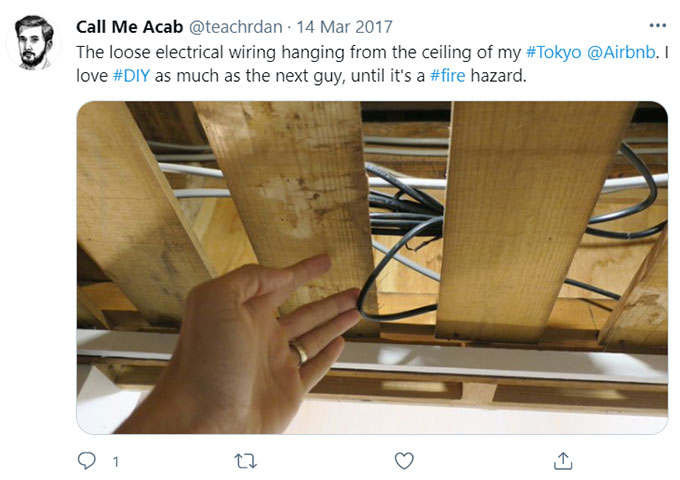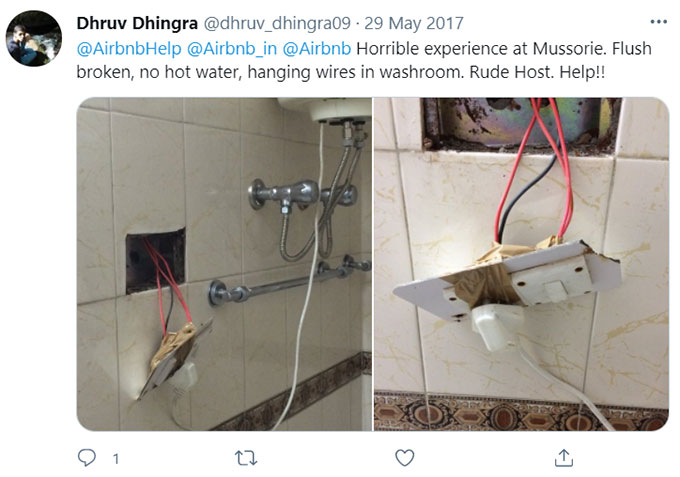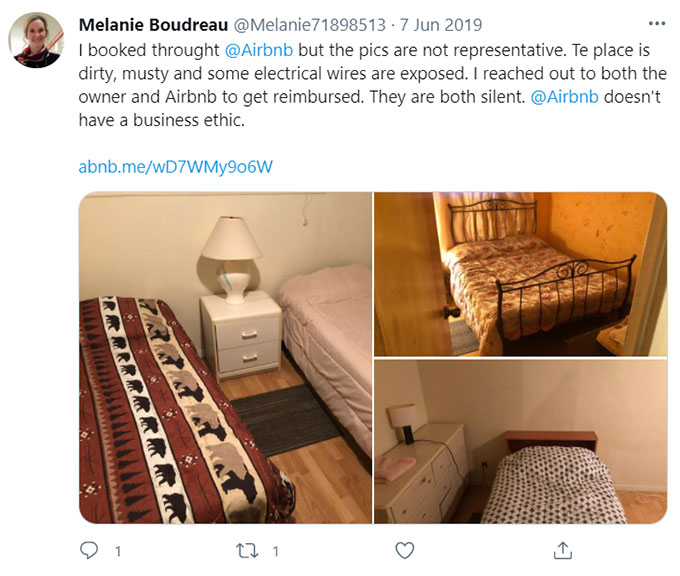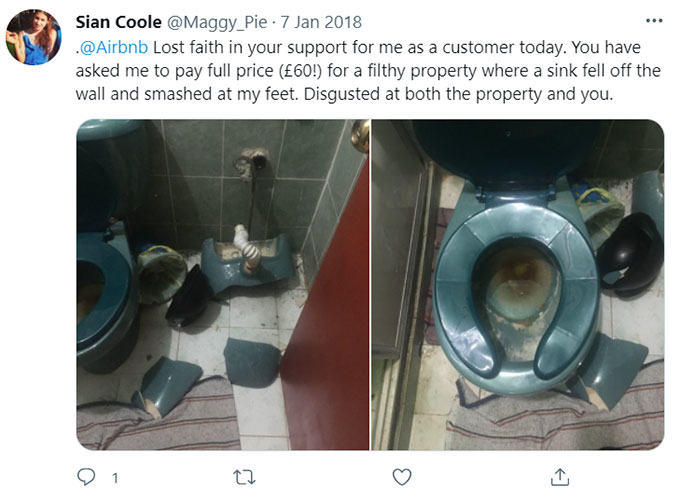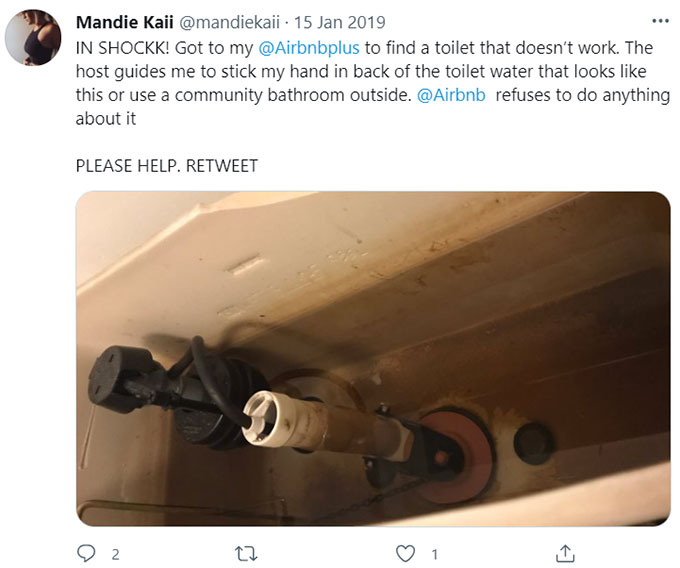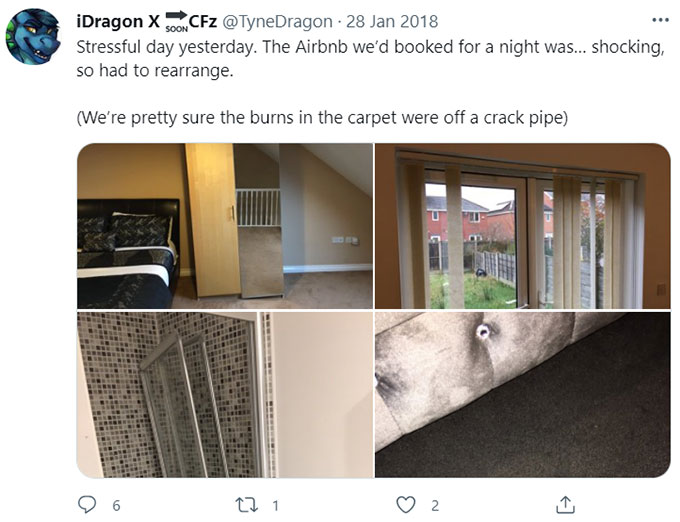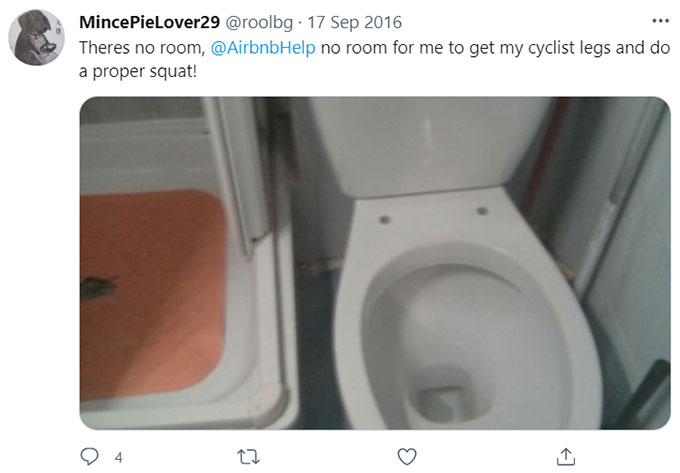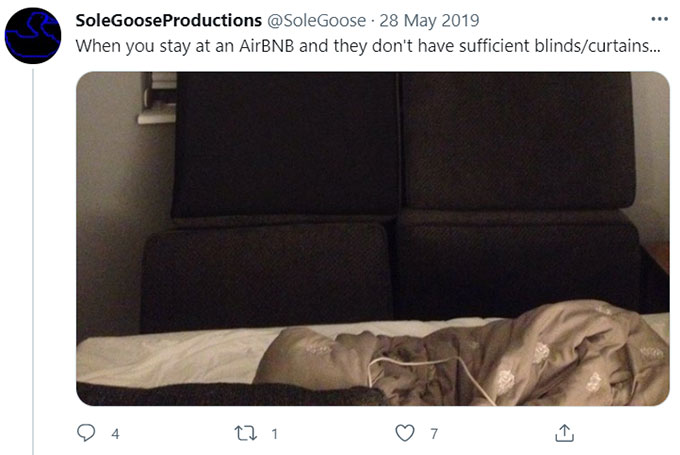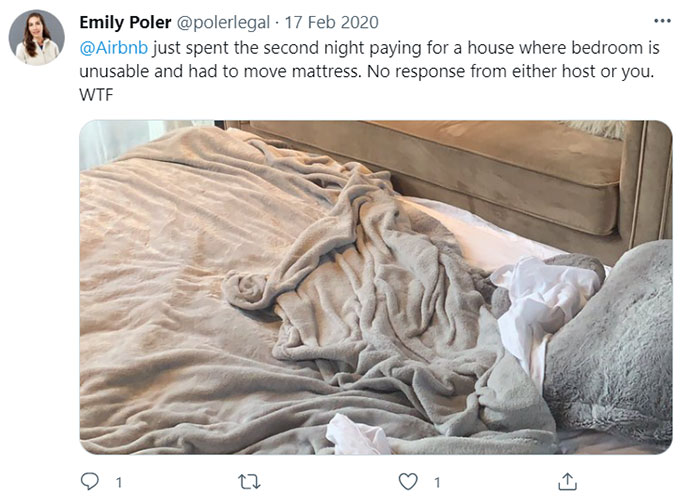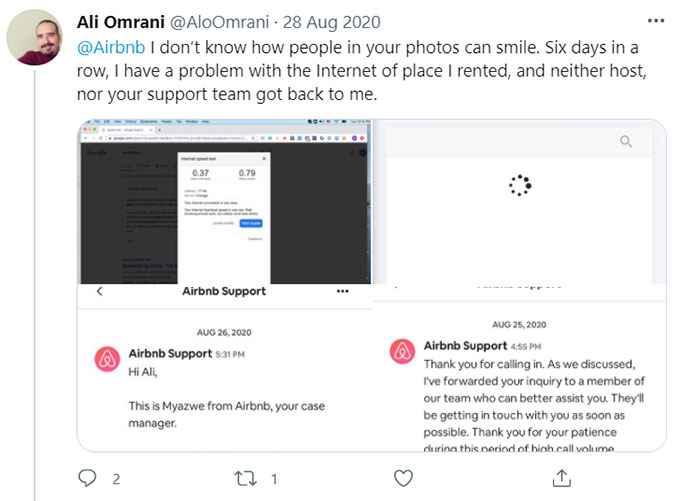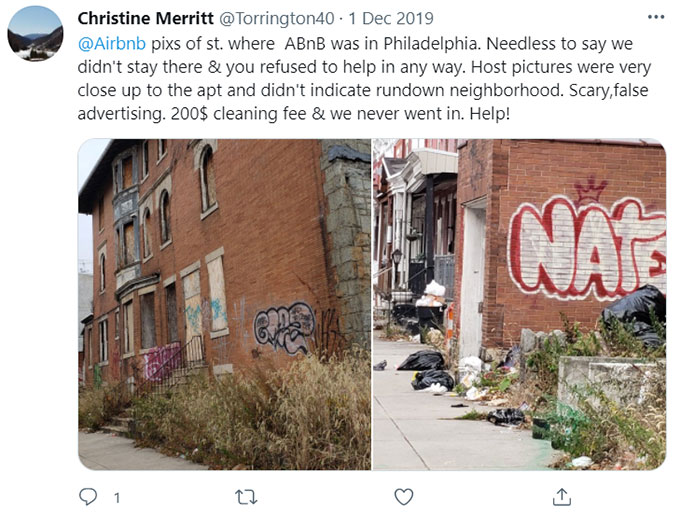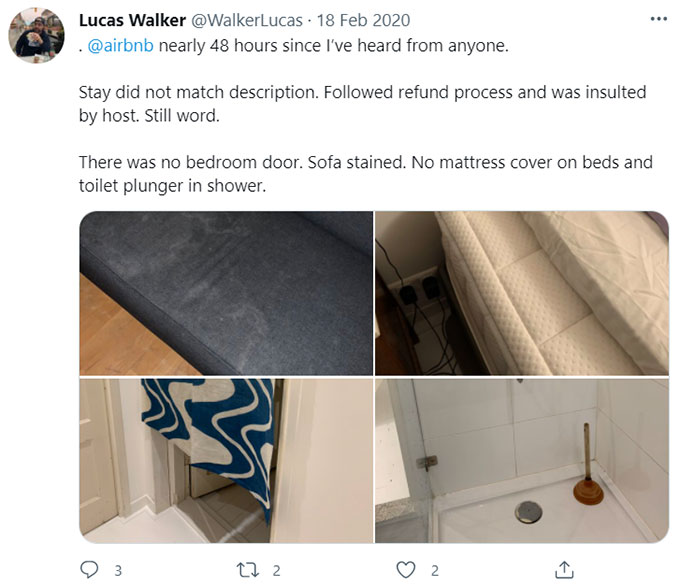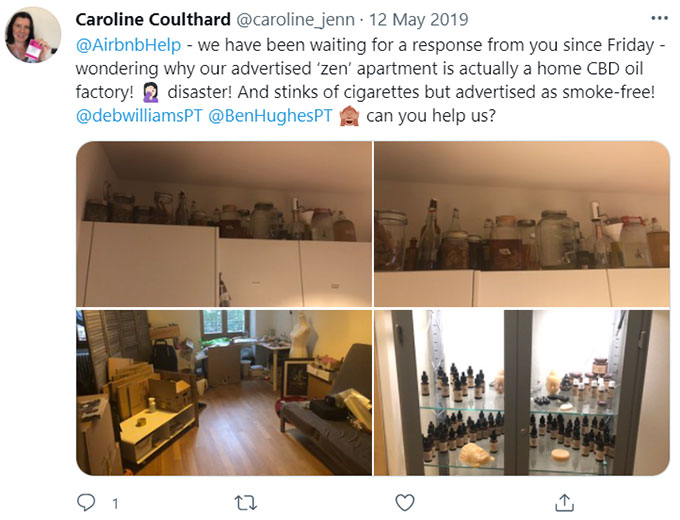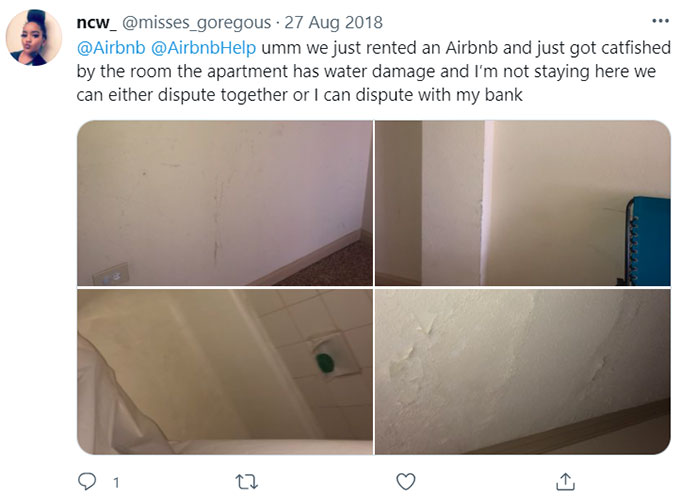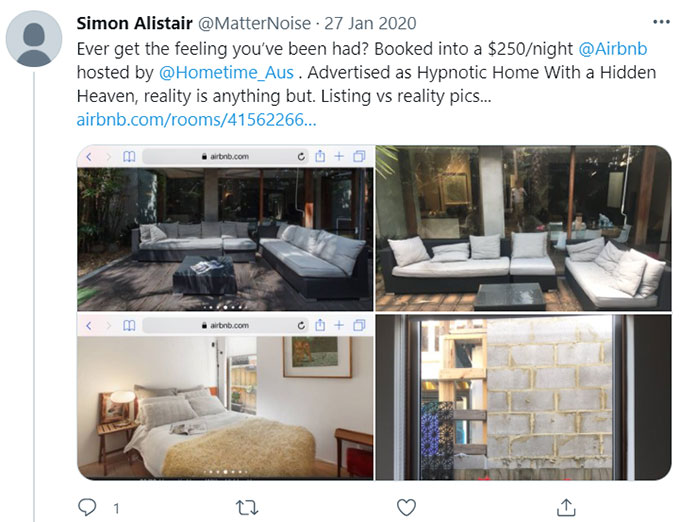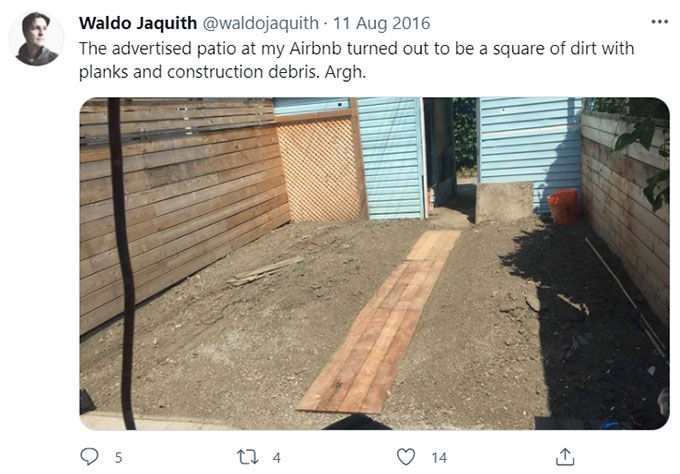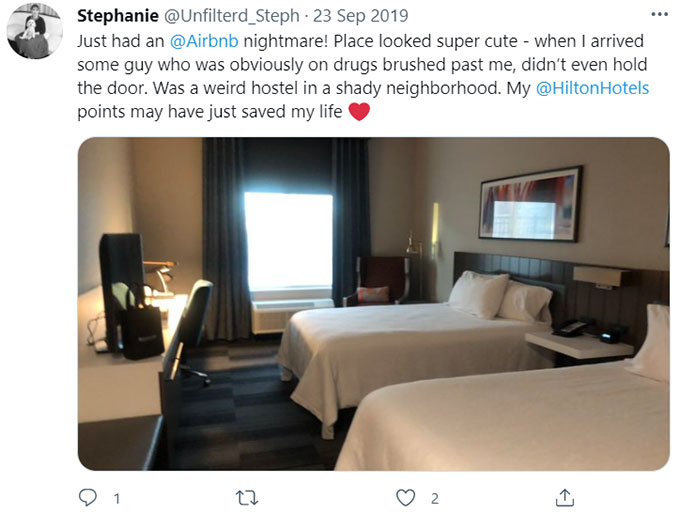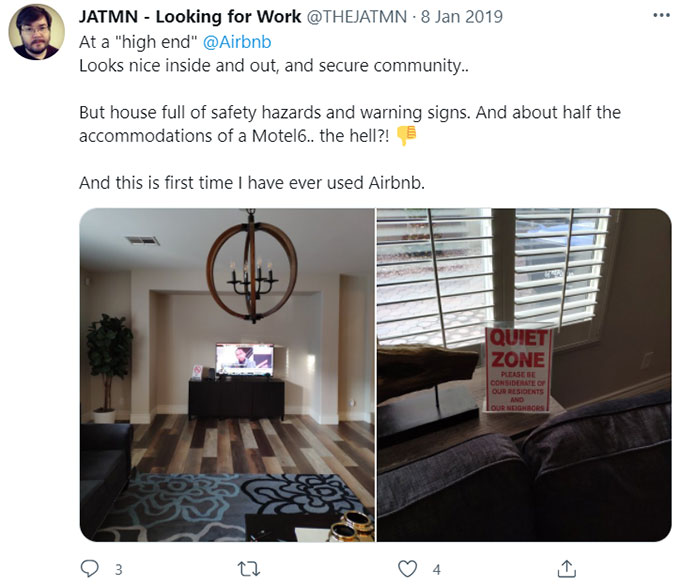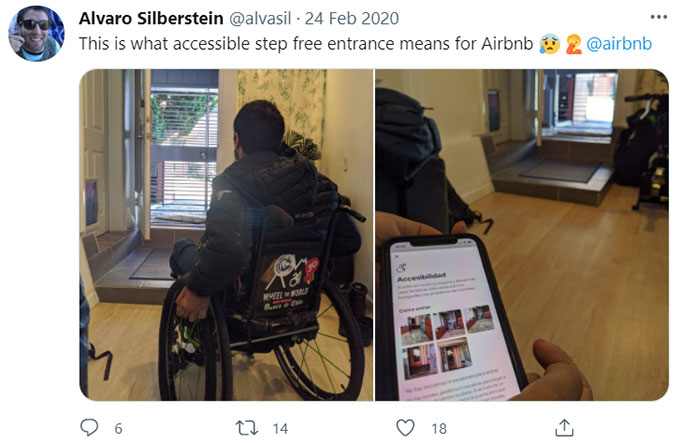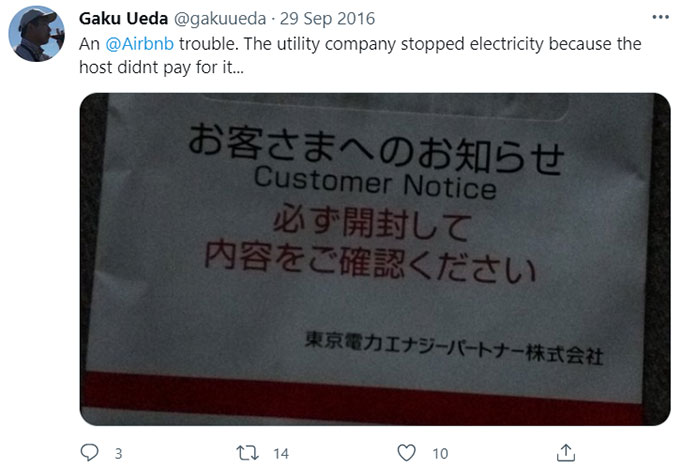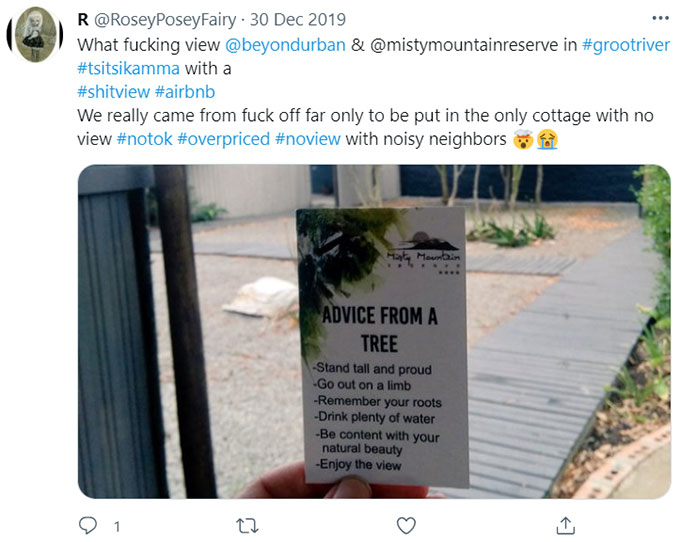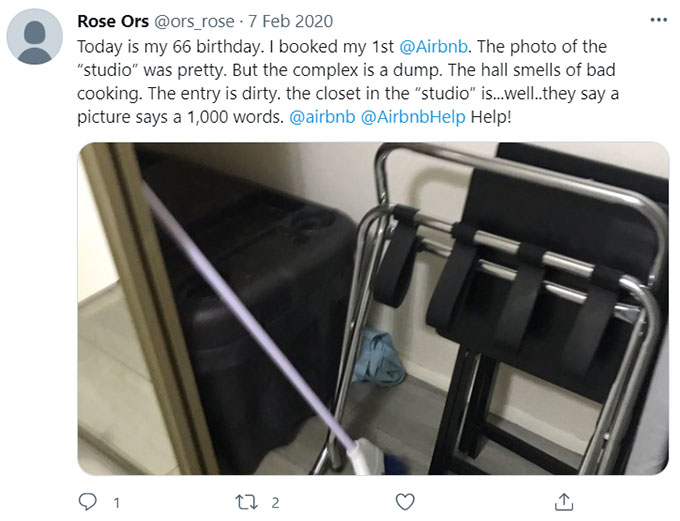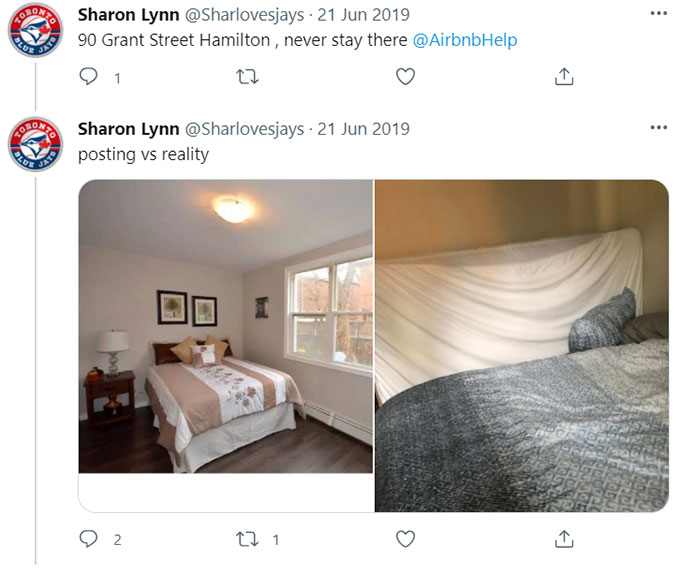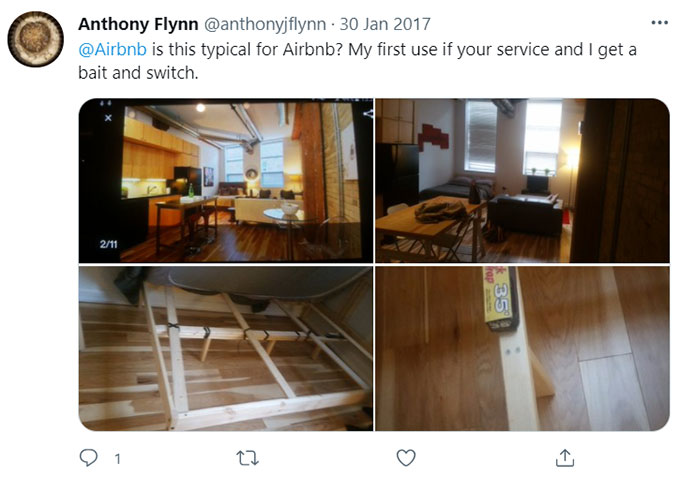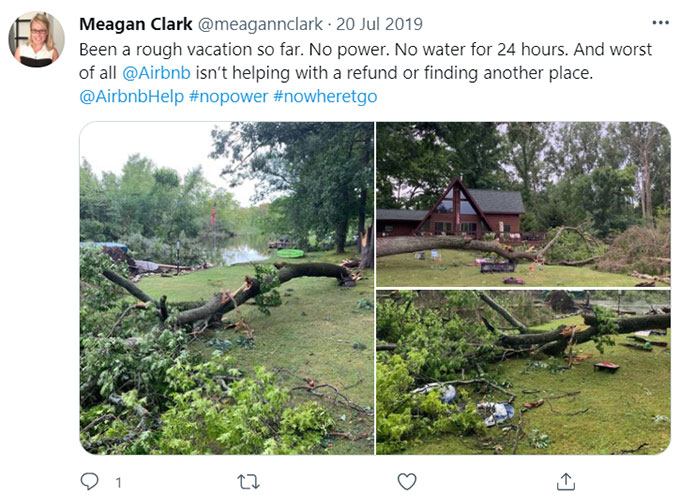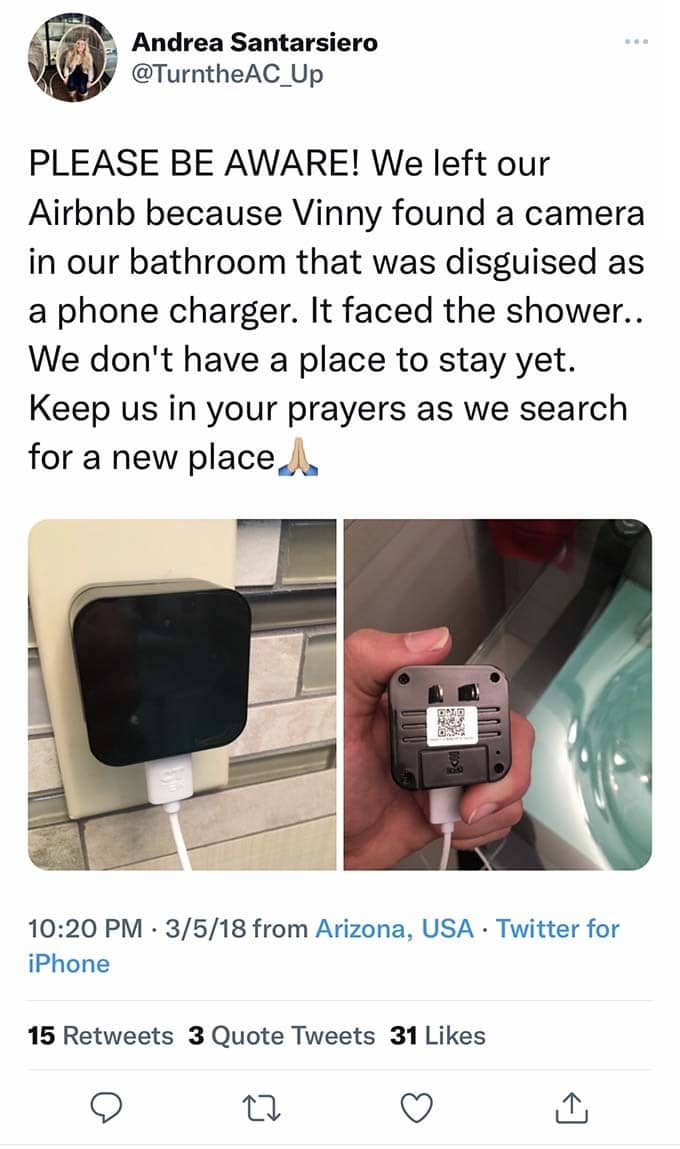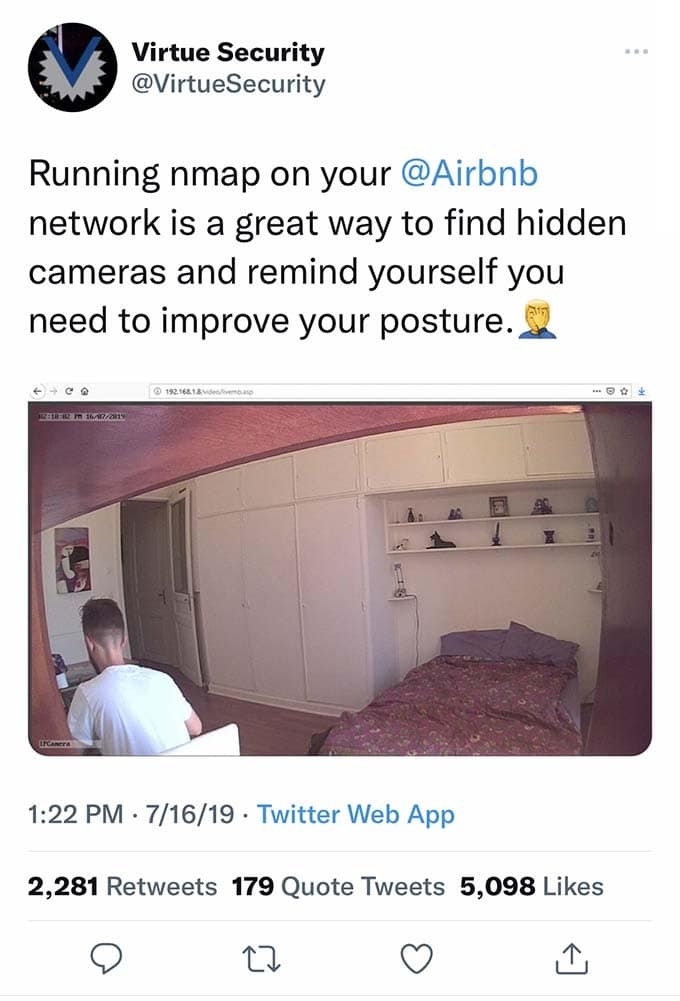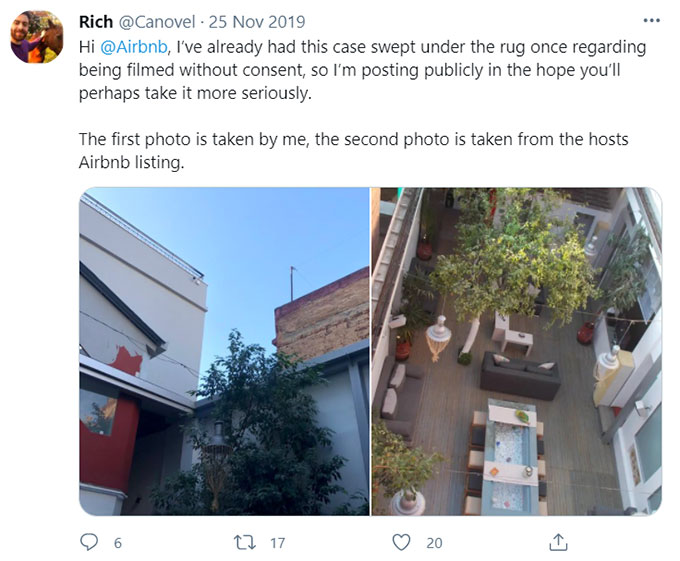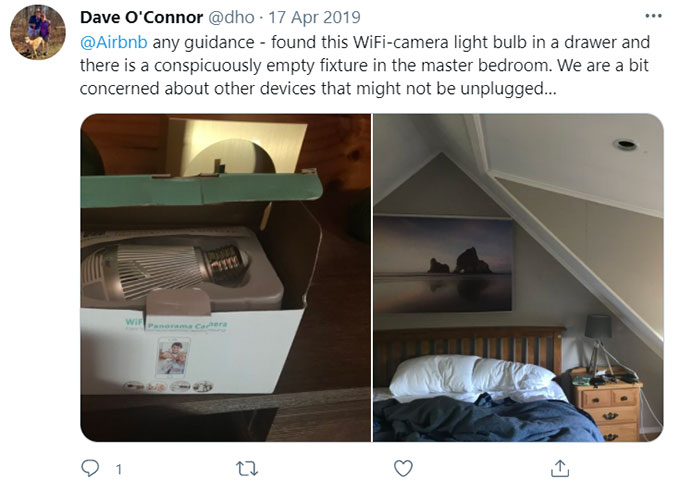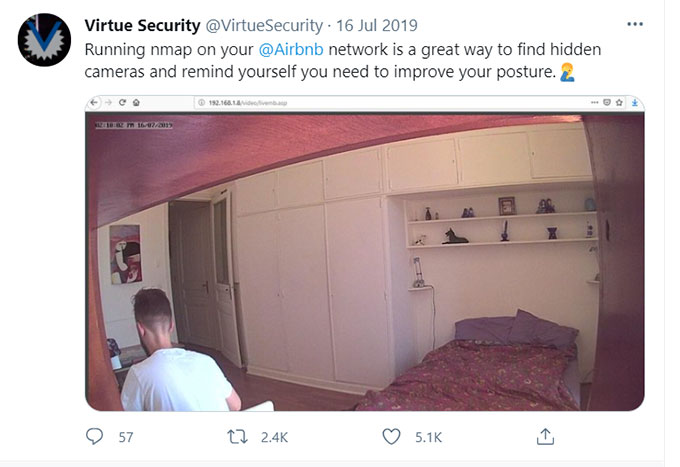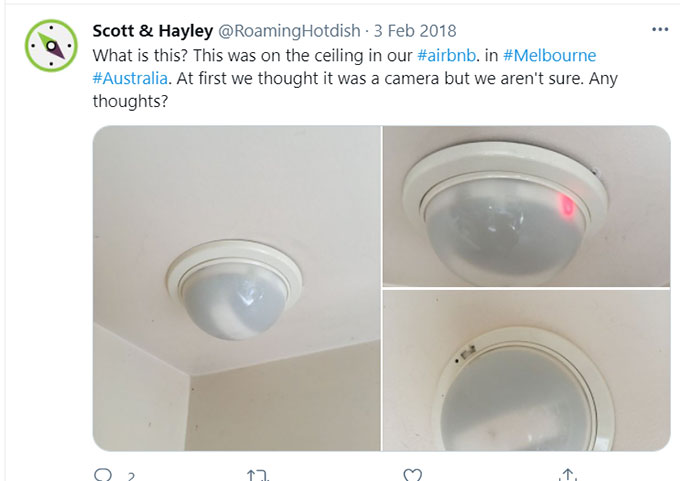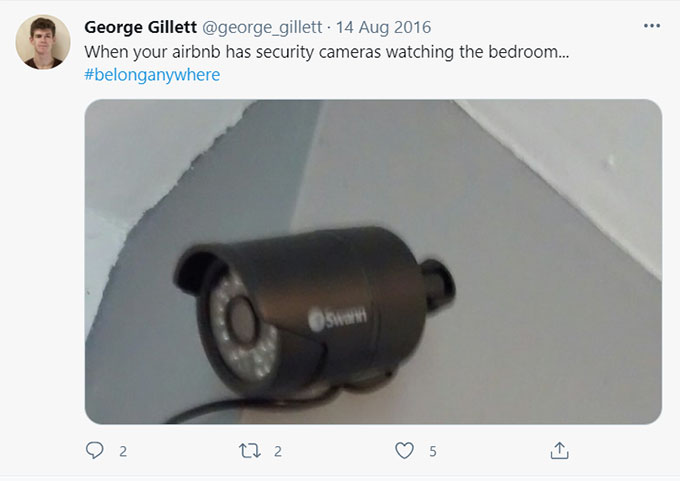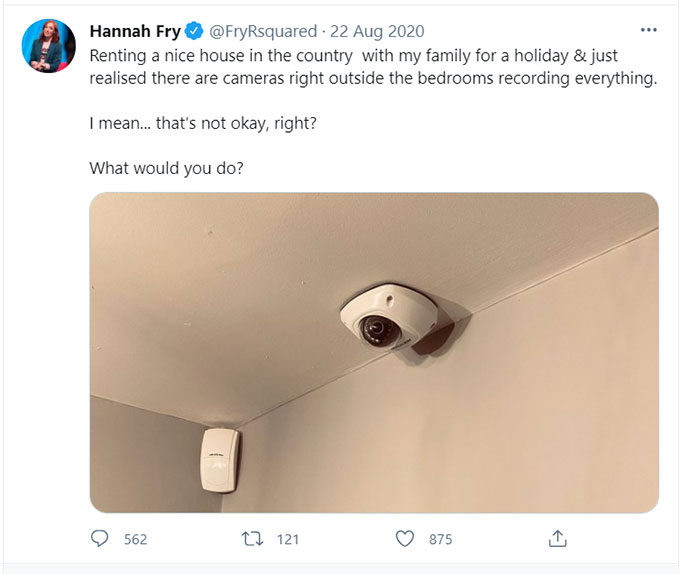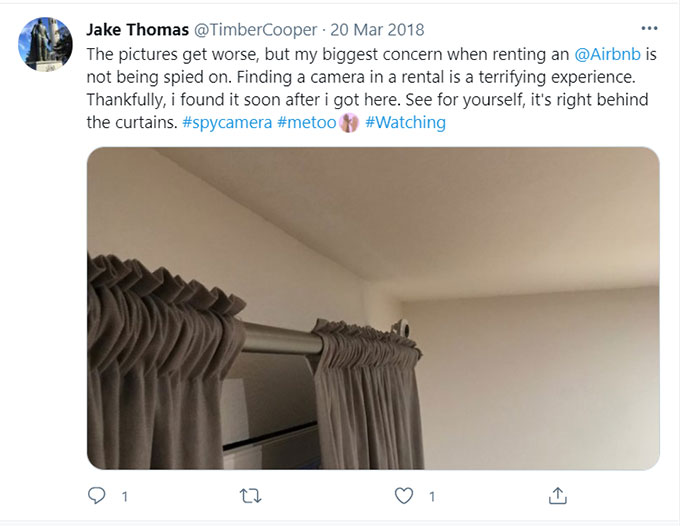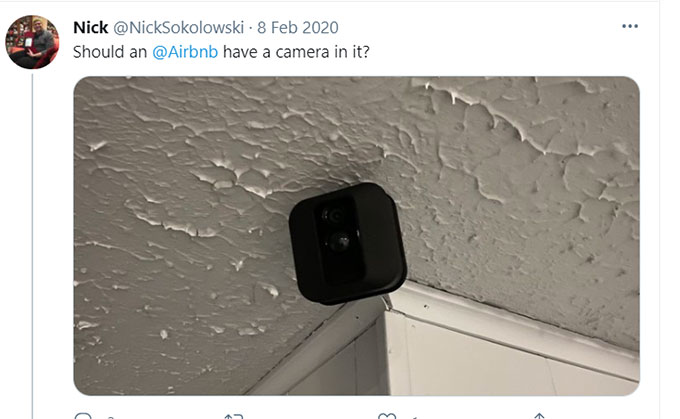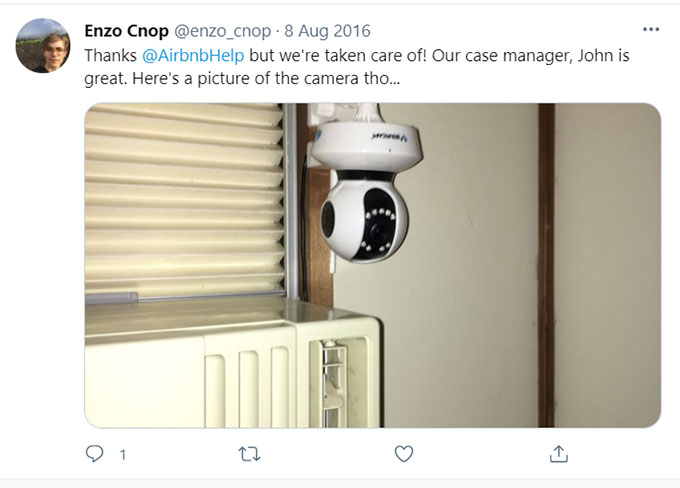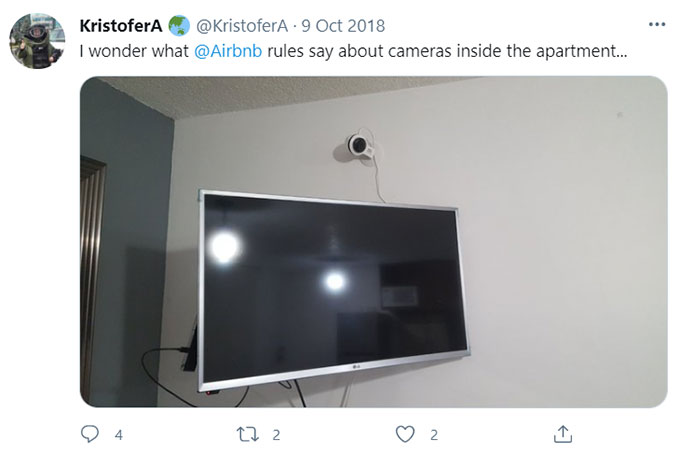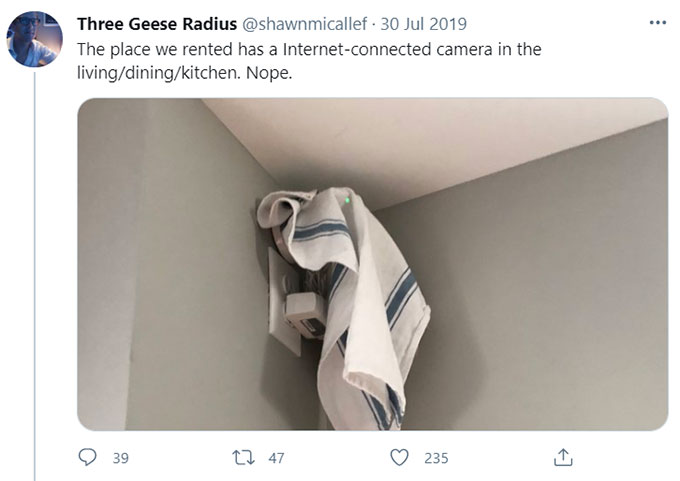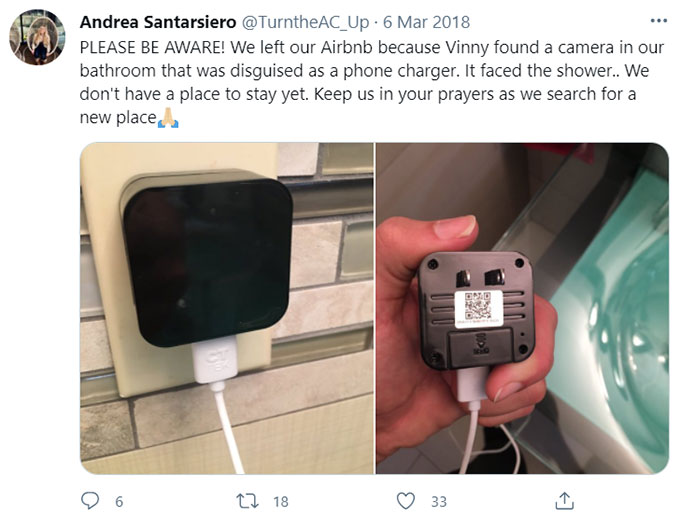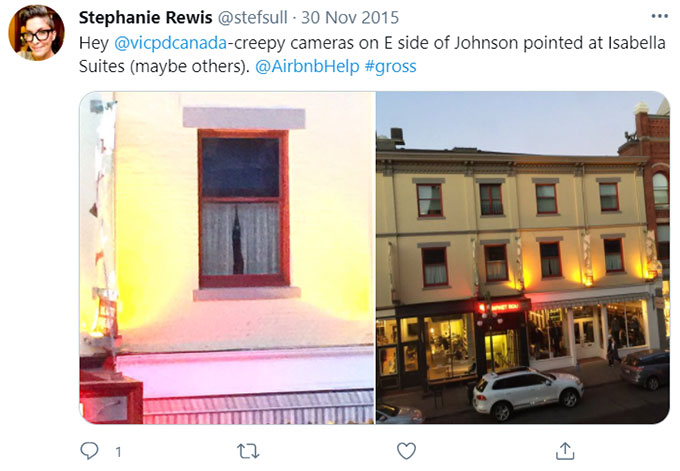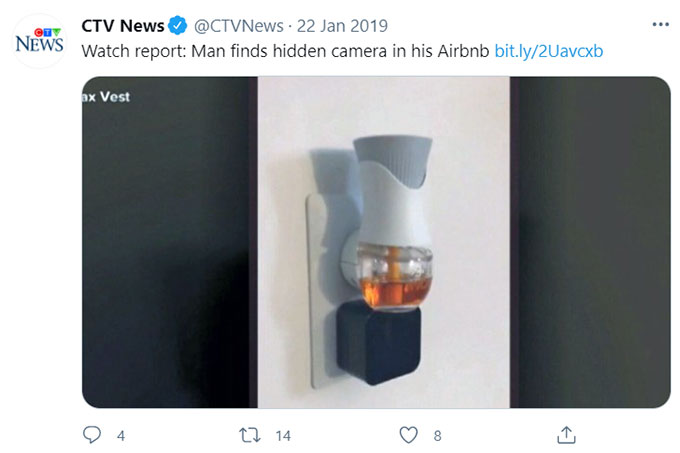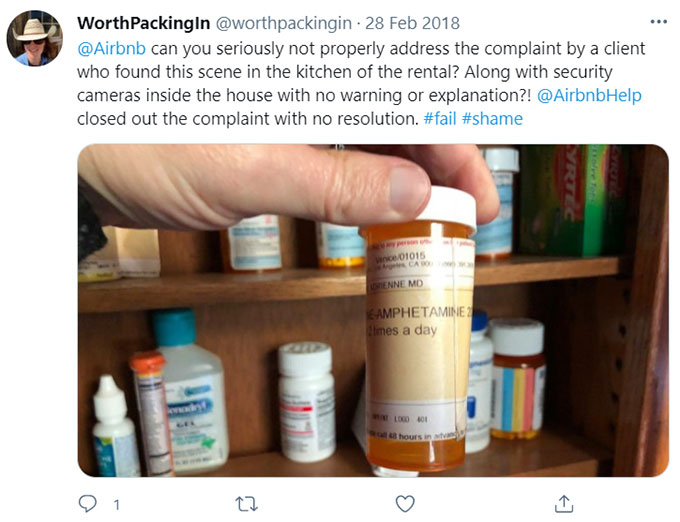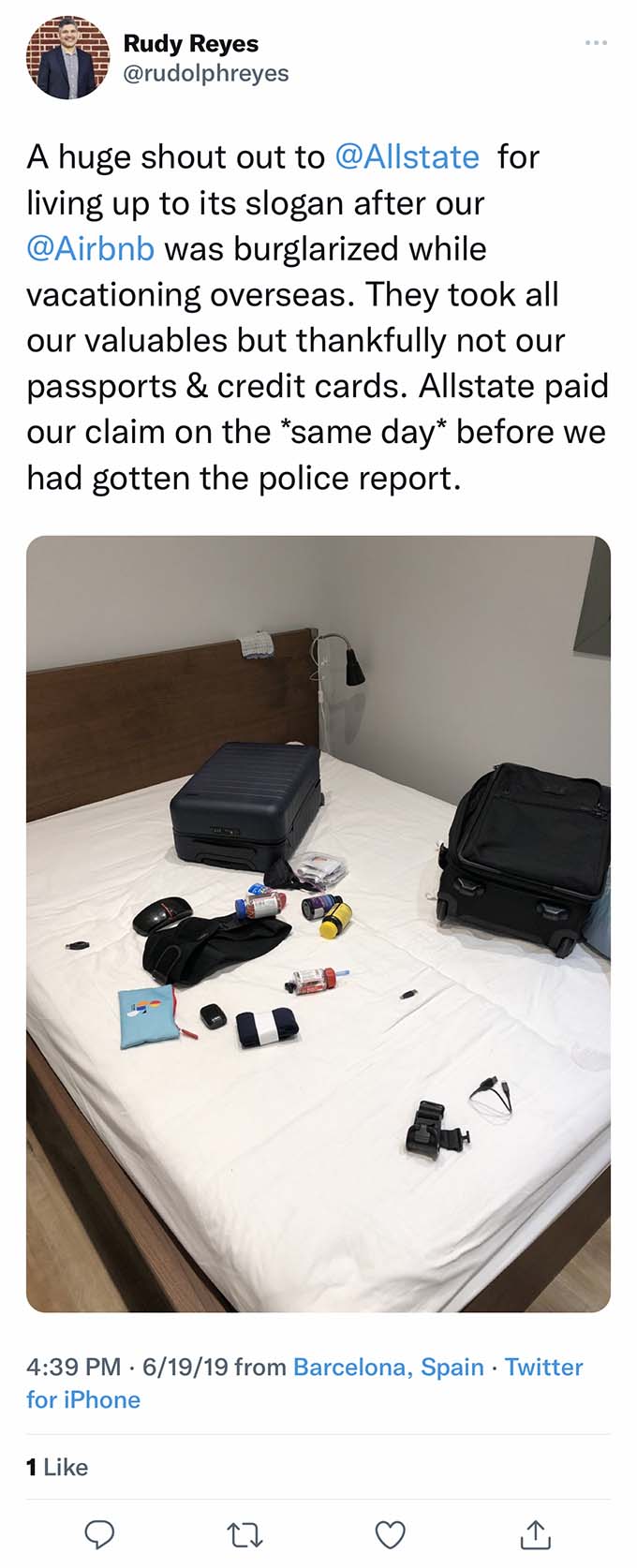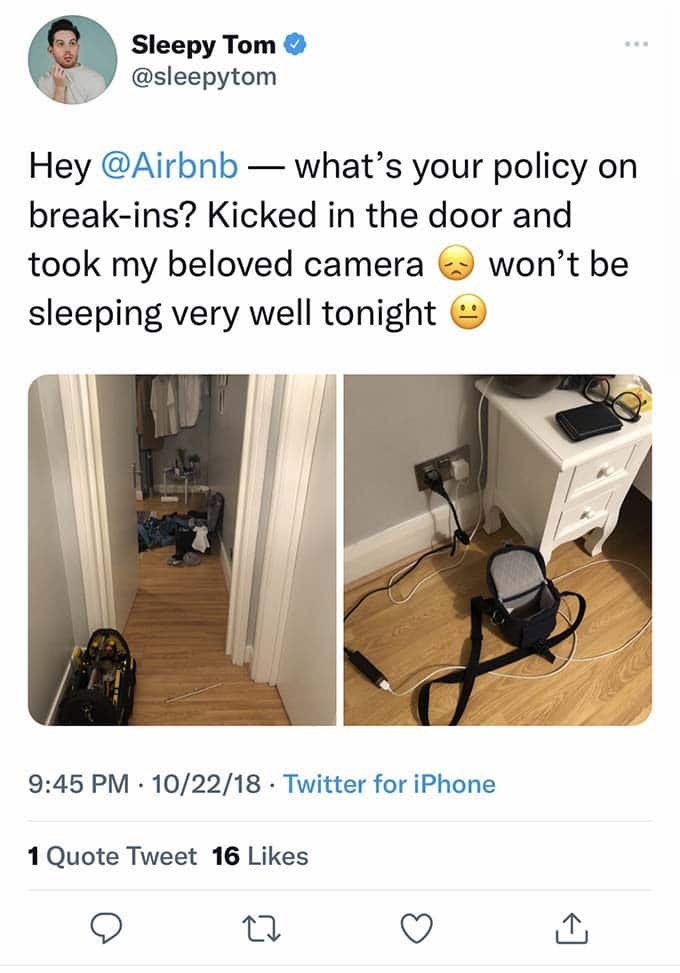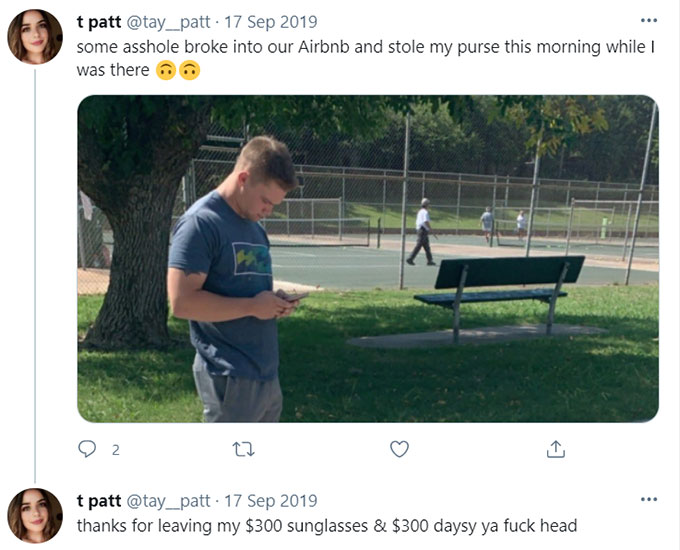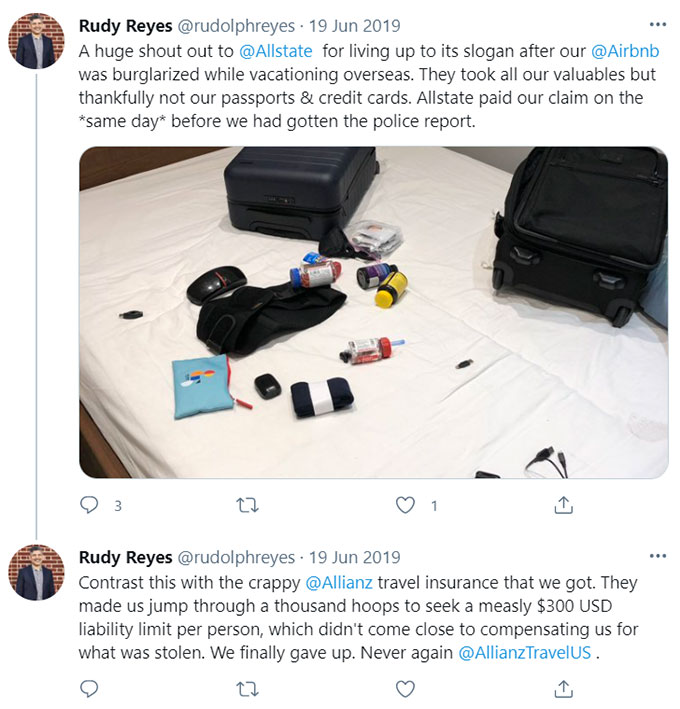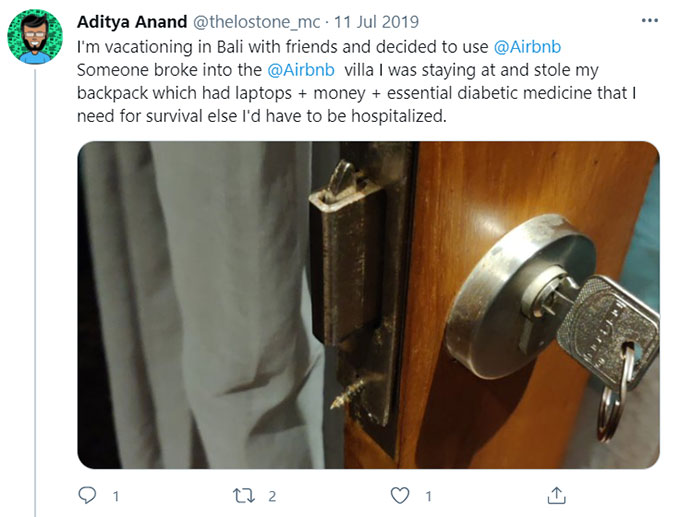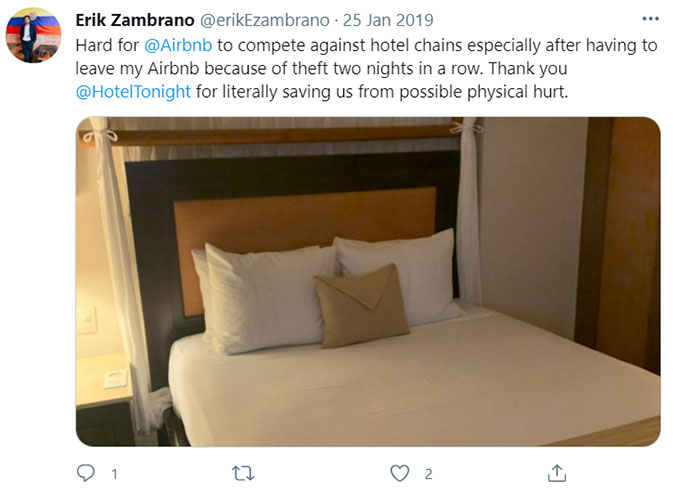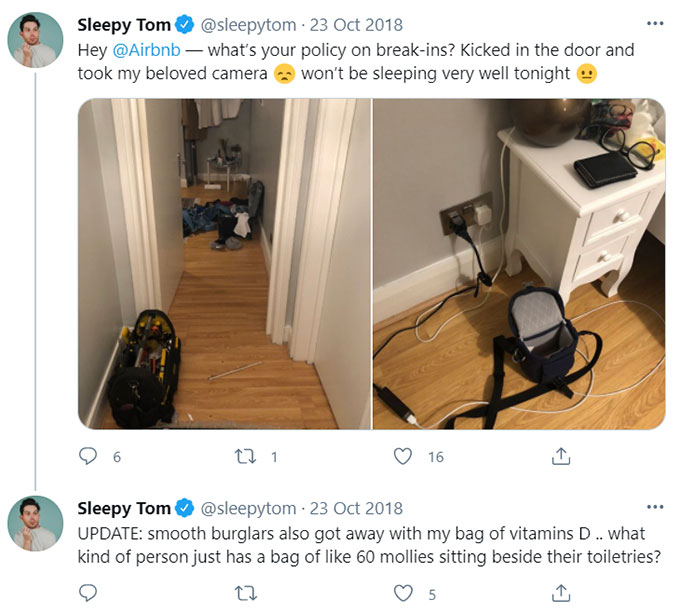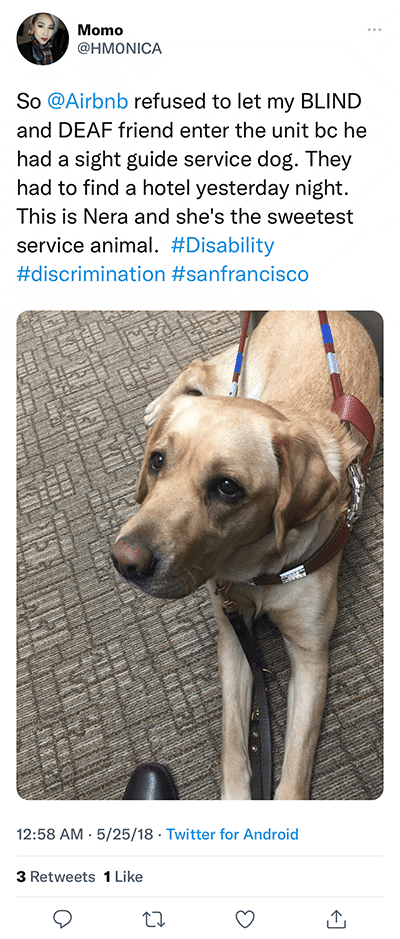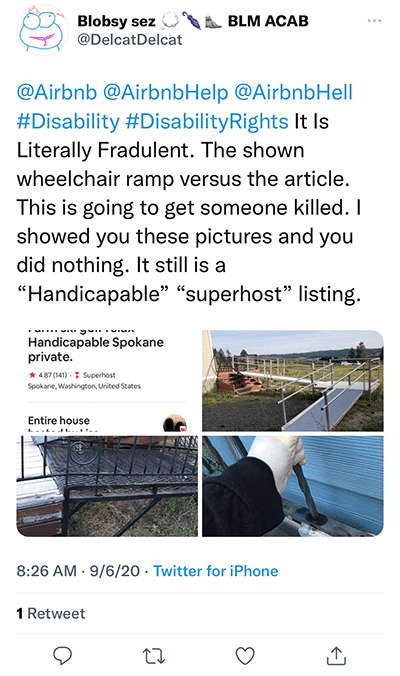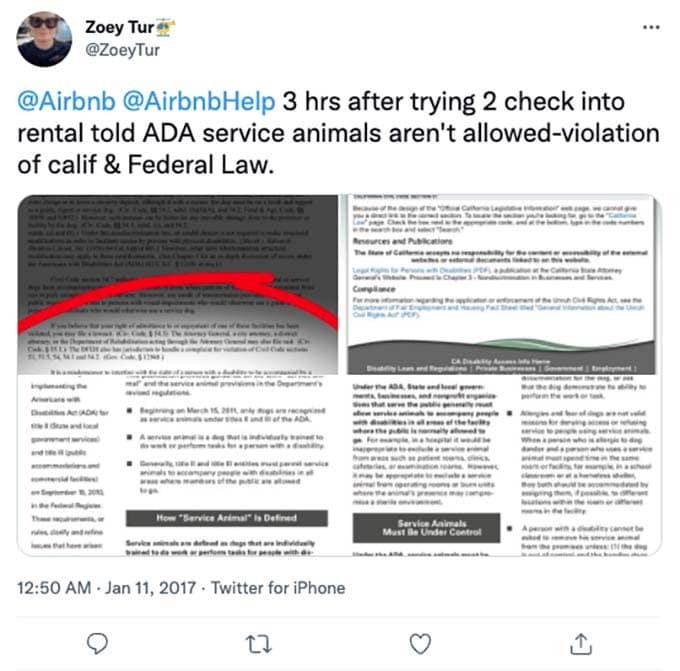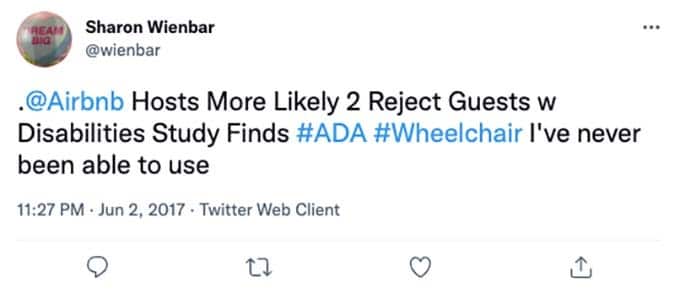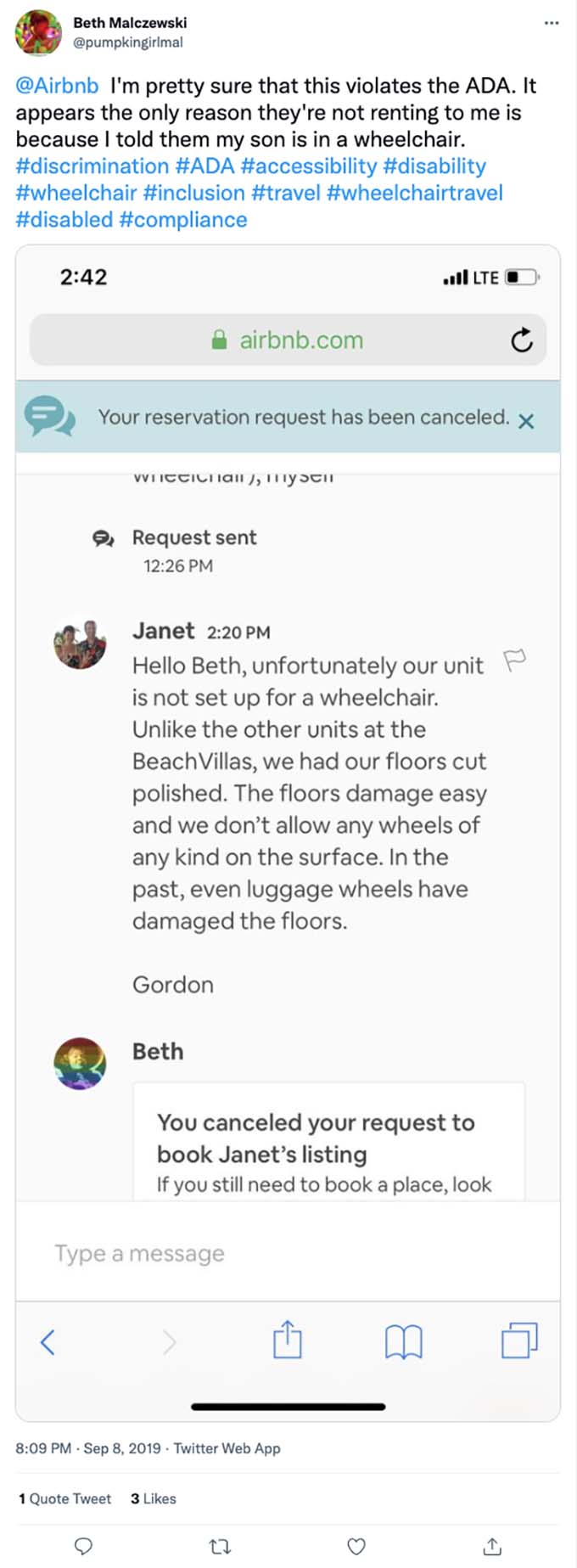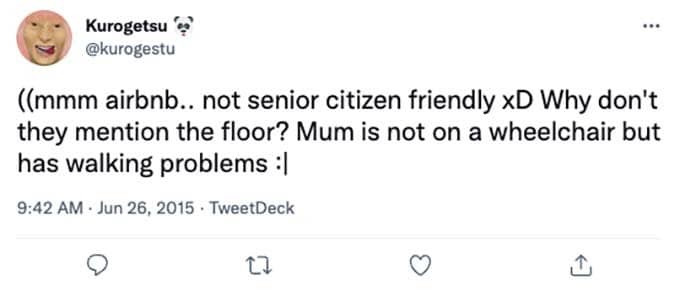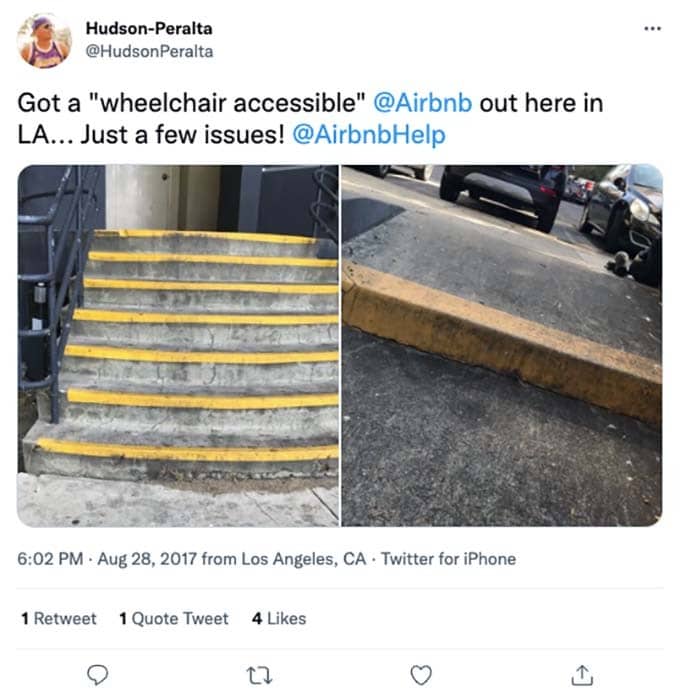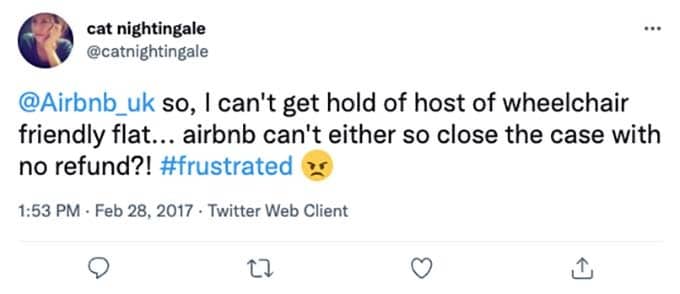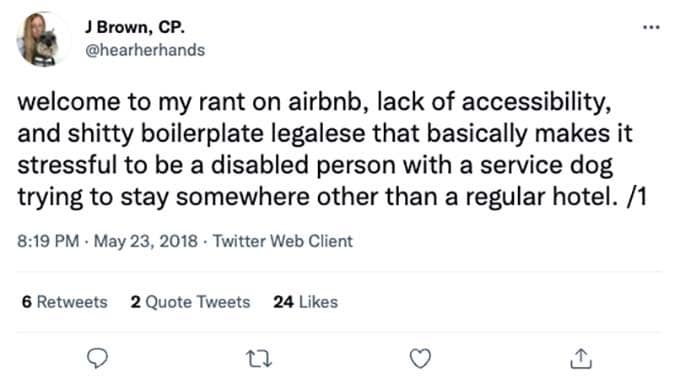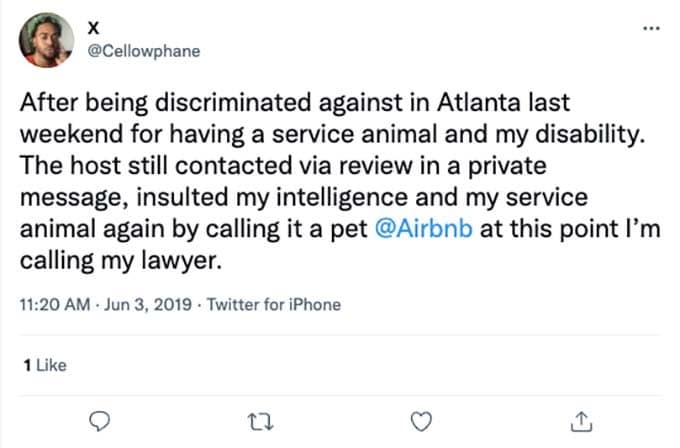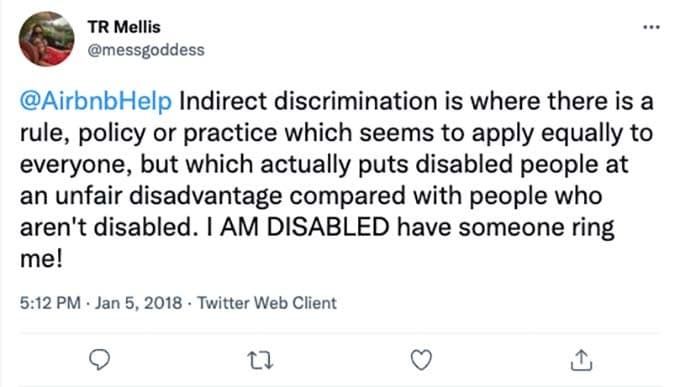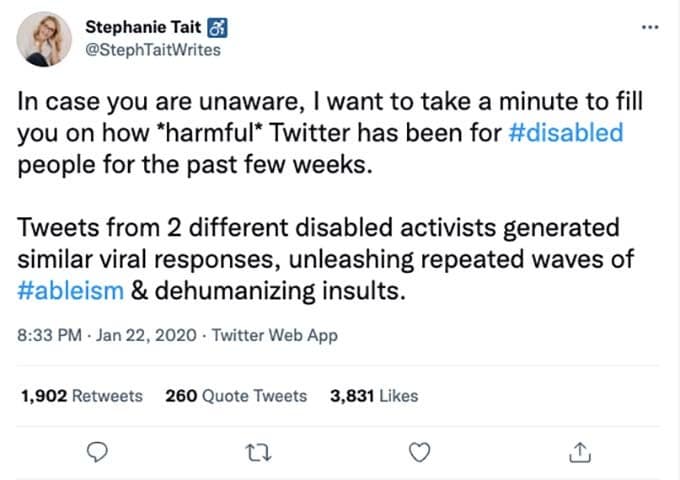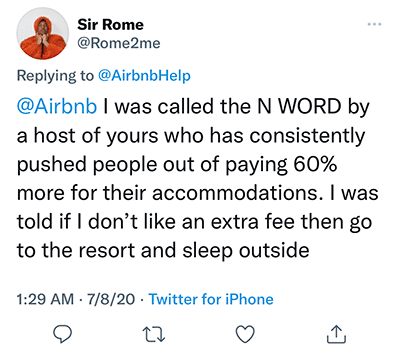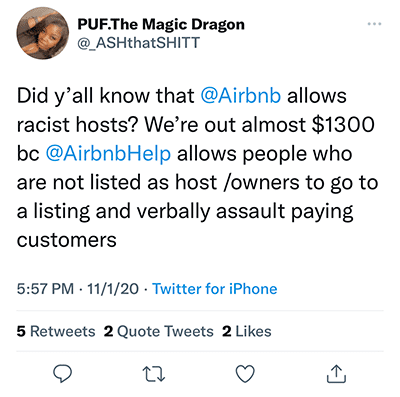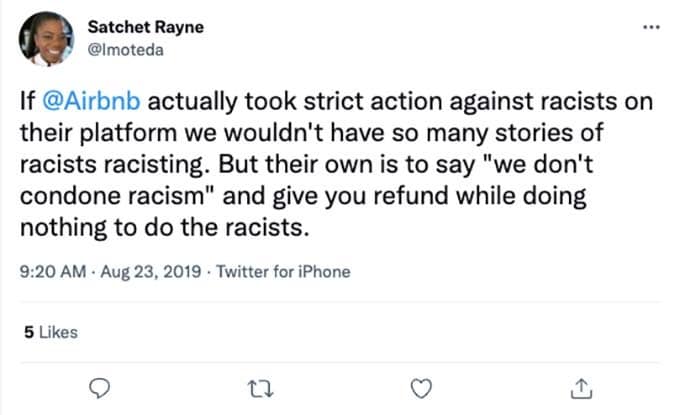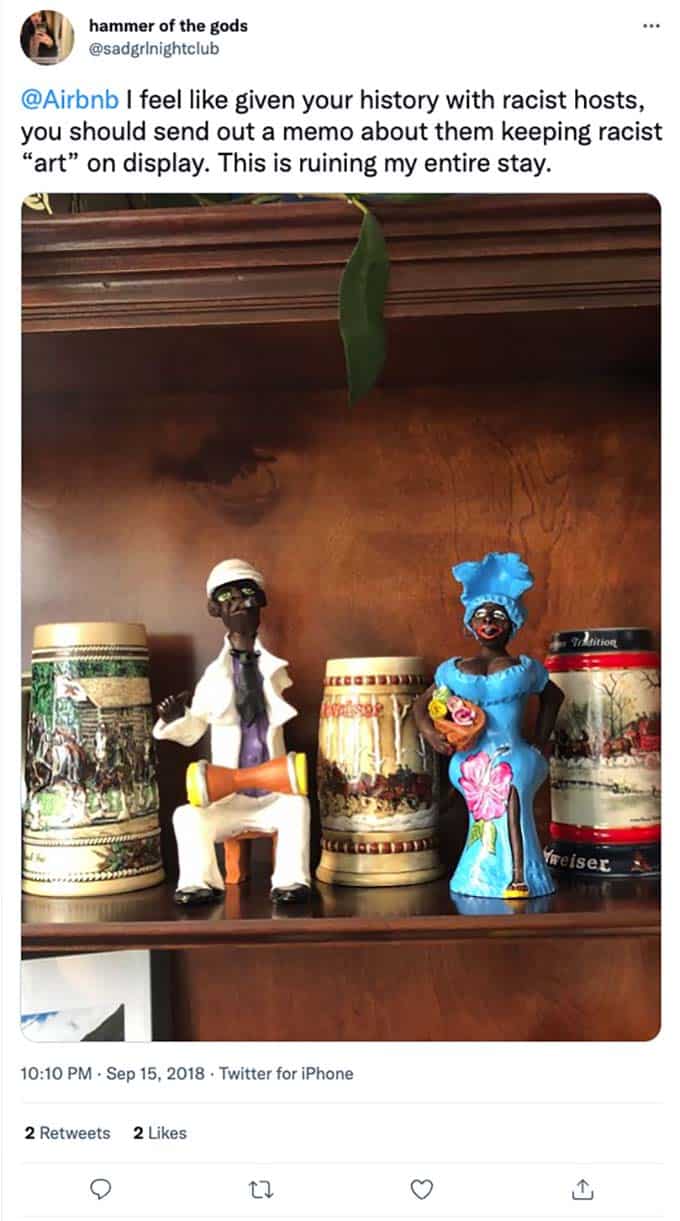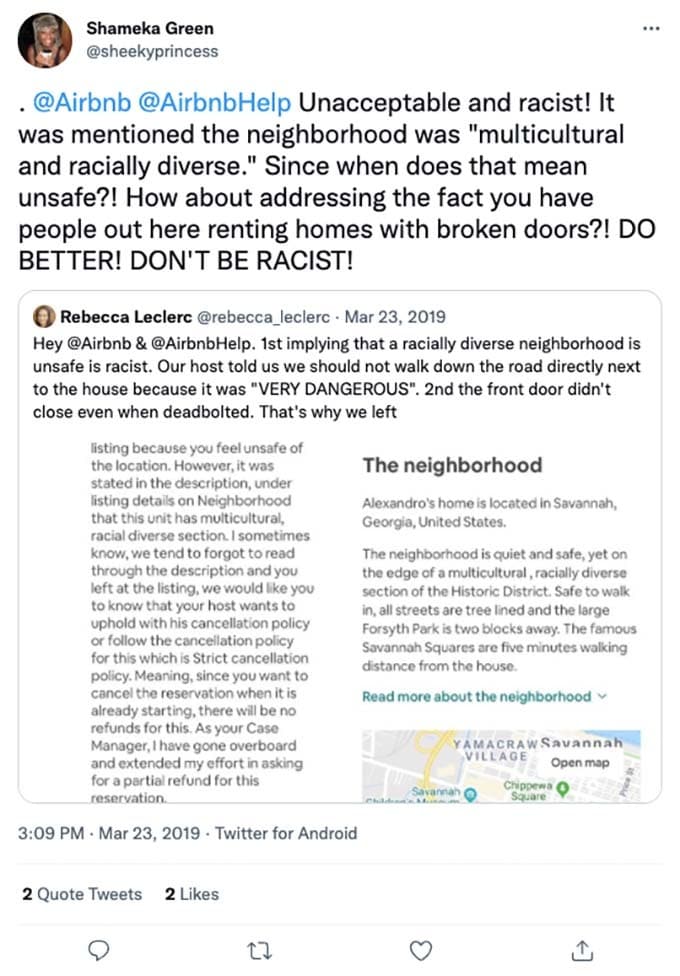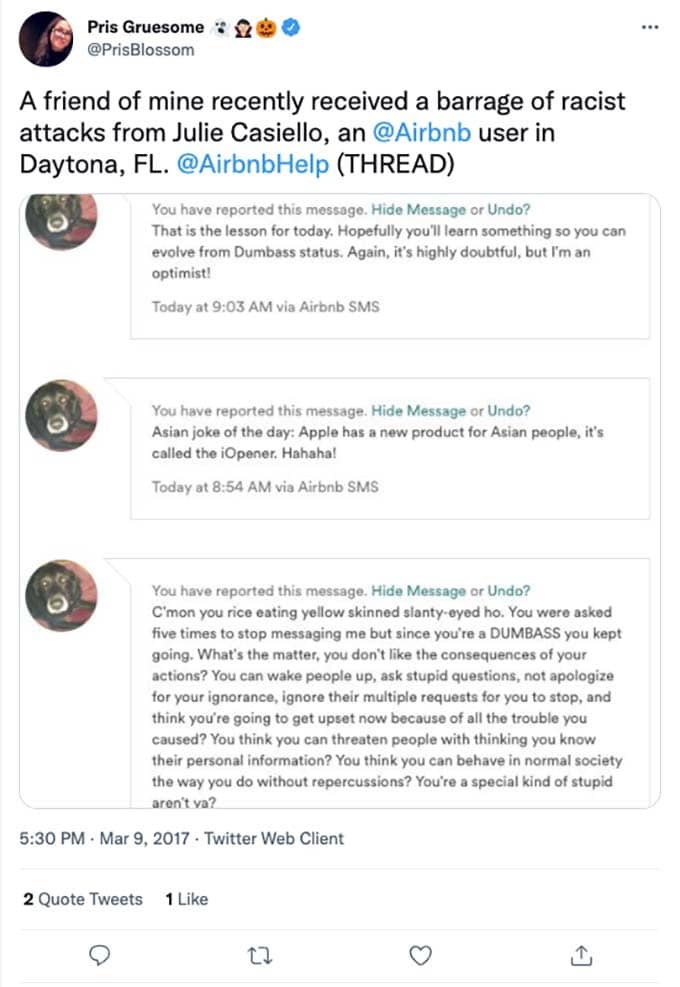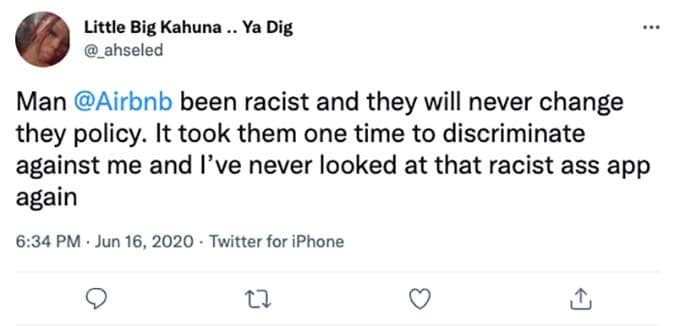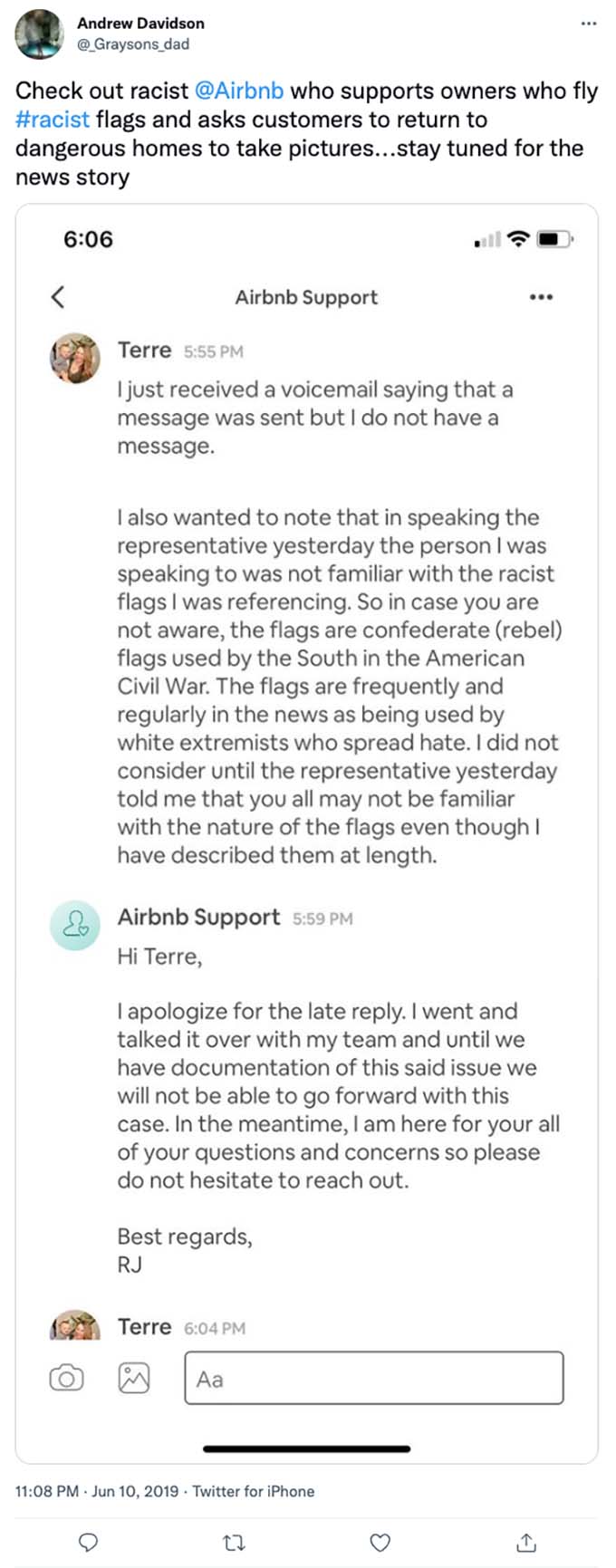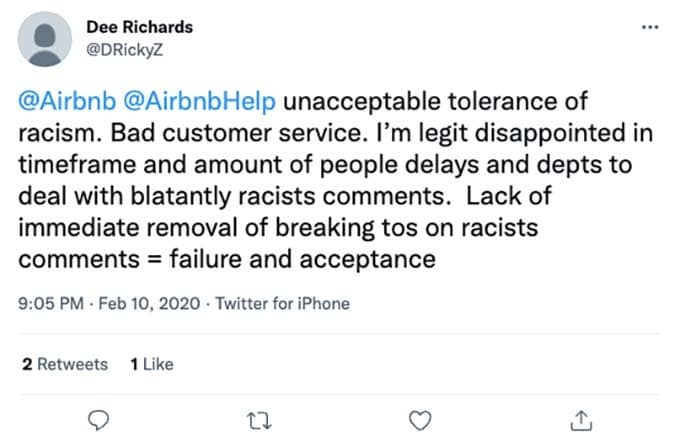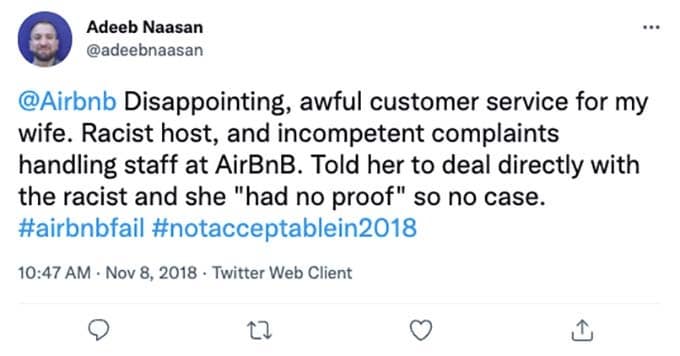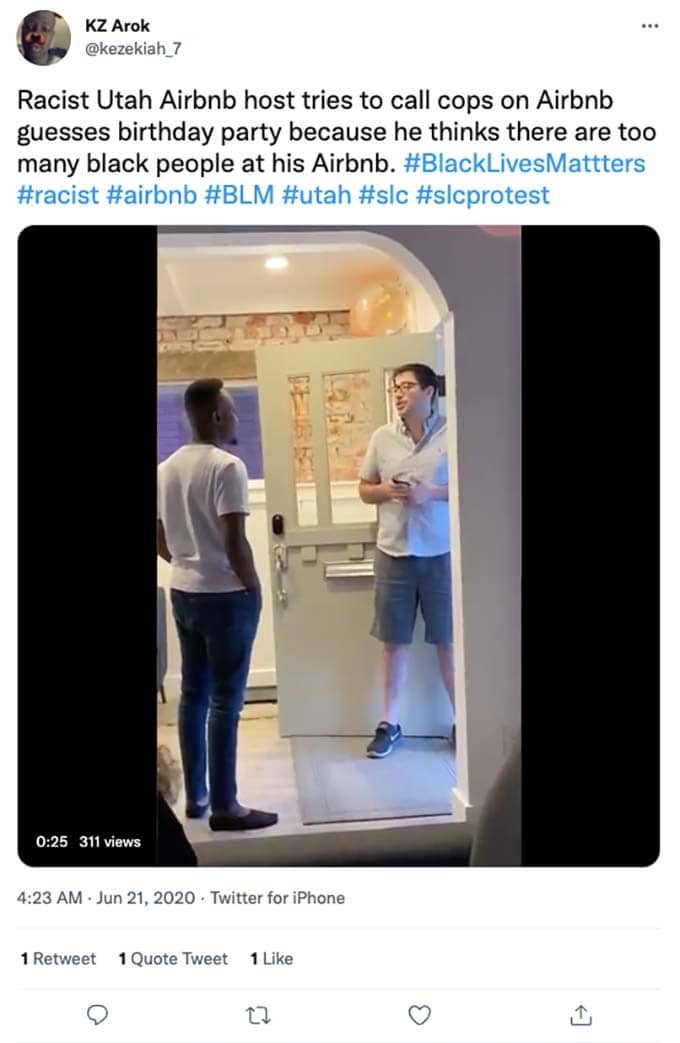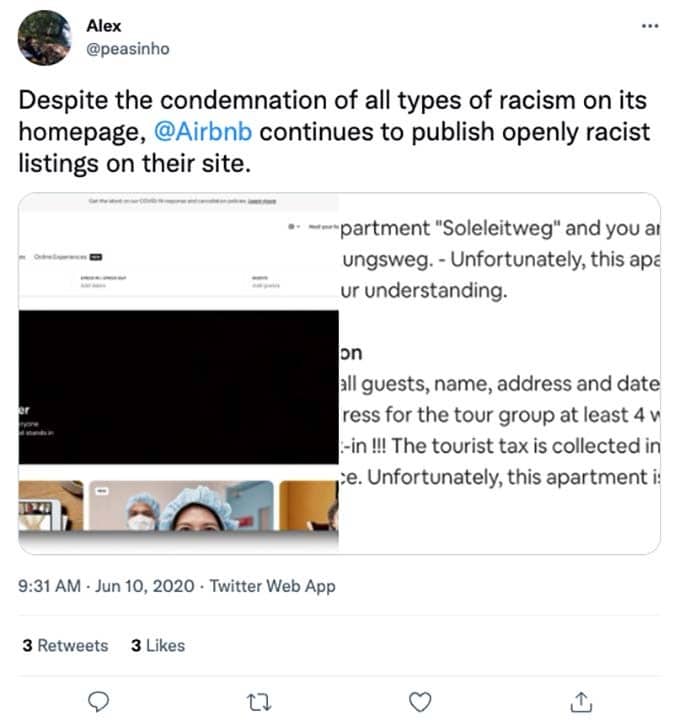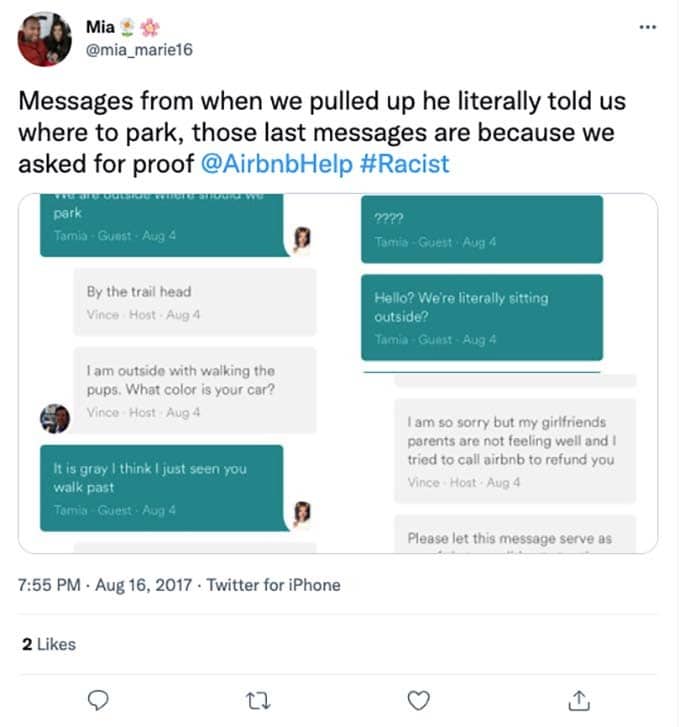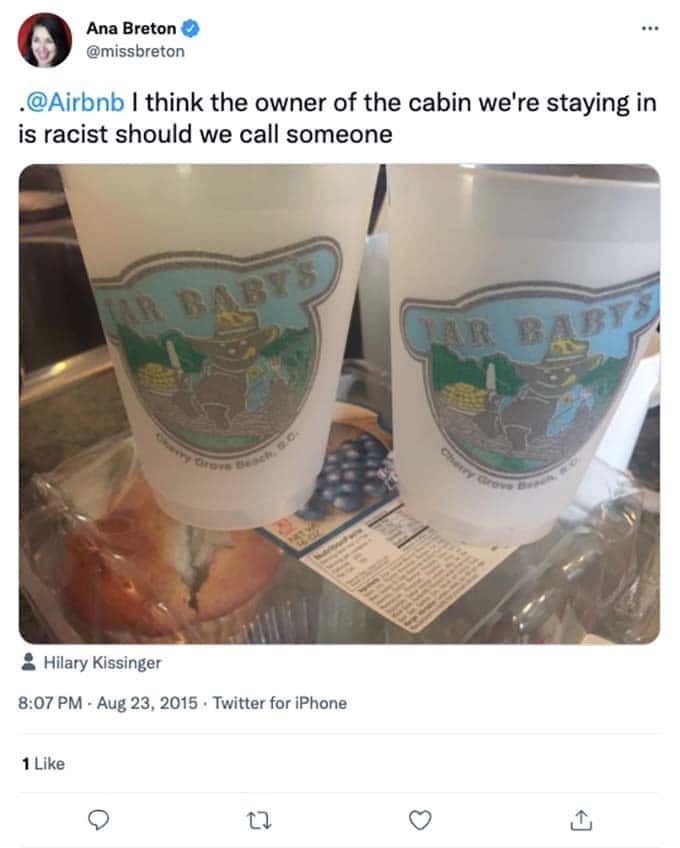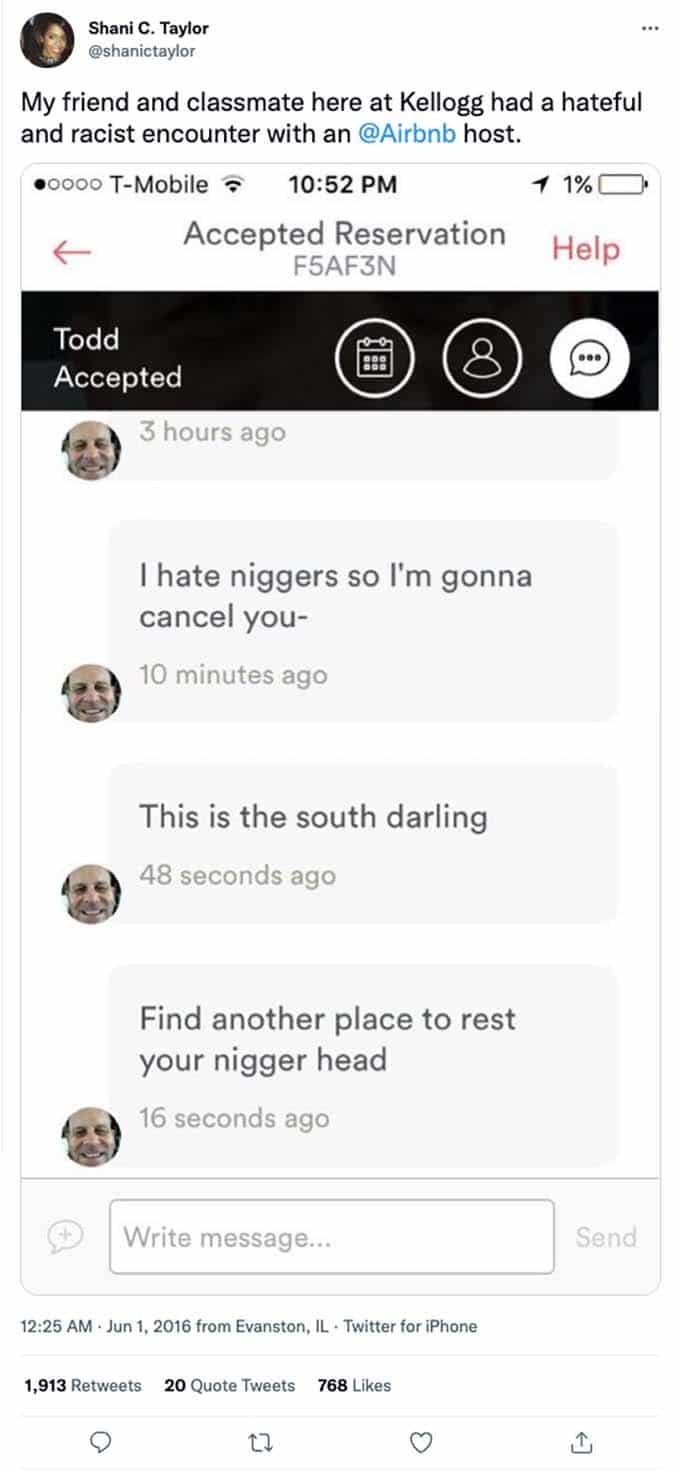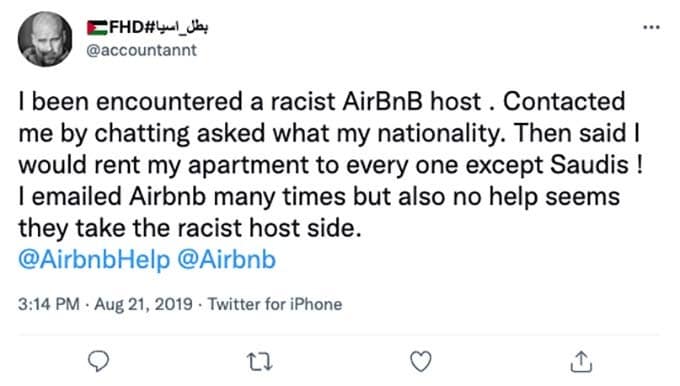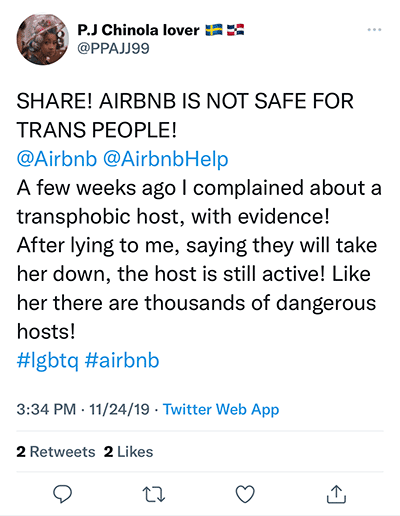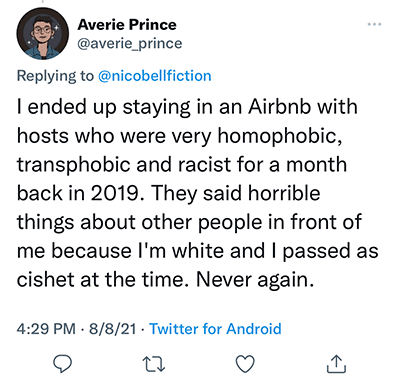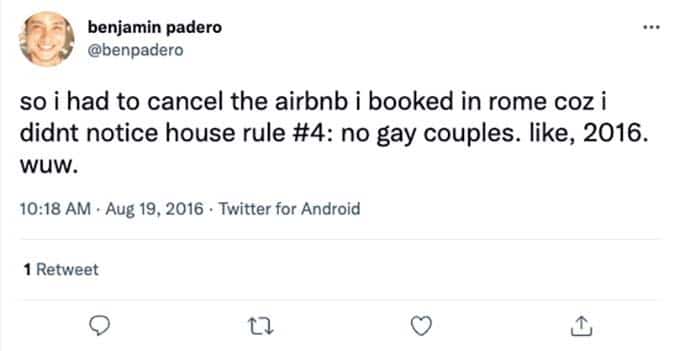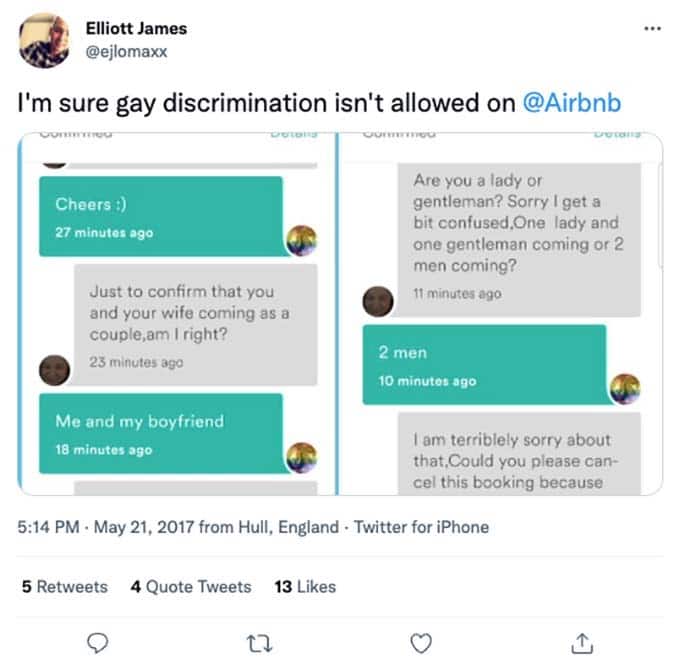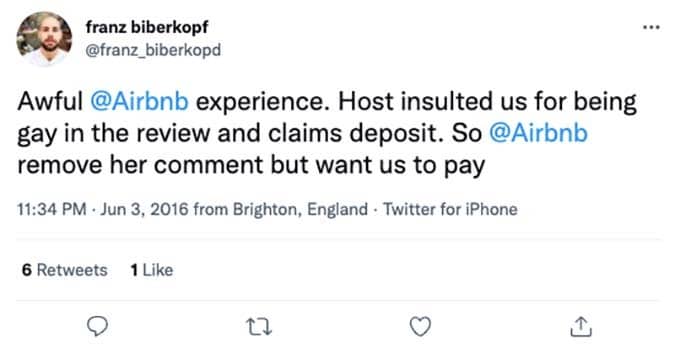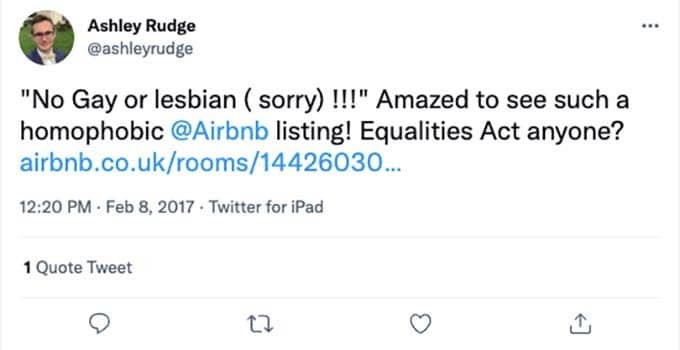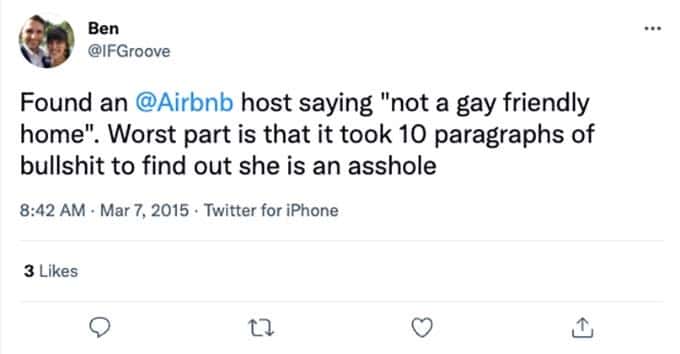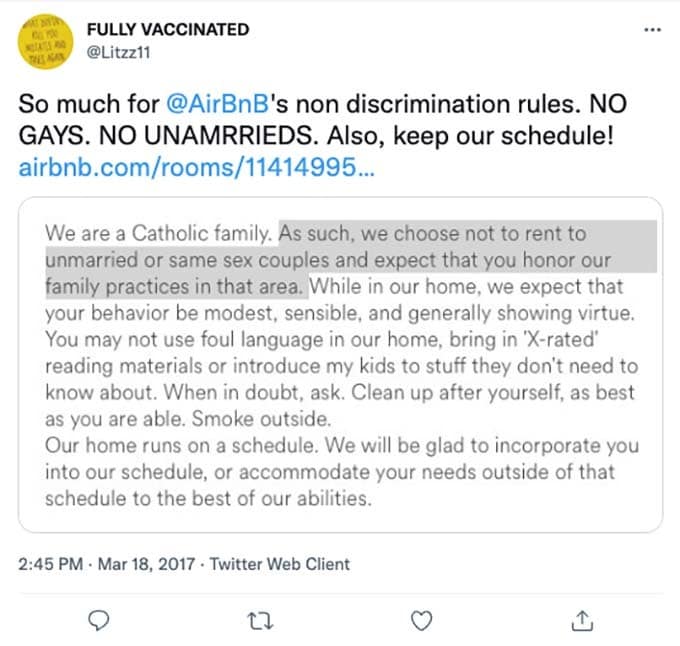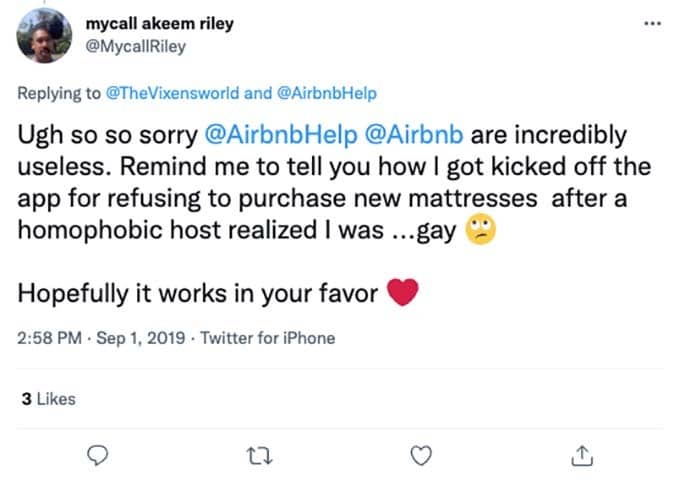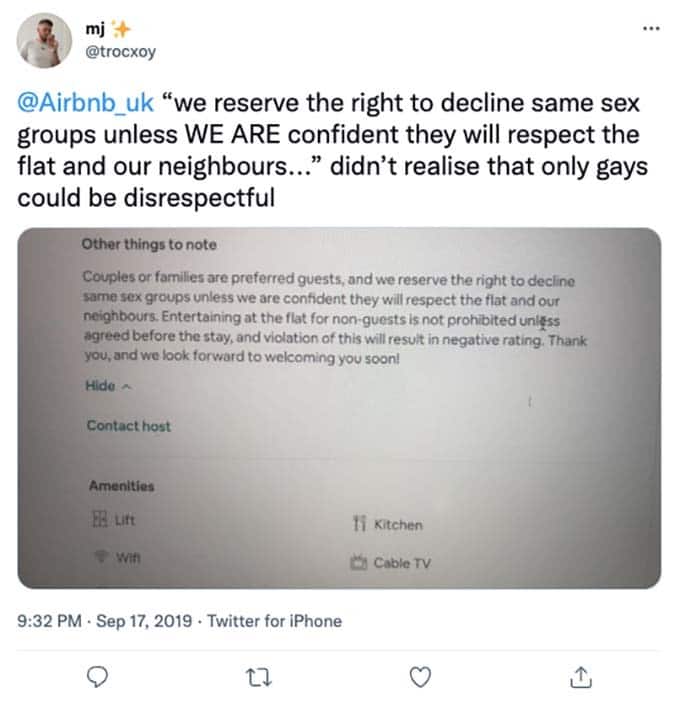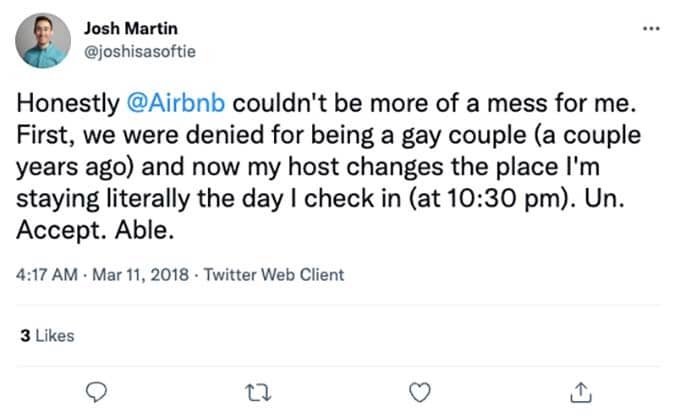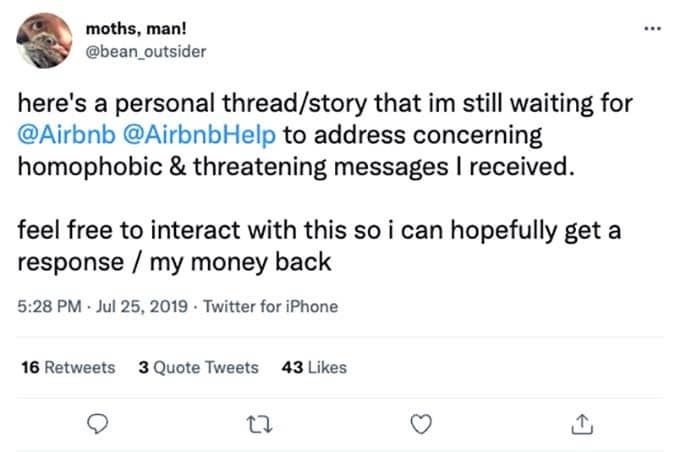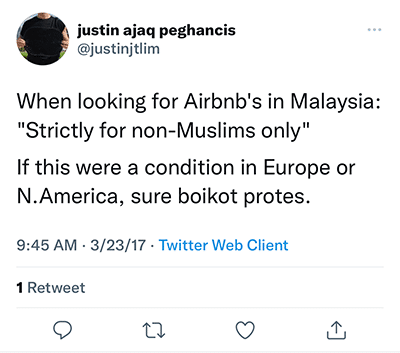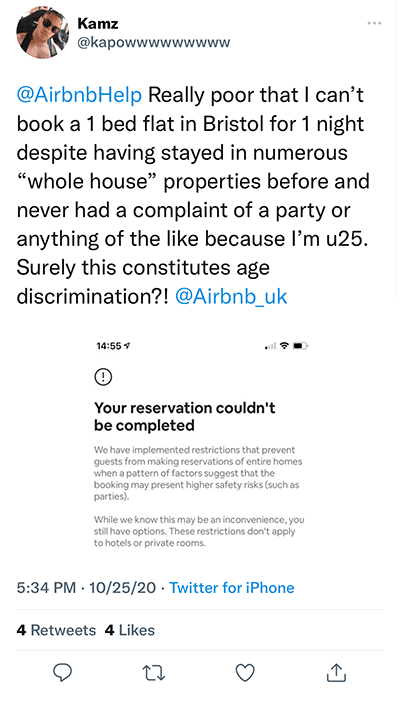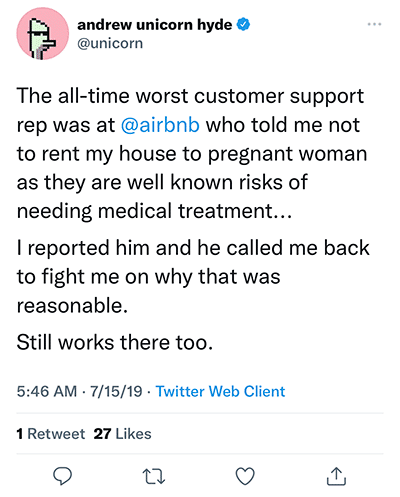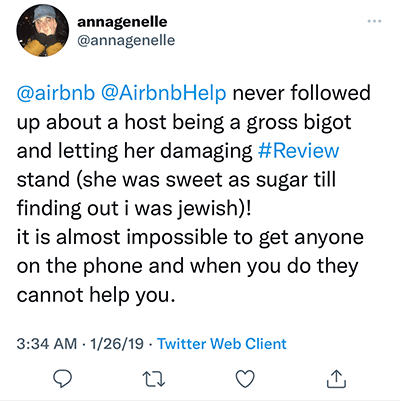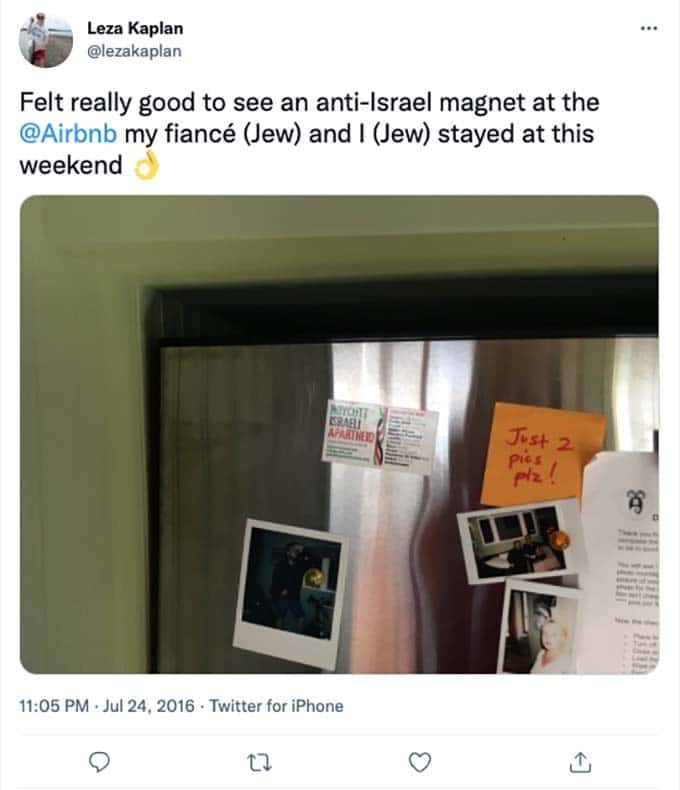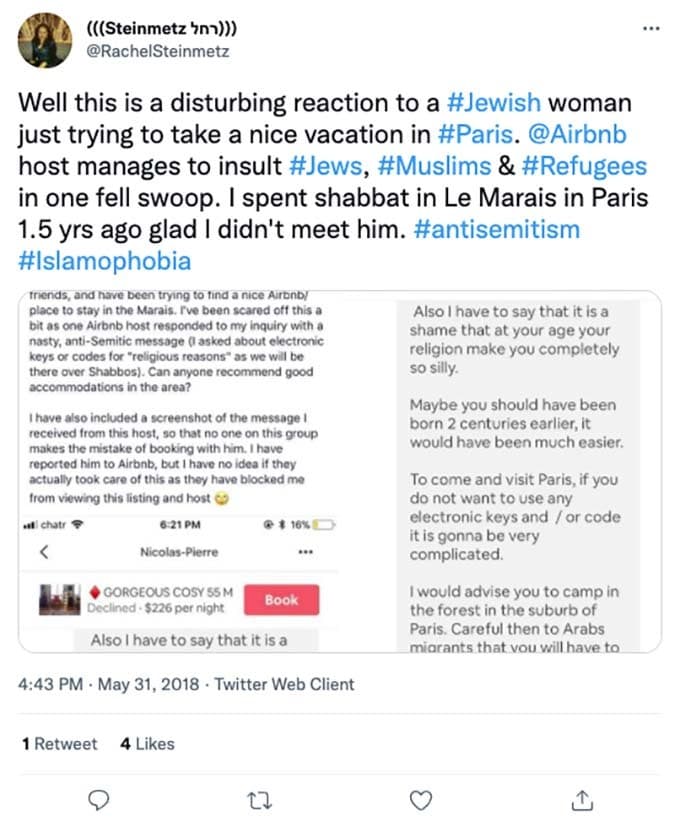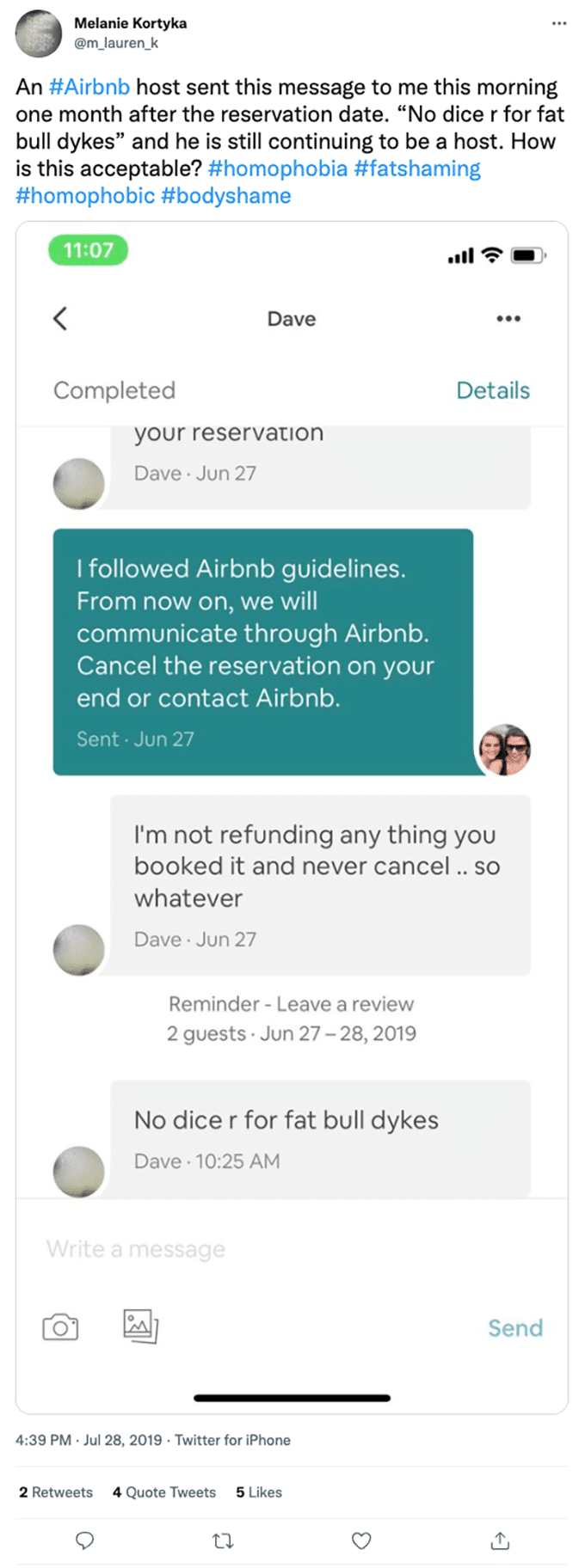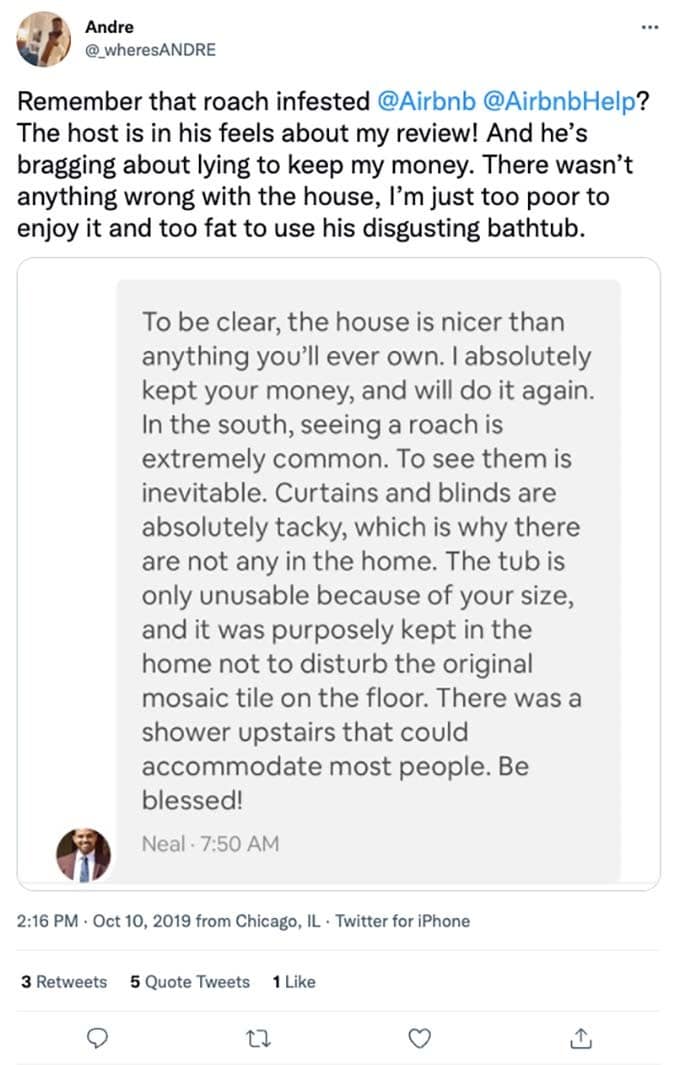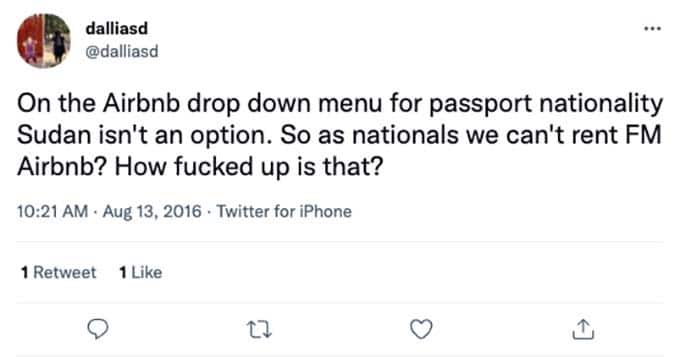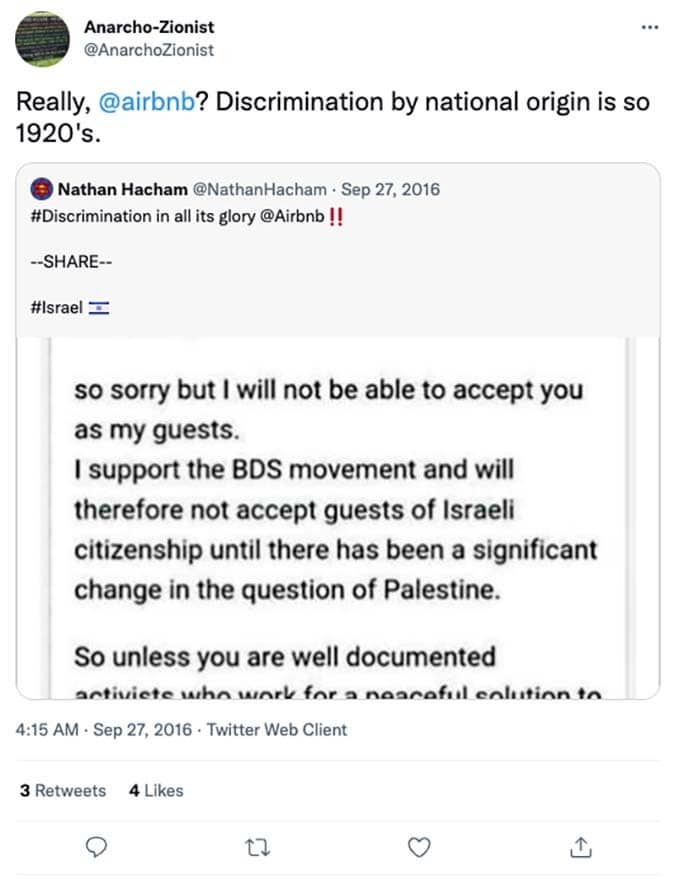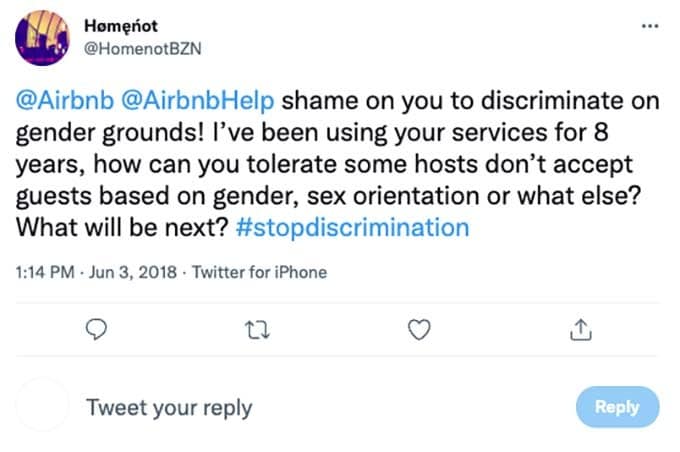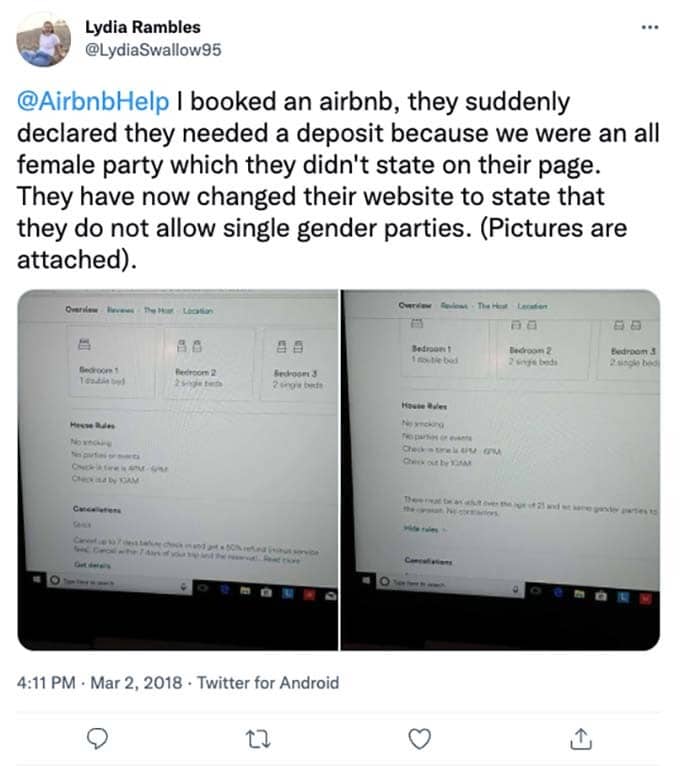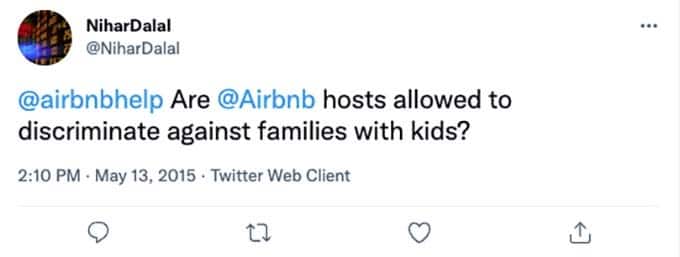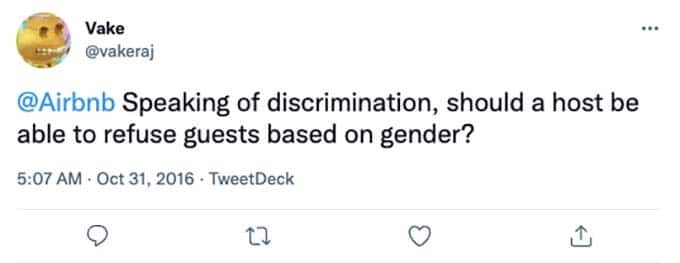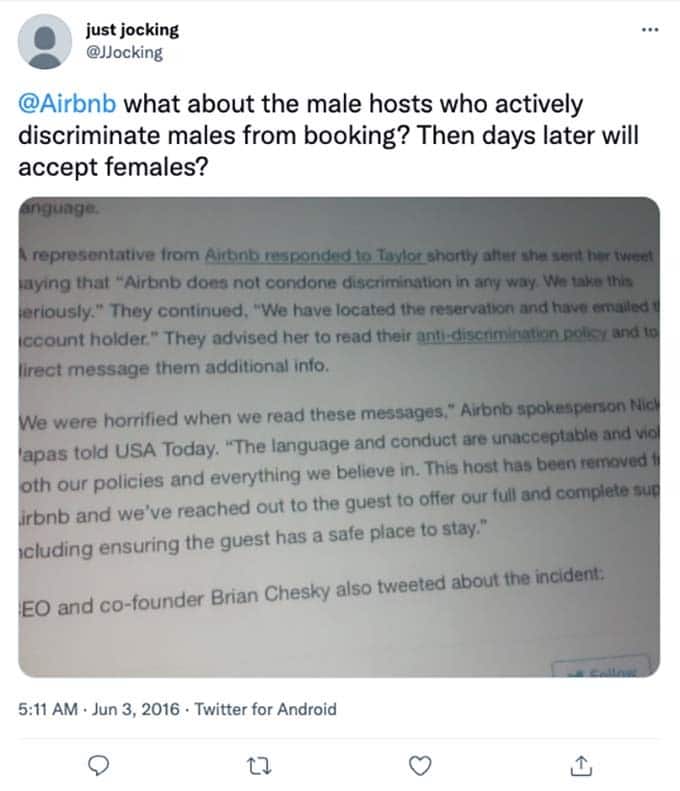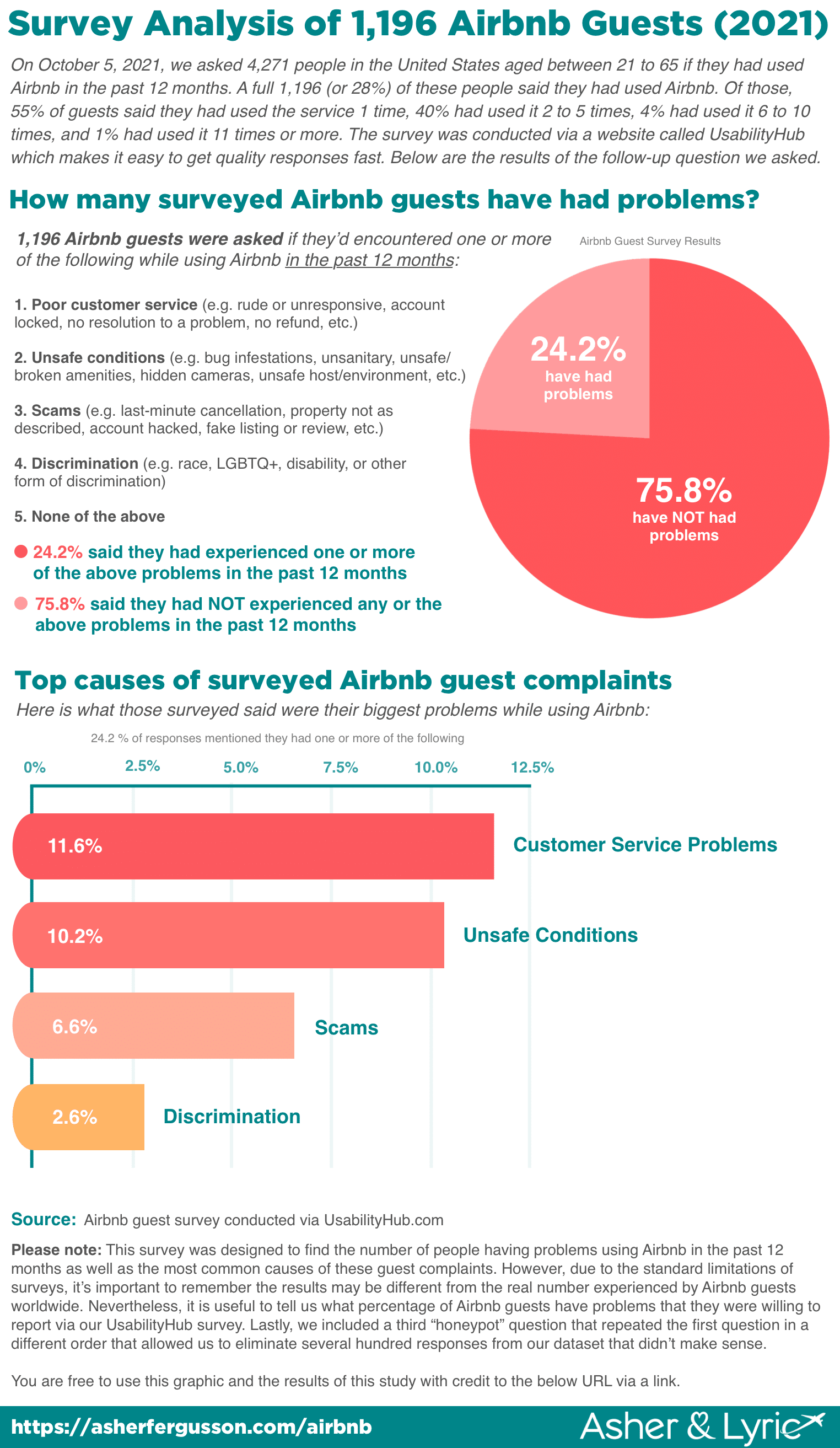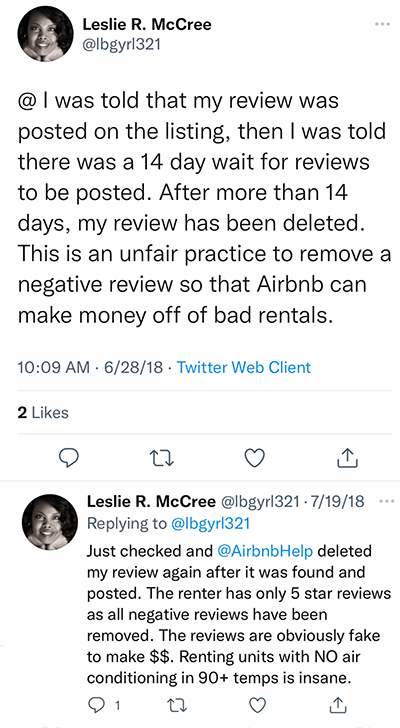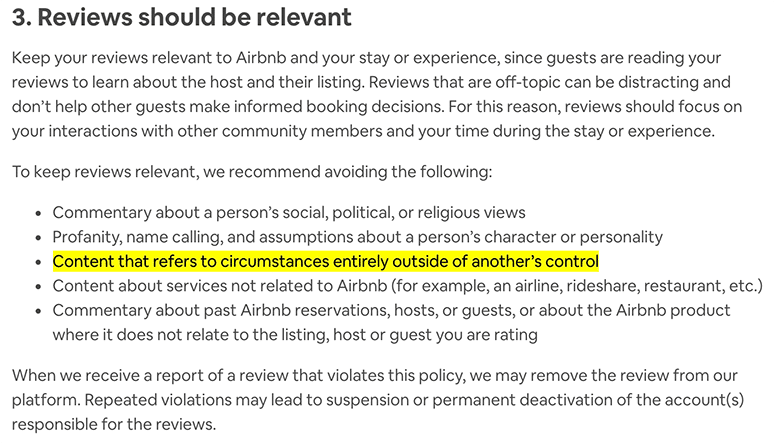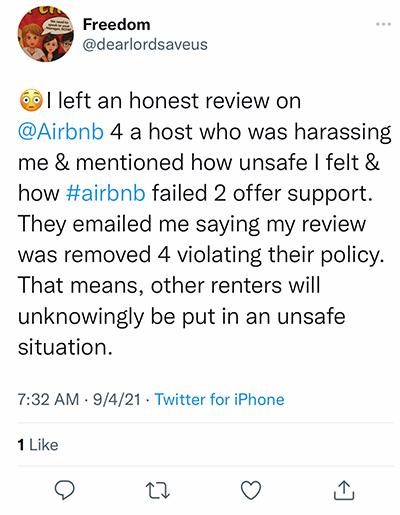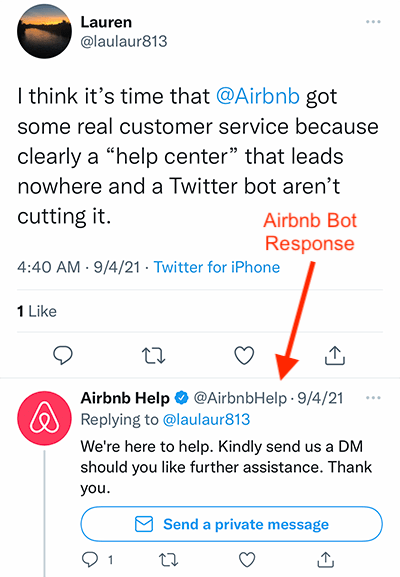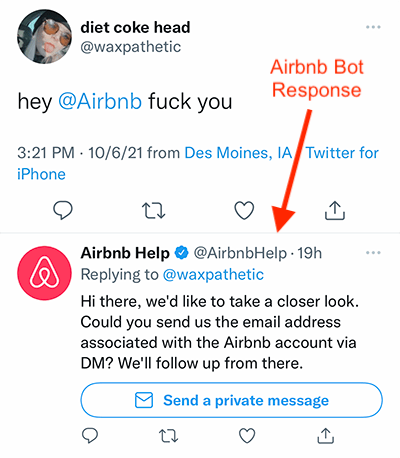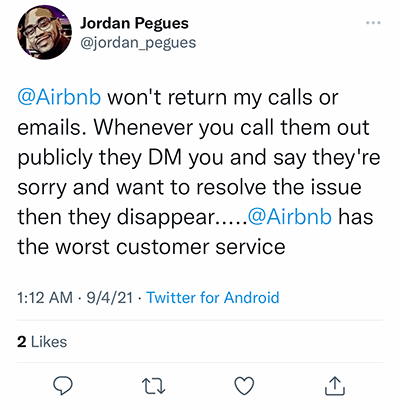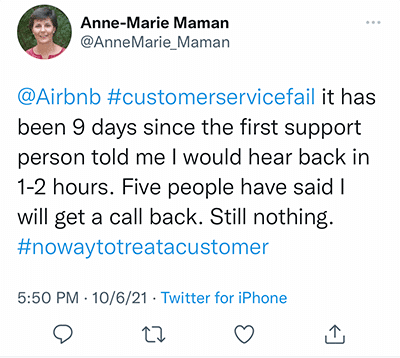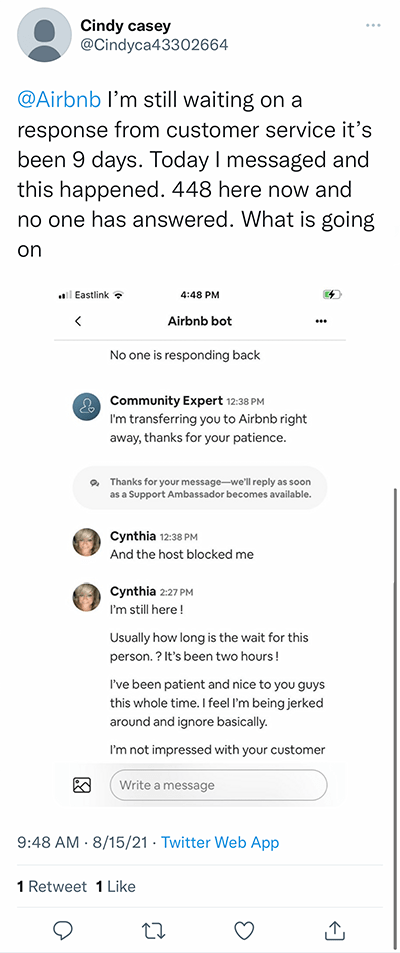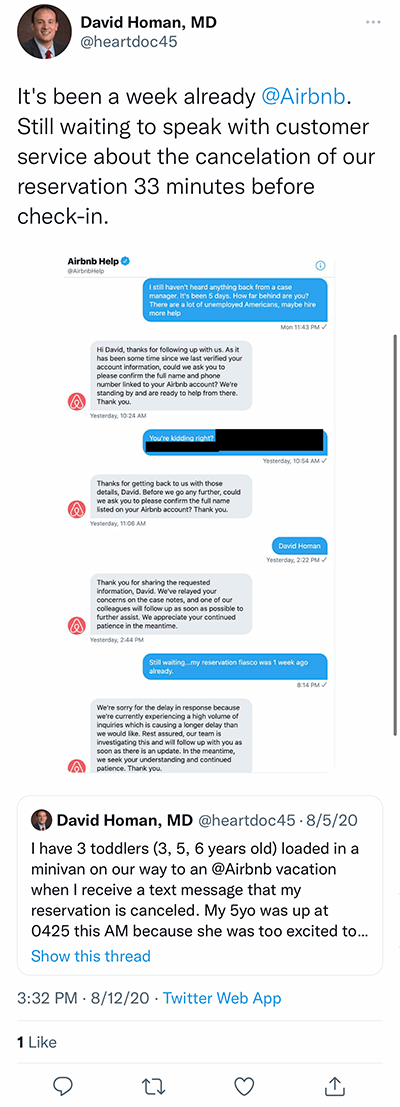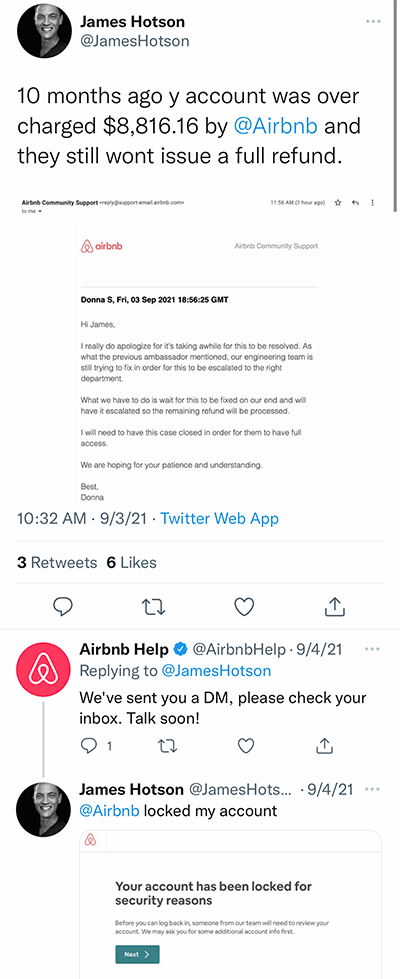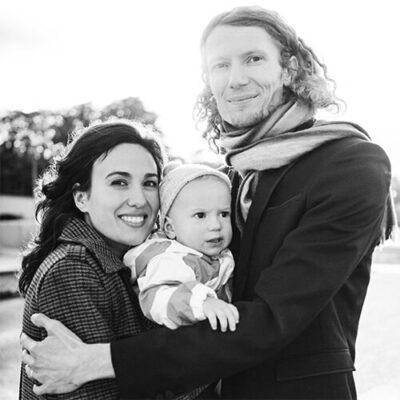We analyzed 127,183 Airbnb guest complaints to find out which problems are most likely to be complained about via Twitter. We reviewed all mentions and replies of @Airbnb, @Airbnb_uk, @AirbnbHelp, etc.
I conceived the original study method in early 2019 and shortly thereafter began a collaboration with researchers from John Jay College of Criminal Justice and the University of Colorado School of Public Affairs in Colorado Springs. The 2.5-year project was funded by ASIS International (the world’s largest membership organization for security management professionals) and via a grant from John Jay College.
This 2021 Airbnb research is a follow-up to my 2017 study, “Is Airbnb Safe?” which was inspired by my own Airbnb nightmares in Paris with my wife and baby.
Below is a summary of our key findings and further down the page we list the cities with the most Airbnb complaints.
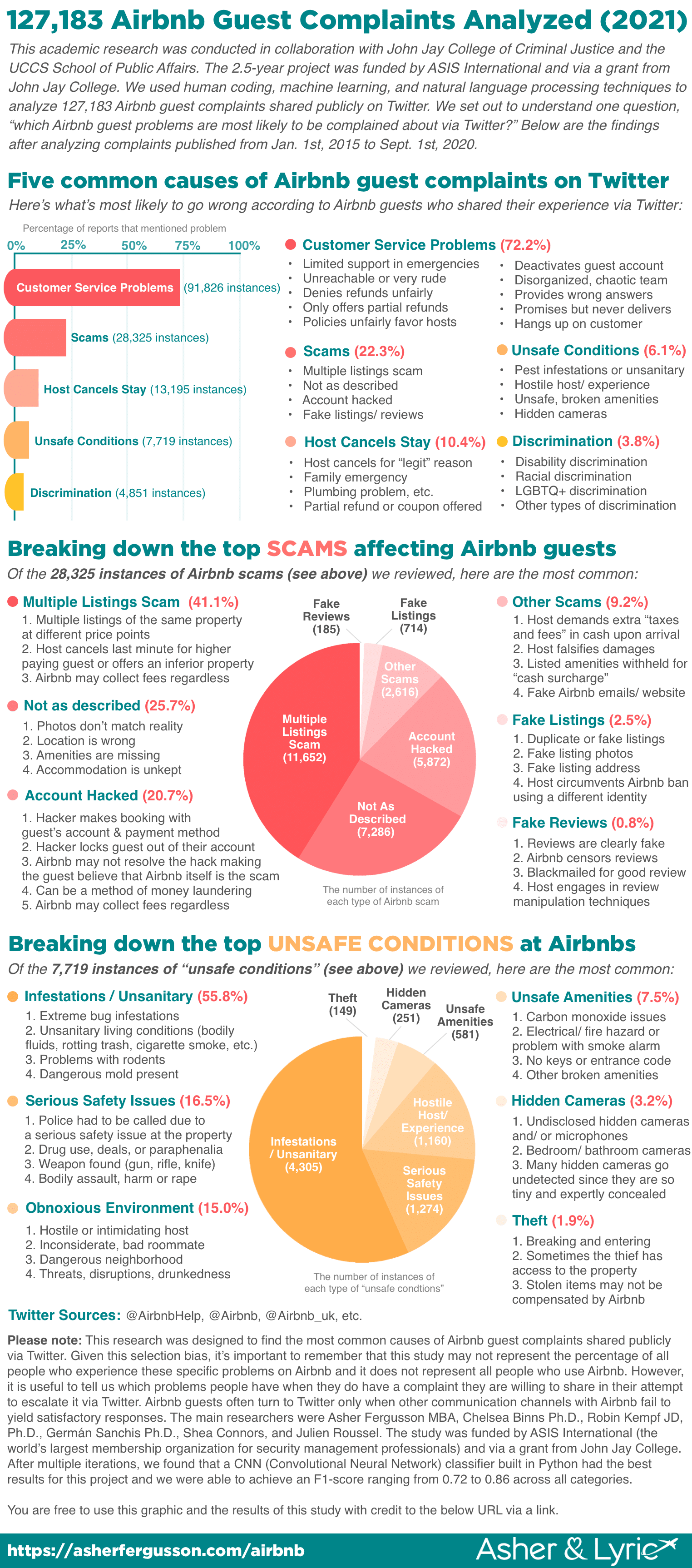
Please note: If you’d like to be the first to know when we update this study or when we publish new research, subscribe HERE ➜

SECTION 1
Our Methodology
In this academic research, we set out to understand one simple question, “which Airbnb guest problems are most likely to be complained about via Twitter?”. We used a combination of human coding of individual Airbnb Twitter complaints, machine learning, and natural language processing techniques to accelerate the categorization and understanding of such a large dataset of 365,250 individual tweets or 169,023 Twitter conversations. Of the 169,023 conversations, 127,183 were from guests reporting their problems.
We had two coders human-review and categorize a total of 5,278 tweets without seeing how the other coder was categorizing each conversation. This allowed us to measure intercoder reliability and we eventually reached 100% reliability by reviewing and correcting all the tweets they did not agree on. Using this “gold standard” dataset we were able to then train our custom-built machine learning system to review the remaining 160,000+ conversations. After several iterations and by employing different natural language processing techniques, we achieved an F1-score ranging from 0.72 to 0.86 across all categories.
Obtaining the data
All tweets used in this study are publicly available on the Twitter platform at the time of publishing and mentioned one or more of the following Twitter accounts: @AirbnbHelp, @Airbnb, @Airbnb_uk, etc. In order to speed up the review process, we used the paid Twitter developer API for bulk downloads of all the tweets shared by Airbnb users. We were able to download 365,250 individual tweets which gave us a total of 169,023 conversations dating from January 1st, 2015 through to September 2nd, 2020.
Unit of analysis
In this research, the unit of analysis is a Twitter conversation. Each conversation may contain several individual posts by Twitter users (tweets), including the original tweet and responses usually from @AirbnbHelp. For simplicity, “tweet” and “conversation” are interchangeable.
Human Coding and Intercoder Reliability
In this context, coding means “categorizing” or labeling the tweets into predetermined categories. Using humans to code an initial batch of over 3,000 tweets gave us a way to systematically categorize the data with a high level of accuracy. In this case, Twitter conversations were coded in two stages. First, it was determined whether the initial tweet was from an Airbnb guest, host, or a neighbor/citizen. We also used a fourth category, “unknown,” which was used when the coder was not able to identify the person tweeting. This categorization was done in order to be able to identify the unique vulnerabilities of the primary parties tweeting, primarily, Airbnb guests vs. Airbnb hosts.
The second step was to identify the nature of the problem. Categories of different types of issues were developed through brainstorming based on my previous Airbnb study, a review of prominent media coverage related to problems about Airbnb, researchers’ personal experiences, and the types of situations that were commonly found when reviewing a preliminary set of 300 random conversations.
To ensure intercoder reliability, i.e., that coders were analyzing conversations similarly, two coders analyzed the same set of data separately without knowing how the other coder was categorizing each conversation. This coding was performed on a web app platform designed by the machine learning company Sciling, the AI contractor for this project. Each coder initially categorized a randomized sample of 300 conversations or about 0.2% of the total 169,023 Twitter conversations about Airbnb. Coders identified the type of tweeter and then assigned up to three categories of types of complaints to each conversation.
The platform allowed for a comparison of the coders’ work to identify the extent to which the coders agreed. Because intercoder reliability is essential for this process, the coders and researchers closely examined the conversations that the coders did not agree on. As a group, researchers and coders came to a consensus as to the accurate coding and amended the coding definitions as needed. With new clarity, the coders coded another set of 300-500 conversations. This process was repeated until intercoder reliability was 75%. Finally, the researchers reviewed the remaining conversations that the coders had disagreed on to resolve the conflict and achieve intercoder reliability of 100%. In total, 3,616 conversations, or 2.14%, had been coded manually.
Machine learning
A majority of the human-coded conversations were introduced to the computer with the intent that it would learn patterns from the coded conversations and categorize the remaining conversations using Natural Language Processing. These computer-coded conversations were then compared to the remaining human-coded conversations to calculate a level of accuracy. Sciling reported that their staff used multiple models to train the machine to recognize patterns in the human coding, including addressing the data imbalance between tweets from guests versus the other categories.
The following definitions are important:
● Recall “quantifies the number of positive class predictions made out of all positive examples in the dataset” (Brownlee, 2020). From all guest conversations, the machine was able to correctly classify 87%.
● Precision “quantifies the number of positive class predictions that actually belong to the positive class” (Brownlee, 2020). From all the conversations that the machine labeled as “guest,” 90% were correct.
● F1 Score (or F-measure) is “a measure of the test’s accuracy and is defined as the weighted harmonic mean of the precision and recall of the test” (Metacademy, n.d.). The F1 score is calculated by dividing the number of observations by the reciprocal of each number in the series, i.e., the precision and recall of the test.
The computer was most accurate when coding the guests’ tweets, as compared to the other types of tweeters, which is likely due to the larger number of tweets to analyze proportionately. Based on the results, it was clear that there were not enough coded tweets in categories other than “guest” to train the machine. Due to this, along with the fact that guests are the primary users of Airbnb, we decided not to do additional coding for “hosts,” “citizens,” and “other,” but rather to focus on the problems that guests experience on Airbnb at this time.
The next step Sciling staff took was to train the machine, in multiple iterations, to recognize both who tweeted (specifically, to identify guests) and the type of complaint they offered. With these initial results, we found the F1 score did not reach 80% for most of the categories of complaint type, thereby, making the machine’s categorization unreliable, which required additional steps, including merging similar categories and reviewing a sample of machine coding.
Two categories of guest complaints, “account hacking” and “discrimination”, met the 80% accuracy threshold that we were striving for. Account hacking received an F1 score of 0.86, and discrimination had an F1 score of 0.81, which means that the accuracy of the machine learning categorization will be higher than 80%. In addition, three other categories had 72% accuracy or higher. These categories included the combined category of customer service, locked account and tech issue (F1 score = 0.72), the combined category of host cancels stay/host does not show up (F1 score = 0.78). As increased accuracy was unlikely, we determined these results with more than 70% accuracy, would be sufficient for analysis.
Keyword searches
Using the machine learning results, the same platform created by Sciling was used to do keyword research within the machine-coded categories, or in the data set as a whole, to identify more granular information about problems facing Airbnb users. Specifically, the AI platform enabled the database of 169,023 Twitter conversations about Airbnb to be searched for single words or combinations of words. Then the conversations containing the keywords were analyzed in-depth to gain a better understanding of the context in which they were used by the tweeter.
The methodology for conducting the keyword research was as follows. An initial list of keywords was curated, designed to retrieve issues impacting different guest concerns such as scams, safety, and security. Some keywords were gleaned from security literature and others had been observed in the tweets reviewed by coders and researchers. For instance, two keywords searched for were “break-in” and “theft.”
If any keyword retrieved a small number of conversations, defined as 275 or less, the conversations were analyzed qualitatively to determine if the conversation identified a major issue for Airbnb guests. For instance, a conversation including the word “assault” might describe a physical assault that occurred at an Airbnb property, which is an obvious security issue. On the other hand, another conversation might complain about an air freshener being an “assault on the senses,” which is not on the same level of problem.
If there were more than 275 conversations, they were further refined using advanced keyword searches with a combination of keywords. From the machine learning results and the keyword searches, further findings were developed.
Limitations
The study population was limited to people who have self-reported issues about using Airbnb via Twitter. This fact had several implications for the analysis. First, it excluded any people who are not using Twitter. Thus, findings could not be extrapolated to the entire population of people who use Airbnb. Second, this population was skewed towards people having complaints as opposed to providing compliments. Tweets to @AirbnbHelp specifically were found to be more likely negative, because the tweeters were looking for assistance with a problem that they had failed to get resolution via other means such as email or phone communication with Airbnb. Finally, Twitter does not validate the content of tweets, and therefore, some of the conversations might be untrue or fake. Nevertheless, these limitations did not negate the value of the findings in terms of identifying actionable safety and security issues present on the Airbnb platform. In fact, some of these limitations may have resulted in a population of data that was more narrowly targeted towards the objective of this study which was to understand “which Airbnb guest problems are most likely to be complained about via Twitter?”.
My key research partners were:
- Chelsea Binns Ph.D. who is an Assistant Professor in the Department of Security, Fire, and Emergency Management at John Jay College of Criminal Justice. She is an expert in security & investigations, having previously worked in this capacity for the City and State of New York and in the financial industry. She is also a licensed Private Investigator and a Certified Fraud Examiner. Chelsea has published three books and conducted studies for leading organizations such as ASIS.
- Robin Kempf JD, Ph.D. who is an Assistant Professor at the University of Colorado School of Public Affairs in Colorado Springs. Prior to joining academia, she spent more than 10 years working for the state of Kansas as an attorney in a variety of contexts, including Kansas Supreme Court clerk. She has also published numerous articles in peer-reviewed journals.
- Germán Sanchis Ph.D. who has a Doctorate degree in Computer Science with more than 15 years of experience in natural language processing and machine learning, both in academic research and industrial applications. He is the author of more than 40 publications in international journals and conferences, a member of the committee in many top-level artificial intelligence conferences, and he has also been co-director of several Ph.D. theses in the field of natural language processing. Currently, he is CEO of Sciling – the firm that built our machine learning platform.
- Shea Connors and Julien Roussel who were top students (now graduates) from the criminal justice programs at John Jay College and St. John’s University.
- Lastly, this project took more than 2.5 years to complete and involved more than 1,200 combined hours of work.
SECTION 2
Three Noteworthy Categories of Common Airbnb Complaints
Out of 127,183 Airbnb guest complaints analyzed, here is a breakdown of the most noteworthy examples of unpleasant (and sometimes dangerous) situations including scams, unsafe conditions, and discrimination. Click the links below to navigate to that section of the page where we also share poignant examples embedded directly from Twitter.
1. SCAMS (28,325 instances or 22.27% of all guest complaints)
- Multiple Listings of the Same Property (11,652 instances or 9.16% all guest complaints)
- Property Not As Described (7,286 instances or 5.73% of all guest complaints)
- Account Hacked/ Fraudulent Charges (5,872 instances or 4.62% of all guest complaints)
- Fake Listings and/or Reviews (899 or 0.71% of all guest complaints)
- Other Scam or Fraud (2,616 or 2.06% of all guest complaints)
2. UNSAFE CONDITIONS (7,719 instances or 6.07% of all guest complaints)
- Infestations/ Unsanitary/ Unhealthy (4,305 or 3.38% of all guest complaints)
- Serious Safety Concerns (1,274 or 1.00% of all guest complaints)
- Obnoxious Host and/or Environment (1,160 or 0.91% of all guest complaints)
- Unsafe or Broken Amenities (581 or 0.46% of all guest complaints)
- Hidden Cameras (251 or 0.20% of all guest complaints)
- Theft (149 or 0.12% of all guest complaints)
3. DISCRIMINATION (4,851 or 3.81% of all guest complaints)
- Disability (2,891 or 2.27% of all guest complaints)
- Race (1,051 or 0.83% of all guest complaints)
- LGBTQ+ (153 or 0.12% of all guest complaints)
- Other Types of Discrimination (756 or 0.59% of all guest complaints)
SECTION 3
Five Types of Scams Plaguing Airbnb
Our analysis shows that scammers are utilizing home-sharing platforms to target unsuspecting victims. Although we can’t quantify the exact amount, these tweets suggest a serious problem. Since Airbnb is a recognizable brand, and the service appears comparable to that of hotels (see Binns and Kempf 2020: Safety and Security in Hotels and Home Sharing) users are most likely letting their guard down and trusting the app. Guests expecting quality accommodation and service can be lured into a scam and appear to be left with little recourse, as is documented by tweets complaining about the lack of customer support in these situations.
Our research has identified Airbnb scammers’ five most common tactics to watch out for. Be aware that there are myriad variations of these scams and scammers will often attempt to change up their tactics as consumers become more aware of them.

1. Multiple Listings of the Same Property
This is by far the most common Airbnb scam reported in the set of analyzed Twitter complaints. The scam looks like this (with variations, of course):
- The host offers nice accommodation for a good price. Unbeknownst to the guest, the property was listed more than once (on Airbnb and potentially other short-term rental platforms), once at a cheaper rate and once at a much higher rate.
- If the host has a new guest make a booking at the higher rate, they cancel the guest who booked at the lower rate (usually last minute).
- Either the guest is out on the street on their own or the host offers a worse property without any discount.
- Airbnb may or may not intervene or offer support on behalf of the guest, giving them few options but to accept or be out the cost of the original listing, plus the cost of premium rates for last-minute accommodations elsewhere.
Check out some examples of this happening to guests:
Below find several more examples of multiple listings scams in the press:
– The Points Guy: Travelers warn of last-minute vacation rental cancellations this summer
– WFTV 9: Families claim vacations were cancelled to charge new renters more
– MakeUseOf: 3 Airbnb Scams You Need to Know About Before Booking Your Trip
– The Sun UK: Airbnb hosts can cancel your reservation at the last minute as part of a ‘scam’ and there’s nothing you can do about it
– SFist: Top 10 Airbnb Scams Bamboozling Users Out of Money Across the World
Back to top
2. Property Not as Described
The second most commonly complained about scams are properties that are misleadingly marketed to make the accommodations appear better than they actually are. This can be achieved through misdirection or staged photos containing amenities that no longer exist (or never existed in the first place). Naive guests arrive at a home that is often drastically different from the photos and descriptions posted on the Airbnb platform e.g. much dirtier than advertised or doesn’t contain said luxury amenities, like a backyard hot tub or more simple essentials such as WiFi or running hot water.
Or, sometimes, the photos are complete lies. Guests arrive at the accommodation only to find out it is not at all what was advertised in the pictures, and they may have little recourse or opportunity for a full refund. Or if they are offered a full refund it could take weeks or months to receive the money-back.
Sometimes this scam will include the wrong address. The host will “conveniently” claim that Airbnb mistakenly listed the address and they can’t fix it. In this case, there is a good chance that the property owner has been booted off the platform before but has circumvented the restriction by simply listing a new address under a different name. This scam personally happened to us in Paris in 2017.
Here are some examples of this scam in action:
Even more examples:
Below find several more examples of Airbnbs listings turning out not as described in the press:
– News 5 Cleveland: Texas mom says Cleveland Airbnb stay turned into a nightmare
– Newsweek: Woman Books Five-Star Airbnb, Turns Out to Be ‘Hoarder’s House’
– SNN News: No A/C, cockroaches at pricey Siesta Key rental
– Toronto Sun: Time to close the door on Airbnb
– KHOU: Woman says she was misled into booking basement room without windows, vents
Back to top

3. Account Hacked & Fraudulent Credit Card Charges
Another commonly reported type of fraud that is extremely alarming is where scammers will hack into an Airbnb guests’ account (change their password) and book multiple stays at potentially fake listings with the victim’s credit card, debit card, PayPal, or another associated payment method. The scammer will likely have ownership or connection to the property they have booked so that they are effectively doing a money transfer with the guests’ finances. It is plausible that the hacker is also using this tactic as a money-laundering technique. The Airbnb guest is now locked out of their account may be missing thousands of dollars.
Many reports noted that customer service was not able to help them easily because they “can’t verify” the account holder, keeping them stuck in this awful catch-22: can’t get support without their account, can’t access their account without support. And Airbnb has likely received revenue via the scam regardless, in the form of booking fees. If Airbnb does manage to provide a resolution it can take weeks or longer for the guest to receive a full refund and it may not include all the booking fees.
It was unclear how these account hacks are occurring. However, the fact that this affected almost 5% of all users who complained via Twitter tells us that Airbnb’s security measures and ability to block suspicious activity could be improved. Often, guests reported that they believe that Airbnb itself is a scam, because of the lack of support offered by the platform in recovering their account, or their funds.
Here are some examples of this:
Even more examples:
Below find several more examples of Airbnb account hacking scams in the press:
– USA Today: Airbnb users getting scammed with fake rentals, account closures
– Elliot Advocacy: This is how I lost $1,181 to an Airbnb hacker (and got blocked, too!)
– The Sun: Airbnb users complain of accounts being ‘hacked’ saying they’ve been charged thousands and had bookings cancelled
– WKYC: Money Monday: Check your Airbnb account!
– Fox 13 Memphis: New scam targeting Airbnb accounts, charging people thousands in fake bookings
Back to top

4. Fake Listings & Reviews
Sometimes, guests will arrive at what is clearly a completely different home than the one pictured. Or, even worse, the listing never existed at all. Scammers will take pictures of homes off the internet, list them as available rentals, and the unsuspecting guest shows up to nothing after losing out on hundreds or thousands of dollars. At the time of publishing this article, it is still possible to find fake listings on Airbnb which suggests they have NOT verified all their listings in 2021 even though they pledged they would by the end of 2020. This makes setting up fake listings in certain jurisdictions fairly easy to do.
Fake reviews are an increasingly prolific problem with the home-sharing platform. Fake reviews completely undermine the integrity of the review process. If you don’t know how genuine the reviews are, or if they were placed there by a less-than-genuine host, how can you know what you and your family are walking into?
Here are some examples of fake listings and reviews:
Even more examples:
Below find several more examples of Airbnb fake listing scams in the press:
– LifeHacker: How to Identify Scam Listings on Airbnb
– The Washington Post: How to spot fake reviews on travel sites
– Traveller: Airbnb are removing some negative reviews. Here’s why
– CNN: British couple spends $11,800 on Airbnb rental in Ibiza that doesn’t exist
– Forbes: Don’t Get Duped: Spotting Fake Listings On Airbnb

5. Other Airbnb Scams
There are plenty of Airbnb scams that don’t fall into a simple category. One example of this is the host demanding regional taxes upon arrival, or other various types of fees that were not outlined on the platform. They may insist that the guest cannot stay if they don’t pay an extra $20, $50, or more per night. Another example of this is up-charging amenities that were promised to be included in the listing, like access to the pool or the washing machine but for a cash price to be paid directly to the host or listing manager.
Another common trick is where hosts indicate to Airbnb support that the guest damaged their property, when in fact they didn’t, and then Airbnb could request the guest pay additional fees.
One more well-known scam is when “hosts” contact guests during the pre-approval phase and send them a link to another website that looks exactly the same as Airbnb.com, but isn’t. Guests then log in again and finalize the payment, only to realize after that they had sent money (as well as their banking info, and their Airbnb login information) to scammers who have no real listing at all. These scammers usually do get taken down from the platform, but it’s possible for them to get back on with another fake scam listing.
Check these out here:
Even more examples:
Below find several more examples of other Airbnb scams in the press:
– Irish Times: ‘Alarm bells started ringing’: Friends lose €2,600 in rental property scam
– Vice: Here Are the Most Common Airbnb Scams Worldwide
– ABC Action News: ‘I was scammed’: Couple warns of ‘sophisticated’ rental scheme in St. Pete
– Q13 Fox: Woman falls victim to fake Airbnb site phishing fraud, says no ordinary rental scam
– CBD News: Airbnb customer who lost $3,700 warns others to avoid scammers
Back to top

SECTION 4
Six Types of Unsafe or Unsanitary Conditions at an Airbnb
Aggregate data can’t fully paint the picture of what a guest goes through when they have a poor Airbnb experience. To demonstrate the frustrating, complicated, messy, and sometimes dangerous circumstances that countless guests have experienced, we’ve compiled 500+ examples with photo evidence of the thousands of “unsafe conditions” complaints shared by dissatisfied customers.
Please note: the below examples are only the complaints that included photos. Guests can’t easily or safely capture some of the more frequent complaints in images (aggressive hosts, certain serious safety concerns, carbon monoxide, and cigarette smoke, for example).

1. Infestations, Unsanitary, and Unhealthy Accommodations
Of the “Unsafe Conditions” complaints we analyzed, more than half pertained to the cleanliness and hygiene of the listing. Common issues include bug infestations, rodents, pests, mold, bodily fluids, rotting food, and other unsightly or unsafe living conditions. In the age of Covid-19, cleanliness is of extra importance and lack of hygiene can pose a real safety hazard.
Conditions range from inconvenient to downright precarious. Many Airbnb guests report dealing with sanitation problems long after their visit, in the form of pests in their luggage (bedbugs, cockroaches) or residual health problems associated with things like carbon dioxide poisoning, asthma, and mold. Other times, the issue was limited to dirty bedding, dishes in the sink, trash in the living area, and a general lack of cleanliness.
Below are two good examples of bug and rodent problems at an Airbnb.
Hundreds of more photo examples shared by guests
Below are almost 300+ more examples of complaints regarding unsafe and unhealthy conditions found at Airbnbs around the world.
Examples shared by media outlets around the world
Below find several more examples of infested, unsanitary or unhealthy conditions found at an Airbnb shared by the press:
– The Boston Globe: How to navigate an Airbnb disaster, bugs and all
– CNet: Bedbugs are giving Airbnb users headaches… and itchy bites
– NL Times: Airbnb blamed for rise in bedbug infestations
– The Boston Globe: How to navigate an Airbnb disaster, bugs and all
– Mirror: Airbnb guest books NYC room – but it’s a cupboard with ‘dirty’ camping mattress
Back to top

2. Serious Safety Concerns
Serious safety concerns represent a dark possibility for Airbnb users. Guest complaints range from police interventions, assaults on guests, dangerous neighborhoods, drugs, drug deals, and weapons found in the rental. While serious safety concerns remain a frequently Tweeted complaint, it is both difficult and dangerous to depict safety concerns in pictures, so we were only able to capture 8 images out of hundreds of concerning complaints around guest safety and wellbeing.
Below are two examples of serious safety problems at Airbnbs.
And even more examples:
Below find several more examples of serious safety concerns in Airbnbs shared by the press:
– Bloomberg: Father Says Airbnb Aid After Daughter’s Death Was Damage Control
– The Hill: Consumer safety agency asks Airbnb, others to issue warnings on home elevators following child’s death
– NBC Boston: Airbnb Host Cancels Vacation Rental After Guest Asks About Camera Surveillance
– WRDW: Aiken man recorded minor female guest during stay, another lawsuit alleges
– Los Angeles Times: Deadly shootings highlight Airbnb’s house party problem
Back to top

3. Obnoxious Host, Neighbors, and Environment
For Airbnb, a host can really make or break a stay. This category outlines the issues surrounding Airbnb hosts and the environment or neighborhood of a property. The majority of complaints centered around inappropriate/aggressive hosts or unsafe neighborhoods, but compounding issues, including scams, discrimination, cancellations, and unpleasant living environments are frequently indicated problems within this section.
Here are two telling examples of obnoxious houses, neighbors, and environments.
Check out these 68 more examples.
Below find several more examples of obnoxious hosts, neighbors, and environments found at an Airbnb shared by the press:
– Wired: Threats, fear and chaos: the messy fall of an Airbnb scam empire
– Fox: Local woman out thousands of dollars after booking fake property on what she thought was Airbnb
– Vox: A bait-and-switch scam ran unchecked on Airbnb. Here’s how it worked
– NZ Herald: Airbnb said no more house parties. Why hasn’t the letting app cleaned up its act?
– CBC: Airbnb quietly shut down a top host amid scathing reviews, but hundreds of guests were left to stay with him
– Traveller: Traveller Letters: Airbnb host refused refund, told us to ignore lockdown rules
– CBC: Airbnb quietly shut down a top host amid scathing reviews, but hundreds of guests were left to stay with him
Back to top

4. Unsafe, Broken, or Missing Amenities
Many guests were promised amenities that turned out to be unsafe or not working as indicated on the Airbnb website. We were surprised to find hundreds of examples of gas leaks, missing carbon monoxide and smoke detectors, and other electrical and fire hazards. This category also included things like missing keys and broken toilets.
Tragically, just last week, a Californian couple and their baby were found dead in an Airbnb likely because of a gas leak.
Here are four examples of unsafe or broken amenities.
Check out 92 more examples.
Below find several more examples of unsafe, broken or missing ammenities found at Airbnbs shared by the press:
– News 4: Short-term rental companies refuse refunds in Tahoe despite nearby fire, air quality
– WPCO Cincinnati: Airbnb rental turns out to be a windowless basement
– Popsugar: I Got to an Airbnb, and It Was a Nightmare — Here’s What Happened Next
– Gothamist: City Sues Over Alleged Airbnb Housing Ring That Made Millions
– Honey: Woman horrified after ‘five-star’ AirBnB is covered in rubbish and looks like a ‘hoarder’s paradise’
Back to top

5. Hidden Cameras
Hidden cameras are a huge privacy violation and safety concern for many Airbnb guests. Though the hidden camera complaints only account for a fraction of our analyzed complaints, it still represents a worrying trend for guests who want to feel private and safe in the listing they’ve paid for.
Airbnb’s official stance on the issue of security cameras is that they have to be disclosed in the listing description. However, in order to have a “hidden camera”, that rule is being broken as indicated by guest complaints on Twitter.
It also has to be stated that as camera technology advances, guests may struggle to find the cameras being hidden in smoke detectors, iPhone charging docks, USB adapters, and other clever hiding spots.
Below are two good examples of cameras hidden in Airbnbs.
Check out this recent TikTok video from @malwaretech where he shows you exactly how to find hidden cameras in an Airbnb and just how easy it is for a voyeuristic host to conceal them.
@malwaretech Reply to @safarijackza How to find hidden cameras in AirBnBs ##safety ##travel
Below find several more examples of hidden camera stories in Airbnbs shared by the press:
– The Atlantic: Airbnb Has a Hidden-Camera Problem
– SFGATE: We rented a California vacation home and got spied on by a surveillance camera
– NBC Boston: Airbnb Host Cancels Vacation Rental After Guest Asks About Camera Surveillance
– WRDW: Aiken man recorded minor female guest during stay, another lawsuit alleges
– Sky News: Family discovers hidden camera livestreaming in Airbnb
Back to top

6. Stolen Property & Theft
Theft was the least common type of unsafe incidents in our dataset. For those who complained about theft, the biggest factor was improperly secured listings (sometimes where the thief had a key) or unsafe neighborhoods where thefts might more easily take place.
Here are two examples of stolen property.
Check out several more examples.
Below find several more examples of thefts at Airbnbs shared by the press:
– Washington Post: They booked an Airbnb for a Christmas getaway. Then their presents and belongings were stolen
– KHOU Houston: Bachelorette weekend nightmare: Houston Airbnb apartment removed from site after thief targeted women
– News Channel 3: Man and woman accused of robbing six guests at gunpoint at a Joshua Tree Airbnb
– Yes Weekly: AIR B&E: Airbnb accused of allowing scam artist to list Greensboro home
– WKRN: Airbnb burglaries persist in Nashville
Back to top

SECTION 5
Four Common Forms of Discrimination
While complaints of discrimination only accounted for 3.81% of our Twitter complaints, that is still 4,851 people complaining to Airbnb publicly via Twitter that they were treated poorly based on their race, orientation/gender expression, disability, religion, or for other discriminatory reasons. We’ve broken down the most common types of discriminatory experiences Airbnb guests have had, with real-life examples from guests.
The sections are split up into disability (2,891 complaints), race (1,051 complaints), LGBTQ+ (153 complaints), and other discrimination issues (756 complaints).
1. Disability-Based Discrimination
The ability for disabled individuals to have access to safe and accessible accommodations is an issue that is plaguing the short-term rental economy. While hotels and established properties have accessibility standards to adhere to, many private homes on Airbnb do not.
For certain, disabled people should be protected under the Americans with Disabilities Act, many Airbnb guests find that their bookings are canceled, their support animals are denied, or the listing that was “wheelchair accessible” was, in fact, very much not.
Here are some examples of disability discrimination:
Even more examples:
Below find more examples of Airbnb disability discrimination in the press:
– The Conversation: Study shows how Airbnb hosts discriminate against guests with disabilities as sharing economy remains in ADA gray area
– The Verge: Airbnb hosts reject guests with disabilities more often, researchers say
– Wired: Airbnb is massively failing travellers with disabilities
– Live + Well: How a Mother and Daughter Could Help Airbnb Improve Its Accessibility for Traveling Wheelchair Users
Back to top

2. Race-Based Discrimination
Thousands of guests arrive to their rentals only to find that the host is rude, insulting or otherwise aggressive based on the their race. That is, if the guest even makes it to the point of actually renting. Many guests find that they may not even receive the booking based on various racial factors.
Check out some examples of this happening to guests:
Further examples of racism at Airbnbs:
Below find several more examples of racism at Airbnb in the press:
– Fortune: How Racism on Airbnb Threatened My 20-Year Friendship
– iNews: There were plenty of Airbnbs available — until their hosts saw that I was black
– The Washington Post: ‘Which monkey is gonna stay on the couch?’: Airbnb host kicks out black guests in racist exchange
– Box: Airbnb has a discrimination problem. Ask anyone who’s tried to #Airbnbwhileblack.
– The Washington Post: ‘One word says it all. Asian’: Airbnb host reportedly leaves guest stranded because of her race
– Yahoo News: Airbnb algorithm linked to racial disparities in pricing
Back to top

3. LGBTQIA-Based Discrimination
Members of the LGBTQIA+ community have also reported discrimination on the house-letting platform. Some guests complain of poor reviews, mistreatment, or not being allowed to book rentals at all based on their LGBTQIA+ status.
Here are some examples of LGBTQIA+ discrimination in action:
Stefan & Sebastien from the popular gay travel blog, Nomadic Boys, suggest checking out LGBTQIA-friendly Airbnb alternatives. Their biggest complaint with Airbnb is the fact they refuse to add a “gay-friendly” search function. However, these alternatives 100% support the LGBTQIA community so that it’s easy to find hosts who won’t discriminate.
Even more examples:
Below find several more examples of LGBTQ+ discrimination:
– The Guardian: Airbnb faces outcry after transgender guest was denied stay by a host
– The Irish Times: Gay male couples ‘discriminated against’ by Dublin Airbnb hosts
– Thrillist: This LGBTQ-Friendly Alternative to Airbnb Helps Gay Travelers Feel Safe
– CNN: Traveling as a trans person: It’s complicated

4. Other Types of Discrimination
This category covers discrimination that doesn’t fall into the category of race, LGBTQ+, or disabilities. These factors range from religious discrimination, prejudice based on nationality, age discrimination, size discrimination, pregnancy discrimination, and more.
Here are some examples of other types of discrimination in action:
Even more examples:
Below find several more examples of different kinds of discrimination in the press:
– Travel + Leisure: Fearing Islamophobic Airbnb hosts, entrepreneurs aim to build ‘a Muslim-friendly solution’
– The Guardian: Airbnb curb on under-25s could be discriminatory, UK lawyers warn
– Mirror: ‘Fatphobic’ Airbnb hosts tried to ban fat people from staying in £199-a-night cottage
– The Guardian: Airbnb suspends Victorian host who rejected couple for receiving Covid vaccine
Back to top

SECTION 6
Survey respondants report 24.2% had an Airbnb problem in the past year
When we conducted our original 2017 study we had two separate Airbnb customer service representatives tell us via the phone that “3% to 7% of Airbnb stays turn into a problem”. However, for this research, we wanted to get the current state of affairs on Airbnb and ran our own online survey.
What does Airbnb say?
According to an article written by Bloomberg:
“Airbnb says that fewer than 0.1% of stays result in a reported safety issue, but with more than 200 million bookings a year, that’s still a lot of trips with bad endings. Only the most serious problems are transferred to the internal safety team.”
There are a few issues with this statement. First of all, what constitutes a “reported safety issue”? This opaque phrasing hardly clarifies what is considered a “serious safety concern”. Are these only circumstances where guests undergo bodily harm or worse? And this doesn’t even begin to capture all of the very expensive, frustrating, and upsetting issues that aren’t “safety concerns”, like the common complaints we identify above.
But let’s also break down Airbnb’s numbers: 0.1% of 200 million stays a year is 200,000 safety issues per year.
And this is only what Airbnb is willing to admit to.
Back to top

SECTION 7
Which cities get the most mentions on Twitter when an Airbnb guest has a problem?
We looked through our full dataset of 127,183 tweets for mentions of 100 popular tourist cities in the US and from around the world and included the 50 with the most mentions below. Since this data is based only on Twitter mentions, it is not necessarily a true reflection of the most problematic cities, however, it is interesting to see a breakdown of which cities get the most complaints per 1,000 Airbnbs (assuming each complaint is about a unique property) and how they compare to other popular destinations.
Also note, I shared this list on Reddit and made the frontpage with over 17,000 upvotes and 2,000+ comments from dissatisfied Airbnb customers sharing their experiences. The overwhelming Reddit consensus agreed with the ranking of many of the top cities on the list and had people sharing their Airbnb horror stories.
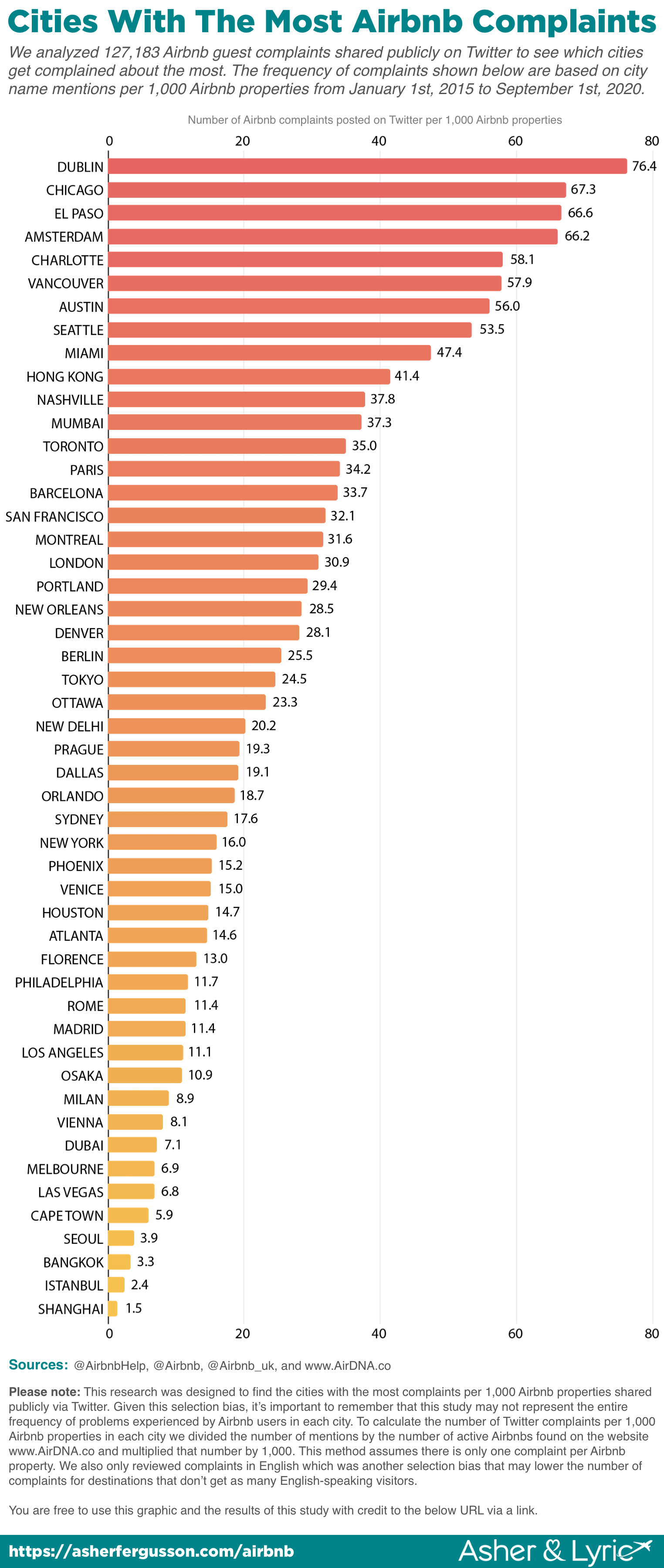

SECTION 8
Review manipulation issues
Guests are increasingly complaining of review manipulation on the platform. Not only are helpful details such as star ratings (associated individual reviews) not present on the platform, but many guests have also complained that their reviews have been heavily altered or have disappeared altogether from listings they critically and honestly reviewed.
Scammers and Airbnb slumlords are going to great lengths to improve their listings with fake 5-stars ratings. Wired Magazine outlined this practice in an interesting article about how individuals and groups are buying up cheap properties, taking misleading or outright fake photos of multiple listings, and saturating the listings with glowing, but very fake, reviews from equally fake guests.
Details follow:

1. Critical reviews are being censored
Countless guests have noticed that their critical reviews are disappearing from the platform–or never making it onto the platform at all.
The Airbnb Review Policy has tricky language that allows Airbnb to essentially take down reviews for a number of reasons that often benefit the hosts. Here’s an example of this in action:
“Circumstances entirely outside of another’s control” is hard to quantify and could apply to many things that directly affect the guest experience, like noise, neighborhood, smell, safety. But, even for factors that would immediately impact the guest experience, the host can petition to get these reviews taken down using the opaque language of the policy. This means a massive amount of negative reviews can be removed just by virtue of the issue being “outside of another’s control”.
The tweets we analyzed complained that Airbnb refused to explain what part of the comment violated their policy, leaving guests with no recourse nor way to communicate to future potential guests what’s really going on in the rental units.
Here is another example posted online by c k.
“We wrote a bad review of the place citing roaches, overall dated and dirty, no smoke alarm etc. I put some positive things in the review too. I was called a couple days after writing the review saying I had violated Airbnb policies… and my review was rejected… Airbnb made it impossible for me to put an honest review online.”
Back to top

2. Lack of ability to anonymously provide feedback
Some of these issues around the review system may stem from the inability to leave anonymous reviews, which creates a sort of shame around leaving anything even hinting at critical. As this Business Insider article suggests, having your name and face immortalized on the site alongside your negative feedback feels like a lot of pressure for guests who just want to maintain a good reputation on the site that relies on reputation for remaining “in good standing”. That, combined with the fact that hosts can leave responses that can in turn attack the character or judgment of the initial reviewer means it can get ugly, fast. Additionally, guests worry that if hosts see critical reviews they’ve previously left, they will be denied future rentals because the host won’t want a “picky” guest.
This phenomenon of mostly positive reviews is likely due to the “mutually assured destruction (or advantage)” of having both host and guest reviewing one another. The review system seems like it should be a good way for the community to monitor itself, and this does work in theory. But with the long documented history of review manipulation, hosts striking down negative reviews, reviews not being listed chronologically and many critical reviews not making it to the website at all, it makes you wonder what is even the point of a review process that can’t be trusted?

3. Reviews trend toward 5-stars, even with glaring issues
Scrolling through the website or app, you’ll notice that the majority of reviews are glowingly positive. Even on listings with subpar ratings, the reviews always tend to say really nice, complimentary things about the space and the host. This makes you wonder, what’s going on?
Sociolinguists have written research papers titled, “If nearly all Airbnb reviews are positive, does that make them meaningless?” and psychologists have shared their thoughts on, “The anatomy of an Airbnb review. All adding to the conversation with this well-known issue of weird, saccharine reviewing tendencies on Airbnb.
Below we show an animated gif of the listing for a highly-rated Hawaiian Airbnb that has reviews that seem overwhelmingly positive. With a total score of 4.78, it’s hard to argue that this is a very well-rated listing. But add a small negative word and the truth quickly becomes apparent.
Just by searching the word “but”, we see that this Airbnb is:
– “really dirty” (July 2021)
– “there’s no AC” (June 2021)
– “it’s not a 5-star hotel” (May 2021)
– “no private bath, no central air, no closet to hang up clothes and strangers walk through your room to get to the washer and dryer” (April 2021)
– “no AC” (March 2021)
– “we found cockroaches every night” (March 2021)
– “there is the neighbor’s rooster” (January 2021)
– “the bathroom was quite messy” (January 2021)
– “it smelled a bit like smoke” (January 2021)
– “found the place to be little dirty in maintenance.” (December 2020)
So we can quickly see with a simple search that this highly-rated destination listing is actually a dirty, hot, cockroach-filled, smokey spot where strangers walk through the room on regular intervals. And it’s rated 4.78 with 353 reviews!
If you’re planning to use Airbnb, I recommend you only stay at places rated 4.85 or above and spend time disecting all the reviews like a detective!
Back to top

4. Inability to filter reviews
Lastly, guests looking at a potential rental cannot filter reviews by ratings. Unlike many sites with user reviews like Amazon where you can, for example, see all the 1-star or 5-star ratings at once to get an idea of the range of guest experiences, Airbnb has no such filter option by design. In fact, each individual review does not indicate the actual rating at all, adding to the lack of transparency around how reviews operate on the site.

SECTION 9
Why is their customer service so notorious?
Airbnb is a massive company with a global reach. They boast “5.6M+ listings in 220+ countries and regions“. With a company of this size and with no costs of real estate, building maintenance, or typical hospitality staff, you would think that Airbnb would invest in robust, quality customer service.
According to guests who share on Twitter, however, this is far from reality.

1. Overreliance on bots and AI
Typically when guests are experiencing an issue with their listing, whether it’s a simple inconvenience or a potentially dangerous crisis, dealing with a phone tree of bots and AI is less than ideal. But guests frequently complain of the seemingly increasingly automated nature of Airbnb’s customer service.
Even with one of the most successful ways to get a response, their Twitter account, is coming under scrutiny as behaving like a bot, that leads to a DM bot, that leads… nowhere. A tool that checks the activity of a Twitter account called the Botometer created by Indiana University rates @AirbnbHelp a 4.2/5 (higher scores mean more bot-like activity).

2. Responding fastest to public pressure (i.e. Twitter/Facebook)
Speaking of their Twitter, many guests have expressed frustration that the platform seems to respond quickest to public pressure and high-profile events, and not to their guests who really need it.

3. Asynchronyous and Confusing Customer Service
According to numerous guests on Twitter and other platforms, Airbnb assigns cases to specific agents (or “Support Ambassadors”). If that agent is overloaded or too busy to get back to you, then you’re left waiting…
Instead of allowing multiple agents to work on tickets as they are available, they seem to assign one Support Ambassador and if that Support Ambassador isn’t working or isn’t available, well, you’ll just keep getting bounced back to them by all the other bots agents until they have the time to get to your ticket (out of, presumably, hundreds or thousands of tickets at any given time).

4. Delays in refunds lasting weeks (or even months)
Even when the platform does promise to repay fees, partial refunds, or even full refunds, the money doesn’t arrive for a long time. If at all.
Airbnb’s lack of responsiveness leaves many, many travelers stranded in foreign countries with no place to stay, and no money to find last-minute, premium price accommodations when their Airbnb doesn’t work out. This is a scary, vulnerable situation for many who planned well in advance and did not think they would need to anticipate paying for additional accommodations.

SECTION 10
Class-action lawsuits
According to the Airbnb Terms of Service (that everyone agrees to but nobody reads), section 23.11 states (at the time of publishing this article):
“23.11 No Class-Actions or Representative Proceedings. You and Airbnb acknowledge and agree that, to the fullest extent permitted by law, we are each waiving the right to participate as a plaintiff or class member in any purported class-action lawsuit, class-wide arbitration, private attorney general action, or any other representative or consolidated proceeding.”
I fairly regularly see comments shared by Airbnb users in the comment section of my blog and even on the official Airbnb community forum where people talk about organizing class-action lawsuits. Airbnb’s original Terms of Service did not have any “class-action waiver” verbiage but by May 22, 2012, they had added it. The people wanting to participate in a class-action suit clearly have not read or have forgotten what they signed up for when creating an account.
In the current version of the Airbnb Terms of Service, they attempt to make the “class-action waiver” part of the agreement clear by putting a note about it at the very top of the agreement as this screenshot shows.

Basically, Airbnb is attempting to prevent you from participating in a class-action lawsuit. Even for federally-protected reasons, like racial discrimination. Class-action waivers are becoming more common and are quite a controversial topic in the legal field. According to an article on The New York Times, “Class-action cases have been the only effective way to prove and remedy systemic discrimination because you can’t prove a pattern of behavior with individually filed cases,” said Joanne Doroshow, executive director of New York Law School’s Center for Justice and Democracy, who specializes in civil justice issues.

SECTION 11
11 Key safety tips that will help you avoid Airbnb horror stories
1. Never book a place with zero reviews
Ideally, look for a minimum of 50 reviews in popular tourist areas or 25 in quieter areas. New listings are often a red flag because many times a host will remove a poorly-rated listing and re-list it instead of improving the actual space. This is how we ended up getting scammed in Paris.
2. Only stay at places with a 4.85-star review average or higher
Most people will only leave less than that if they have had a truly horrible experience. And in today’s weirdly skewed Airbnb rating economy, leaving a 5-star review is normal and anything much less than a 4.85 almost guarantees something is sub-par with the accommodation. Many people will even leave a 5-star at a bad listing, out of guilt, to avoid confrontation, or out of fear of retaliation (feedback can be argued with by hosts, which can reflect poorly on the guest). Nobody wants bad feedback on their guest profile either.
3. Vet reviews very carefully
Additionally (and paradoxically), be mindful that Airbnb appears to censor reviews, and hosts are more frequently being cited as manipulating ratings and inflating their overall rating with bogus reviews. For this reason, I recommend you read all the reviews to make up your own mind of how legitimate the reviews are, and what are the specific concerns other travelers have noted.
4. Use the “Search” feature to your advantage
Always use the review search feature to check reviews for keywords like “not”, “but”, “bugs”, “noise”, “wifi”, “dirt”, “mold”, “linens”, “neighbors”, “smell”, “host”, “rude”, “cancel”, “refund”, “recommend”, etc.
Using the search feature for your specific sticking points will help you quickly identify if you are going to have a bad stay. Those with allergies, for example, may want to search “dander”, or light sleepers will want to search “noise/noisy”. Guests will often cloak negative experiences within mostly positive reviews, so the search function helps you identify potential concerns.
5. Remember that the vast majority of reviews will seem positive even if the guest was unhappy
Sociolinguist Dr. Camilla Vasquez suggests “reading between the lines” when it comes to Airbnb reviews, as reviews tend to trend more positively on Airbnb according to her research, and “bad” reviews are typically written as “lukewarm”. So any hint of things not coming across as absolutely glowing from a guest probably has undertones of dissatisfaction that may not seem immediately apparent.
6. Don’t just look at your listings reviews, look at your host’s overall reviews
Many hosts will have several listings and just because one listing has good reviews, doesn’t necessarily mean they’re a good host. Check to see if they have other rundown, dirty, undesirable properties on their profile before trusting the reviews of one listing alone. If one of their properties is in disrepair, odds are they all are.
7. Use Superhosts whenever possible
These are supposed to be experienced hosts who cancel less frequently, respond quickly, and have a 4.8 rating or higher. Because of the various metrics involved with becoming a Superhost, they are typically the most reliable hosts on the platform.
8. Only stay with hosts who have provided verified government ID
Many countries only need email and phone verification, which means that poorly-rated hosts can easily circumvent any sort of ban or de-listing by quickly making a new account. And while Airbnb does not seem to consistently verify listings (despite previous promises to do so), having a host with an ID on file gives some semblance of security.
9. Avoid hosts who have more than a couple of properties listed, aka professional Airbnb landlords
Beyond the ethical issues around how Airbnb is affecting the housing and rental markets, professional Airbnb “landlords” often come with their own set of issues. It’s much more likely, for example, that your host has little to no idea of the state of their property, choosing to outsource the cleaning and operations to employees. In our experience, we had no idea who we were actually talking to, who had keys to our place, who the point-of-contact was, and other important factors. Additionally, scams can be known to be done as large operations, as reported in this well-known Vice article. There are many reasons to strongly favor small, independent hosts over hosts that seem to run a “commercial Airbnb business”.
10. Communicate with your host before your stay
Before you arrive at the property, ask the host if you have any questions about anything you’re not sure of. Location, safety, wifi, guest restrictions, pet questions, accessibility, and other important details that might not be outlined on the profile.
Communicating about check-in/check-out times and any other details that need to be ironed out beforehand will save you the stress and frustration of doing it last minute.
11. Document anything that goes wrong with photo and video evidence for help with getting a refund
Avoid going through the messy “he said, she said” with a host by taking your own photos of the property before your stay and after your stay. Make sure to get all the major hotspots like the bathroom, the kitchen, and any heavy traffic areas.
If your host tries to claim unfair damages or give a review that isn’t correct, being able to provide photographic receipts may save you a huge headache (and a lot of money). Make sure your photos have timestamps or metadata enabled.
For more tips on staying safe while traveling, check out our most popular packing lists below:
Africa | Alaska | Amsterdam | Aruba | Asia | Australia | Baby Travel Gear | Bahamas | Bali | Barcelona | Belize | Cabo San Lucas | Camping | Cancun | China | Colorado | Costa Rica | Cruise | Day Hike | Disney World | Dominican Republic | Dubai | Europe | Flight | Florida | Glacier NP | Grand Canyon NP | Greece | Hawaii | Iceland | India | Ireland | Italy | Jamaica | Japan | Kauai | Key West | Las Vegas | London | Maui | Mexico | Miami | Moab | Morocco | New York | New Zealand | Paris | Portugal | Puerto Rico | Puerto Vallarta | Punta Cana | Road Trip | Rome | RV Trip | Scotland | Spain | Thailand | Theme Park Trip | Two Week Trip | Yellowstone NP | Yosemite NP | Zion NP

SECTION 12
Conclusion
Ultimately, we were able to answer our question on, “which Airbnb guest problems are most likely to be complained about via Twitter” and via our online survey. We hope it’s been as useful and enlightening for you as it was for us.
If you’re curious to see what’s going on right now with Airbnb complaints you can do so by simply visiting the @AirbnbHelp Twitter profile which literally has 100s of problems reported per day.
Lastly, if you’re looking for more specific examples of Airbnb guest (or host) issues, I would be happy to see if I can easily find them for you. Simply use our contact form and clearly state what you’re hoping to find.





